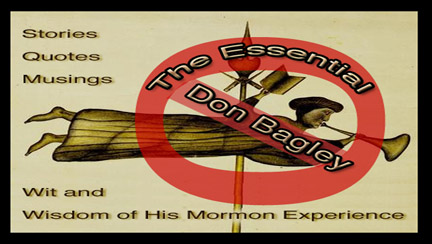
Directly to quotes

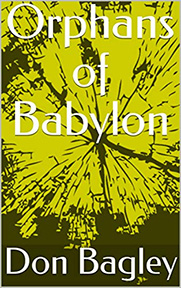

I
The oblate disc of the late sun slid down behind the mountain ridge like an Alka-Seltzer dropped by a dyspeptic god. Some low clouds had taken on the hue of iced tea when we left Grandma’s house. Dad said the three of us had to go work on a house we were to move into. It was the first we’d heard of it, after having lived at Grandma’s for a couple of months. Suddenly there was a house for us, but it needed work or something. We never did have a clue as to what was coming next. Just before we’d left Pennsylvania, our house had been put on the market while we were at school. After a long sweaty drive across the country, we’d been crammed into the home owned by our mother’s mother and her second husband, Charlie. We were ready for larger quarters, which didn’t mean we’d get them.
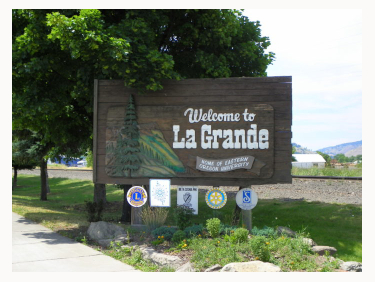 I slid into the front bench seat of the Plymouth station wagon next to Dad, and Jeff and Mark took seats behind us. The air outside was crisp, and the sky had gone navy blue. Lights were winking on in living room windows all around us as we drove through town. I saw a lot of inviting porch fronts go by with their glider swings and high backed chairs set around little tables for drinks or conversation. I imagined living in a hundred homes by the time we crossed the river and drove into the rural dark to the north. We were out of town, and my heart sank like the low lying agricultural plots that lined the raised pavement of the road. It was a weedy place we went to--a place where houses faced away from one another and driveways were gravel. The sharp odor of a road-killed skunk hung in the thick atmosphere like a foul omen.
I slid into the front bench seat of the Plymouth station wagon next to Dad, and Jeff and Mark took seats behind us. The air outside was crisp, and the sky had gone navy blue. Lights were winking on in living room windows all around us as we drove through town. I saw a lot of inviting porch fronts go by with their glider swings and high backed chairs set around little tables for drinks or conversation. I imagined living in a hundred homes by the time we crossed the river and drove into the rural dark to the north. We were out of town, and my heart sank like the low lying agricultural plots that lined the raised pavement of the road. It was a weedy place we went to--a place where houses faced away from one another and driveways were gravel. The sharp odor of a road-killed skunk hung in the thick atmosphere like a foul omen.
We turned left on another rural road called Blackhawk Trail Lane. “There it is,” said Dad, pointing to what looked like a double wide on a deep and narrow lot. The yard was lumpy with gopher holes and uprooted clumps of earth. We pulled into the driveway, the tires crunching on dirt and rocks, and we parked and went in. The place was tiny and stank of concrete and dust inside. Dad had borrowed several wobbly ladders and shop lights so we could go to work scrubbing the coal soot off the ceilings. Apparently the man who had slapped the house together from a cement pour and modular framing had heated the place with a coal furnace, which Dad had removed. I wondered how long my father had been working on the place in secret. I didn’t wonder why, because that would get me in trouble, and trouble was prevalent enough in my life without my efforts to increase it.
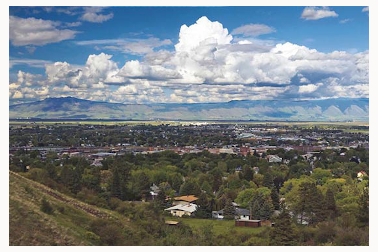 We had to stand on the ladders and work overhead with globs of a Play-Doh like substance that absorbed the soot, if you rubbed at it hard enough. The work was grueling for a fourteen-year-old boy, let alone a twelve and eleven-year old. Jeff and Mark were soon exhausted, and I wasn’t doing too well either. “You complain like girls,” said Dad, when we balked at the work. That’s how he talked when Mom and our sisters weren’t around. He took us back to Grandma’s house and we slept through our aches and pains in the bed the three of us shared. The next night would find us scrubbing at sooty ceilings all over again. Though framed with two by fours and siding, the house had the squeezed floor plan of a trailer--a single bedroom and bath filled the one end, and the other was crowded by a country kitchen and lilliputian living room. What had been the garage was divided into two bedrooms without closets. The bedrooms were closets themselves, and they were expected to house five children, no less. The baby would sleep in a corner of Mom and Dad’s room. The porch stoop had stairs on both sides and an iron railing, just like what you’d see in a trailer park. The overall feel was one of severe overcrowding. Eventually the fruit cellar under the house would be converted into a windowless bedroom for me, and I would welcome it, dank as it was.
We had to stand on the ladders and work overhead with globs of a Play-Doh like substance that absorbed the soot, if you rubbed at it hard enough. The work was grueling for a fourteen-year-old boy, let alone a twelve and eleven-year old. Jeff and Mark were soon exhausted, and I wasn’t doing too well either. “You complain like girls,” said Dad, when we balked at the work. That’s how he talked when Mom and our sisters weren’t around. He took us back to Grandma’s house and we slept through our aches and pains in the bed the three of us shared. The next night would find us scrubbing at sooty ceilings all over again. Though framed with two by fours and siding, the house had the squeezed floor plan of a trailer--a single bedroom and bath filled the one end, and the other was crowded by a country kitchen and lilliputian living room. What had been the garage was divided into two bedrooms without closets. The bedrooms were closets themselves, and they were expected to house five children, no less. The baby would sleep in a corner of Mom and Dad’s room. The porch stoop had stairs on both sides and an iron railing, just like what you’d see in a trailer park. The overall feel was one of severe overcrowding. Eventually the fruit cellar under the house would be converted into a windowless bedroom for me, and I would welcome it, dank as it was.
So when we moved in, Jeff and Mark and I were crammed into one of the garage’s half-rooms. A bunk bed was shoved against one wall, and the floor was covered with the mattress I slept on. My bed was constantly walked over and marred with dirty shoe prints. Jenny, who was seventeen, shared a room with six-year-old Liz, who angered Mom by involuntarily wetting her bed. Mom was easily frustrated by children, and would often tie Liz to a chair with clothesline rope. While her daughter grunted and struggled to free herself, Mom got a break to watch TV with the baby napping.
There was a huge detached wooden barn on the lot. It had an open area within that could be used as a garage, though it rarely was. On the backside was a tack room and stable just big enough for two horses. The side of the barn sported a chicken coop that looked to have been hammered together by the same madman who designed the sets for The Cabinet of Dr. Caligari. We had chickens in there, and they kept getting out through the uneven gaps in the structure. One hen ended up under the hood of Dad’s old pickup truck and rode with it to work and back. By the time we found the squawking and wounded bird, it had lost one eye. The other hens made short work of pecking it to death when it was shoved back into the coop.
I wanted a motorcycle, so I was delighted when Dad said he’d brought one home. My enthusiasm waned a bit when I saw the thing. It was one of those awkward step-through Trail 90’s Honda made in the sixties. Caked with mud, it wouldn’t even start, but Dad said we could clean it up and get it running, and we did. I wasn’t used to having things--my Christmas present had been two inner tubes for Dad’s bicycle. I rode the bicycle more than he did, so the replacement tubes counted as my gift. I wanted to like the motorcycle, though other kids made fun of it. They called it a girl’s bike, but I pretended it was a chopper, sleek and fast. I rode it up and down Blackhawk Trail Lane until a cop pulled me over. He stood so close to me that his name tag was in my face. “Glascock,” it read, and I struggled to suppress a giggle. “Something you want to say to me?” Officer Glascock asked. I shook my head, my eyes brimming. He asked where I lived, and I told him the little pink house down the road. “You’re a liar,” he said, “there is no pink house around here. And liars end up in jail, kid. Is that where you want to go?” I had to insist on the house and its color. It wasn’t my idea to move into the damn thing, and I wasn’t about to apologize for it. “Make sure you wheel that piece of shit home, and don’t ride it,” said Glascock, and I waited until he left to start it and cruise home. Dad banned me from riding it after that, and it became his possession, like most everything else.
II
Sundays were no fun in my father’s house. Jeff was twelve, so he had to get up early with me for priesthood meeting, a senseless waste of time. Priesthood membership was mandatory for every Mormon boy on his twelfth birthday. As we could hardly turn around in our room, putting on our scratchy church clothes was a hassle of elbow bumps and stubbed toes. After having embarrassed me with personal questions about my handling of my penis (and did I manipulate it for pleasure?), the bishop had approved me for the priesthood rank of teacher, a meaningless title for a meaningless avocation. This put me in the second stage of the Aaronic priesthood, a fraternity given to Joseph Smith by God Himself. Jeff was a deacon, which was the entry level priesthood category. Though we were brothers, we would never share a Sunday classroom, as those were divided by age. The Mormon church in town was an old brick chapel with stained glass windows like regular churches, only the windows portrayed Mormon scenes. One was of Joseph kneeling in the sacred grove to receive the keys of the gospel truth. “It looks like he’s sitting down to take a crap,” the bishop’s son said of the transcendent image.
Brother Sawyer, who also coached at the high school, led the teacher’s priesthood class meeting. “The Lord has given us the standards,” he said, “and it’s up to us to live them. We know that some people think it’s okay to drink coffee and smoke. Satan tells them it’s okay, and they believe him.” He had short greasy hair in a ring around his pattern baldness, which left the top of his head exposed and shiny in the yellowish fluorescent light. “Who do you think is trying to destroy your way of life?” he asked us. One kid knew. “It’s Nixon,” he said, raising one hand, “he’s polluting our water and air.” Brother Sawyer frowned. “The president is a good man,” he countered, “though not a church member. It’s the liberals and the civil rights negroes who are tearing this country apart. God marked the blacks for a reason. And if it weren’t for us LDS, America would die off and go zero population just like they want.” Jesus never came up during the lesson, not that I cared. I didn’t like Jesus any more than I liked my father, who had told me I was following the devil when I’d confessed my atheism back in Pennsylvania. “And you need to pray more, before you’re completely lost,” he’d said. “Do you like being a loser?”
He tried to cut costs by purchasing ever cheaper groceries. We had cold cereal and powdered milk for breakfast. Not one pizza was ever delivered to our home, and I didn’t even know that pizza delivery existed until someone at school told me about it. It sounded exotic, like a barbeque or a catered party--those things didn’t really happen, did they? I thought for a long time that meat was supposed to be tied up with string, like a kidnap victim or my little sister in the punishment chair. We drank kool aid and Donald Duck orange juice that came in cardboard cylinders. Coke was both expensive and a sin. “I don’t like the tang of the cola drinks,” said Brother Sawyer. “Seven up has a good tang, but Coke’s is just awful. I don’t know how the gentiles can stand it.” And steak was leathery, like the soles of a good pair of boots, I expected. Uncle Ben’s instant rice floated around in little puddles of steaming water on my dinner plate. Canned peas were easily smooshed under my fork. Any time we had a block of real cheese I would tear into it, slicing off fat chunks with a steak knife. Sometimes we had white grape juice, which I would pretend was wine. Other people had wine in their refrigerators and managed to get through the day without praying to Satan.
I began to skip church on a regular basis. I would just leave the chapel and walk the two and a half miles home. Dad was furious and started locking the house up. But I would still walk home and just wait in the barn until the station wagon came crunching up the gravel driveway. I figured I was better off with my thoughts than Brother Sawyer’s rantings. He’d named his oldest son Tom, without having ever read Mark Twain, who was very critical of the mess that is the Book of Mormon. “Chloroform in print,” Mr. Twain had called it, and he was right. I was made to read from the damn thing many times, and it was all “It came to pass” and “Yea, verily.” Five hundred pages of rubbish is what it was. I was reading Asimov, Orwell, and Vonnegut at the time and loving their works. I also read Steinbeck and Huxley. None of them went on about Jesus or God whatsoever. Two worlds were pulling me apart, and there was nothing I could do about it. To my father’s horror, I was developing a secular understanding of the cosmos. How could he re-direct me away from Satan? Without having to spend any money, of course. How could he raise a righteous son for free? It was getting harder for him to strike me every day. But I needed the punishment badly. I can’t imagine his dilemma. He never did try being nice. That wasn’t an option, I suppose.
Moving me downstairs at least got me out of his sight for hours at a time. I helped him paint the fruit cellar white and we made a wood platform for my mattress in there. A closet was installed and I painted its sliding wood doors with two arrows: one pointing up, and one down. I put up an Easy Rider poster of Peter Fonda on a Harley with a red, white and blue helmet. I had a cheap little Monkey Ward record player and a second hand cassette deck that was battery powered and had a two inch speaker built in. The room was my personal space, and I went a little mad in there. One time I checked out a cassette tape of “The Well Tempered Synthesizer” by Carlos Williams from the library. It was an album of synthetic classical music by Bach and Scarlatti. While it played back, I dressed up in my long john thermal underwear with a jockstrap on the outside like Alex from A Clockwork Orange and marched around the room in sync to the burbling electronica. I put my boots on and laced them up. I wished I had a porkpie hat. I tried to get away with smoking a cigarette in there, but Dad smelled it from upstairs and made me stop. One time I was naked from the waist down, and I tucked in my dick like the kid in Pennsylvania had me do before he humped me. I stuffed socks under my t-shirt to simulate tits, and I masturbated. I called myself queer in the mirror. Carlos Williams had a sex change and became Wendy Williams.
One fair and partly cloudy day I walked over to Riverside park, which sat just two blocks away and fronted the Grande Ronde River north of town. The park had a large wooden pavilion that was covered overhead and floored with concrete. Picnic tables within were bolted down in neat rows, and the place was popular for gatherings of normal families. A wedding reception was in full swing with some drunk guy making his congratulations through a PA system. Metal tubs had been filled with ice and beer bottles, and I managed to grab one unnoticed. It was a Miller High Life, my first beer. I enjoyed the yeasty, bubbly beverage as well as the soft buzz that followed. “The Champagne of Beers,” the label on the bottle proclaimed. Days later, when we were alone in the car, Dad told me that a concerned church member had seen me drinking beer at the park. “I can’t believe,” he complained, “that my son is a fourteen-year-old alcoholic.” This from a man who believed in seer stones and a gold bible.
III
At six my little sister, Liz, was blond and wiry. No doubt her thin wrists helped her to wriggle free when Mom left her tied to a chair. Liz liked Sesame Street and board games, and she was easy going and personable. But her fatal flaw was nocturnal bed wetting, which resulted in extra work for Mom, who was not known as the long suffering type. Mom bitched, so Dad bought an expensive and rather draconian device from a slick salesman who dropped by to demonstrate it. It consisted of a conductive sub-sheet that was made to be slipped under the fitted sheet on a mattress. A wire connected the sheet to a table top alarm box. When the salesman poured water onto the top sheet, a mild electric current coursed through the sub-sheet and a fire alarm sounded from the box. Every night that Liz wet the bed, she would be awakened by a shock and a fierce alarm that roused everyone else in the house as well. To add to Liz’s embarrassment and humiliation, a calendar marked with wet and dry nights was prominently displayed on the wall at eye level for all to see. The teasing that ensued drove Liz into hiding in her shared bedroom. She began to apologize and stammer in the middle of sentences.
Jenny was seventeen and voluptuous with long auburn hair. Boys asked her out a lot, and she dated with some frequency. She wore tight blue jeans, and Dad was frustrated with her burgeoning sexuality. Once when she and I were sitting at the cramped dining room table, he came in and took a seat. “Jennifer,” he said, “it’s time that I spoke to you about boys.” Jenny looked at him curiously, and I cringed in anticipation. “I’m sure you think you know everything,” he went on, “but I have experience and wisdom in these matters. Boys will attempt to take away your purity, which is the most valuable thing you have. If you continue to dress immodestly, they will notice your figure, and they will double their efforts until they succeed. The adversary would like nothing better than to strip away your chastity and see the hands of boys and men on your bare flesh. They will want to undress you and have their way with you. It’s most important for you to hold fast to your covenants and standards if you care at all for your spiritual salvation.” I looked over at Jenny, and she was snorting sotto voce to hold back laughter. Her eyes had widened with amusement. My face burned, and I felt a sudden wave of revulsion and shame. I had to stand up and excuse myself, because I suddenly wanted to be alone very badly. I went down to my basement room and cried into my pillow without knowing quite why. I couldn’t look my father in the eye for the rest of the day.
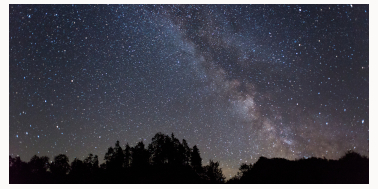 One velvety winter night I stepped out of the little house for a smoke. The air was so cold I could blow smoke rings with just my breath. I lit a cigarette and drew on it, watching the tip flare and bathe my fingers in an orange glow. The Milky Way was a Jackson Pollock splash of whitewash across the great black dome of the atmosphere. I thought about the whole world grinding out its rotation in silence, suffering far underfoot where rock was crushed into magma by violent pressures. Just because we couldn’t see it doesn’t mean it wasn’t happening. A lot of things go unnoticed, I thought. Then I saw a falling star skip over the sky and fade out near Mount Emily. The night cold numbed my hands and crawled up my field jacket sleeves, driving me back into the sleeping house.
One velvety winter night I stepped out of the little house for a smoke. The air was so cold I could blow smoke rings with just my breath. I lit a cigarette and drew on it, watching the tip flare and bathe my fingers in an orange glow. The Milky Way was a Jackson Pollock splash of whitewash across the great black dome of the atmosphere. I thought about the whole world grinding out its rotation in silence, suffering far underfoot where rock was crushed into magma by violent pressures. Just because we couldn’t see it doesn’t mean it wasn’t happening. A lot of things go unnoticed, I thought. Then I saw a falling star skip over the sky and fade out near Mount Emily. The night cold numbed my hands and crawled up my field jacket sleeves, driving me back into the sleeping house.
The school bus was like a blunt yellow Cerberus promising a fresh round of mauling with its every appearance. It sat there at the corner, squat and threatening, waiting for me and Jeff to board it and take our medicine. The first time we rode it the damn thing broke down, and the fat driver waddled out to look under the hood. I stood up to see out the front window, and a kid they called Pussy Lips shoved me back down into my seat. “Hey,” I said, “knock it off.” He nodded at a mountainous lunk seated next to him. “My big brother will kick your ass,” he said. The mountain looked at me and nodded. So I knew the bus ride into town was going to suck. And every ride did. Jeff tried sitting by the driver, but the bullies still hit him as they pushed past him while boarding. My hair was getting long, and meat-fisted farm boys started grabbing at it, yanking my head around. It seemed I was taking heat wherever I went among people. I wondered what the fuck was wrong with everything that it had to be so shitty all the time.
IV
“I’ll give you a ride to town every morning when I go to work,” Dad offered, knowing that I hated riding the morning school bus, “but you have to attend seminary classes at the church.” He had a knack for turning other people’s suffering to his own ends. The man wanted me to spend time with his god. I accepted his offer and began rising before dawn to avoid the churning hell of the bus. Jeff, who at twelve years old was too young for the sleepy, pre-school indoctrination meetings, was left to be swallowed up daily by the diesel hellhound. I still feel bad about that. But the kids in seminary didn’t approve of my hippie mane, and one girl even stood up and recited a Biblical passage proscribing long locks for men. Holly Berry, her parents called her, and she was a subtle one. “Scientists are stupid,” she proclaimed loudly, “they say monkeys turn into people. But monkeys get old and die, and they’re still monkeys. Evolution is stupid.” I was thinking her family must be so proud, when the seminary teacher, Brother Cohen, interrupted. “I don’t think that’s quite what evolution describes, Holly. It’s more a gradual change throughout very long periods and over many generations.” Holly’s face twisted. I imagined she’d be very animated at the dinner table that night.
Brother Cohen was an aberration among the local Mormons. He seemed to sense something was lacking in my life, and he invited me to do his yard work for a buck an hour. I was delighted for the opportunity to earn, and I spent a few Saturdays at his house in town. It was a grand home with columns and a portico in front. The whole building was white and looked to have been recently painted. His wife served me freshly squeezed lemonade, and he paid me cash at the end of every work day. I bought albums by Black Sabbath and Alice Cooper, and my father rolled his eyes. He knew better than to trust me with any money, and here was the proof, right here. Our seminary class conducted scripture chase contests that consisted of finding key verses in a hurry. I studied and annotated my Bible daily, soon rising to the rank of first in class. That pissed off one of the other kids, a thick bully with narrow eyes and a straw cowboy hat. He accosted me in the church hall one morning with a Barlow knife. “I’m gonna hack off your sissy hippie hair,” he threatened while shoving me into a wall. I pushed away from him and fled. Later, when the seminary students posted photos of themselves on a corkboard, he sliced mine with his blade. I still have that picture in my old photo album.
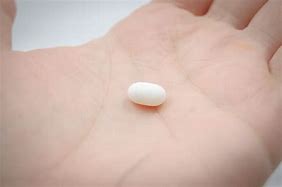 Dad, ever the monitor of morality, searched my dresser drawers for contraband and messed up my folded clothes on a daily basis. So I searched his damn dresser while he was at church to see how he’d like it. I found a carton of rubbers, which didn’t make sense, because Mom was constantly pregnant. Then I left a white Tic Tac mint in my top drawer on purpose, because it looked like a pill. Sure enough, Dad confronted me the next day with his find. “Are you trying to blow your mind?” he wanted to know. I grabbed the Tic Tac off his palm and popped it into my mouth. “Just my breath,” I said, blowing a cool exhalation. He didn’t search my drawers for a while after that.
Dad, ever the monitor of morality, searched my dresser drawers for contraband and messed up my folded clothes on a daily basis. So I searched his damn dresser while he was at church to see how he’d like it. I found a carton of rubbers, which didn’t make sense, because Mom was constantly pregnant. Then I left a white Tic Tac mint in my top drawer on purpose, because it looked like a pill. Sure enough, Dad confronted me the next day with his find. “Are you trying to blow your mind?” he wanted to know. I grabbed the Tic Tac off his palm and popped it into my mouth. “Just my breath,” I said, blowing a cool exhalation. He didn’t search my drawers for a while after that.
I’d had a growth spurt and couldn’t fit my feet into my old boots anymore. Jenny, who’d had a growth spurt of her own, needed a new pair of immodest jeans. Mom put the baby in a bassinet, which went into the back of the station wagon, and drove us to town. We turned onto Adams Avenue, La Grande’s main drag, and we drove past the Rexall drug store and the Granada movie theater to JC Penney’s. Mom parked the car in the lot behind the department store, and we got out. “What about the baby?” I asked, and Mom assured me that she’d be all right if left in the car. “But what if somebody child-molests her?” I clumsily posited. “That would probably kill her,” said Jenny, and she and Mom chortled. I didn’t get their sense of humor, but I did get my boots. They were a necessity in La Grande, what with its heavy winters. The soles had a waffle-like pattern, and locals called them waffle stompers, which was close to what they called Mormons: cricket stompers. That I found funny, though my family was less amused by it.
One overcast and gloomy Saturday Dad had me and Jeff and Mark pile into the pickup with garden tools in the back. He drove us into an old neighborhood in town and stopped at two small houses. He owned them, he said, rentals. We worked all day clearing the brush and mowing the lawns. I remember someone peeking out a window and watching us labor. I didn’t know the person any more than I knew the house. It was a mystery to me how my father, who told me every day he had no money, suddenly came into a couple of rental properties. I didn’t get a dime of allowance or any school lunch money. I lived like a junkyard dog, and he was a landlord. Such thoughts were unproductive, though, and there was plenty of work to be done. My brothers and I pulled a lot of weeds and trimmed a lot of brush that day. We piled the branches and weeds up in a big heap on the corner of the second lot and burned them. The smoke from the fire curled up against the stubborn gray sky. Clouds were obscured by other clouds.
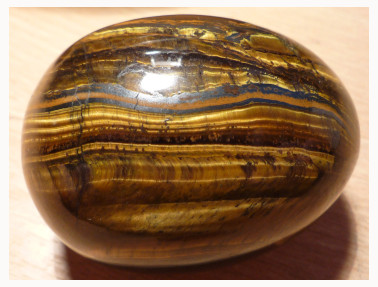 This is the tiger’s eye agate. See the layers? It’s a lighter tone seer than the one Joseph had. That was a chocolate. I sometimes think that it was the more powerful, but the tiger’s eye is the prettier. Faith is faith. Before I tell you of my vision, which related with this stone, I want to share that I have a testimony that Joseph Smith laid out the Lord’s plan in the clearest words ever written. There were others in the church at the time of Joseph, and I do believe that the parlance is contemporaries, who possessed similar stones. I don’t mean to brag, but I have two hundred books on church history. I want to add that I have books written about church history by non-members. It’s important for me to read the lies to understand the truth.
This is the tiger’s eye agate. See the layers? It’s a lighter tone seer than the one Joseph had. That was a chocolate. I sometimes think that it was the more powerful, but the tiger’s eye is the prettier. Faith is faith. Before I tell you of my vision, which related with this stone, I want to share that I have a testimony that Joseph Smith laid out the Lord’s plan in the clearest words ever written. There were others in the church at the time of Joseph, and I do believe that the parlance is contemporaries, who possessed similar stones. I don’t mean to brag, but I have two hundred books on church history. I want to add that I have books written about church history by non-members. It’s important for me to read the lies to understand the truth.
Through some of my closer acquaintances in my ward--we have our own Book of Mormon study group-- I heard about a guy outside of Nephi, off I-15. You know where that billboard is with the advertisement for the crime novel with no sex or swearing in it? My wife is reading it now, by the way. It keeps her from thinking too much. The funniest thing is she says I think too much. The turnoff at that billboard is how you get to this guy’s shop. Every stone he shapes and polishes is of the same egg-like shape, and we don’t know why, but that shape is the best for a seer. I mean, this guy is really something. He runs the whole thing as an MLM, you believe that?
That’s the reason I invited you to my house today. That and the pie we’re having. You like it? My sweetie pie makes the sweetest pie. My mother always said she wasn’t partial to desert, so when I was courting, and she was along, no pie for me. Mother was a saint. I used to feel guilty for being the difficult child that I was. I deserved every beating, and she said I gave as good as I got. After Dad had the heart attack in the garage, and you know, I can’t remember now if he was trying to lift the transmission or the engine block without the crane, Mom lived here. You know, until the end. They’re together now in the Celestial Kingdom, and I don’t doubt that she’s after him about his TV watching. She hated that, but Dad had a Zenith console with space command remote control. It had zoom, which I think was the reason for the name space command. He said it was a 26” which was the largest TV tube in mass production at the time. This was before the 27”. Remember those? I wanted one so bad, and I asked dad to get one, but he said that making the screen one inch bigger was a gimmick for suckers. Still had the Zenith when his heart blew up.
Okay, brother, here’s how it works. This seer stone is free to you. You can walk out of here today with this authentic seer stone replica, no charge. All you have to do for it is to sell four stones to others and you will own it. You give me sixty dollars startup cost, and I reimburse you fifteen dollars for every stone you sell for me. After selling four stones you will have earned back the entire startup cost, and the stone is yours to keep and cherish as a complimentary gift. Every stone that you sell after that will pay you fifteen American dollars. What you do with all that money is between you and your tax accountant. None of these transactions are burdened with unnecessary regulations, which I find refreshing in these times. I’m of that faith that what a man earns is earned and done. No one will convince me that the deep state deserves a chunk of my money--what’s to stop them from taking it all?
This is the best MLM that I have affiliated with in my own personal life, and I have been with some good ones. I was with the bio-rhythm supplement monitor, the one that worked by quantum scientists. This one I can at least understand. And I believe it. You might be prompted to recall my little testimony a few minutes ago? And men of our faith don’t take testimony lightly. Quite the opposite. It is applied only to the deepest spiritual feelings we have. I prayed one night and then slept with this very stone under my MyPillow, and I dreamed a dream that the ‘Sear Stones’ brand would go public with an IPO, and now I want to up my previous offer to twenty dollars a stone, if you agree to invest in a cash pre-stock fund that will immediately pick up the stock the minute it’s issued. I hardly ever offer anyone the team deal, unless they come highly recommended from a carefully vetted source. I don’t listen to anyone under bishopric position. So yes, you had a bishopric...or higher...endorsement. I have an excellent memory for these things. This disclaimer you’ll sign will keep you open for the stock option, but you don’t have to decide that now. If I were to attempt anything more than persuading you to sign, I would throw myself out, and this is my house! Sign now.
In Memory of Ken Westenskow
I’m sure you’re glad to see each other in our father’s house, children, but if I’m to teach you anything-- and I mean to--I’ll need your cooperation in the form of quiet and reverence. So if we could all just settle down...Krytsalin, I know that you and Desideriada have your little things to talk about, but I also know that you two girls live only one street apart, and you have all the time in the world to hang out between church meetings. I know your mothers, too, and I’m sure you would like me to report your reverence in class to them. I thought so. Sister=Glyeth-lesson.jpeg
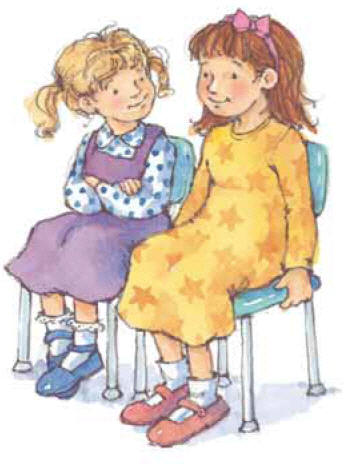 Today’s lesson is about courage, boys and girls. Do you know what courage is? Krystalin, I see you hand up. A dog? You think courage is a dog? He’s on TV? Okay, then, this is another lesson for us. Should we believe the things we see on television? Yes, Teygan, we should believe it when we are watching church conference broadcasts with our parents. And I hope that we are reverent and obedient when we do so. I know that Teygan is working very hard to overcome his fidgeting during conference viewings, because his father told me. Teygan is lucky to have a kind and loving father with a light touch. Few men have such strong, gentle hands. Thank you, Teygan.
Today’s lesson is about courage, boys and girls. Do you know what courage is? Krystalin, I see you hand up. A dog? You think courage is a dog? He’s on TV? Okay, then, this is another lesson for us. Should we believe the things we see on television? Yes, Teygan, we should believe it when we are watching church conference broadcasts with our parents. And I hope that we are reverent and obedient when we do so. I know that Teygan is working very hard to overcome his fidgeting during conference viewings, because his father told me. Teygan is lucky to have a kind and loving father with a light touch. Few men have such strong, gentle hands. Thank you, Teygan.
Back to our lesson, now. Before class today, my son, David, who sits among you, asked me why we have to have church. I could have punished him, but that wouldn’t help, would it, children? Even though David’s question was inappropriate, it does have an answer. There are times in life when it takes courage to do as we are told. I know that we don’t have any windows in the classrooms down here, but if you go upstairs to where the chapel and the bishop’s office are, you may look out the windows on the west side of the building and see the park. I’m sure that some of you have seen children in the park during our church services. Those are the children of people who lacked the courage to face the adversary, with all his lies and promises, and say no. Can you imagine how it hurts the Lord to see those children frolicking on the grass under a sky as blue as a swimming pool liner? Their fearful parents sit idly by and drink coffee. That’s right, ewwwww.
And that’s just one example. Whenever you see the adversary at work, you are being tested. It’s what he does. We’ve talked about immodest clothing for girls, and how the devil has control of the fashion industry. You girls know what I mean. You know the girls who wear spaghetti straps, off the shoulder dresses, dresses that end above the knee, outfits that show bare midriff, low necklines, shoulder cutouts, skinny jeans, halter tops, tube tops, distressed, torn clothing, piercings, tattoos, bikinis, Daisy Mae cutoff shorts, or tight dresses. I have taught David that whenever he sees one of these on TV, he is to shout, “immodest!” Haven’t I, David? He calls me into the room, because he trusts me to check on his ability to identify the threat to his chastity. I can vouch for him. He’s good at seeing the inappropriate clothing that’s giving him bad thoughts. Do we want to think bad thoughts, children? Of course we don’t. And that’s why we must give them so much attention. The Lord wants us to learn how to police ourselves. David, you have a question? No, it doesn’t mean we arrest ourselves and throw ourselves in jail.
Self-policing works this way: Suppose you had a personal policeman to follow you around wherever you go. His job is to keep you from breaking the law and getting into trouble. That would be the best way to live, if you could. But there aren’t enough policemen for us to all have one of our own. Our town has fewer than ten officers. Jesus knows this, because he sees and knows everything. But he’s busy with the sheep of other folds, so it’s up to us to police ourselves. We can be our own policemen. And we can arrest ourselves, David. Don’t worry, there’s no jail. Arresting yourself means stopping yourself from doing or thinking bad things. Whenever you want something that’s not good for you, that’s bad, and you should arrest yourself from wanting it. If you want to play on Sunday instead of going to church, that’s a bad thing to want. Arrest yourself from thinking it, and make Jesus smile. Maybe you want to watch something on television, because someone at school told you the program is okay, but your parents have told you that it is offensive to the Lord. You must have courage, and you must obey your parents and the Lord without question. Your friend may have been told by the adversary to tempt you with the offensive television show. You are being tested all the time by the adversary.
When Brother Glyeth and I watch television with our children, we put our values first. It doesn’t matter whether a program is popular or not, it has to be uplifting and faith-promoting. It’s not okay if people are shown smoking cigarettes and drinking coffee. Sin is sin, and even when it’s just TV, Satan is working on our ability to resist sinful thoughts. The more we see, the more we think of it. Soon enough, it’s okay to drink coffee in our minds. Then we begin to crave it like a drug. That’s because it is a drug. Then the cigarettes are okay, so we must use those as well. This leads us to drinking and gateway drugs. I know that none of this makes sense to you yet, but it will. Church authorities understand this perfectly, and they entrust me to teach it to you. Something as simple as an offer of coffee candy on the playground can start you down the wrong path. What happens to a train after it’s gone off the tracks? Does it just get right back on? No, it sits there, derailed.
I have a story about someone who became derailed, and I’d like to share it with you. When I was a little girl, there was a boy in my ward named Cory. He was my age, and we sat together in the Rainbows class on Sundays. This is what we call CTR 6 now, your class level here. Cory’s father was inactive, and he stayed home every Sunday. The bishop begged and pleaded with Cory’s father to attend, but the adversary had hardened his heart, just like wicked King Noah in the Book of Mormon. I remember overhearing the bishop tell my father that Cory would come to a bad end. We call our bishops “judges in Israel,” because they have wisdom and discernment. Remember this the next time you have a personal interview with the bishop. He knows more than you, and if any of his questions bother you, it is because you need to be bothered.
One day, in rainbow class, Cory stood up from his chair and said, “look at my Lamanite.” He pulled down his pants in front of the class, and, just as he did so, a bearded man leaned in from the door to the hallway and chuckled. The teacher ran to the door, and she went out into the hallway, but the bearded man had gone. His work was finished. Cory quit attending church when he was twelve. His father said he didn’t have to go. His father, who drank beer and associated with rough men, denied him the light of Christ. That man was the worst father I have ever seen, and his wife divorced him and re-married in the temple.
But it was too late for Cory. He was seen drinking a beer at a gentile wedding in the park when he was only fourteen. How long do you children think a wedding in the park will last? Our temple weddings are eternal. The Lord has blessed us with eternal family. When Cory died, he didn’t join his father in heaven. They had never been sealed in the temple. The reason Cory died is that he let the adversary lead him to death, because he wasn’t brave enough to say no. He said yes to the beer, and he said yes to the gateway drugs, and he said yes to the devil himself. Cory preached against the church. One night the bishop caught Cory trying to break into his pickup and steal his hunting rifle to sell for drugs. They struggled, and the bishop shot Cory in self-defense. That was fine for Cory, but the bishop had to live with shooting a young man for the rest of his years. Don’t be like Cory or anyone else who has left the tracks. Stay brave, and stay on track, children. Before we say our closing prayer and adjourn the class, I want to take the opportunity to bear my testimony that the church is true, and Joseph Smith was a prophet of God who was tasked with restoring the church of Jesus Christ on Earth. I know that he loves us and will come soon to return the Earth to its paradisiacal glory, amen.
My teenage brothers and I spent many an afternoon watching movies on television. We had a 19” color TV on a metal stand. Dad was pretty basic about that stuff. The three of us would sit on the couch and munch some homemade popcorn with salt and butter. Dad bought the seeds by the quart jar. He encouraged us to fill up on the corn by locking the cupboard with the crackers and snacks. The seed jar was kept out, and we always had butter or (yecch) margarine. We shoved the popped corn into our hungry mouths and growled at any little sister who approached with that wide-eyed needy look. The girls got to live in the house. They were coddled. We three boys had gone feral from living in the garage too long. Mom was afraid of us. Dad was counting the days till we moved out of his garage and served missions for Mormon Jesus (his fantasy).
Sometimes I would be high from an early afternoon joint, but mostly I was sober on Saturday afternoons. I wanted to see something adventurous on TV, and so did Jeff and Mark. I would say that the following movies were our Saturday favorites:
The Seventh Voyage of Sinbad
King Kong (Fay Wray version only)
The Incredible Shrinking Man
Jason and the Argonauts
The Naked Prey
House on Haunted Hill
The Tingler
The Golden Voyage of Sinbad
Thirteen Ghosts
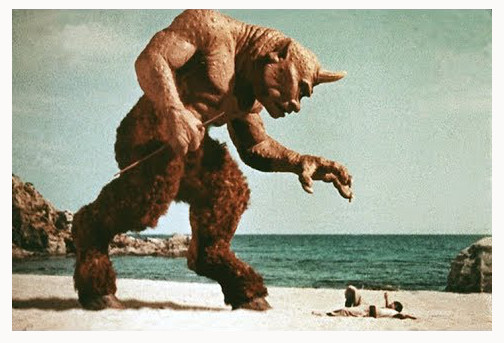 So there was a Ray Harryhausen and William Castle dominance to our viewing preferences. Those guys were like heroes to us. Also Vincent Price, and the Hammer Film actors. In addition to the British Hammer films, we enjoyed showings of the Universal Studios monster movies from the thirties and forties.
So there was a Ray Harryhausen and William Castle dominance to our viewing preferences. Those guys were like heroes to us. Also Vincent Price, and the Hammer Film actors. In addition to the British Hammer films, we enjoyed showings of the Universal Studios monster movies from the thirties and forties.
I have three of the listed movies on DVD, and I watch these yearly. Some things really stick with you, and it’s not something you think of beforehand, but it seems inevitable in hindsight. As Saturday evening approached, the boys cleared out of the living room, and the girls came in to watch the prime time schlock that held no interest for us. Sometimes Dad was watching with the females. Other times he was mysteriously out, often till midnight. He said he had long school board meetings, and I had no reason to doubt him. From my experience the man was capable of sitting through any length meeting without going nuts. I had no such capacity, myself. Unless I got high and passed out somewhere. I reckoned I was capable of that.
As soon as Dad brought me home from the Greyhound stop he started in on me. “Your hair is excessively long. Didn’t they teach you any values at the boys ranch?” It was like I’d never been gone. The Elmira house was three or four times the size of the La Grande house, and I got my own bedroom. I put up a couple of posters that Mom tore down and threw away while I was out. One poster was an Alice Cooper calendar and the other was an ecology illustration with an Earth goddess depicted in front of a healthy Earth. Sinful stuff.
At that time the TV news was abuzz with the approach of a newly discovered comet named Kohoutek, after its discoverer, Czech astronomer Lubos Kohoutek. I was always interested in astronomical events, so I followed the comet news closely. I was looking forward to what was predicted to be a fantastic display. Scientists theorized that the comet would throw a very large tail, perhaps halfway across the night sky. I wouldn’t have to wait until the reappearance of Halley’s comet in 1986 to see a cool comet. People were talking about it everywhere.
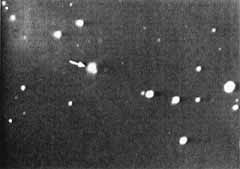 Jeff told me that Dad had told him the comet was bringing Jesus back for the second coming. The brethren at church knew it to be so. And these men were led by a real prophet, not some half naked rock star on a calendar in a teenage boy’s room. My father thought that I saw rock stars as my leaders, because you gotta slavishly follow someone, don’t you? I just preferred rebels to leaders, is all. To me, leaders were a bummer. Take my father, for instance, who ruled the house with an iron fist and didn’t stop hitting his sons until they hit back. Then he switched to deprivation and insults for control mechanisms. “Yee haw!” I said, “Jesus riding the comet on down like Slim Pickens on that atomic bomb in Dr. Strangelove.”
Jeff told me that Dad had told him the comet was bringing Jesus back for the second coming. The brethren at church knew it to be so. And these men were led by a real prophet, not some half naked rock star on a calendar in a teenage boy’s room. My father thought that I saw rock stars as my leaders, because you gotta slavishly follow someone, don’t you? I just preferred rebels to leaders, is all. To me, leaders were a bummer. Take my father, for instance, who ruled the house with an iron fist and didn’t stop hitting his sons until they hit back. Then he switched to deprivation and insults for control mechanisms. “Yee haw!” I said, “Jesus riding the comet on down like Slim Pickens on that atomic bomb in Dr. Strangelove.”
As it was, the comet fizzled and was barely visible to the naked eye. It didn’t look large enough to hold an entire Jesus. The experience reminded me of the Mormon leader’s prediction that man would never land on the moon, because it was a superior planet to the Earth. Never mind that the moon is neither a planet nor superior in any way to the Earth. I watched the moon landing with my father, who hadn’t believed in it before it happened. Then the point was moot. This is how I grew up, with one failed prophecy after another, and the complete silence which followed each false prediction. I never again heard my father say the word Kohoutek.
I was twelve when I knew the Baker brothers. David was my age, and he was a fellow deacon at the Valley Forge Ward. He and I passed out the pieces of bread and cups of water--jail food--to the Mormon congregation on Sundays. It was their communion, or sacrament, as they say. David’s brother, Noel, was fourteen, and he was a bad boy--smoker. If he kept up his ways he would have become an apostate at eighteen. I’m sure he didn’t change, but how would I know? My father was soon to be run out of town under a cloud. This would happen again, and then again in other towns. The devil got people to go after my father, due to his extreme righteousness. To me, he was just an asshole, but I wasn’t allowed to say it. Tithe-paying Mormon men are righteous by definition.
David invited me to stay over at his house in Valley Forge. I lived a half-hour’s drive away in North Coventry Township, a mud and cowshit spattered county forty minutes out of Philadelphia. It might as well have been forty years out of Philly. It was a miserable place for a boy from New York City to live. Our Mormon church was in Valley Forge, which was lucky for the Baker boys, as I had a half hour each way commute to church and there were three meetings on Sundays, which meant six hours in the car. I’d stay overnight Saturday at the Baker’s and go straight to church in the morning. Five minutes, for once.
David and Noel had some cool stuff. David had a telescope with a sun filter. You could look right at the greenish sun, and you could see sunspots. That was awesome. Noel had a lot of science fiction books, and I borrowed a couple. One was by Isaac Asimov. It was a science fiction detective story set on another planet. I read a lot of Asimov’s books. Great stuff, I think. Noel also had a couple of books written by a guy who claimed to have traveled in flying saucers. He said the aliens took him to the moon, and the far side is forested with water and an atmosphere. By the time I read the book the Apollo astronauts had already circled the moon and seen the other side. There was nothing different about it. The UFO guy had made everything up, just like Joseph Smith with the Book of Mormon.
Out back of their house, the Bakers had a large pigeon coop made of wood and chicken wire. You could walk around in there among the birds. David said that he and Noel would release a couple of pigeons, and the birds would always fly back home later. One pigeon had his tail feathers splayed as if someone had broadsided his ass end with a shovel. Noel and David called him Turkey Butt. Three years on, when I was at the boys ranch, we had a bunch of chickens, and one of them had the splayed rear feathers, so I named it Turkey Butt. Life provides me with little touchstones like that.
At church the next day, my youngest brother, Mark, would tease Noel by singing, “the first Noel, the angels did sing...” He couldn’t think of any more lyrics as he was busy laughing and running off. Noel had a sense of humor. He called me Bags and shared a cigarette with me behind the church. Once, when I was passing the sacrament. Noel took out a pencil and poked holes in all the paper cups, letting their water drain into the chrome tray. I doubled over laughing. A couple of years after that, when we were living in La Grande, Oregon, my brother, Jeff, was passing the sacrament, and I used a pencil to poke holes in his sacrament cups. He busted up too, just like I had in Pennsylvania. Another small provision from the feast of my life. Echoes from my weekend at the Baker’s were with me for years. Even now, I remember that Saturday at their house.
When it came to bedtime, their dad, Brother Baker asked if we wanted tiger milk. Noel and David said, oh boy, and I figured, sure, whatever the hell tiger milk is, the Baker boys like it, and I respect their taste. I knew it was a bedtime beverage, and I assumed milk was involved. Would it be more like a shake or like a cocoa? We were to take it in the bedroom upstairs, so we waited there in our pajamas. Brother Baker brought the drinks up on a tray, and I took one. The plastic cup was hot, and steam was rising from the white liquid it contained. I took a cautious sip. It was just hot milk with nothing added. I found it awful. Mmmm, said David. My mother told me later that Noel set fire to the drapes in their living room, and the Bakers didn’t know what to do with him.
I met our class president through a kid who sat next to me in math. We were seventh grade and studying Algebra. The kid next to me said he thought I had a good sense of humor, despite the fact that I was Mormon. I was the only Mormon kid in the school, and many kids gave me a rough time over it. I thought of myself as a desperate survivor, and I made up puns and jokes to distract the bullies for a moment to give me a head start. Those were some hard hallways in that middle school in Pennsylvania. So one day I’m pressing through the hall crowds with the kid, and he yells, “hey, Bob!” And this boy with curly blond hair that was almost too long for the dress code turned around. He came over and shook my hand like he’d been expecting to meet me. He was familiar with me in a hurry, and I figured it was because he was political, being class president and all. “Don,” he said, “I’d like you to come over to my farmhouse and spend the day with me some Saturday.” Now I was thinking charity, because almost nobody liked me. Even the teachers disliked me. My father was their boss, and I was surprised with their rancor, because I had a lot to learn. Maybe this Bob kid could teach me some social skills. He should be an expert at such things, I figured, being class president and all.
It was a two mile walk across North Coventry township to Bob’s farm. I couldn’t get a ride over from Dad, because he didn’t do chauffeur work unless it was church or money-oriented. He moved us from New York City to that godforsaken region of east Pennsylvania that produces quarterbacks and serial killers, but when it came to getting around, that was our problem. As I walked past long farm properties, I recalled the pleasure of crawling under turnstiles to ride the subway for free. In New York City, everything was right where it needed to be. We didn’t even have a car while we lived there--no need. I looked at the instructions I had on a piece of paper, and I knew which way to go at each intersection of narrow rural streets. The farmhouse mailboxes were all out in front of the farms along the county road. I had to walk in the grassy side ditch sometimes when tractors and hay trucks passed. Finally, I found Bob’s mailbox with his address on it.
The property was a big lot beside a creek, I don’t know how many acres--forty or more. They did dairy and had a bunch of cattle. The barn looked kind of like an airplane hanger. It was metal. The house was a two story Colonial style with lots of rooms inside. I think in the old days people would just stay in one room most of the time so that it was the only space they had to heat. A parlor with a fireplace would do for most of a winter’s day. At night they had brass bed warmers that had been filled with coals from the fire. The chamber pots amused me. People kept them on shelves anymore as collectibles. Bob’s house had all these details going for it. It was easy to see his family was wealthy. I lived in a pretty good sized house myself at the time, but Bob didn’t know that. I couldn’t understand how he’d be interested in me, but he got us both cereal, and we watched Josie and the Pussycats on TV. “I like Melody,” he said. She was the mute Blond drummer. When she giggled music came out of her. Out of her ass, I supposed. “I love her,” said Bob, “are Mormons allowed to watch cartoons?” I didn’t know how to answer without sounding weird. I didn’t want to represent Mormons, and I hoped that wasn’t what Bob was thinking--that I was a spokesperson for my father’s religion. I told Bob that I loved Melody, too.
 After the cartoon, Bob left the room and came back with a Ouija board and a plastic planchette. The board was covered with letters and numbers, and the idea was for each player to rest the first two fingertips of each hand on an edge of the planchette. Once a local spirit was invoked, the planchette could be manipulated by the spirit to spell out messages from beyond. People like my Mormon parents were afraid of Ouija boards and banned them from their homes. It seemed to me that they believed the things were possessed or something. Anyway, Bob and I had our fingers on the planchette, and it began to slide over the board, stopping on a letter here and there. I wasn’t moving the planchette, so I figured it was either Bob or a spirit. The smart money was on Bob, but he denied he was doing it. Why should I disbelieve a fellow I’d known for all of three or four hours? Besides, the spirit told us who it was, or had been.
After the cartoon, Bob left the room and came back with a Ouija board and a plastic planchette. The board was covered with letters and numbers, and the idea was for each player to rest the first two fingertips of each hand on an edge of the planchette. Once a local spirit was invoked, the planchette could be manipulated by the spirit to spell out messages from beyond. People like my Mormon parents were afraid of Ouija boards and banned them from their homes. It seemed to me that they believed the things were possessed or something. Anyway, Bob and I had our fingers on the planchette, and it began to slide over the board, stopping on a letter here and there. I wasn’t moving the planchette, so I figured it was either Bob or a spirit. The smart money was on Bob, but he denied he was doing it. Why should I disbelieve a fellow I’d known for all of three or four hours? Besides, the spirit told us who it was, or had been.
It was the ghost of a civil war soldier. He had died in battle on this very property, and his remains were by the creek. Bob said if we could find the dead soldier’s bones, we could put him to rest. I didn’t follow Bob’s logic, but I did follow him out to the creek. My curiosity was piqued, and I wanted to see what came next. I looked over at the airplane hanger-like barn to see if someone was watching from around the corner there. I had the feeling that I was in some kind of play. Bob was on his knees by the creek, digging with his hands in the muddy bank. He called me over to him. “Don, look what I found!” he exclaimed. He appeared to be overwrought with surprise. He had found a very small brown glass bottle with a metal lid. It had the appearance of something old, though the metal lid was free of rust. He opened it and dispensed two small human teeth onto his upturned palm. “Wow,” he cried, looking at me to see my reaction. I was every bit as impressed as was the barn, and it must have shown, because Bob’s animated state evaporated, and he put the teeth back in the bottle and pocketed it. He seemed disappointed, and I wasn’t invited over again. On the long walk home, I wondered why I couldn’t seem to understand social cues. Was it because I was Mormon?
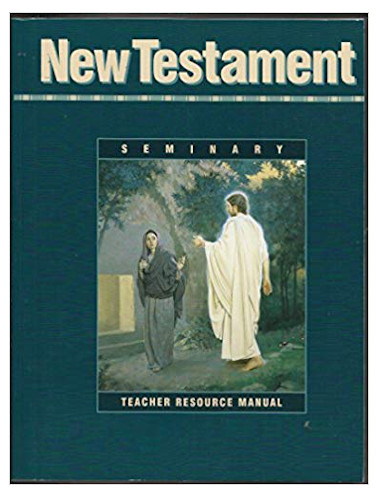
When I was a fifteen-year-old hippie boy who refused to get up early on Sunday mornings for priesthood meeting, my father offered me a ride to town weekdays with the stipulation that I attend seminary class. He knew I was getting bullied on the school bus and no doubt leveraged that without mentioning it. I’m embarrassed to admit that I jumped at the offer and left Jeff to ride the abuse bus by himself. In shitty times it’s every man for himself. Jeff was just thirteen, and even though Dad drove to town every morning, Jeff was never offered a ride. My father didn’t care about anything other than his money and church status. The former was denied me while I was expected to help him out with the latter. This was around the time I learned how to panhandle for spare change.
I had stopped attending Mormon services when I was fourteen, shortly after the bishop had humiliated me with his masturbation obsession. He wanted to talk about it with me in his office. I was so horrified by the incident that I swore I’d never again sit through any Mormon church meeting. When my father forced me to go, I just walked out of the chapel and hiked the two miles home. It gave me time to think. My father was pissed, but there wasn’t much he could do to punish me, as I had no privileges to suspend, and I had already been cut off from his money due to my agnosticism. The false poverty scheme he ran against me drove me into the streets. I associated with a variety of underage hippies and learned to scrounge. I’m sure Dad figured seminary would be a good influence on me. Ridiculous thoughts like that lit up the inside of his skull like northern lights, I figured. Aurora Bore-me-alis.
In seminary we studied the New Testament and practiced scripture searches, which meant finding a scriptural verse quickly when given a clue. To stave off boredom I really studied, and I used a red pencil to highlight. I even studied some at home to memorize the locations of commonly used verses. I would read from my New Testament at night while other seminary students watched television. I beat everyone in the class handily. My search times were the shortest, and my Mormon classmates hated me for it. One girl stood up in front of me, the seminary teacher, God and everyone, and said that long hair on boys was a sin. A boy assaulted me in the hall, brandishing a hunting knife. He threatened to cut my fucking hippie hair, and I pushed him off and ran. I’ve only had a knife pulled on me two times, and one was in a Mormon church. That’s how seminary went for me. Very enlightening, I must say.

The black and white interior of my childhood was informed by Desi Arnaz and Don Adams. Our television picked up three channels, NBC, ABC, and CBS. Two of the channels were snowy, and one had ghosts. TV Guide magazine provided us with a glossy schedule of programs. Some shows were not good for us to watch. They were sinful and had adult themes. Batman was okay. Lost In Space was okay. Get Smart was okay. I can’t remember the really bad shows, but I think Mission Impossible was borderline, as I wasn’t allowed to watch it. I was often sent to bed before sundown. There were rumors of chatty night shows with guests smoking cigarettes.
Adults were tall, and I was small. There was nothing that could ever redeem my inferiority. Days were best spent outside the house with my two younger brothers, Jeff and Mark. I walked us over to Cripple Creek. The stream bisected the town of Citrus Heights, California. It trickled down from a better neighborhood to Rusch Park, a couple of blocks from our house. The banks of the creek were half dirt and half roots of the trees that crowded the borders of the muddy stream. Rats ran along the exposed tendrils of wood just above water level. The air right over the creek was abuzz with dragonflies, while the slow currents below were choked with frogs, frog eggs, minnows and algae. Water skippers navigated the surface tension, moving in jerks against the flow. Bees swarmed in the intoxicating perfume of flowering bushes. The very air near the creek was teeming with life.
Dad had set up an above ground pool in the backyard. The neighbor lady hated him and threw garbage into it. He put up a sixteen foot bamboo fence to block the projectiles. We swam in the shade of a great wall. The smell of chlorine was heady, and the pool filter had a pleasant whine. Sometimes we were allowed to sleep in the backyard, wrapped in Coleman sleeping bags. Airplanes destined for Mather Air Force Base roared overhead through the stars, lit up like horizontal Christmas trees. We counted them until we fell unconscious. In the morning there was the redolent scent of lawn grass and a bowl of Cheerios with milk in the kitchen. We had to leave the house before we got on Mom’s nerves.
Another creek we followed was a drainage ditch several blocks from the park. Steep banks of brown dirt bordered the runoff water. There was a fig tree there that bore fruit. A friend of mine showed me that the low hanging green fruit was edible. I didn’t understand. I’d been taught that fresh fruit was too expensive for me. I couldn’t afford to eat it. Canned peas and spinach and corn and fruit cocktail were what I ate. Rarely fresh produce. Boiled meat, boiled rice with sugar and boiled spaghetti noodles rounded out my diet. Campbell’s soup with saltine crackers added variety. I ate like a French partisan hiding in a basement under Nazi troops. Eating was a chore.
On Sundays we had to dress up in our boy suits with ties and jackets, so we looked like Dad. He piled us all into the station wagon and drove us to Roseville, where local Mormon church members met in a rental building. There weren’t any local ward houses back then. The rental building was painted white and roughly cube shaped. It reminded me of the little salt houses we built in Sunday school--Bible era houses you could lick. Often, I skipped my church classes, and I ran across the street to Royer Park, which had swingsets, a slide, and a creek of its own. That was Dry Creek, which had its own attractions. There was a big flock of geese there, and a tiny zoo with monkeys and bears sat next to the creek bank. Two bears were kept in a cage no bigger than a bedroom. The monkeys were in tiny concrete cells with bars across the front. One monkey was missing an arm. Two hours there were better than two hours in the church building.
But Cripple Creek was closer to home, and I spent as much of my eighth summer there as I could. Six years later I would be a hippie boy listening to “Cripple Creek Ferry” by Neil Young and wondering why it tugged at me from another time and place. I would be in Oregon by then. But for now I was eight years old, and the teenage boys in 1966 were obsessed with slot car racing. They had a shop with plywood race tracks in figure eights and banked turns. All the tracks were three feet off the floor, so I crawled under the structures with my brothers. We popped our heads up between tracks like shaved prairie dogs. Slot cars flew off in all directions, and we retrieved them for the big boys. They liked that. Nobody had parents around. These were teenagers, and they were too good for the company of adults. Grownups had endless hassles. They always feared they were being usurped by popular culture. Their insecurity was accompanied by violence. They beat us and spanked and swatted at us. Luckily, they were never seen around the slot clubs. Our sneakers squeaked at the linoleum flooring. Older boys laughed and set their cars onto the slotted racetracks.
There was a Dairy Queen next to the slot club, but we had no business there. Dilly Bars were a nickel each, which was five cents more than we had. They came with a chocolate or butterscotch shell. The butterscotch would melt on your tongue in the summer heat. I had one once, when Dad was in a good mood after church. It tasted the way I imagined a cartoon would taste, all honeyed around the edges. It had a fluid yellowy tan flavor like a birthday cake on a Rocky and Bullwinkle episode.
If you ran across Riverside Avenue, dodging heavy traffic, there was a north part of Cripple Creek that was undeveloped. That’s where we looked for antique bottles. A neighbor kid told me that old Mason jars were worth thousands. My best find was a pale green Coke bottle, which I cleaned up and my mother threw away. I dug up a lot of broken glass. The lot was crowded with blackberry bushes, wild oleanders and scrub oaks. It was like a triangle of the woods pinched in by city structures--a bar that would evolve into a seventies strip club, a dentist’s office and a mortgage company that would change names with every recession. You could hear the rush of cars from in there, but you couldn’t see the street.
At the other end of Rusch Park the creek fed into two large metal culverts that tunneled under Antelope road. Once a hobo’s body was discovered in there, all folded up in the current. Muskrats hid in the dark water under the busy crossing. We made little boats out of old newspapers and watched them float into the darkness within the corrugated pipes. No one would dare wade in there.
At home we had to stay outside, because Mom was upset. She needed her bedroom and her privacy. If we bothered her too much, she would beat us with a stick of wood. It stung like a caning. We spent a lot of time in the pool. I remember the skin on our fingers being wrinkled at the end of a hundred degree day. We sometimes jumped out of the pool and ran around the front of the house to lie on our bellies on the baking sidewalk for a few seconds. When we felt our flesh beginning to burn, we pushed up with a soft sucking sound. Our bodies left a wet pattern that looked like a skeleton and evaporated quickly from the hot surface of the concrete.
I had a disturbing dream about a boy in Rusch Park. A part of me thought the boy was me, and another part of me was afraid to think that. The boy stood on neon green grass in sweaty triple digit heat and ate himself with chattering teeth. He sucked out his own eyeballs and chewed off his skin and gnawed away at the bones until he was just two arms, floating. His arms were in tandem and moved like the second hand of a watch, rotating parallel to the ground. The arms drifted away in the heat haze, blown along like a dandelion seed.
There was a little Japanese garden bridge that spanned Cripple Creek. When we saw a boy standing on the bridge and dropping something into the water, my brothers and I approached him. He had made a square fishing net from his mother’s nylon hose and a wire clothes hanger. The net dangled from a long string that he used to lower it and retrieve minnows. He kept the little fish in an old peanut butter jar he’d filled with creek water. Every once in awhile, he’d examine the contents of the jar, walk down to the creek bank and empty it into the stream before scooping up a fresh jar of water. I asked him why, and he told me he was trying to catch a big one. He wanted it for a pet in his goldfish bowl. I couldn’t imagine a minnow surviving in a bowl. If cut off from the creek, it would surely suffer a slow and claustrophobic death.

I remember Dad shoving me under the water. We both had on white clothes, and we were standing in the baptismal font at the church. All Mormon kids are baptized at age eight. I was happy to do it, as I spent very little time with my father, and for much of that, he was in a foul mood. But he loved all things church, and he was most happy when churching. His priesthood rank was a matter of pride for him, and he carried a card in his wallet that showed his direct priesthood lineage back to Joseph Smith, which meant all the way to Jesus, as Jesus had personally given the powers of priesthood to Joseph Smith. “No other church has priesthood authority,” Dad told me, “they’re all fakes.” So I was getting dunked for real, and not just sprinkled on like a poor Catholic baby born wrong and whatnot. My head kadooshed into the chlorine-rich font water, and I went under with my nose plugged. Bubbles swirled around me, and then my father pulled me back up to a standing position in the big tub.
“You’re responsible for your sins, now,” Dad said. “You’ll have to fast on fast Sundays, and you’ll have to repent for anything you do wrong.” That didn’t seem like it would change things, because I’d been apologizing to Dad since I could remember. I didn’t deserve things, because I didn’t know how to take care of them. He’d beat me pretty good for leaving the Lionel train transformer on. “Are you stupid?” he’d asked afterwards. The hurt always came in two ways, physical and emotional. I was seven, and I left an electrical device on and walked away. I figured everything would go along as before, but it was different. Dad told me how to pray to the Holy Ghost. The spirit would tell me what to do, he said. It worked for him. From what he told me, it was clear that he was in daily contact with the Holy Ghost. “The more righteous you live,” said Dad, “the more the Holy Ghost will help you. If you sin, he goes away.” This was hard to understand, because the Holy Ghost didn’t get a body for some reason. The other two gods, God and Jesus, had men’s bodies. I figured they had to pee and take a crap and stuff. But the ghost could enter you. He could live in your head. That freaked me out, because I already had a couple of voices in there, and I didn’t feel I needed another. But I never heard from any ghost. I guessed it was because Dad was more righteous than me.
I did understand that I would now be responsible for my sins, though I couldn’t remember a time when I wasn’t punished for wrongdoing. Bad would be transformed to sinful, through the meddling power of the Holy Ghost. I would be watched by said ghost. So I’d have God, Jesus, and a ghost spying on me, recording my sinful deeds. I had nightmares. There was no way I was going to change, I had a history of being bad, and sure enough, I stayed bad. My first sin after baptism worried me something awful. It happened like this:
Mom and Dad and Jenny (my older sister) were going out for the afternoon, leaving me in charge of my younger siblings and the house. I was eight, and my charges ranged in age from six down to two. I had a two-year-old in diapers to care for. I barely knew how to use the phone, and there was no one to call, anyway. My parents only socialized with Mormons, none of whom I would call for any reason, even if I knew their numbers, which I certainly didn’t. “Do not go to the creek,” was the last thing Dad said on his way out the door. After they left, I got my younger siblings ready for the walk to the creek. My two-year-old sister was pretty excited about it. She was never allowed to play in the creek. So the four of us kids walked the three or four blocks to the high creek bank by a bridge. There was a steep, muddy hill going down to the water, and my brothers and I carefully descended it. I forgot all about my kid sister. She watched her three brothers go down to the water, and then she sat down in the mud and slid down the hill on her butt. I turned to see her getting good and muddied up, and my heart sank. I would be beaten for disobedience. My mind went to work. In what ways other than a creek could she have gotten her clothing soiled? My ass was literally on the line. I frowned and wrinkled my brow in contemplation. If only I could construct…construct, construction. We had gone out for an innocent, creek-free walk while Mom and Dad were gone. During our walk we had happened upon some construction work. Let’s see, a new home? A remodel? I decided to leave those details out and just go with it. My little sister had jumped into a pile of mud and dirt at the construction site. How could I have known she was gonna do that? It was a great idea, and it saved me any clumsy attempt at cleaning her up. She was dirty for good reason. My excuse worked, and I was surprised. It worked easily. Lying was better than a beating. But now my soul was damned for sinning. I had to weigh that into the balance, or not. I could just as easily let it go. Dad’s spankings were fierce, maybe fiercer than the devil’s torment. Anyways, one was real, and the other was just talk. Blah, blah, blah--like what I heard in church all my eight years. People talked about things that weren’t real with great reverence. But I revered an unbeaten ass more than anything. Abstractions were in the minds of adults, banging around in there like empty suitcases in the trunk of a car. All it was to me was rattle. I did manage to feel bad about the lie, but that was all I could give it--a little guilt for surviving. The Mormons call it spiritual progress.
Jesus knocked on my door. I was about to yell at him over my no soliciting sign when I recognized him from the paintings. Of course I let him in. It’s his followers I can’t stand. I had him sit down on the good end of my sofa. I fetched him a glass of iced tea. He likes it with lemon, no sugar. He informed me of the spectral manifestation clause, in case I was surreptitiously trying to record our meeting. Attempted photos would blur, and audio would sound like nothing but variations of background noise. I nodded to that, as I had seen both UFO and Bigfoot photos. I’ve written the following transcript from memory alone, and I hope that Jesus will forgive me for my lapses.
Me: Why did you come here?
Jesus: You asked me to prove myself, have you forgotten?
Me: I guess I have. When did I ask?
Jesus: I suppose you don’t remember your crisis with faith when you were twelve.
Me: You’re aware that’s fifty years ago?
Jesus: I’m aware of everything. What seems a long time to you is but a short while to me, and I am busy. I have many sheep in the field. So I can’t stay long.
Me: I don’t mean any disrespect, but your visit seems a little anti-climatic.
Jesus: That’s what Joseph Smith said. You Mormons seem to expect some kind of grand announcement from me every time.
Me: I haven’t been Mormon since you failed to answer my prayer promptly, Jesus. Did you say you talked to Joseph Smith?
Jesus: He was one of those lucky guys. I was right there in his neighborhood he when asked for me. So I dropped in. Let me tell you that I was glad I didn’t have to stand on the muddy forest floor. You wouldn’t believe the dry cleaning fees. And I called those guys the chosen ones.
Me: So you told him to start a church?
Jesus: Why does anybody believe him? I talked to him the same way I’m talking to you. I told you why I floated off the ground. Drama had nothing to do with it. One out of every ten people I see tries to start a religion based on our meeting. It’s all lies of course. I never had a church. I’m Jewish.
Me: Jewish? Doesn’t that mean you don’t believe in you?
Jesus: No, I can’t make a rock too heavy for me to lift. Nice try, Mormon.
Me: Stop calling me that.
Jesus: As soon as you stop calling me fictional.
Me: Touche, Jesus.
Jesus: Look, I know you’re going to deny me on social media three times by sunrise. As long as you don’t try to start a religion, we’re good.
Me: I promise. Shouldn’t I be asking you about the meaning of life?
Jesus: Not if you want an answer.
Me: What about the end of the world?
Jesus: Worlds have lifespans.
Me: But the prophecies…
Jesus: One of every ten people I meet.
Me: I get it. I think I get it now.
Jesus: Thank you for the beverage, my child. I have another appointment to meet.
I took our drinking glasses to the kitchen sink, and when I returned to the living room He was gone. Jesus, I thought. How about that? He was right about one thing. I really did expect some kind of pomp. I remember the church hymn, “A Poor Wayfaring Man,” and how it depicted Jesus as a humble stranger, but I didn’t believe anyone in the congregation took it seriously. After all, they wore their best clothes and drove their best cars to Sacrament meetings. They bragged about their houses and vacations. Members publicly bore their testimonies blended with travel to exotic locations where miracles supposedly occurred. Every single one of them would turn his nose up at my offer of tea.
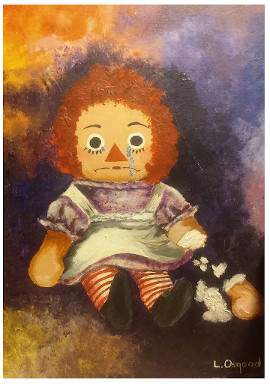
She didn’t consider herself a better writer than her brother due to her own efforts, but for his, odd as that may sound. He had studied and practiced for years, and he was a prolific poster and short story writer online. But she had always been his superior in all things, and surely must yet be. As he advanced his skill set, hers somehow ghosted and stayed ahead of his, though she did nothing to contribute. His work was satirical, so she wrote what she called “two complete satires” that would surely outdo his. She didn’t anticipate what readers would think of her George-Bushism. No one read or commented on her work.
This rankled her. She had also been his superior in righteousness. Where he’d complained about oppressive religious rules, she’d pretended to follow the faith. Her affairs with married men aside, she was the more spiritual in comparison with her anti-Mormon brother. How could he progress at anything when his soul was managed by devils? Dad had said many times that leaving Mormonism was a sure path to loser-hood and unnecessary poverty. Surely the gospel is a prosperous pursuit with no equal. Studying with atheist professors could not have possibly moved a non-believer ahead of a practicing saint. How could so many be fooled by her blasphemous brother’s trickery? If only she could force her stories on a blind public. It was God’s will, after all.
She decided to badger her brother’s online editor. She demanded his email. Her brother watched on in horror. She’d always been a bitch, much like her mother and grandmother--crazy bitches. He was relieved when no one responded to her rants, and she gave up. He remembered the time when she was eight and he was five. They were staying at Grandma’s Tudor house on the hill. She challenged him to a footrace down the hill to the family car. He was ahead of her till halfway down the hill, when he slowed to stop before slamming into the car. She took the opportunity to pass him and slam into the car herself. She got those kind of stitches that dissolve and are soon forgotten, along with whatever lesson accompanied them.
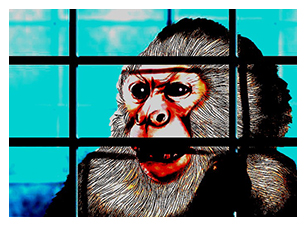
That Saturday it was Martin Anderson’s turn to see to the rhesus monkeys. Normally a task to be performed grudgingly, as it interfered with his weekend, this particular bit of overtime found Martin uncharacteristically enthusiastic. For he believed he’d intuited Dr. Lundstrom’s computer password. He’d long known it would be something easy to remember, as the good Doctor was a distracted man who frequently misplaced his glasses. Martin’s epiphany had come to him while riding a public bus, as these things often did. He was sitting behind a foul transient who stank of alcohol and excrement, and he thought of Lundstrom, drunk on power and full of shit. Ego, thought Martin, and the password had appeared in his mind.
Martin’s position at the lab was precarious. As senior lab tech, he should have been promoted to lead tech. That honor, however, had fallen to Blake Etheridge, the newest tech and golden boy. Blake’s claim to superior skills was simply recognition for his more expensive college training. Martin and Theresa Gonzalez had trained at the local community college, on account of having poor fathers. Martin knew that Blake would eventually own the lab and was being groomed by his family with a scheduled rise through the ranks. Lead tech was immune from weekend monkey sitting, which meant that Theresa and Martin switched off working alternate weekends. Martin had confronted Lundstrom about the unfair scheduling, and Lundstrom had responded with a lecture about disliking one’s work. Blake had no complaints about his duties, did he? Try to be more like him.
“Revenge is always on the table,” was Martin’s credo. Forgiveness was as well, but that one was generally reserved for someone Martin was fucking at the time. A man’s gotta have love. Perhaps some of Lundstrom’s secret information would find its way to the news media, or maybe a foreign buyer. Who knew? It would be foolish not to look. Martin knew that they were working on some kind of weaponized bio-tech, as he’d seen an invoice from the Pentagon on Lundstrom’s desk.
Revealing such information could be very damaging to Gene Path, purportedly a medical research company working on disease management. Martin would likely lose his job, but he was on probation already. From previous work experience, he knew this meant he already had one foot out the door. The time when he broke the one monkey’s finger had got him suspended--three days off with no pay. He’d spent the three days smoking weed and watching his flat screen.It hadn’t been a total loss, but he did fear the future. If his reputation were to be sullied, he’d be hard pressed to find decent work anywhere. His beginnings in drug testing labs would also become his future. And the bosses of those places were goons. Martin had no desire to reunite with that hardscrabble life. The lab he was in at Gene path paid better and had far better facilities.
Now Martin entered the lab’s outer room--waiting room for the public, essentially, with a smile on his lips and and a lightness in his step. At the guard desk in the corner of the room sat Al Dutcher, who looked up and said, “You’re looking chipper this morning. Usually you come in like sourdough that didn’t rise on Saturdays. You get some last night?”
“Oh, you betcha, Al,” Martin lied. Last night he’d been sleepless going over his plans. Download files from Lundstrom’s PC and hide them until a way is found to use them. Al sighed and wished aloud he were young again. At 55 in a dead end job with no prospects, Martin figured Al ought to want euthanasia. It was available, but, oddly, there were few takers. Martin had always thought he’d check out when he was post sexual. But there were many pills to cure that. Some poor people were still using oxygen tanks to stay alive. Al Dutcher had outlived his usefulness. He could easily be replaced by a security bot, but those were expensive, and Al was receiving low end pay with no benefits.
Martin believed that most old people were extraneous. They had done with working, reproduction, and raising replacement offspring. Now they were merely kept alive, squandering medication, choking the freeways, and generally getting in the way. Darwin must spin in his crypt, Martin thought. The best thing that could happen to the human race would be a massive dieback.
“You gonna feed the monkeys?” asked Al.
“No,’ said Martin, “I think I’ll just slap ‘em around today.”
“Bad monkeys get spanked,” said Al, chuckling at the thought.
Martin nodded and moved past Al to enter the suit room. It was like a small locker room in there, but without the smell of athlete’s foot. It was clean and had the odor of disinfectant in the air. His ears popped as he adjusted to the reduced air pressure. That was maintained so that any potential leaks would have outside air coming in rather than the other way round. Martin removed his street clothing and showered. After he’d toweled off, he selected a translucent bio suit. He stepped into it from the back, like a spacesuit. He closed up his suit and walked next through the Lysol mist room to decontaminate his suit surfaces. By now the helmet part of the suit had started to fog up with his steamy respiration. After the lysol wash, he entered the laboratory proper and selected a coiled air hose to feed his suit with air. Fresh, lightly scented air circulated around his head, and he felt refreshed. He faced the rows of rhesus cages, ready to add water and food to their empty dispensers. The monkeys watched him quietly from behind their little cell doors.
Martin had to fill most of the water trays and all of the feeders. He made sure all were full, so he could at least have Sunday off. The money was good here, and Martin liked his apartment. He only wished that he could spend more time at home. One of the monkeys began to flop around in its cage, as if trying to smash itself to death. It looked as though it had lost control of it limbs and was angry for the inconvenience. It thrashed and screamed and trashed some more. Another monkey backed away from Martin in its cage and hissed at him. “Shut up,” Martin told it. He made a fist and smacked at the cage door, and the monkey lunged and bit his fist. There was a puncture spot over Martin’s knuckle on the glove, and Martin could see his own blood through the translucent suit material. “Shit,” he cried, and then to the monkey he said, “you fucker.” The creature looked confused and turned its head left and right, as if to say no.
Martin was required to immediately report such a breach and contamination, but he was already in enough trouble. What was he going to do, tell Al? He sure as hell wasn’t calling Lundstrom, thought the number was posted on the wall with instructions. It didn’t happen, okay? Nothing happened in this miserable place. Martin was aware that the facility was the best he’d ever worked in. He’d started his career as a flunky at a drug testing facility that hired itself out to major corporations for drug testing their employees. The place was a dump, and spending all day reading piss strips was worse than dealing with monkeys, it must be said. But Martin hated overtime, and it was built right into his present job. The pay was better, and he was able to afford his own decent apartment. If only he could spend more time there. How much time was Lundstrom able to spend at his gated community home? Well, every weekend, for one thing. The doctor was in all day during the week, so Martin didn’t see fewer hours in his future, no matter what. There was one way out, and it was risky, but it was worth a try. Maybe now that he’d been bitten a lawsuit could figure in somehow.
Martin’s parents, Charles Anderson and Rosa Munos, had met in L.A. many years back, before Martin was born. His Dad had emigrated from Oklahoma and his mother from Tijuana. Both were attracted by the hiring in the aerospace industry, which was booming back then. Martin had memories of his father taking him fishing, and his mother taking him to the beach. Those were early. Later, both were laid off and Mom took work house cleaning. Dad found a new occupation in drinking. There were evictions, fights with landlords, and domestic yelling matches that lasted all night. Martin was depressed and did poorly at school, but his mother never gave up. She tutored him and told him that he needed technical skills for the future. Since his grades were bad, he had to apply at a community college, which was cheap anyway. For some reason he excelled in his lab science classes. He remembered loving the courses, and his college certificate was in lab science, an industry which was beginning to boom. There were drug testing, research labs, and medical facilities of all kinds hiring. The starting wages were not a lot higher than fast food wages, but benefits were included, which was enough altogether for scraping out an entry level renter’s life. When Dad died, Martin was glad to have his own address. Mom went a year later, which Martin attributed to loneliness and despair. He’d never forget how she’d prepared him for a solo life. Dad had been too far gone to do that.
Martin was making more money now, but he’d hit some kind of ceiling, and it bothered him. He didn’t want to try going back to school, and he suspected that something besides training was holding him back. Wealthy people were dominating every industry, it seemed. There had to be another way. It had occurred to Martin that the secret to getting some leverage was right under his nose. Lundstrom’s computer was in his office behind a locked door. Martin had figured out how to open the door. The best thing was that there were no cameras anywhere in the lab. It would be too risky to catch classified work on video files, if those files could be hacked. The hall out past Al Dutcher’s desk was lousy with cameras. No one could enter the building unseen. And Martin didn’t need to do that. He was here legitimately, and nothing was going to come up missing. There was practically no risk. His knuckles hurt where the monkey had bitten him, and there was blood on his bandage. He had to be careful not to spill any blood in Lundstrom’s office.
Once inside the office, he moved quickly to the desk. Lundstrom’s laptop was already on. Martin guessed the thing had no internet access, because the doctor was always using his smart phone to look things up. The personal computer would be more a log book, kind of like his sister’s diary when he was a kid. That little book had a lock on the front of it. Martin had spent some time working that lock open, a skill he developed that would certainly come in handy later. It just had, in fact. He’d been hoping to find some dirt on his sister that he could use for purposes of teasing, but it was all a bunch of mundane girl stuff. The one passage he’d liked, and would never forget was: Dad is a bastard! He’d nodded his head with that one.
His arm itched, and it was a good one. He wanted to scratch it badly, but he was still in the suit, his hose hanging from the rail that ran into Lundstrom’s office. It was the devil to scratch an itch in these damned suits. He reflected on one of the pleasures of ending this job--no more suiting up on Saturdays. He took a seat at the doctor’s desk and opened the laptop. It wanted a password. Martin entered it with confidence: Nobel. Password accepted. He was presented with a choice of files: GOVT AUTHORIZATION, PATHOGEN CONCEPT, NOTES, DAILY RECORDS. He clicked on the concept file and read:
Create pathogen that is disruptive to reasoning faculties. Use Ergot fungus to combine with communicable microorganism for a delivery vector.
Martin knew enough to understand he was looking at a weapons technology. The Ergot, he knew, was a hallucinogenic toxin. With the right dose, it could cause hallucinations and death. It looked like Lundstrom was working on a way to distribute the toxin to populations. Thus the Pentagon funding. Martin had to get one arm out of his suit. He hoped there wasn’t anything airborne in the office that could hurt him, but he had to take the risk. He had a thumbnail drive in his pocket, and he wanted to download Lundstrom’s files. He did it as quickly as he could. Most of the files he didn’t read, but he couldn’t help taking a quick look at notes:
Test subjects injected with pathogen show a similar pattern of progression. Initially the subjects appear to experience intense itching and scratch at themselves compulsively. The eyes dilate, and the subjects’ behavior suggests hallucinations and paranoia. Aggression and self-harm have been observed. Necrosis of the limbs, which may have been the cause of the itching, sets in, resulting in debilitation and eventual death. The pathogen does not survive exposure to air, but is transmitted by bodily fluids, including saliva, blood, and semen. Infection rate is > 99%.
Martin wished he’d never read that. He looked at his wounded hand. He was as good as dead. He’d already experienced one symptom. He was dying. Tears filled his eyes and blurred his vision. All the information in the world was useless to him now. He slumped in the chair. Fuck this, he finally thought, and he tore off the damned suit. I’m going to kill that fucking monkey. We’re going down together. I’ll put sulfuric acid in his fucking drinking water. Through tears, he remembered a poem he’d learned in his chemistry class:
Little Johnny had a thirst
Now Johnny is no more
For what he thought was H2O
Was H2SO4
The latter being sulfuric acid. It was no fun being almost dead. Martin wondered how long he had. He knew there was no use waiting to die in the goddam lab. Maybe he could get home in time for some drinks. Some of the monkeys had been ill for days, he recalled. Hell, maybe he’d have a week or so. The thought of not dying today buoyed him a little. Maybe he could cause a little mayhem. He could at least start a plague that would rival the great plague of Europe. Millions would die before an antidote was found, assuming one was. Maybe it could be the end of all humans. The power in his hands was greater and more insidious than the power of a nuclear weapon. “I’m out of here,” he announced aloud. He didn’t even mess with the monkey who’d bitten him, as he had humans on his mind now.
Martin was startled to find Blake hanging out at Al’s desk as he emerged from the labs. He immediately asked, “Are you going in?”
“No,” said Blake, grinning with his cheeks all rosy against his pale face. “I just stopped by to drop off this clipboard for Al.” He pointed at Al’s desk.
Lying ass, thought Martin. Lundstrom sent you to check up on me and make sure I got the monkeys fed. Probably he wanted you to go in, but he underestimated your laziness. I’m glad you didn’t, because I left a mess in the good doctor’s office. I really should show my gratitude.
Martin advanced on Blake, hugged the boy, and kissed him on the mouth. He was surprised at how easily Blake’s mouth opened to accept his tongue, which he swirled around Blake’s for a good bodily fluids exchange. Blake pushed him off, and Al yelled, “Martin! That’s assault, and I’m sorry, but I have to report you.” The man grabbed his serendipitous clipboard and a pen. “Be glad I didn’t spit in your coffee,” Martin said to Al, as he walked away for the last time. Blake had seemed very receptive to his kiss of death. Maybe Blake and Dr. Lundstrom? In any case, the microbe would spread from there. And Martin could do more with the hours he had left.
He itched like hell on the bus ride home. First his legs itched, then his neck, and finally, his arms. The arms were the worst. The itching seemed to move up and down from his shoulders to wrists in sequential currents. He thought of the crowd in a football stadium, standing and sitting in waves. Something alive was on his skin. He looked closely at his left forearm, and saw what appeared to be extra hairs growing and retracting back into the flesh, the effect rolling up and down the arm. When he tried to look closer, he felt his eyes adjusting magnification. He could see the individual pores, and from each pore emerged a tiny moray eel thing that snapped at him with toothy fangs at maximum extension. Then, each little eel would retract and repeat. It terrified him and he looked away. He realized that he had gasped audibly when he saw that several passengers were glaring at him. Not another nut on the bus. How many times had he thought that himself? Now he’d become the nut. But that didn’t matter, because they were all going down together. They just didn’t know it yet.
As he stepped off the bus at his stop, he turned back to look at it, which was a mistake. Every window framed an indignant face. They’d had to ride with him. Their faces mutated, with some becoming demons and others pigs. He remembered reading Animal Farm, with its conflation of humans and pigs at the end. His pig-people were both species at once, and the demons had warthog faces. A part of him knew that his mind was creating random assemblies, but another part was scared shitless. He hurried to his apartment door.
Once inside, Martin’s itching and hallucinations subsided. All the curtains were closed and the cool gloom of the place soothed him. He liked it dark and left it that way. It had seemed too bright outside. He looked in the refrigerator, and he thought about drawing a glass from his wine box, but he was too thirsty for wine, so he selected a bottle of sweetened iced tea. It was cool and refreshing. He felt for a moment that maybe...but there was no fooling himself. He’d seen the monkeys go through this, and sometimes they were almost serene between attacks. It was just a matter of time. One last person he could see was Theresa from work. She’d hinted about him asking her over, and he had her phone number, so he called her and asked. She said give her a few minutes, and he did.
“Would you like a coffee?” he asked her when she arrived.
“I can’t drink that,” she said, “I was raised Mormon.”
“You didn’t tell me that,” he said.
“Yes, I did, Martin. You just weren’t paying attention. Too busy cursing Lundstrom.”
“I suppose,” said Martin. He was disappointed. He’d been hoping for sex.
Theresa wandered into his kitchen and opened his refrigerator. “I’ll have some of this wine.”
“You can’t,” he said, “Mormon.”
“I said I was raised Mormon,” she said. “I was just fucking with you. My parents were Mormon, but I’m not.”
Martin poured her wine. He was thinking that he might get lucky now. She took his hand with her free hand and led him to his bed, which was visible from the kitchen with his bedroom door open.
Afterwards, he went into the adjoining bathroom to pee. He washed his hands at the sink and looked at his reflection in the mirror. It was starting again. His face was changing into something. As his features melted away like hot wax, new facial proportions emerged to replace them. His eyes changed color to blue, and his hair lightened. He was looking at Blake’s face. “You’re in it now, monkey boy,” said the face.
“Fuck you,” said Martin, and the face faded again to be replaced by Lundstrom’s. “I have some bad news about your evaluation,” said Lundstrom. Then the doctor’s face melted into Al’s, which said, “I don’t like reporting you, Martin--nice kid like you…”
Martin smashed his fist at the mirror, cracking it with one vertical line, right down the middle. The line split the reflection of his face into two hemispheres. And, as he watched in horror, the two sides of his head began to divide, opening like the sides of a clam shell. The inside of his head was hollow and smooth with drops of amber clinging to the inner surfaces. His eyes bulged like goldfish eyes and goggled at what was left of his reflection. There were two half mouths opposite each other, and both were open wide in terror.
“Martin,” Theresa called from the bed. “I itch.”
The corners of Martin’s divided lips turned up simultaneously in a dark grin.
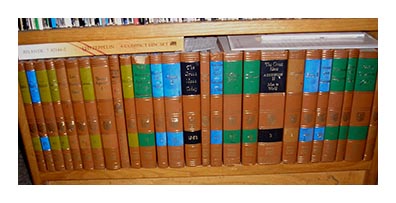
My father gave me this book set called “The Great Ideas” some years ago when he was alive. He purchased this set, along with a few others around the time he graduated from Columbia University with his EdD (education) degree. My mother loved books, but Dad could take them or leave them. I think he bought these sets “by the yard,” which means they were purchased primarily for the visual appearance, namely that of a literate household. These books contain the works of Socrates, Euclid, Darwin, Plato, David Hume, all men with whom my father violently disagreed. His entire philosophy consisted of the writings of Joseph Smith and Brigham Young. These men wrote volumes of the most absurd religious conflations I’ve ever seen. Jesus was a polygamist with several wives and children, for instance.
Over the years, Mormon propaganda books shoved the philosophy collection into the garage. My father did not soften with age. His sticky Mormonism deposited like a plaque in his veins. It caught fire and burned through his nervous system from the inside out, torturing him to death in the process. It left his corpse bloated like a mushroom puff in the yard. That’s how powerful it was. Maybe he needed to get this secular material out of his house. I couldn’t possibly identify all his superstitions.
So I sit sit here every day and look at my father’s spillover from cognitive dissonance. He had to learn certain material in order to obtain his degree. It was regrettable that much of the curriculum was anti-Mormon and clearly rooted in the pride of men who refused to worship the Lord and respect His servants. Lyndon Johnson and the Great Society movement paid for my father’s education. Dad despised the social Democrats who put him through college and set him up with an apartment in Manhattan! That was the best city of my childhood. I lived in hillbilly toilets like Pottstown and Elmira. New York City was better than heaven to a ten-year-old boy. My heart crumbled to dust when we left NYC. I suffered from depression and anxiety at school in Pottstown, which culminated in a grand mal seizure. The stress of my daily life made me insane, and I lashed out with vandalism. That’s another story. So much for great ideas.
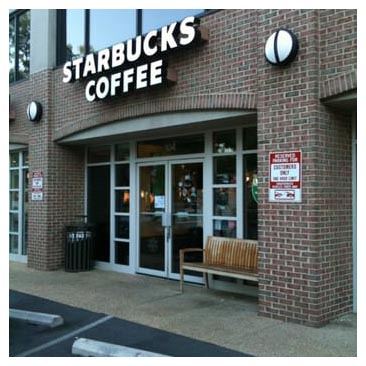
Dennis found the Starbucks Karen had told him about. There were so many of them in D.C. she had to give him an address. He went inside, ordered a straight coffee and took a seat to wait for his beverage and Karen. She didn’t arrive until he was halfway through his coffee. He told her she could go ahead and order, but she declined. She had something she wanted to talk to him about. She’d said it was personal, and she knew Dennis was someone she could trust from their days interning together.
“How are you?” she asked, taking a seat opposite him.
“Still doing campaign work for the party,” he said.
“I thought you’d be running for something by now,” she said. “I haven’t worked for years.”
Dennis raised an eyebrow. “I thought you were too enthusiastic for that.”
“I was faking it,” Karen sighed. “I couldn’t remember half what I was supposed to. I called my father a lot for decision-making.”
How is he?”
Karen looked guarded. “What do you mean by that?”
Dennis chuckled nervously, and not from amusement. “Nothing. Did I say something wrong?”
“No,” said Karen, “it’s just that I have a thing going with my brother.” She reached into her purse and retrieved a snail mail letter, which she handed over to Dennis.
He took a look at it. It was a Walgreens envelope with a handwritten return address--her brother’s in California. She’d mentioned him before. Dennis remembered something about how Jim had accused his father of abuse, which Karen vehemently denied. Karen’s father had been very good to her, and she believed her older brother had some mental health problems. Delusions, she’d said.
Dennis pulled out the letter--it appeared to have been printed out--and began reading:
Karen, you know what I know about Dad’s funeral, so I’ll get right to the point. You secretly took a half million from Dad and conspired to keep it from me. You knew it would be a problem, as you took great pains to keep your visitors from seeing your McMansion house. The word got out about your sleazy tactics. I know it was Dad’s idea, but you were all too willing to throw your sibling under the bus. That man never gave me anything. From the time he inappropriately touched me in the bathtub to when he beat me up in the hallway, I endured a solid decade of abuse. Ten years, Karen. And at the tail end of it Dad put me away in a state institution. You lived a soft and wealthy life, because Mom threatened to divorce Dad if he didn’t take care of you. He was making the same salary when you were in school as he made when I was in school. Superintendent. His salary was $139,000 in today’s dollars (2019). You know what you were provided with from that income. What I got is public. Everybody knows.
I spoke to Mom very briefly on the phone during the funeral. This is what she said to me: “Oh, I’m so sorry for everything that happened to you.” I cried because no one in your miserable group had ever apologized to me for the way I was treated and slighted. Two days later, she said publicly that I was dead to her. Do you think I don’t know who put that thought in her head? You’re the one who used the word “mastermind.” That’s something that applies to you, not me.
None of your arrogance is justified. I worked in the trenches and made an honest living. You have no business lecturing me on the work ethic. You did what Dad wanted. You kissed his ass and worshipped his gods. I didn’t. So don’t give me this bullshit that it’s not about religion. What kind of a man starves one child to fatten another? It shows his character and yours. I’m glad you took care of him at the end. You deserve compensation for that. Something like a swimming pool, for instance. But don’t pretend that you’ve earned a half million dollars. You never did.
I wrote Dad a final letter describing my position a dozen years ago. I’m sure you have it. You have become him, so I’m going to tell you just what I told him. I promise to continue writing the truth about our family as long as I can work the keyboard. I have already written some 200,000 words on our late twentieth century history. I intend to write much more. My work is read and archived in several countries, including Canada, New Zealand, England, and France. I couldn’t tell you everywhere it’s been seen. In the future, my stories will be accepted as the best reference to our family history from this era. I have always been the voice of this family from the beginning. I was the canary in our father’s coal mine.
So, enjoy your money, and watch the stories roll out.
--Jim
Dennis put down the letter. “You didn’t tell me your father had died, Karen.
“I didn’t want to ruin your reading.”
“You should not be communicating with this person,” said Dennis. “I know,” said Karen. “I’m going to stop reading his letters. I blocked him on social media a long time ago.”
“Are you okay, Karen?”
“Oh, of course. I’m fine, because I live by the gospel of Jesus.”
Dennis felt his brain flipping. Karen had told him that her father was very religious. But she wasn’t at all, as he recalled.
“I was married,” said Karen. She sighed. “I lived with my husband and father-in-law in a cabin near Lake Arrowhead in California. My brother Jim visited us there. Anyway, my father-in-law was paying the mortgage with his Social Security check. When he died we lost the cabin. My dad said he would take me back without my husband if I accepted Jesus as my savior. So I got divorced and was baptized, and he let me live free in one of his rental houses. He bought me a Jeep Cherokee. Jim wasn’t happy when I moved to D.C., and I’ll never understand why. He was able to find jobs and stuff. He could pay his rent. So, anyway, Jim found out about the money Dad gave me before he died. Mom won’t talk to Jim either, because she doesn’t like atheists.”
Dennis thought for a moment. “Do you ever think there might be something to Jim’s complaints?”
“No,” said Karen, “he had every chance to come to Christ.”
Dennis had finished his coffee, and his gut ached. There was no way to tell Karen how she sounded to him now, having once been so young and full of promise. Here she was, a nut job. Or was that fair?
“My mother and I have committed ourselves to living the gospel,” said Karen, “ and we won’t have anything to do with Christ-deniers.”
Dennis held up his wrist and looked at it. It was a damned good thing he was wearing a wristwatch. It was merely an accessory, and he often went without it. “Look at the time,” he said. “I have to catch a taxi.”
![]() Charlie Barker was seated in a blue room. The walls were pale blue, and the chairs navy on a checkerboard blue and white carpet. It was disorienting, and he wondered if they’d done it that way on purpose. It seemed to him that Rubicon was a threat, and everyone knew it. You couldn’t say it, but you could think it. They couldn’t read your mind--not yet. But the state had the power to determine whether or not its citizens were capable of adult functioning. The age for review was sixty, and there were rumors that some private citizens were given an extension. Charlie didn’t know anyone who’d come back, but he imagined they were tested somehow and most failed. If he could beat the test he might qualify for more time as a functioning adult. If not, he would join the others to wind down his life with a second childhood. And how did that childhood end? It was a cinch that nobody was taken through a reverse birth. The end had to be termination.
Charlie Barker was seated in a blue room. The walls were pale blue, and the chairs navy on a checkerboard blue and white carpet. It was disorienting, and he wondered if they’d done it that way on purpose. It seemed to him that Rubicon was a threat, and everyone knew it. You couldn’t say it, but you could think it. They couldn’t read your mind--not yet. But the state had the power to determine whether or not its citizens were capable of adult functioning. The age for review was sixty, and there were rumors that some private citizens were given an extension. Charlie didn’t know anyone who’d come back, but he imagined they were tested somehow and most failed. If he could beat the test he might qualify for more time as a functioning adult. If not, he would join the others to wind down his life with a second childhood. And how did that childhood end? It was a cinch that nobody was taken through a reverse birth. The end had to be termination.
So of course Charlie was nervous. He did that thing where he scrunched up his left big toe inside his shoe. He scrunched it hard to the point of pain, as always. Panic attacks were considered childish, and he suffered his in private. When he was twelve his mother had taken him to a therapist named Mike something. He’d complained about school and the forced socializing, as he called it. His anti-social words disturbed his mother to the point of making phone calls. She called a car and took him to a dome shaped building. It had a central courtyard with an open skylight overhead. There was vegetation under the opening that was watered by natural rains, which had increased over the past decade. Most of the plants were tropical and would have never grown as far north as Denver in antique times. Snow would have blown in through the hole in the dome’s roof back then. Charlie found Mike the therapist to be full of shit right off.
“How do you feel with twenty people in the same room?” Mike asked. They were sitting in Mike’s office. He had no desk and bragged about it. But there were two nice sofas, and they sat on those, facing one another across the bamboo floor. A fake sword fern in a woven basket held down one corner. Otherwise the room was bare but for the window. It was raining outside, as usual. Charlie didn’t know how he was supposed to answer the question, so he shrugged. Mike’s face went ugly just for a half second. It was like a battle had raged inside him and been extinguished almost immediately. Charlie didn’t know how to read people, his mother had said. But Mike’s face was a tell to whatever he was thinking. There was no way the man could play poker offline.
“Does the question make you uncomfortable? Mike went on. His jaw was set.
“I don’t know what to say,” said Charlie.
“Are you comfortable in your school classes? Because my understanding is you’re not.”
“Am I conforming in my classes?” said Charlie. “Isn’t that what you really mean?”
“I’ve been told you’re disruptive,” said Mike.
“The History teacher said that Columbus was chosen by God to discover America. I corrected her.”
What kind of church operates your school, Charlie?”
“It’s Christian, but…”
“Don’t you believe your own legacy doctrine?”
“No, it’s bullshit.”
You do know that’s anti-social?”
It always ended like that--with Mike accusing him of anti-social behavior. The guy would make faces and threaten Charlie with social camp. Charlie’s mother responded by moving to Seattle. Charlie liked it there. It rained less than Denver and there were oak forests outside of town. Charlie learned to drive there and finished his K-12 studies. He attended a vocational college and learned electrical repair. He made decent money and loved the work. He never married, because he didn’t want to live with someone. His mother was okay for living with, but after her death he lived alone and worked in the Seattle area until he was sixty. Then he had to go in for the interview. He didn’t feel old, and he still enjoyed his work, so it bothered him that he had to prove he could still function as an adult.
He scooched his ass forward a little on the waiting room seat and rested the back of his head against the wall. He could feel something humming in his skull. It felt like the 60hz frequency, which meant some electrical current was running behind the wall. He let the hum soothe his nerves. He knew what he was going to have to do. He’d learned as an adolescent in Seattle. The trick is to lie to everyone, and try to tell them what you think they want to hear. He wasn’t good at it, and it was hard to concentrate that way, but he kept bullshitting people, and they kept accepting it. He realized that everyone was doing it. The bullshit was at the core of socializing. Only an autistic lacked the ability, Charlie concluded. Was he autistic? Mike had asked him once. Typical of Mike, there’d been no follow-up. Charlie never did find an answer. He was often told that he worked too slowly or he seemed distant and distracted. The trick was to work around his thoughts instead of sharing them. The thoughts stole his efficiency and gave nothing but grief in return. Twice he’d had breakdowns that required short term hospitalization. Would that work against him in the test? Certainly they had access to his medical records.
At vocational college Charlie was given the adult entry test. It had been mostly psychological questions, and he had answered them the way he thought they were meant to be answered. It had seemed easy, and Charlie expected that it was supposed to be easy. Any who failed to pass were sent to social college. There they were taught adult skills. Charlie hadn’t wanted that for himself, and it motivated him to be a better liar. But the test hadn’t worried him like this one. To lose adulthood was to die in stages. He feared that. He was next to step through the door to the interview room. He’d seen a couple others come out with unhappy faces. They were his age.
Two other people also his age were seated in the waiting room. One was a woman with her hair already gone white. They were going to make short work of her, thought Charlie. She looked like she was ready to leave the workforce. Care lines in her face bracketed her eyes and lips. Charlie imagined she must have had children. That would do it to you, in his estimation. Nothing would wear a person out like parenting. His own mother had died before the age of sixty, neatly avoiding this nerve-wracking procedure. She never had to face childhood in reverse. I probably should have died by now, thought Charlie. I could have killed myself. They can’t bring you back to life and force you into reverse childhood, can they? Of course not. Dead was dead, one way or the other. People used to live out their lives in dignity, his mother had told him. She too dreaded the reckoning at sixty. She’d been fortunate to never see it.
There was also a man in the waiting room. He had a beard with gray flecks in it. The hair on his head was receding and peppered with grey. He didn’t look happy. Probably he felt the same way Charlie did. For a moment, Charlie considered talking with the guy, but he didn’t. He was stuck on an opening line. What would he say? Nice weather we’re having. It’s a good day to lose everything. Good luck to you, and I hope they let you continue to live as an adult. May the best man win, and may the other guy win, too. Everybody should win. It’s a democratic state, isn’t it? Sure, I don’t remember voting on this, but maybe that’s because it was too important to risk a vote on what they called the Rubicon Act. It was a thing that had to be done--like outlawing murder or terrorism. Nobody questions those rules. We don’t expect our leaders to be immune to the laws prohibiting violence. But they are immune to Rubicon laws. Some congresspeople are in their eighties. They’ve been declared essential to state works in a proclamation they wrote themselves and ratified. It was a solemn assembly of women and men, I’m sure, who worked it out so they could outlive the rabble and enjoy longer lifespans.
Charlie was startled when his heard his name announced on the public address speakers. It was time for him to pass through that door and no turning back. It was the law. He stood and walked to the door, opened it, and stepped into a narrow room with a long table and a large mirror set into the end wall. He knew that observers were sitting behind the mirror observing him. He tried to put an optimistic expression on his face. He grinned. There was a young woman seated at the far end of the table. She had on a lab smock and her hair was bright blonde. It was too reflective of the overhead lighting to be a natural hair color. The woman was just over thirty years old and coloring her hair. Was she trying to hide a few gray strands that had come in early? She saw people being sent away every day. Maybe it made her feel mortal. Within three decades she’d be seated at the opposite end of the table. Charlie could tell her how quickly those three decades would pass.
“Have a seat,” she said politely. There was only one chair at the far end of the table from where she sat. She gestured at it, and Charlie took a seat. “I’m Doctor Sehnen, and I’ll be evaluating you.”
“Isn’t there a test?” Charlie asked.
“No. I know you’ve heard rumors, but there’s no test. I’m going to ask you some questions, and there’s no right answer, so please relax.”
But Charlie was already scrunching his big toe in his shoe again. The pain was something he could focus on. It kept him centered on himself. He would answer the questions correctly. He would know what to say.
“How would you define your sexuality?” Dr. Sehnen asked.
An easy one, thought Charlie. “I would say I’m autosexual with hetero tendencies.”
“Have you ever had a partner?”
“No. I use devices. Is that a bad thing?”
“No,” she said, “there are no wrong answers. Do you prefer to live alone or cohabit?”
“Alone.”
“Do you have a vegan diet?”
“No, I eat meat products.”
“What is your legacy religion?”
“You must know that from my records,” said Charlie. “It’s Protestant Christian, not that I care.”
The doctor’s eyebrows raised, wrinkling her forehead with worry lines. “Have you ever said that before?”
“Not for a long time,” said Charlie, “I’m familiar with the heresy laws”
“Then why did you say it now?”
“I figured it was okay now. You’re putting me away aren’t you?”
“You’re not being put away, Charlie. This is a normal part of human development.”
“Are you looking forward to your own re-childing, Doctor?”
“I’m supposed to be asking the questions here. I need to know more about your dietary and recreational preferences. I want you to know that all your needs will be seen to as you re-enter adolescence.” She asked Charlie a series of questions about television and internet content. He answered the best he could, realizing with a sigh that lying about these things would only bring him discomfort. If he had to go somewhere, he’d like to be as comfortable as possible. He’d miss his apartment and unstructured lifestyle. He was used to responding to random repair calls and relaxing at home between jobs. Now he’d live in some kind of center with some kind of program. No doubt there’d be universal religious services, and mandatory, like when he was a boy. Mealtimes would be set. Activities would be monitored. It would be a kind of death, and he envied his mother for getting the real thing early. He could still remember when his mother’s father was taken to Rubicon. Charlie had been eight years old, and his grandfather had read to him from a notepad every night at bedtime. Grandpa slept on the sofa until he was summoned for the interview. The old guy hadn’t seemed happy about it, but the penalty for evasion was euthanasia. Charlie recalled watching his grandfather leave his home for the last time, slumped like an antique man walking toward gallows. Humans were experts at doing away with one another.
Charlie realized that his toe was still scrunched in his shoe. It had gone numb and didn’t hurt anymore. It was a numbness that seemed to crawl up his leg and through his torso to his brain, clouding his thoughts. There was nothing to be done now but follow orders. The doctor told him to go home and get his affairs in order. He had two weeks to report back or be listed as fugitive. The doctor held up her slimscreen phone and showed it to Charlie. It was a mugshot of Mike, his old therapist. His face looked like he’d been crying. He’d worn his emotions on his sleeve right to the end.
“He thought he could run,” she said. “We found him in an artist’s enclave in New Mexico. Six others were apprehended as well. All seven were terminated. Don’t run, Charlie. I know the thought will cross your mind. You have a history. But I promise you that you’ll regret it if you run. You have much to look forward to with Rubicon.”
Charlie stood up. “Can I go now?”
“Of course,” said Dr. Sehnen. “You’re not a prisoner.”
Charlie hoped he could fake a grim smile, at least, as he crossed back through the waiting room. But he couldn’t, and the two waiting watched him intently as he passed them, the next traveler to that land from which none return.
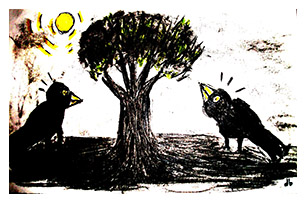 The nesting pair of black birds had come with the powder blue glow of daybreak one morning, and Wallace Duttton watched from his second floor condominium balcony with a pair of Bushnell binoculars. He tapped at the glasses’ rocker control to hold the birds in focus as they hopped and flitted among the branches of the fruitless plum trees on the common lawn. Though not native to California, the birds were beginning to invade annually, and Wallace was impressed by their determination to spread so far west of the Rockies, east of which they had historically lived since their species was first observed by native Americans.
The nesting pair of black birds had come with the powder blue glow of daybreak one morning, and Wallace Duttton watched from his second floor condominium balcony with a pair of Bushnell binoculars. He tapped at the glasses’ rocker control to hold the birds in focus as they hopped and flitted among the branches of the fruitless plum trees on the common lawn. Though not native to California, the birds were beginning to invade annually, and Wallace was impressed by their determination to spread so far west of the Rockies, east of which they had historically lived since their species was first observed by native Americans.
“Careful who you watch with those glasses,” said Maya Gonzalez, leaning over from her balcony next door. “The police will come visit you.”
“I’m looking at a pair of grackles,” said Wallace, his eyes pressed to the lenses.
“Have you got a look at the second mailman with those things?” Maya asked.
Wallace sighed and lowered the binoculars. “The second what?”
“Mailman,” she said. “The one who takes mail.”
“Doesn’t Mohammed bring the mail and take the outgoing letters too?”
Maya shook her head and held up her right hand to the square as if half-surrendering. “This is different,” she said. “There is a second man who takes things that should not be taken. Have you noticed anything missing?”
Wallace glanced back at the pair of grackles, which were by now standing on the dewy lawn and pecking at the grass. “No,” he said. “I haven’t missed anything.”
“You look for him,” said Maya. “You’ll see. He changes his appearance.”
“He doesn’t look like Mohammed?”
“Sometimes he does. I can see through him, though, because I was given the gift of discernment when my husband passed,” said Maya. “He was the one with the priesthood power for seeing the adversary, but now I must do it for myself.”
“Look at the time,” said Wallace, holding up his watch for Maya to see. “I’m going to be late for work.”
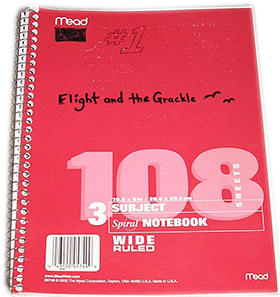 The inbox on his desk held a six inch deep pile of paper documents. Wallace would enter the names of the deceased from the documents to cancel their state benefits in his networked computer. His basement office had no windows, just walls of whitewashed brick. The room was spare and rarely visited. He rummaged through the desk’s upper drawer and found the red spiral-bound notebook he’d titled: Flight and the Grackle. Handwritten notebooks were perfect for keeping his notes private. Computers were great for looking things up, but their files could be breached. A man’s work could be compromised or found out before its time. Wallace needed to protect his research in the likely event that he made a breakthrough. He flipped the pages to find a blank one and wrote there:
The inbox on his desk held a six inch deep pile of paper documents. Wallace would enter the names of the deceased from the documents to cancel their state benefits in his networked computer. His basement office had no windows, just walls of whitewashed brick. The room was spare and rarely visited. He rummaged through the desk’s upper drawer and found the red spiral-bound notebook he’d titled: Flight and the Grackle. Handwritten notebooks were perfect for keeping his notes private. Computers were great for looking things up, but their files could be breached. A man’s work could be compromised or found out before its time. Wallace needed to protect his research in the likely event that he made a breakthrough. He flipped the pages to find a blank one and wrote there:
Observed male and female pair this A.M. in fruitless plum and liquid amber trees. Heard their characteristic “creaking gate” cries, but was unable to evaluate hopping intensity due to a neighbor’s interrupting the viewing. Will look again after work.
Wallace’s latest theory involved the mechanics of flight. He rejected the popular misconception that the downward flapping of the bird’s wings created thrust against the air beneath the bird to cause lift. The distance between the space above and beneath the bird was ridiculously small. How could there be an appreciable difference in pressure over so small a span?
He theorized that the flight of a bird began with the hopping motion and continued with the mechanical effort of the dominant limbs—the wings. So he had recorded the hopping activities of the grackles in the common yard and began to compare the hops to the consequent flights. A small hop should result in a short flight and a more vigorous hop in a longer hang time if his hypothesis held.
So far, he considered his hypothesis to be fifty percent proven. Which, he reasoned, was as good as quantum physics theory. He’d read that Schrodinger proposed that if you build a box with poison inside which is released randomly by a radioactive source, with a fifty-fifty chance of activation, you have a quantum box that operates under the same principles as sub-atomic physics. If you put a live cat in the box, it will be fifty percent dead and fifty percent alive after you commit to closing the lid. When you open the lid, the cat has a fifty percent chance of having been poisoned, though it would be one hundred percent alive or one hundred percent dead immediately as the two states are mutually exclusive. Wallace had no idea how the fabric of reality would fare were any one of his theories ever borne out.
Mohammed had told him that men who violated the natural order of things were thrown off high places in the old country. Wallace had seen a man pushed off a building in a news clip from Syria and had asked the mailman about it. Did they really do that? Mohammed had said yes, they did, and it was why he wanted to be a Californian and nothing else ever again. And just then a grackle had flown past the two to alight on the sidewalk and snatch a french fry. The bird had got off the ground with just half the fry, which was about as much success as Wallace could rationally claim for his flight theory.
So, at fifty percent proved, he figured he was in the same league with Einstein and Oppenheimer. He’d had to abandon two earlier theories for the lack of as much proof. The first—written in a blue notebook titled The Intelligent Crow—was meant to demonstrate that the brain of the crow was over evolved. He’d seen a crow playing with a gum foil over the sidewalk one day. The crow would clamp the foil in its beak, fly up and purposefully drop the object, circling down after it. From this single observation Wallace had written sixty one pages of theoretical musings. However, he considered his crow theory to be only thirty percent proven and was unable to improve his argument to a higher percentage.
His next theory had fared even worse. Hummingbirds and Visibility, he’d called it. For that one he kept notes in a yellow spiral bound. The hypothesis involved the near-vanishing of hummingbird wings while in flight. He had theorized that he might discern different levels of visibility if the wings were seen whirring in front of different colored backgrounds. So he set up a hummingbird feeder under the eave and hung a variety of hues of construction paper behind the business end of the feeder. Unfortunately, the hummingbirds refused to cooperate, flitting in and out so quickly that it was impossible to make a decent observation. The theory was abandoned at a ten percent certainty level.
Wallace slipped his red notebook back into the upper desk drawer. Though he was not often visited by his supervisor, one never knew. It was best to show discretion in these matters. And certainly the sting of his last worker evaluation had not entirely diminished. The words “daydreaming” and “unfocused” were painfully prominent in his memory.
He blinked and frowned at his computer. It was time to make a record of those non-living unfortunates who would never again receive their entitlements. He tried to concentrate on the data entry, but his mind drifted back to Citrus Heights where he’d lived as a boy. When he was seven his best friend was Kevin, who lived just four blocks away. One day he and Kevin found an injured blackbird. It could walk, but it couldn’t fly. They took it to Kevin’s house and put it in a cardboard box in the garage. Kevin got some seeds and put them in the box, but bird wouldn’t eat them. It just stood in a corner of the box, favoring its one wing. “When it heals up, we’ll release it, Wally,” said Kevin. He was excited with the prospect. “It’ll fly away,” he said, “good as new.” But the bird kept ignoring the food and refused to take water as well. The two boys buried it in Kevin’s backyard, after carefully wrapping it in paper towels.
Mohammed was slotting letters into the back of the community mailboxes when Wallace got home. The mailman looked up from his sorting work with a sparkle in his dark eyes.
“It is a beautiful day?” he said, with his rising inflection. “You are home from work?”
“Yeah,” said Wallace. “I hope you’re not delivering any bills to me today.”
“I hope so too?”
Wallace nodded and walked to his condo. Shortly after he’d got inside and before he could kick off his shoes, the doorbell chimed, and he answered it.
“I made you some oatmeal cookies,” said Maya, presenting him with a rectangular Tupperware container that was marred with use and translucent around the edges.
“Thank you,” said Wallace, accepting the cookies.
“Could I ask you a favor?” said Maya. “I’m working a double shift at the warehouse tonight, and I was hoping you could watch my condo.”
Wallace nodded and tried not to look puzzled.
“I had a dream,” she said. “The second mailman came into my home looking for something he wanted. I think he was looking for you in my home.”
“Well,” said Wallace. He wondered if Maya was trying to give him some kind of a hint, but she didn’t seem to be that subtle. Maybe she’d just had a Freudian response. “I will. I’ll watch it for you, Maya.”
“Thank you,” she said. “I was afraid that if he broke in, he would let my calico out. The birds tease her terribly.”
Wallace stood there for a moment before closing the door. He went to the dining table and munched on a cookie while looking at his red notebook. The cookie was good, and it gave him an idea. If he could feed the grackles, he could get closer to them. Then he could better judge their flight characteristics.
He began scattering birdseed on the low wooden wall of his balcony that Saturday. If any birds other than the grackle pair alighted there, he shooed them off. As for the grackles, he stood nearby, motionless, to allow them to acclimate to his presence.
Each weekend he got a little closer to the grackles as they fed. His observations improved as well. He now considered his flight theory seventy percent proven. It was his best ever.
On the last Saturday of July, the two grackles allowed him to squat atop his balcony’s half-wall, as if one of them. After a while the male, with its iridescent black plumage and bright yellow eyes, had hopped to within arm’s reach on the wall. Wallace realized that if he could snatch the bird, he could put his theory to a practical test. He could release the creature over the side without allowing it to hop; if he was right the bird would have a poor flight path, perhaps just making it to the lawn beyond the sidewalk below.
“Remain calm,” said a voice amplified and distorted by a megaphone.
Wallace looked down and saw a large yellow fire truck parked at the curb where the common lawn met the side street. Men in yellow slickers emerged from the truck.
“Do not panic,” said the voice from the megaphone.
They thought he was a suicide. Probably the guy with the megaphone had taken a couple of classes at City College. Wallace could imagine the course titles: Grief Management, Hostage Crisis, and Depression Counseling. If he could just get a hold of the male specimen.
“Don’t move!” yelled the fireman, and the startled grackle hopped up and flew away.
Wonderful, thought Wallace. Now there’s no way to test my hypothesis.
A policeman walked out onto Maya’s balcony next door. “How you doing?” he wanted to know.
Maya poked her head out the sliding glass door behind the cop. “Don’t listen to him,” she told Wallace. “He knows the second mailman.”
The cop yelled back at her condo. “Would somebody contain her in the house; is that too much to ask?”
Maya’s head pulled back through the glass door as if yanked.
“Could you tell me,” the cop addressed Wallace again. “Why you might want to jump?”
Wallace hadn’t thought of jumping until then. He could attempt a good strong hop off the wall and then throw his limbs back and forth like a water skipper on the surface of a pond. If his theory held even partially, he might make it to the nearest fruitless plum tree on the lawn. Its purple foliage provided a useful target. If he failed, well, that was a way of proving something, too. He crouched lower into his squatting position, readying himself. He was committed now.
After the brief blackout the sunlight stung Wallace’s eyes, even when he blinked them shut. A dull ache throbbed in his legs and pushed up through his bowels like a fist. He realized he was lying on his back in the grass. A policeman’s face hung in the blue sky over him. Then there was face of a fireman and Maya and Mohammed as well, all superimposed on the blue. His head pounded and Mohammed’s face split in two.
“You had a fall?” said Mohammed’s two heads.
Wallace wondered which head was real. They were both slightly transparent, as if neither was all the way there.
“Don’t move,” said the cop.
“Don’t listen,” said Maya. “You know why.” She held up two fingers. “Him.”
“How could he have jumped that far out?” the fireman wondered aloud. “It was like he was flying there for a moment.”
“Maya,” said Wallace, wincing around cyclical pain spikes in his back. “My front door’s unlocked. Could you get my red notebook for me and bring it to the hospital?”
Maya nodded. “Don’t confess to anything,” she said, as she backed away. “You are not a homosexual.”
Wallace felt a thin board being gently worked under his bruised backside with an easy sawing motion. He tried to look over to his balcony to assess the length of his flight, but a sharp twinge in his neck cut short the full rotation of his head. He couldn’t yet claim anything with one hundred percent certainty, but he had some new thoughts that had to be written down.
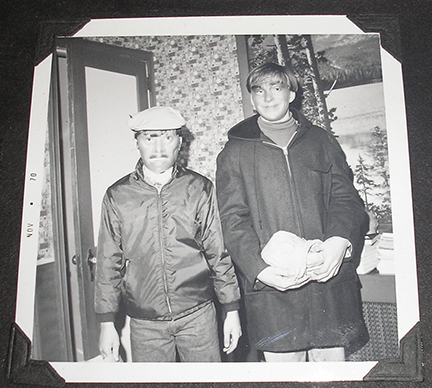 It was getting close to Halloween, and I was checking out the seasonal goods at the East Coventry Mall. At twelve, I was still trick-or-treating, and I was interested in costume options. My brother, Mark, found the masks first. The things were made of translucent plastic, molded to fit, and actually showed just a little of one’s face--enough, somehow, to make the mask seem alive. It was eerie watching Mark walk the store aisles with the mask on. He looked like a midget with a boxer’s face. Of course we had to have these things, so we set about begging Dad for the money to purchase them. They were very cheap, which was our best argument for getting them. Appeals to my father’s cheapness and desire for a good deal were always most successful, and we got the masks, thus winning the day and happier for it.
It was getting close to Halloween, and I was checking out the seasonal goods at the East Coventry Mall. At twelve, I was still trick-or-treating, and I was interested in costume options. My brother, Mark, found the masks first. The things were made of translucent plastic, molded to fit, and actually showed just a little of one’s face--enough, somehow, to make the mask seem alive. It was eerie watching Mark walk the store aisles with the mask on. He looked like a midget with a boxer’s face. Of course we had to have these things, so we set about begging Dad for the money to purchase them. They were very cheap, which was our best argument for getting them. Appeals to my father’s cheapness and desire for a good deal were always most successful, and we got the masks, thus winning the day and happier for it.
There was another family we associated with who lived on a farm just a couple miles from our house. They had an older boy who took an interest in me. He was large and confident, and I thought it would be like having an older brother if I could hang out with him. He showed me his gerbils that he kept in cages in his basement. He played Led Zeppelin II for me a on a record player, and it was the first hard rock music that I liked. He took me hiking and sledding and camping. He gave me some Playboy magazines. We had the best times together.
Once we were in my bedroom over the garage, and he found a deck of bicycle playing cards I had. “Want to play cards?” he asked. I said yes, and we sat down on the carpet to play. He said we were going to play strip poker, which meant removing a piece of clothing for each losing hand. I went along and we played some hands. It seemed like he won almost every hand, and soon I was completely naked, while he’d just lost his shirt. “Well, I’m out,” I said. He said we could keep playing, but have dares instead of stripping, so I kept playing. I lost the hand and asked what was next. “I dare you,” he said, “to lay on your back on your bed and tuck it in so you look like a girl. I giggled and did what he said. He stood up and dropped his pants. He was ready to go, and he jumped on me and started grinding at me with his erection. He held me down for a moment, but I pushed my way out from under him. I was flushed and embarrassed as I dressed myself. I knew from church and family that the homo stuff was bad, and I’d just done some. I never told my parents, though my brothers knew. For years I tried not to think about it, but it was always with me, a little voice in my head saying, “you faggot.” I kept it hidden behind the mask of my face.
Up inside the old maple's crown, bathed in green light, I climbed as high as I could before the branches grew too thin to support my weight. I could never get high enough to poke my head up through the leafy canopy and look over the rooftops of the neighborhood, a suburb just south of Pottstown, Pennsylvania. The stouter limbs of the tree were like a mother's arms cradling me high above the dirt where grass didn't grow in the shade of the great tree.
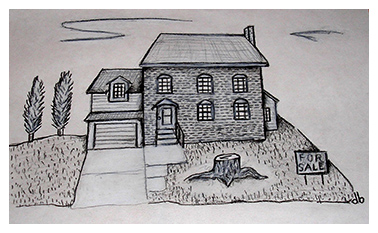 Our very first day there we tumbled out of the station wagon in the driveway next to the tree and looked around. The neighborhood had lots of
vegetation, and wide green lawns fronted the houses, which looked to have been built in the fifties. It was a Beaver Cleaver street like we'd seen
on TV. There was a kid in our tree wearing nothing but cutoff jeans shorts. He glanced at us and dropped off the branch he'd been on, falling face
down with with his arms out to his sides and his legs bent up behind him in the scorpion position. His face hit the dirt hard, and he looked up
with muddy tears streaking his cheeks. Then he ran home crying without saying a word.
Our very first day there we tumbled out of the station wagon in the driveway next to the tree and looked around. The neighborhood had lots of
vegetation, and wide green lawns fronted the houses, which looked to have been built in the fifties. It was a Beaver Cleaver street like we'd seen
on TV. There was a kid in our tree wearing nothing but cutoff jeans shorts. He glanced at us and dropped off the branch he'd been on, falling face
down with with his arms out to his sides and his legs bent up behind him in the scorpion position. His face hit the dirt hard, and he looked up
with muddy tears streaking his cheeks. Then he ran home crying without saying a word.
His name was Scott, and he lived in a house kitty-corner to ours at the three way intersection of Kline and a side street. He came back later, cleaned up and astride his bicycle. He wanted to ride with someone, and I volunteered. I got a bike out of our stuff in the garage and rode along with him through the neighborhood. There was a dead end by the Becker's house that had a white half-fence thing with a sign on it.
"Do you know who the Frames are?" Scott asked me when we stopped our bikes there. I was looking at the framework of the dead end fence, and I thought he was talking about that. "They're dirty people," he went on, "bad." I was starting to wonder if people in Pennsylvania were nuts or something, when he added, "they live down the side street, at the end." I had seen a ramshackle little house over there when we rode past it. It looked like it was falling in on itself, and it was hard to believe it was occupied. I would meat Donny "Framey" Frame later. Scott and I rode back to my house and climbed up into the tree that had earlier pitched him out.
That tree was the best climbing tree in the neighborhood. It shaded our corner lot and drew tree climbers from up and down Kline Ave. Its leaves went through the color spectrum and dried up in the fall, gently dropping to form piles on the dirt and lawn. Dad and all the other neighbor men with trees would rake the leaves into big orange and brown mounds on the street. The leaves would be set afire and burn with that autumnal aroma that tickles my nostrils now just thinking of it. A smoky haze went up over the suburbs like an advertisement for Halloween. Rural Pennsylvania had two Halloweens, really, the first being Mischief Night, the night before Halloween. We took bars of soap and wrote dirty words on the windows of people's houses. Torn up newspapers were tossed over front lawns. Halloween mornings were marked by folks picking up the litter on their lawns and rinsing off their windows with garden hoses. That night they'd give us candy for trick or treating anyway.
Eastern Pennsylvania was buffeted by electrical storms. The wind howled around the corners of the house, and there were two tall and narrow hedges that leaned and bowed in the winds as if alive. I watched them nervously from my window. Thunder shattered my concentration, and I worried about lightning striking the maple tree. Especially when its branches were bare, and I imagined it seeming to become animated like the tree Mary Shelley saw--the one that inspired her to write "Frankenstein." The trunk seemed to crack, and the flash of the strike made the limbs look as if they were moving, she said. I'll never forget reading about that. It was a nightmare from another century, a narcotic that worked in reverse, rendering my nights sleepless.
Scott and his little brother were welcome to swim in our backyard pool, but my father didn't want Framey in the water. So of course I let Framey swim in it. Dad was pissed. He claimed later that Framey had defecated in the pool, which I think I would have noticed. "I had to fish his boopey out of the water with my bare hand," my father complained. Boopey was his word for shit, which he wouldn't say aloud for fear of slipping down an afterlife kingdom rank. He could fall from the Celestial Kingdom right down to the Terrestrial Kingdom for swearing or committing any number of petty sins. Being a lying jackass wasn't on the list, far as I could tell, and seemed to have no affect on his proto-godhood chances. As for fishing out a turd from the pool by hand, we had a couple of nets with long handles. If the man ever does become a god, his subjects are in deep boopey.
The next summer the maple tree was infested with a huge wasp nest. Yellow Jackets--the mean ones. It bothered me that I couldn't climb the tree, so I pulled out the garden hose and put the nozzle on it. I stood on the driveway at what I thought was a safe distance, and I sprayed holes into the big paper mache-looking hive. A wasp came straight out toward me and dove at my face. It landed on my nose and started stinging repeatedly, and I ran yelling toward the house. I tried to swipe it off my beak with an open hand, but the thing was clinging on tenaciously, stinging away at the tender flesh. Before I got into the house I punched myself in the nose real hard, which smashed the dam insect and hurt worse than its stings. My eyes watered with the pain, and I stayed indoors for a while.
We never stayed in any one place for long, on account of Dad getting into trouble. He was the assistant superintendent of the district where I attended middle school, and his presence there did me no good. A couple of the teachers seemed openly hostile toward me, and I didn't put it together until years later that they probably didn't like him either. He had a superior attitude, being destined for supreme being status. Most folks found him more extreme than supreme. Anyway, one day my brothers and I came home from school to find a for sale sign in the front yard. Even worse was what Dad had done to the big maple tree. It was sawed off at the trunk, gone forever. I don't think the neighbors appreciated that, because the tree was a neighborhood focal point that provided shade and climbing opportunities for their kids. Mom didn't care. "Tell everyone we're moving to the country," she said.
Robert had a hand on the wheel and another hand dangling out the driver's side door. The Plymouth station wagon was white and not too hot in the Nevada sun. An easterly ribbon of highway stretched out ahead of him and his irritable family. The three boys were whining about the air in the back of the car. We're dizzy, we're choking, I'm going to throw up. They wouldn't stop. They were bad in the car, bad at home and bad at Sacrament meeting. On the passenger side of the front bench seat, Annie fanned herself with a magazine and hummed tunelessly. The two girls sat on the second bench, one the oldest and the other the youngest of siblings. The little one had cried herself to sleep and the older was nodding off fitfully, her sweaty hair sticking to her red cheeks and forehead. Robert wished he could stop, unload the boys, and drive away. If he did stop, he was going to tan some hides, and he let the boys know it. They fell silent for a while, but New York was a long way off.
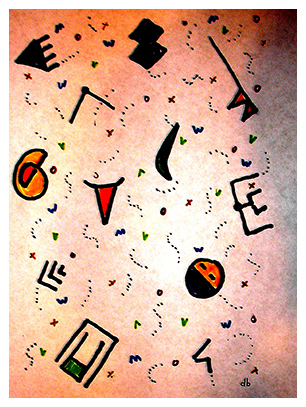 "This isn't real, is it, Poppy?" the boy asked Eddie. Eddie watched the road and said, "It's real, Jaime, Grandpa is rich and we're going to live in the mountains." Eddie had to grip the pickup's wheel and swerve with the curvy mountain road. All the stuff in the back shifted and bumped around. "But Mom," said Jaime, his lower lip quivering, "where is she?" Eddie was thinking about weed. He had lived in North Falls many years earlier. He'd had connections. He stepped on the gas as he came over the last rise before the valley. "She's staying in Utah to work for a while, Jaime. She'll come and join us soon." Jaime looked at the rolling weedy hills. "I hope she doesn't get lost," he said. Eddie wondered what it would be like to live in his father's house. The downstairs had its own door, so he could slip out at night and smoke whatever. North Falls had a nice dark night sky, and it would be a pleasure to get high under the glitter of stars.
"This isn't real, is it, Poppy?" the boy asked Eddie. Eddie watched the road and said, "It's real, Jaime, Grandpa is rich and we're going to live in the mountains." Eddie had to grip the pickup's wheel and swerve with the curvy mountain road. All the stuff in the back shifted and bumped around. "But Mom," said Jaime, his lower lip quivering, "where is she?" Eddie was thinking about weed. He had lived in North Falls many years earlier. He'd had connections. He stepped on the gas as he came over the last rise before the valley. "She's staying in Utah to work for a while, Jaime. She'll come and join us soon." Jaime looked at the rolling weedy hills. "I hope she doesn't get lost," he said. Eddie wondered what it would be like to live in his father's house. The downstairs had its own door, so he could slip out at night and smoke whatever. North Falls had a nice dark night sky, and it would be a pleasure to get high under the glitter of stars.
Somewhere in east Texas, the sky began to boil with low cumulus. Marianne wondered if there would be hail. She and David had just recently bought the Dodge compact in Carolina with money they'd saved up in the service. She looked upward through the windshield, trying to gauge the aggressiveness of the clouds. "It's no good worrying," David said, "do you want me to drive?" Marianne said no. If there were hail it would probably dent the car, and she didn't want to drive back to the old neighborhood in California with nothing to show for three years of military service but a beat up Dodge. "Do you see that?" said David. "Pull over. I'll get the camera." Marianne followed his gaze and saw a clearly defined face in the clouds. It looked like a demonic man's face. She stopped and let David get out to photograph it, but by then it had dissipated. It was an omen, she was sure. But David didn't believe in things, so she didn't tell him. Was their marriage doomed, or would they crash and burn on I-10? Marianne said a silent prayer to Jesus.
He ripped the end flaps off a big cardboard box, and he crawled along in the middle part, the cardboard rotating around him as it trundled along on the sidewalk of Morningside Way. I'm a tank he said, imagining the box to be a tank tread. And they called him Tank after that. He picked all the leaves off the money tree in the living room. He was spanked by Mom and ran to his bed crying. He wandered away from the house and was brought back by the police. His father beat him and made him go without dinner. Tank got in trouble for not sleeping during nap time in kindergarten. He was grounded with no TV. He drank the turpentine that his father kept in a 7 Up bottle in the garage and was forced to swallow a lot of milk. You scared the hell out of me, Mom said, before slapping him.
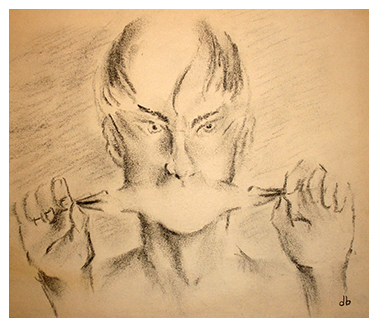 Tank couldn't recall the moment he'd gone bad, or even if he had ever been good. His grades were disappointing, he didn't like sports, he didn't
like Sacrament meetings at church, and he flinched and squirmed when his father shaved his head with the dull electric razor. Mom taught his younger
brother to tease Tank. He has a big posterior, she said. His teeth are buck and have a space between the incisors. Big Butt, his little brother
called him. Buck tooth, spacey tooth, all around queer tooth. Tank would become enraged and beat on his sibling while Mom laughed. When Tank tried
to watch TV, his brother would stand in front of the screen and say, "Big Butt."
Tank couldn't recall the moment he'd gone bad, or even if he had ever been good. His grades were disappointing, he didn't like sports, he didn't
like Sacrament meetings at church, and he flinched and squirmed when his father shaved his head with the dull electric razor. Mom taught his younger
brother to tease Tank. He has a big posterior, she said. His teeth are buck and have a space between the incisors. Big Butt, his little brother
called him. Buck tooth, spacey tooth, all around queer tooth. Tank would become enraged and beat on his sibling while Mom laughed. When Tank tried
to watch TV, his brother would stand in front of the screen and say, "Big Butt."
Psychologist: I had two meetings with fifteen-year-old Tank by court order. In the first meeting he told me that he was called a follower of the devil in his home. His father hated him and gave him no money, not even for school lunches. He lived in the garage of a two bedroom one bath home. He shared the home with his five siblings and parents. He had no self esteem that I could see. I had his father sit in on our second, and last, meeting. The man told me that my profession was ungodly. I never saw Tank again.
Music Teacher: Tank's father insisted that his son was playing the clarinet at expert level. He was the assistant superintendent, and I had no reason to doubt him. But the boy was embarrassed to the point of tears in my advanced class. He'd had no musical training. When Tank's younger brother was misrepresented the same way by his father, I had a talk with administration. Eventually the man was fired.
Principal: Tank was a student in my high school. I know that he sold drugs, but I never caught him at it. No one was willing to turn him in, which speaks to his influence. His mother called me, and she told me he was carrying a knife to school because of bullies. And get this, his father was the school superintendent, my boss. That man was as corrupt as his son. He fired me, and then the town fired him.
At eighteen, Tank was living in his father's garage and paying rent for the privilege. There was no air-conditioning in the paneled and uninsulated room, and he slept on a sheet damp with sweat. Tank worked as a custodian and rode a motorcycle. After a year his father told him to get out, and Tank joined the Army. He was stationed in Korea, where he tried to drink enough Soju to forget. He didn't write home. After a few months he received a letter from the Red Cross. Your parents are worried about you, it read. Please send them a message confirming your well being. He sent his parents a photo of two dead birds on a sidewalk. Nothing else was ever heard of him other than a police report in a local newspaper:
6000 Block, Morningside Way. Hostage situation, preliminary report. An elderly couple was taken hostage by a middle-aged man who has been seen at their residence prior. Ten cruisers on scene. All officers have guns drawn. Neighbors reported hearing a loud argument from within the house followed by two shots. The suspected gunman has made no attempt to communicate with us. A call went out for the S.W.A.T. tank.
Bill Peterson settled into his narrow airline seat with a paperback volume of short stories in anticipation of the long flight. The headphones they offered were torture--cranial thumbscrews, really--so a good read was the best distraction going. He was both startled and delighted when a young woman in black Capri slacks and a white peasant blouse squeezed in past his knees to sit next to him. She looked to be in her mid-twenties and had that easy beauty so typical of young women. She neither wore makeup nor needed it.
"Hi," she said, easing into her narrow, blue cloth seat. "Sandra Dell." She extended a delicate hand.
"Bill Peterson," he said, taking her hand.
There was a dinging noise, and the no smoldering sign lit up.
"Can I have your attention please?" asked the Captain over the intercom. He had the voice of a silver-tongued devil with a trace of a British accent. "My name is Nigel, and I'll be taking you to Lost Angeles today. As we leave Ted Kennedy airport, the weather is hot with a northwesterly breeze at 5 mph and a .00001% chance of precipitation. A favorable trough in the jetscream has moved the headwinds up toward the North Hole. We'll make good time, and we should arrive at our destination by 1800 hours this evening. Enjoy your flight and remember, Burning Airlines gives you so much more."
Bill and Sandra belted themselves in, and the plane began to roll forward. A she-demon steward with black and white skunk hair indicated the location of the emergency exit doors and overhead oxygen masks, which seemed unnecessary to Bill, as he knew that the atmosphere of Hell extended all the way up to the bedrock that formed a high dome over it.
"Do you live in Madhattan?" Sandra asked as the 747 lifted up from the runway.
"Lower East Side," said Bill. "But I just got a job offer in Lost Angeles that looks pretty promising."
"I'm going to shoot some commercials in Hellywood," said Sandra. "If they like me."
"They will," said Bill. "If you don't mind my asking..."
"I know," said Sandra. "Why am I here?" It was the question everyone was asking upon meeting someone new. Like the way astrology had been before, only now your sign was murder, rape, or something equally pernicious, like politics.
"Sorry," said Bill, "if it bothers you."
"No, it's all right," she said. "Remember those comedies from the eighties-Hookers From Venus and Sexteen 2000?"
Bill nodded.
"I played the ditzy blond girl."
"Those were awful," said Bill.
"That's what God told me," said Sandra. "How about you?"
"You don't want to know," said Bill. He appeared to be blushing, if that were possible in a place where everyone looked flushed from the heat.
"I promise I won't hate you," said Sandra, placing her hand on his knee.
"I, I sold stocks," he stammered.
Sandra giggled. "That's not so bad."
"Enron stocks," said Bill. "I sold them to retired people in Florida.
Sandra looked confused.
"When did you die?" asked Bill.
"1992," she said. "Jealous lover." She made a finger pistol with her hand and pointed it at her head. Her thumb hammered down, simulating the shot.
"Oh, my God," said Bill, loosening his tie.
"That's a nice tie, Bill."
"Calvin Klein," said Bill. "We're lucky to have him here with us."
The she-demon steward approached, pushing a spiked metal cart through the narrow aisle.
"Food," said Sandra. "I'm starving."
"Listen," said Bill. "I'm going to be living in Lost Angeles if I take this job, and I'm pretty sure I'll take it."
"And I'll be staying in Hellywood," said Sandra.
"I was thinking maybe we could hook upÉ"
"Why not, Bill?"
Bill took out a business card and wrote his hotel address and room number on the back. "Call me?"
"I will," said Sandra.
The steward leaned forward to hand Sandra and Bill two small packs of hot peanuts.
Sandra opened hers. "That's it?" she said. "Six and a half nuts?"
Bill kicked Sandra's ankle and made a shushing sound.
"You're not satisfied?" asked the demon steward.
Sandra waived Bill off. "No," she said. "I am not satisfied."
Bill's face went white as the she-demon reached past him and grabbed Sandra by the shoulders. "She didn't mean it," he said, but it was too late.
Sandra was wrenched from her seat, the safety belt tearing away as she cried out. Bill wondered how much that had hurt as he watched the steward drag Sandra down the aisle by her hair.The she-demon pulled Sandra to an emergency exit, opened the door on howling hot wind, and tossed the girl out into the jet wash.
Then the steward shut the door with a hiss. "Are there any other complaints?" she asked. No one said a word.
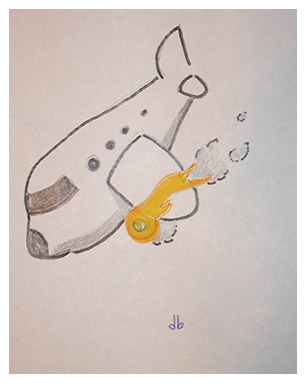 Bill's face filled the tiny window. They were flying over what would have been prairie lands on Earth. There was no equivalent for the place
known as the Bible Belt in Hell. Here it was a vast wasteland of rock and brimstone. He imagined Sandra's body turning over and over, perhaps in a
frog-like position, until she slammed into the rocky surface below. She would die on impact, and then her body would reconstitute itself slowly
and painfully. When healed, she would begin to wander, perhaps in the right direction, until she died again from thirst or exposure. Then she
would heal and start over again. She might get to Lost Angeles in a few hundred years, who could say?
Bill's face filled the tiny window. They were flying over what would have been prairie lands on Earth. There was no equivalent for the place
known as the Bible Belt in Hell. Here it was a vast wasteland of rock and brimstone. He imagined Sandra's body turning over and over, perhaps in a
frog-like position, until she slammed into the rocky surface below. She would die on impact, and then her body would reconstitute itself slowly
and painfully. When healed, she would begin to wander, perhaps in the right direction, until she died again from thirst or exposure. Then she
would heal and start over again. She might get to Lost Angeles in a few hundred years, who could say?
The airplane began bucking and heaving, and Bill's four remaining peanuts flew out of his grasp and rolled away under the seat in front of him. The nose of the jet must be tilted down, he thought.
There was a burst of static on the intercom and then the Captain's voice.
"--control of the engines," he said, "and number two is on fire. I'm afraid we'll have to negotiate a crash landing."
Bill had started to reach out for his lost peanuts, but he decided it wouldn't make any difference now. And it wasn't like he'd never died before. Might as well sit back and wait for it.
The Mustang was running smooth, even with the air conditioner going full blast--the car had that kind of power. Shelley was steering it up Rte 66 on a hot afternoon in early July. Lorne was nodding in the passenger seat. He'd been up most of the night before playing his games on the living room TV. She'd tried to get him to bed by midnight, but he wouldn't go. He'd even opened a beer right in front of her, which pissed her off. Then he pretended like he was going to flick the bottlecap at her. She went to bed alone and closed the door. When he finally came in, she pretended to be asleep. After a few minutes she felt her conscious thoughts slipping away.
Lorne was in another room. She could hear him talking with her father. She leaned out into the hallway and listened. "Can I trust you with her?" that was her father's voice. Lorne said, "I have to look at the truck." Shelley wandered down the hall toward the room the voices were coming from. "It doesn't have to always be this way," said her father's voice. Shelley turned the corner and looked into the room. Lorne was alone and playing with his playstation on an old tube television. "I thought you said you wouldn't bring your games," said Shelley. And Lorne said, "I didn't bring my games, this is real." Shelley looked around the room but didn't see her father. "I heard my Dad's voice," she said. Lorne's voice dropped to an almost inaudible level and said things she couldn't make out. She awoke with whispers in her ear.
Lorne was beside her on the bed. His eyes were open. "I had a dream that you were talking with my father," she said.
"I never met him," said Lorne. He lay there looking at the ceiling.
"Come on," she said, "we have to get up. Highway 66 awaits us."
Lorne sat up. "It does, Shelley. Adventure waits."
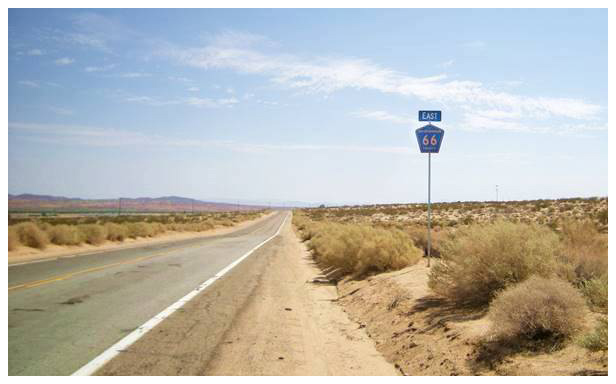 They'd packed the day before, and they were on the road in minutes. They drove east through the hills and deserts of southern California. The sun rose ahead of them, flaring across the windshield and nearly blinding Shelley until it was behind her visor. They crossed the border with Arizona in the early afternoon. After stopping for gas and food at Oatman, they drove on toward Flagstaff.
They'd packed the day before, and they were on the road in minutes. They drove east through the hills and deserts of southern California. The sun rose ahead of them, flaring across the windshield and nearly blinding Shelley until it was behind her visor. They crossed the border with Arizona in the early afternoon. After stopping for gas and food at Oatman, they drove on toward Flagstaff.
Lorne slept most of the way through Flagstaff. Shelley drove by the 66 Motel, thinking, "that is weird, because we're going to stay at the Motel 66 tonight." The 66 Motel, a sign said, was providing housing for the homeless transitioning to a new life. Shelley wondered what it would be like to live in Arizona. She woke Lorne. "Look," she said, pointing at the motel, but Lorne wasn't impressed. "That's not ours," he said. He sounded short of temper. "Are you mad?" she asked. And Lorne said, "why do you ask me if I'm mad? Don't you know I don't like that?" Shelley didn't answer. She felt she'd irritated him. It had been his plan to stay at the Motel 66, which would be another hour's drive, at least. Maybe he just wanted to sleep until then. After staying up all hours he had to be tired. She let him be until they were out of town. The sun was setting over Flagstaff, and the town shrank in the rearview mirror. Shelley drove on; their motel was east of Winslow, and she wanted to get there before it was late.
But Lorne awoke and insisted on stopping in Winslow to look at the statue commemorating the lyric about the town from the song "Take It Easy" by the Eagles. It was dark, and Shelley thought they should press on and take the short drive back to Winslow in the morning. "I want to see it at night," said Lorne, "you know, like one of these nights." Shelley had no idea what he was talking about, but she knew how he was when he got something stuck in his head. He'd watched the movie, Pulp Fiction seven times one week, trying to figure it out, he'd said. They found the statue in a small park just two blocks off 66. Shelley parked, and she got out of the car with Lorne to approach the statue. It was well lit under a streetlight. "That's Glenn Frey," Lorne said of the statue, "he wrote the song with Jackson Browne."
"Welcome to Winslow," said a voice behind them, and Shelley turned to look at the speaker. He was tall and bent under an old trench coat that looked to be unraveling at the hems and cuffs. His hair fell over his shoulders, though he was bald on top. "Now just give me your money," he said, holding out what looked like a butter knife that had been crudely sharpened. It looked more like he was offering the knife than threatening with it. Lorne struck the man's forearm with a fist and the knife fell with a clatter to the sidewalk. The man put his arms up, and Lorne shoved at him with both hands. He staggered back a couple of steps, and he said, "whoa, don't get all excited now."
"Get away from us," said Lorne, kicking the knife into the gutter, "if you want to go home in one piece."
I ain't got no home," said Trenchcoat, "where should I go?"
"Somewhere that isn't here," said Lorne, "Shelley, get back to the car."
Shelley walked to the car, looking over her shoulder. Lorne said something to the man and then followed Shelley. She saw the trenchcoat guy stoop to retrieve his knife from the curb.
"What the hell was that?" Shelley asked as she drove them out of town.
"Land of adventure," said Lorne. "Something to tell your grandkids." He seemed pretty relaxed for a guy who just got mugged.
"You sure you're okay?" she said.
"Never better," said Lorne. " Let's get to our destination. Onward driver."
Shelley drove them out of town and east on 66. It was dark now and most of what she could see was rough road shoulder lit with her headlights and the tail lights of cars ahead of them. A dome of light appeared on the horizon in the near distance, and Lorne said it must be the motel. It brightened as they approached and took on a neon glow. When Shelley pulled into the parking lot out front of the building, she was amazed at all the blue neon trim on the structure. The marquis sign boasted color television with closed circuit viewing. "Would that be porn?" Shelley asked Lorne. "No," he said, "it's old TV from the seventies. Everything in the motel is from the seventies. It's Quentin Tarantino's favorite in the whole country." There was a squat, attached building at one end of the motel. "Is that a restaurant?" Shelley said. Lorne told her it was a bar and grill called the Funky Chicken. "Just pull in over there in front," he said, waving toward the bar and grill. There were some other cars parked in front of rooms, and all were seventies classics. "Must be having a car show in Winslow," said Lorne. Shelley thought her Mustang looked out of place, but not by too much. There were a couple of old Mustangs in the lot. They had better paint jobs than hers.
She and Lorne walked into the bar and grill. It had a nice wood paneled interior with seventies memorabilia hanging on the walls. A poster of Farrah Fawcett, a black velvet painting of a crying clown, photos of the Eagles, Joe Walsh, the Pink Floyd group, Lynyrd Skynyrd and ZZ top hung over a couple of pool tables. Two faux Tiffany Budweiser lamps lit the tables. A hippie bartender stood behind the mahogany bar. "Help you folks?" he asked. Shelley said they wanted to check in and the bartender motioned her to meet him by the cash register, which was huge and metal. "You check in here," he said. "It saves us having to use a room for an office. We get sold out sometimes." Shelley took that to mean there was a room available and smiled at him. He gave her a wink that was accompanied by deep crow lines in his wrinkled face. He may have been a real hippie, she thought, he looked old enough. She paid for a room with a queen bed--room #6. "All of our television sets are vintage," said the hippie guy, "so size may vary. They ain't making them no more."
The room was paneled with cheap woodgrain vinyl and had an orange shag carpet. There was a small tube television on an end table it shared with an old-fashioned telephone. The bathroom was tile in pink and white with a rainbow shower curtain hanging over the tub. There was a wall speaker with a volume control in the room. Shelley turned the volume knob and rock and roll music spilled into the room. "That's the Grateful Dead," said Lorne as he carried in two suitcases. "Who?" Shelley asked. Lorne laughed, "Not the Who," he said, "the Grateful Dead." Shelley wondered what the dead had to be grateful for. Lorne smiled and shook his head. "I'm not stupid," said Shelley, "just because I don't know this old shit." Lorne put his arms around her. "I know," he said, "it was the state's fault that I got a foster father with five thousand records. I love guitar music." He kissed her and pushed her toward the bed. She hadn't had his attention for weeks, so she welcomed it and fell back on the bed. Lorne got up just long enough to close the door.
Shelley woke at midnight and found herself alone in the bed. There was a blue glow coming in through the window from the neon outside. She got up and checked the bathroom. Lorne wasn't there. A look out the window showed her the line of vintage cars parked out front. The hoods were shiny in the neon, and most of the wheels and grills were sparkling chrome. It looked like some kind of convention was going on at the motel. Shelley decided to check the Funky Chicken and got dressed, pulling on a pair of jeans and a t shirt. Once outside, she followed the strains of rock music to the bar. From the open doorway she could see crowds of young men and women in t-shirts and jeans. Most of the young men had long hair. Seated at the bar was Lorne, next to the trenchcoat guy from Winslow. The two were talking and laughing. Shelley wanted to confront Lorne, but she was afraid. She needed to get back to the room and think this through. Tears welled in her eyes. She made fists and her hands trembled.
She lay on the bed, staring at the ceiling. One time Lorne had asked her, "what is the worst thing you've ever done?" She'd told him about a girl at summer camp. The girl had come from a poor family and was camping on charity--someone paid her way. Her hygiene was sketchy, and she smelled like she needed a bath. The other girls called her pov and laughed at her. Shelley had laughed too. It was like everyone knew the poor girl would come to no good. One night the girl swallowed a bottle of cold pills in a pathetic attempt to end it all. She went to the hospital and no one ever saw her again. Shelley thought about that girl and hated herself over it for years. She told Lorne that something like that never cuts loose from you. The guilt hangs on.
"I was raised Mormon," said Lorne.
"I thought you grew up in foster care," Shelley had said.
"Only after I was fourteen," Lorne said, "I was put in foster care that year and never saw my birth family again. Not that I want to. It was the interview with the bishop that was the last straw. I already didn't like my family religion, and the bishop called me in for an interview. He asked me if I masturbated, and I kind of froze up. He kept asking until I admitted that I did. I asked him to please not tell my parents. The next day my father took the door off my bedroom and confiscated my smart phone. He said I was addicted to pornography, and privacy would only feed my addiction. I hadn't even mentioned pornography to the fucking bishop. Everyone at church knew, and they whispered about me. I refused to attend, and my father told me I had to be cut off. I was bringing sin into his house. He turned me over to foster care. There was a court order.
"So I poured some of my Dad's lawn mower gas on his SUV and lit it. It just kept burning and burning until there was a loud puff and a fireball. I went to juvie for that, and then I was put in a foster home. And then another and more after that. Nothing was any good until I joined the Navy as a mechanic. I liked it, but I got in trouble a lot. I couldn't concentrate too well, so I made mistakes, and I eventually got a dishonorable discharge for throwing a chair at a CPO who was riding me. They put me in the brig until I was let go ashore. I wandered north to L.A. where I found work at a garage and met you."
Shelley had been attracted to him from the beginning despite his secrecy about his past. Now she was sitting on a bed in a themed motel wondering what he was capable of doing. How far would he go? Would he deliberately hurt her? She felt she didn't know anymore. But it was just the one thing wasn't it? It was him talking to a mugger from Winslow. Or was it? Had he known the guy before? She was confused and teary. She found her cell phone and called her mother, but her mother didn't pick up. She left a message, and tried not to sound panicked. There had to be an explanation for what she'd seen. Her mother had always been someone who could make sense of things. Mom taught me to drive her Mercedes, Shelley thought. She showed me how to do my makeup to attract a successful man. The woman considered her marriage to be her greatest achievement. "Other girls my age settled for mechanics and construction workers," she'd said, "I held out for a mover and a shaker. Your father had connections in Hollywood before he was done with college. He's always financed movies or put together the financing. Where do you think all this came from?" She waved a limp hand at the interior of the house. Other kids called it a mansion, and Shelley was embarrassed by it. It seemed like too much for just three people when so many had nothing. "That's the loser in you, Shelley," her mother had said, "it's a little voice that most people listen to and follow. I'm not good enough. I don't deserve all this. It's too much. People who listen to that end up marrying mechanics. Don't you do it." So of course Shelley hooked up with Lorne, a dishonorably discharged Navy mechanic. Mom had thrown a fit, and Shelley had moved out to live with Lorne. Now she was stuck in a room in a blue motel. She lay on the bed for what seemed like a long time before drifting off to a dreamless sleep.
An earthquake rumbled through her, and she was awake. She could hear the window rattling, and she got out of bed to look outside. All the classic muscle cars in the lot were pulling out and turning around to exit the parking lot. Red tail lights replaced the white headlights as the cars maneuvered for position. Soon the fleet drove away taking the rumble with it, and all was quiet and blue at the motel. She saw light spilling out of the door to the bar and grill. It was wide open. She went back into the room and put on her sneakers. Then she walked to the Funky Chicken. The hippie bartender was leaning on the bar and watching a small tube TV that was mounted in the corner near the ceiling. One of the old Star Trek episodes was on with William Shatner playing Captain Kirk. Shelley'd seen a few episodes, and she recognized it. "Could you get me a beer?" she asked. The bartender looked at her. "You better show me some ID first," he said. Shelley realized she had left her driver's license in her bag. "I'm twenty-five," she said. The bartender laughed. "You ain't a day out of high school," he said. "I could get you some weed." Shelley shook her head. "I don't want weed," she said. "Just a beer." Then the bartender shook his head and went back to watching Star Trek.
Shelley walked back to room #6. She noticed that her Mustang was gone from the lot along with all the other cars. She looked in several windows and found all the rooms dark. It seemed that no one was around other than her and the bartender. She went inside to look for her keys. She was certain she'd left them next to her cell phone on the nightstand. Both items were gone now. She looked around the bed for her bag and didn't find it. Had Lorne just taken everything before driving off with the others? But she was sure her phone had still been there, at least. Someone must've grabbed it while she was in the bar. It was time for another talk with the bartender, she decided, and she walked over to the bar to find the door closed and locked. All the outside neon was still on and brighter than ever. She pounded on the door, but there was no answer. "This is starting to piss me off," she said. "That bastard."
She went back to room yet again, and she turned the TV on. It was still Star Trek, just like the hippie bartender had been watching. She twisted the old tuning knob on the TV and found that only one station was working. Maybe if she watched for a while, she'd see a familiar commercial. But there were no commercial breaks--not even a station ID. She couldn't stop thinking about Lorne. Why had he left her and taken her stuff? Had he gone off somewhere with the other drivers? She wished she could call her mother. She'd tried the vintage phone on the dresser, but it hadn't made any sounds at all. It didn't seem to be plugged in anywhere, and she had a feeling it needed a wire or a cord. She didn't know how the things worked.
 It must have been a couple of hours gone by when Shelley heard a car outside. She looked out the window and saw a classic Mustang pulling up in front of the room. Lorne stepped out from the driver's side, but he didn't look right. He had a wig on, she supposed, to look at his hair, which was shoulder length now. And as he approached she noticed that he looked younger. It was probably the hair. She opened the door and confronted him. "What are you doing?" she wanted to know. He said he was just coming back from a drive. His right hand clutched at her bag. "You left this in the car," he said.
It must have been a couple of hours gone by when Shelley heard a car outside. She looked out the window and saw a classic Mustang pulling up in front of the room. Lorne stepped out from the driver's side, but he didn't look right. He had a wig on, she supposed, to look at his hair, which was shoulder length now. And as he approached she noticed that he looked younger. It was probably the hair. She opened the door and confronted him. "What are you doing?" she wanted to know. He said he was just coming back from a drive. His right hand clutched at her bag. "You left this in the car," he said.
"What?" said Shelley. "I've never been in that car. Where's my car?"
Lorne laughed. "You don't have one," he said, "maybe your daddy can buy you one."
"Lorne," she said, "you know he's dead."
"Sure," said Lorne, "but that doesn't mean he won't punish you for sneaking out. Come on, I have to get you home."
"You want to drive to Los Angeles now?"
"Why would I want to drive there?" Lorne asked. "You don't live more'n ten miles from here."
Shelley was confused. "What kind of game is this?"
"Oh come on Shel," said Lorne. He'd never called her that before. "Just get in the car. You can't stay here all night. We're done with the room anyway."
She took her bag from him and looked inside it. No cell phone and no car keys. There wasn't any sign other than the tossed blankets that anyone had been there. "Where's my phone?" she asked.
"At your house, of course, where it always is," said Lorne, "are you all right?"
Shelley didn't know how to answer. She was breathing okay, and she was pretty sure she wasn't dreaming. But she could be wrong. She'd dreamt of Lorne and her father talking before. Maybe this was part of the same dream. She found her driver's license, and it was all wrong. The photo was of her but younger. It was an Arizona license, and it gave her birth year as 1957, which was thirty-six years earlier than the real date. She had to be dreaming. She decided to get in the car and see where Lorne would take her. She hoped it would be a good dream from here on out. Lorne drove them through miles of rough country. In the dark she could only see the road shoulder and glimpses of brush racing past. Sometimes there was a guard rail for curves. Here and there she saw the dim lights of dwellings in the background away from the road. Dirt roads split off the paved road to intersect with the tiny lights.
"This is yours," said Lorne, as he slowed and steered the car onto a dirt driveway. They came to a one storey white house with a wide porch and brick chimney on top. The house was long like the motel had been. There was a porch swing, and all the windows had wood shutters. One window was half open. "There's your bedroom," said Lorne, "I'll give you a boost to climb in." He put his hands together with his fingers interlaced, and Shelley gave him one foot, pushed off the ground with the other, and went right through the gap under the open window. She put her hands out and caught herself on the carpeted floor inside. It was shag, which she'd never seen before, and navy blue, almost black. She stood up and turned to the window. "Thanks, Lorne," she said, "see you tomorrow?" Lorne nodded, "if your eyes are open," he said.
As Lorne's car left with a rumbling, Shelley looked around "her" bedroom. It was a teenage girl's room. The room's walls had been painted the color of Robin's eggs. There were posters of handsome rock stars, and she recognized one of Robert Plant of Led Zeppelin. He had long curly hair and was impossibly thin. There was a mirror over a vanity, and Shelley gazed at her reflection. She was young and tiny. Her hair was blonde, and there were no wrinkles at the sides of her eyes. There was no denying her excitement. She was young again, and there wasn't any way this could be a dream, was there? It was too long and too continuous. Could that kind of time pass in a dream? She didn't think it could. She sat on the bed, which had a nice blue and white quilt over it. A needlepoint over the headboard on the wall read: "Hang in there." It had a kitten hanging from a tree. Had she made it? Her mother? Did she have a mother? A father? There must be someone, she thought. A teenage girl wouldn't live in this big house alone. She undressed and turned off the the lamp on the side table. It had been left on, perhaps to make it look like the room was occupied. She lay on the bed and tried to sleep, but it was a long time coming. She thought about her mother in L.A. How would she get back there, and what would her mother think of having a teen daughter again?
When she woke sunlight was streaming in the window, sparking a thousand floating dust motes. She'd gotten under the quilt at sometime during the night. It was cozy, and she was reluctant to rise. There was a rap at her door, and her father's voice from the other side calling her to breakfast. It was her real father's voice--she recognized it. He was somehow alive once more wherever she was. Arizona, she remembered. She was in a farmhouse in Arizona with her dead father who wasn't dead all the sudden. She put on a long t-shirt that hung past her knees. It had an Oakland Raiders logo on it. The she followed her nose to the kitchen, where bacon was grilling, and eggs were being scrambled by her father. "Hey, pirate," he said, turning to face Shelley, "eggs and bacon. And there's two slices of bread in the toaster." She realized she hadn't eaten for a long time. It had been at least an overnight now plus whatever time in the future. She couldn't say, but the eggs were delicious, and the bacon was heady. "Somebody's hungry," said Dad, getting a plate for himself. She found it amazing that he was alive and having breakfast with her in the country kitchen of a rural house. He'd always been a city guy, the way she remembered, like her mother.
"Not waiting for me?" said Shelley's mother at the door to the hall. "Mom," said Shelley, "what are you doing here?" Her mother frowned and said, "I don't belong in my own kitchen?" Shelley looked her mother up and down. A long nightgown covered the woman from neck to toe. In L.A. she'd never worn something so quaint. She'd be in her designer sweats this time of the morning, smoking a cigarette and refusing food. It was wonderful to watch her eat. She seemed to have a youthful appetite, and Shelley noticed that she looked younger. Dad looked a little younger than she remembered as well. "Shelley," said her father, "could I have you drive the truck to Winslow today? I want you to pick up a load at the feed store." Shelley nodded. She could remember the way back to town and find the place with a little help. "I forgot what street it was on," she said, "the feed store."
"It's south of town on 87," he said.
Shelley felt sure she'd find it. "Remember when I taught you to drive the truck?" her mother asked. Shelley remembered a Mercedes sports car. "You didn't know how to work the clutch," her mother went on, "you popped it and the we went forward so fast the wheelbarrow flew off the bed." Her father chuckled, and Shelley thought it best to fake a laugh. It was a family joke, she supposed. There was a loud knock at the front door. "That'll be Ellis for his morning cup," said Shelley's father, "I'll let him in." He went to the door and returned with the trenchcoat mugger, who was now wearing a western shirt and jeans. His hair was shorter, though he was still bald on top. Shelley looked at him with astonishment. He caught her staring and winked. "I'll take a black coffee," he said, "before I get to work." Dad got the man a mug and poured him a coffee. "Ellis," Shelley asked the man, "are you from Winslow?" Ellis laughed and said, "I'm from all over. Your Dad found me bumming for spare change downtown and asked if I was interested in work. Then he offered me the old bunkhouse, and I gotta say, sleeping indoors is the best." He nodded and went for the front door, coffee mug in hand. "Did you forget Ellis?" Shelley's mother asked her. "No," said Shelley, "it's just that I didn't sleep well last night."
"I don't imagine sneaking off with Lorne had anything to do with that," her father said with a grin. "I know you were trying to be quiet, but that car is too loud for secrets. I'm just glad you came home and slept in your bed." Shelley didn't know whether to be relieved or embarrassed. She felt a little of both. "Lorne's a good boy," said her mother for the first time. "I hope you two stay together." Her L.A. mother hadn't liked Lorne at all. She felt out of place, and yet, somehow, she was more in place than she'd ever been. She excused herself from the table and retreated to her room to get dressed. She put on some jeans, sneakers and a t shirt from the closet. Her father gave her the keys, and she walked outside to look around. The truck was parked on one side of the house, right on the grass. Its bed was empty, and there were some tie down straps hanging from the back of the cab on brackets. She climbed in and started it. It was a Ford, and the gears worked like those on the Mercedes had. But the stick was a lot longer, and the pedals were a bit of a stretch for her feet. She got it rolling down the dirt driveway and turned left to head for Winslow. The sky was clear blue from end to end. It lacked the smoky edges of the Los Angeles sky. Instead it was blue all the way down to the red rock mountains on the horizon.
There was a dash radio, and Shelley played with the knobs. She got a news station and listened to it. "President Nixon," said the voice "announced this week the creation of a Drug Enforcement Agency to win the war on drugs. Actress Betty Grable passed in Santa Monica, California. The star of How to Marry a Millionaire and Tin Pan Alley was 56 years old." Shelley remembered Lorne telling her that Nixon was president in the seventies, so that's where she must be, timewise. Lorne would love that if he knew. But he didn't seem to have a clue. The cab was getting hot, and there was nothing that looked like air conditioning controls on the dash. She rolled her window down and slowed the truck so she could lean over to roll down the other window. She could barely reach it. With fresh air blowing through the cab she sped up again, enjoying the view of rolling fields of weeds and patches of crops. Small ranches were interspersed with wild growth that was sparse and dry. There were weeds, sage and reddish rocks everywhere. It was the kind of place you'd see in a movie, she thought. You'd break down there and get into serious trouble. Murderers would find you. She regretted thinking that and hoped the truck would keep going. It did, and she entered Winslow well before noon. She could be home by lunch and eat with her reconstituted parents. That was a good thought, she decided.
She drove until she got to the same highway that she and Lorne had taken through Winslow, and twice now. There she turned right and followed it through town. She remembered where Lorne had told her to turn before, and she took the truck the same way. It was just a few blocks off the highway and through some neighborhoods of houses and brick buildings, the subcity of a small town. Kinsley Street, that was it. She turned on to to it and kept driving. Just as she was passing a brick building with big glass display windows, she spotted Lorne standing by a lamp post. He had a guitar with him. She was thinking he hadn't told her he played guitar when she noticed the sunlight pouring down like polished bronze in the heat, and everything took on a metallic look. Time seemed to stand still, and she wished it would so that nothing would change back ever.
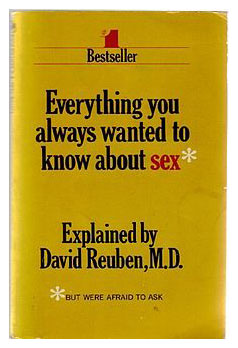 I think this was the one example of a book that wasn't as good as the movie. Woody Allen filmed a parody of this pop sex manual. I saw the book
years before I saw the movie. It was 1969 when the paperback came out, and I had seen it at the North Coventry Mall south of Pottstown, where we
lived at the time. I was twelve going on nihilism. Recently, I had discovered that my family religion was a construct, and it disturbed me. I tried
to talk to my father about it, but it just upset him. I was convinced it was a facade. I was the only Mormon in my middle school, and all the kids
were the same to me. The kids back in Manhattan seemed so eccentric and diverse that it didn't matter who you were. We had Arab and Israeli immigrant
kids and black and latino kids. In Pottstown the kids were uniformly white and protestant. Though white, I was Mormon. It was my first experience in
life as a freak. I wasn't just a kid having a bad day like before. Every day was bad.
I think this was the one example of a book that wasn't as good as the movie. Woody Allen filmed a parody of this pop sex manual. I saw the book
years before I saw the movie. It was 1969 when the paperback came out, and I had seen it at the North Coventry Mall south of Pottstown, where we
lived at the time. I was twelve going on nihilism. Recently, I had discovered that my family religion was a construct, and it disturbed me. I tried
to talk to my father about it, but it just upset him. I was convinced it was a facade. I was the only Mormon in my middle school, and all the kids
were the same to me. The kids back in Manhattan seemed so eccentric and diverse that it didn't matter who you were. We had Arab and Israeli immigrant
kids and black and latino kids. In Pottstown the kids were uniformly white and protestant. Though white, I was Mormon. It was my first experience in
life as a freak. I wasn't just a kid having a bad day like before. Every day was bad.
The kids at school were talking about the book. I overheard their conversations. There was a lot of laughter and jokes I didn't get. It was the same way with the TV show, All in the Family. Dad wouldn't let us watch it, because it was too real. I felt like I was the most ignorant student in the school. I knew history and math, but I didn't know anything that was cool. Dad said serving the Lord was cool, if I wanted to do something cool. Non-Mormons were sinners. Is that what you want? Yes, I said inside my head. I want to be a normal sinner. I didn't care for being a weirdo.
There was nothing I could do with my television viewing. It was closely monitored. I did read a lot of books that my father would have banned, had he known what was in them. And the idea came to me at the mall. One day, Framey, a poor kid who lived in a ramshackle little house at the dead end, told me he had some money for candy. We could get some M&Ms. He always thought I should be rich, because my father had us in one of the best houses in the neighborhood. But I never had money. Dad said I couldn't handle it, so no allowance. I went to Framey's house and found him battling with his older sister on the sagging front porch. "You took the sixty-three cents Grandma gave me!" she yelled. Then she punched him right in the face, knocking his head back so hard his dirty blond hair lost its part. He took off running toward the mall and I followed him. He slowed down to catch his breath, and I caught up. "Look," he said, pulling change from his pocket. "I have sixty-three cents, and M&Ms are fifty cents for the big bag." We walked past the bookstore on the way through the mall, and I saw the book on display. I knew I had to have it.
"You know what happened to me?" Framey asked, as we walked and ate M&Ms. I asked him to tell, and he said, "I was watching my sister take a bath," he said, "and my wiener got hard. So I rubbed it on the bed and milky white stuff came out."
"That's sperm," I said, "you idiot."
"Moyer calls it jit," said Framey, referencing a big fat bully who beat me up at school.
The next Saturday I got up early and ate my cereal at the dining table. No school, and Dad hadn't assigned me work yet, which was why I arose early. Dad could call off a weekend at the drop of a heel of bread. Before the crust hit the floor he'd have me in work boots, ready for labor. And Sunday was already a loss due to church meetings. There were three on that day alone. And the nearest Mormon church was a half hour drive away. I got dressed and headed to the mall. Then I went into the bookstore and pretended to browse in the aisles. I looked left and right like any nervous thief. Then I tucked a copy of the paperback into my pants under my t shirt. I did it quickly and slipped out of the store. On the way home I pulled out the book and sat in the woods to read it. Later I shared it with my brothers and my sister, even though she was mean to me. There was a lot of weird stuff in the book I'd never heard of. Fetishes, fantasies, perverts with mirrors on their shoes to look up women's skirts. That kind of thing. What I hadn't foreseen was that I would still be a freak at school, and most kids still wouldn't talk to me. Talk about a letdown. But I did see the movie a few years later, and the comedy made up for it.
*But you're afraid it's a sin to ask.
By the time I was 17, I had lived in 10 different homes all over the country, counting the boys ranch. Dad had got himself into serious trouble in Elmira, Oregon, and we had to flee town. Locals were threatening to kill him. They hated the way he ran their schools and fired him in anger. We had to go live with relatives in Roseville, CA. Mark and I were put in the garage. We slept in a tent trailer parked in there. It was a hot and stuffy. When Mom saw the house that Dad had bought for us in Roseville, she cried. It was a small three bedroom, one bath, and we had a family of nine. No problem, said Dad, we'll just put the boys in the garage. And that's where I lived until I joined the army and got away.
The garage room was walled in at the front and back, so we only got about two thirds of the garage for three beds and three dressers. It was crammed in there. And often hell hot. The summer temperatures were over 100 degrees. Try sleeping in that. We flipped our pillows for the dry side--there was no cool side. Sometimes the door from the garage to the house was locked at night, and we went out the side door to pee on the lawn. I don't know what the neighbors must have thought. I got a job as a janitor, and Dad charged me rent for my bed! He made me pay about half of what an apartment went for, because he knew what I could afford. I wanted to move out, but my wages were too low. On Sundays, with the family off to Mormon church meetings, I napped on the living room couch in the cool living room.
Jeff's bed was crammed in the middle, with Mark's and mine along the walls under the high garage windows. We didn't have enough sheets (Dad was saving half his income in a secret bank account), so Jeff used an old sleeping bag. One day he complained that something was crawling in his sleeping bag. There was a smell like wet hair. On close inspection we found it was a litter of kittens that a stray cat had delivered in his bed. Apparently, someone had left the side door to the garage open.
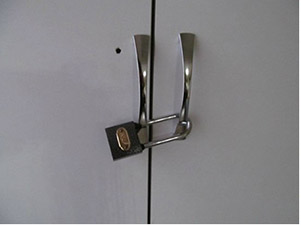 As if that wasn't enough, Dad put a lock on the food cupboard in the kitchen. He said we were eating too much. I started eating fast food that I
bought for myself. Jeff got a job driving a dump truck to feed himself, and I imagine Mark ate at his girlfriend's house. I was the only one who
was eighteen, Mark and Jeff were minors. The one concession that Dad made for our caloric needs was popcorn. He bought seeds by the bag, and we
popped corn every night. We sat in the air conditioned chill of the living room, gorging on popcorn and watching TV. Dad would walk into the room and
change the channel without a word. "Hey, Dad, we were watching that." Then he would say, "It's suggestive and inappropriate," even though
television was heavily censored back then . This was 1976. We listened to Peter Frampton songs on my FM radio in the toasty garage. "Show Me
the Way."
As if that wasn't enough, Dad put a lock on the food cupboard in the kitchen. He said we were eating too much. I started eating fast food that I
bought for myself. Jeff got a job driving a dump truck to feed himself, and I imagine Mark ate at his girlfriend's house. I was the only one who
was eighteen, Mark and Jeff were minors. The one concession that Dad made for our caloric needs was popcorn. He bought seeds by the bag, and we
popped corn every night. We sat in the air conditioned chill of the living room, gorging on popcorn and watching TV. Dad would walk into the room and
change the channel without a word. "Hey, Dad, we were watching that." Then he would say, "It's suggestive and inappropriate," even though
television was heavily censored back then . This was 1976. We listened to Peter Frampton songs on my FM radio in the toasty garage. "Show Me
the Way."
 Shawna wiped at the polished surface of the bar with a fresh rag. There were thin puddles of water and whiskey on the surface, and she wanted to
clean it up before it stained the finish. Her brother, Ollie, had spent good money on the hardwoods. He was kind enough to allow her to operate
the Copperton Saloon with him, and she had every intention of making him grateful for his decision. Their parents hadn't left a lot of money, but
what had been left went to Ollie, and he used the resources to put together a local tavern with some rooms upstairs. They were downtown with a view
of the wrinkled mountains to the west.
Shawna wiped at the polished surface of the bar with a fresh rag. There were thin puddles of water and whiskey on the surface, and she wanted to
clean it up before it stained the finish. Her brother, Ollie, had spent good money on the hardwoods. He was kind enough to allow her to operate
the Copperton Saloon with him, and she had every intention of making him grateful for his decision. Their parents hadn't left a lot of money, but
what had been left went to Ollie, and he used the resources to put together a local tavern with some rooms upstairs. They were downtown with a view
of the wrinkled mountains to the west.
A man with a pencil thin mustache approached the bar. "How do, ma'am, " he said. "Could I get a spot of whiskey?" He was dressed as a man unused to fieldwork. Dapper enough to be a San Francisco dandy, is what Shawna thought. She poured him a shot glass and slid it to him.
He took the glass with one hand and her wrist with the other. "And perhaps something more?" he asked, squeezing at her wrist. Shawna pulled her hand free. "I don't know where you think you are," she said. "But your advances are not welcome here."
The man took off his hat and set it on the bar. "I'm only teasing," he said. "My name is Jack Downs, and I just rode in from Fernley."
Shawna wiped a little more at the bar. "What brings you here?"
"Trouble," said Jack. "Somebody in this town is stirring up trouble, and I mean to smooth it out."
"We don't have no wealth in Copperton," said Shawna. "The mine's played out. How could any of us make trouble and what for?"
Jack picked up his shot glass and threw back the whiskey. "Sometimes," he said. "Water is worth more than copper in Nevada." He picked up his hat and set it back on his head. Shawna asked him did he want another shot, but he refused and left the bar. She watched his shadow slide out under the swinging doors. Later, when they were washing glasses, Shawna told Ollie about Jack Downs. "I think he's trouble," she said.
"You ever seen him before?" asked Ollie.
"No," said Shawna.
"Then how could you know?" Ollie asked.
"I don't know," said Shawna. "Just a feeling, I suppose."
Marshall Dan Sykes struck a kitchen match to light his cigar. He'd given up drinking, and cigars were his only pleasure. In fact, he wouldn't have given up the whiskey, but he'd been threatened with his job. The mayor, Bo Severson, was a Mormon and had little tolerance for drinking. Funny thing was, Severson smoked about five cigars a day. Dan figured Mormonism was a state of mind more than an absolute reality. There was a knock at the jailhouse door. "Come in," Dan growled. The door swung open and Shawna stepped in.
Dan suddenly felt under dressed. He always felt that way when he saw Shawna. She was a looker.
"Marshall?" she said.
Dan tilted up his hat, the better to look at her. "Yes?"
"A man come to town by the name of Jack Downs," she said. "Have you heard of him?"
Dan thought about it. "No," he said. "Can't say I have."
"Maybe," said Shawna. "You could keep an eye on him? He looks like trouble."
"He staying in one of your rooms?" Dan asked.
"No."
"Probably at the hotel then," said Dan. "I'll check it out."
"Thanks," said Shawna. "I appreciate it."
"The pleasure's all mine," said Dan, and he meant it. After she left, Dan re-lit his cigar and put his feet up on the desk. One fine looker, he thought. One fine looker. Again there was a knock at the door."Come on back in Shawna," said Dan.
The door opened, and a fancy man entered. "Who are you?" Dan asked.
"Jack Downs," said the man. "I'm here to represent the interests of John Crocker of Sacramento."
Dan sat up and put his elbows on his desk. "Is that a fact?" he asked. "All the way from Sacramento?"
"That's right," said Downs. "Mr. Crocker has purchased all the water rights in this valley. His private short line will have exclusive access to all the water from here to Fernley. We sent a letter to the mayor, and he denied our claim."
"What does that have to do with me?" asked Dan.
"Your town will have to cease and desist," said Jack Downs. "You will have no water."
Dan pulled out his long barrel 38 and drew a bead on Jack Downs's smirking face. "It might be difficult," he said. "To report back to Mr. Crocker, with your head blown off."
"You'll regret this," said Downs, as he backed towards the door. "Others will contact you on this matter."
"Yes," said Dan. "I don't doubt they will.
In an abandoned miner's shack a half mile out of Copperton, Jack Downs relaxed by a woodstove. His booted feet were kicked up on a rough hewn table. And four other men were there, boots kicked up, whiskey bottles in hand, to keep Jack company. There was Big Duluth from up north, Yankee Jim from California, Beaner and Ditchweed. They all sat around two small tables, trying to catch heat from the one woodstove.
"Here's how it is," said Downs. "There ain't no one in this town who gives a damn, except for Marshall Sykes. The mayor is a coward. We take Sykes out, the town is done."
Big Duluth snorted, "How's come we need so many of us for one fool?"
"On account of we don't want none of us killed," said Downs. "You savvy?
"I got a knife," said Beaner. "To slice his throat."
Yankee Jim held out his revolver, a 38 caliber. He spun the chamber. "Six bullets," he said. "Is more than enough for me."
"I trust my rifle," said Big Duluth. "Them pop guns tends to miss as much as hit."
Ditchweed snickered. His red rimmed eyes squinted as he cast his gaze around the room. It wasn't possible to know what he was thinking, though he carried a machete.
Mayor Bo Severson had called Dan Sykes to meet with him in his drawing room. The Marshall showed up at eight P.M. as requested. The mayor offered him a cigar. "Thank you," said Dan, accepting the offer. He bit a piece off the end and lit it.
"Dan," said the mayor. "We have a bit of a problem."
Dan puffed at his cigar. "Is the problem called Jack Downs?" he asked.
The mayor turned his head and looked out his window to his front yard. There'd be a lawn there if water were more plentiful. "The problem is a disease called greed," he said.
"Jack Downs is a symptom."
"So if I get rid of the symptom, the problem won't go away?"
The mayor turned back to face Dan. "Maybe," he said. "Since the source is in another state, and I don't know how legal any so-called contracts may be..."
"It could be that's why they're trying to use muscle," said Dan. "They may not have a legal claim on our water."
"But one man?"
"I doubt he's alone," said Dan. "I'm going to need some backup."
"I'd like to help," said the mayor.
"But you can't?"
"Dan, the priesthood men in my community have sworn an oath against violence."
"That's not what I've heard from Utah, Bo."
"This isn't Utah, Dan. There are different dynamics here."
"Yeah," said Dan. "You're not going to be shooting at unarmed pilgrims."
"That was uncalled for ..."
Dan slammed the mayor's door on his way out.
The next evening Dan stepped into the Copperton Saloon and took a seat at the bar. There were about a dozen local men playing poker at the tables. He smiled at Shawna as she approached from the serving side of the mahogany.
"What do you need, Dan?" she asked with a smile.
"I do believe I'm halfway there just to look at you," he said. "A whiskey."
"Thanks," she said, reaching for a glass and bottle. "You ain't half bad yourself. Usually though, you don't drink nothing stronger than a sarsaparilla. Is something troubling you?"
"Trouble," said Dan. "You might say that trouble is troubling me."
Shawna leaned on the bar. "You know I don't like word games. This is a small town, and word gets around quicker than a tumbleweed. I have an idea what you're facing." Dan gulped the shot and motioned for another. The bar doors swung open, and a scrawny derelict entered the saloon. His clothing was tattered and his long hair disheveled. He took a stool next to Dan.
"Do I know you?" Dan asked.
"They call me Ditchweed," said the vagrant.
Shawna wanted to know could she get something for him.
He shook his head. "I'm here to deliver a message to the Marshall," he said.
"And that would be?" Dan asked.
"Jack Downs says tomorrow, six o'clock in the evening, Main Street. Just the two of you."
Dan nodded, and the dirty man got up and left the saloon.
"Dan," said Shawna. "You can't ..."
"It's my job," said Dan.
"My brother Ollie's got our father's Winchester," said Shawna. We've both practiced with it."
"I can't ask your brother to risk his life, Shawna. He needs to be here to take care of you." He gulped his second shot and left the saloon.
Dan spent the slowest day of his life at his desk in the jailhouse, checking his pocket watch and his two six shooters. He thought he'd like to carry a rifle, but that would tip his hand that he knew Jack Downs wouldn't be alone. He had to draw Downs in, dispatch him quickly, and then worry about the others.
The sun moved across his window, and he noticed that the streets had cleared shortly before six. When his watch read two minutes till, he walked out front, two six shooters strapped to his sides. He stepped to the middle of the dirt street and faced east, with the sun behind him. Jack Downs had to come from that direction, as the livery was on the east side of town, and he'd need to put up his horses.
Moments later, Downs walked out into the street in front of the livery and turned to face The Marshall and the setting sun.
"Well, the brave Dan Sykes," said Downs.
His salutation was unnecessary, Dan thought. Was he stalling as his men got set? If it were me, I'd put one on the roof of the livery and one on top of the bank across the street.
As he was thinking, he saw a shadow slide along the dirt to the outside of his right boot.
He leaned left and spun around before Beaner could stab him. He put two rounds in Beaner's chest, but he heard a total of four shots. Before he hit the dirt, Dan realized he'd taken one in the left shoulder and one in the left hand. He saw a man standing atop the livery and fired off two rounds at him. Yankee Jim fell from the roof like a gallows weight. Other shots, rifle shots, were fired between the top of the saloon and the roof of the bank. Ollie, thought Dan. A horse charged out of the livery, eastward bound, and carrying Ditchweed. He was apparently bent on escape. Downs turned and casually shot the deserter right off his saddle. The horse fled at full gallop.
Jack Downs turned back to fire another round, and it grazed Dan's right thigh. Dan aimed at him, but Downs scrambled over to the wood sidewalk and ducked behind a post.
Dan heard more shots from the rooftop, and then a man's painful scream. The shooting stopped. Boards creaked as Downs ran from point to point, approaching Dan's position. Dan was dizzyÑhe'd been hit three times. The dirt was turning red all around him. He didn't know how many rounds he had left in his right hand revolver, and his left hand was useless. He heard movement on the dirt behind his head, and a shadow fell over him.
"You're a sorry specimen, Sykes," he heard Downs say. There was a click as the man pulled back the hammer to fire. Then there was a loud bang, and Dan's senses fell into darkness.
Dan's eyes hurt when he opened them. At first he reckoned he was looking into the unearthly light of heaven, but it was really the late morning sun slanting in through a window. He was laid out on a bed and patched up with field dressing. His left arm looked like a pile of laundry and his right thigh was covered and wrapped as well. A funny little guy with eyeglasses sat in the chair next to the bed.
"I'm Doctor Wright," said the man.
Shawna leaned forward from behind the doctor and said, "We brung him in from Fernley."
Mayor Bo Severson stood at the foot of the bed. "Shawna rode ten miles each way to fetch the doc. Besides shooting Jack Downs with her rifle."
"You need bed rest," Doctor Wright told Dan. "You're not to move for the next forty eight hours except to relieve yourself.
"You're my hero, Dan," said Shawna. She leaned in to kiss Dan right on the lips.
I'm leaving this pain medication," said the doctor, setting a flask on the dresser. "Good day," he said, letting himself out.
"Do you see the miracle of the Lord's work?" Severson asked. "The brethren and I prayed for you, and the Lord spared you. Are you convinced enough now to join us in the true gospel?"
"I can't talk very loud," Dan whispered. "You'll have to come closer."
Severson leaned over the bed, and Dan swung his good arm with everything he had. The mayor staggered back, both hands clenching at his bloodied nose. "You'll pay for this," he cried.
"No, I won't," said Dan. "That's just the point. I'll be running law and order in this town from now on. And I'll drink whiskey if I please. And you can run your ladies auxiliary, no offense Shawna."
"None taken," she said with a mischievous grin.
After Severson left, Dan remarked, "I don't know if it gave me more pleasure to strike his face or to have your face close to mine."
"I can give you another chance to compare," said Shawna.
"You heard the doc," said Dan. "I am your captive."
 Powell was having a Camel cigarette on his balcony and watching the sunset throw long shadows from the Taunus mountains. He lived on the
seventeenth floor of the tallest apartment building in Eschborn, an outlying burg of Frankfurt. The apartments in the building were assigned to
American military couples for housing. His wife, Jan, was still at work, or at least that was her cover story. She got bored from time to time
after twelve years of marriage. They'd been together since before he went to Nam in 1967. She'd told him he'd changed after the war, but it seemed
to him that he was the same, and she was different. She was more critical of him. He had a feeling then that they were out of sync, as if she'd
gotten used to a different life without him. He'd tried leaving the service, so he could spend more time with her, but all they did was argue. That
went on for six months, and he re-enlisted as a way of taking a break. It was a kind of trial separation. He was stationed at Fort Bliss, Texas, where
he trained in an armored motor pool as a vehicle mechanic. When he'd made Spec 4 rank and qualified for family housing, he called Jan. "I've got a
place for us to live," he told her, "all you have to do is get on a plane." She was on the next flight and they were solid after that. Other than her massage fetish, she seemed committed to making the marriage last.
Powell was having a Camel cigarette on his balcony and watching the sunset throw long shadows from the Taunus mountains. He lived on the
seventeenth floor of the tallest apartment building in Eschborn, an outlying burg of Frankfurt. The apartments in the building were assigned to
American military couples for housing. His wife, Jan, was still at work, or at least that was her cover story. She got bored from time to time
after twelve years of marriage. They'd been together since before he went to Nam in 1967. She'd told him he'd changed after the war, but it seemed
to him that he was the same, and she was different. She was more critical of him. He had a feeling then that they were out of sync, as if she'd
gotten used to a different life without him. He'd tried leaving the service, so he could spend more time with her, but all they did was argue. That
went on for six months, and he re-enlisted as a way of taking a break. It was a kind of trial separation. He was stationed at Fort Bliss, Texas, where
he trained in an armored motor pool as a vehicle mechanic. When he'd made Spec 4 rank and qualified for family housing, he called Jan. "I've got a
place for us to live," he told her, "all you have to do is get on a plane." She was on the next flight and they were solid after that. Other than her massage fetish, she seemed committed to making the marriage last.
The thing was that Jan liked to massage any male friend of Powell's, especially the younger ones like Don and John, who lived in the building. She'd have them lie face down on the carpet while she sat on their backs massaging their shoulders. Then she would sit on the backs of their thighs and rub at the small of their backs. Her hands went pretty low, and it annoyed Powell, but he didn't want to say anything, because it was really hard to hold onto friends with what Jan called his "attacks." Sometimes he lost control. Something would remind him of the unspoken horror, and he would live it in his head. He was under attack, and the only escape was to fight his way out. That was how it felt, and it could happen anywhere. One time he and Jan were driving through Frankfurt with John and Marcia in the back seat. John said something about Army fatigues looking like a monkey suit. "You should be proud to wear the same uniform as the guys who suffered and died in Nam." That was the last thing Powell remembered saying before he found himself standing outside the car at a traffic light, screaming at Jan, "I'll tear your heart out!" He'd heard himself yell it, but didn't know why he had. Jan talked him down, and he slid back into the front passenger seat.
Powell needed to interview Don and John on the subject of doing his wife. It had to be handled surreptitiously, as it was such a delicate matter. You don't just come right out and ask did you fuck her, do you? One afternoon when Jan had driven to the PX for shopping, Powell invited Don over to smoke some hash. Powell took his easy chair by the view window, and Don sat at the end of the sofa nearest him. The hash was kept wrapped in foil and buried just under the surface of the dirt in a potted plant. Powell retrieved it, opened it, and broke off a small bit of hash from the piece. A piece was twenty dollars worth in one chunk. A year earlier the chunk would be ten grams, now it was five. That was thanks to a government crackdown that had pinched supply and made transport riskier. Powell heated the bit with tweezers and a cigarette lighter to flake it for even burning. He dropped it into a meerschaum pipe bowl and lit it. He and and Don had a couple of hits each, and then he put a record on his Technics turntable. He picked "Isle Of View" by Jimmy Spheeris, a rare album with an ink drawing of a knight riding a giant eagle on the cover.
As the songs progressed Powell told Don about a guy he used to know in Syracuse. The guy sat around all day in dirty underwear eating Oreos and smoking his bong. What really bugged the guy was missionaries, both Mormon and J.W. For some reason the guy had one of those yellow rubber chickens and would swat you with it if you insulted him. They called him Stinky after the character Joe Besser played on the Abbott and Costello TV show. "I will harm you," said Stinky, whether on TV or off. One day the J.W.s came by and Stinky answered the door in his underwear with the rubber chicken in his mouth. Grrrr, said Stinky, and the missionaries fled with a look of horror on their faces. That got a laugh out of Don, and Powell figured he was loosening up. "Did you see Jan yesterday?" Powell asked. Don said no, he hadn't. Powell took another hit of hash and tried to think what to say next. Don's eyes were red and his lips looked dry. Powell offered a beer, and Don took him up on it. They drank their beers as the record played the last song on the first side, which had a chorus about a mountain. "I love looking out my window and seeing the Taunus mountains," said Powell. Then Don said that he could see all of Frankfurt on his side of the building. Powell was tired of cities. He felt tired, so he closed his eyes for a moment. When he awoke the needle was riding the end of the groove on the record--it went skitch, skitch--and Don was gone.
The building Powell lived in had a large laundry room in the second level basement. There were a couple dozen washers and dryers that were shared by the inhabitants of all twenty-five floors. He was doing laundry there while Jan was napping on a Saturday afternoon. He saw John emptying a hamper into a top loader and decided this would be a perfect opportunity to question the guy. "You seen Jan today?" he asked, "she was out, and I wondered if she'd come by to see Marcia." John said no, but maybe she had gone over to Don and Mary's place to hang out. "No," said Powell, "Jan and Mary don't see eye to eye." John said, "but Jan likes Don okay." That got Powell thinking. "How much does she like Don?" Powell asked. And John said, "not that way, Powell. Are you getting paranoid?" Powell grabbed at John's t shirt. "Are you calling me crazy?" He said. "Because I will fuck you up, boy." John swatted Powell's grabbing hand away. "Jesus, Powell," he said, "boy? I'm only ten years younger than you." Powell picked up his unwashed laundry and left. His hands were shaking. He couldn't help thinking, what's wrong with me? He waited an hour-and-a-half in his apartment before going back down in the elevator to wash his clothes.
Freddy's was a classic bar and grill on Sigmund Freud Strasse near a traffic circle. The whole staff spoke English and the place was a favorite of local Americans. They had a waitress there named Lola, whose accent was pretty thick. Whenever there was a fog on Frankfurt, American customers would ask Lola, "How's the weather?" She would say, "it's a little bit fucky out," and everyone would crack up. One Friday night, all three couples went there together and pushed a couple of tables together. John and Marcia were seated by the widow, Don and Mary by the wall, and Jan and Powell with their backs to the bar. The onion soup there was superb, and everyone had a bowl except Mary. She hated onions as much as she despised marital fidelity, and someday Don would find out, thought Powell. But the pressing matter was Jan. Was she fucking one of these two twenty-year-old boys? The talk around the table turned to the hostages in Iran, as it always did recently. A little Maltese dog was running around on the floor and barking at everything. The dog was getting on Powell's nerves.
"With all this crap going on in the Middle East, I hope we don't get into another Viet Nam," said Don, with all the wisdom of an uninformed recruit. "What do you mean by that?" Powell asked. Don slurped at his onion soup like a kid from a poor family and said, "That war was a waste." Now Powell was really pissed. "All those lives?" He said, "a waste? Men died for your freedom. Now you wear the uniform and disrespect it, you fucking puke!" Jan touched his arm. "Take it easy Powell, it's just an opinion." Powell stood up. "You want a fucking opinion? Here's one for you." He picked up the barking Maltese and carried it to the bar's front door. He opened the door and threw the dog into the traffic. A German guy at bar stood up and shouted, "Fucking Ami!" Don and John tried to stop the guy, but he shoved Powell out onto the sidewalk. The dog was nowhere to be seen and Powell remembered yelling, "fucking Nazi!" There was some shoving and Powell lost his balance at the curb. He fell into the street, his head glanced off the bumper of a parked car, and he knew no more.
His room in the ward was small and had two beds, one for him and the other for a younger guy about the same age as Don and John. There was a constant humming coming through the wall, maybe from machinery or climate control. The room was too warm all the time, and the humming noise made it hard to think--that and the medication. They had him on lithium and some other kind of tranquilizer. His mouth was constantly dry. Jan came at four o'clock, when visitors were admitted. "When are you getting out?" She asked. Powell said they hadn't told him yet. They were looking over his status. He knew they were considering disciplinary action. He'd embarrassed his command by going nuts in the street and killing a local's pet. He could be discharged or busted down in rank, there was no way of knowing. It wouldn't do him any good to dwell on it. But since Jan was there, he might as well ask her. "Jan," he said. "I want you to tell me who you're fucking. Is it Don or John?"
Jan lied and said no one. She was fucking no one and he was supposed to believe it. She would walk out on him and fuck her boyfriends while he was stuck in the room. The walls leaned in at him. Fucking walls. He threw back his blanket, jumped up, and went right at her. His hands closed on her neck, and he knew it was wrong, but he couldn't stop. Her screams were grating and he had to finish. He had to quiet her, so he kept squeezing. And the people in white rushed into the room and held him down. There was a prick in his arm, and it all went black. He was with God. God told him what to do. Powell would say that he felt better every day until they released him. Then he would finish the business.
Obscure families seem to lack both the resources and the desire for generational continuity. Unmarried sons and daughters are thrown out and rent motel rooms by the week. Some young people live in basements with high window wells. They labor for the railroads and industry, if they can get it, fast food if they can't.
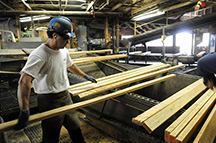 Dalles was working behind the mill, loading trucks with a forklift. He had to piss so he stepped into the porta potty. Someone had written on the
blue wall with a sharpie: nigers and fagots all the same. He peed and ran back out to his lift. He wouldn't be allowed to end his shift
until all waiting trucks were loaded, even if it was two hours late. He'd already skipped one break to catch up with the demand. He had another
load for Stewart Industries, and he thought of Rod Stewart's "Maggie May." He imagined the mandolin instrumental at the end of the song. It rang in his head, and he forgot the order and had to look at it again. Two by fours, ninety six inches long, twelve units.
Dalles was working behind the mill, loading trucks with a forklift. He had to piss so he stepped into the porta potty. Someone had written on the
blue wall with a sharpie: nigers and fagots all the same. He peed and ran back out to his lift. He wouldn't be allowed to end his shift
until all waiting trucks were loaded, even if it was two hours late. He'd already skipped one break to catch up with the demand. He had another
load for Stewart Industries, and he thought of Rod Stewart's "Maggie May." He imagined the mandolin instrumental at the end of the song. It rang in his head, and he forgot the order and had to look at it again. Two by fours, ninety six inches long, twelve units.
"What took you so long?" the foreman asked from behind the desk in his shack. A beetle crawled up the wall behind his head.
Dalles was thinking about the garage he'd lived in as a boy. The spiders bothered him; they were everywhere in the walls and above the false ceiling with the cardboard boxes and old bicycles.
"Did you hear me, Dalles?"
"I did." And Dalles thought back, minus the garage and spiders. Something about him being too slow. "I had to reband one of the units."
"Because you broke the strap with your forks, didn't you?"
Dalles felt his cheeks burning.
"Goddamit, Dalles. You'd better get your shit together. I have several sawyer helpers who'd like to take your place."
Dalles left the office with his head down. He spotted an alligator lizard darting across the loading lot. Its scales were dull green and brown, and it wriggled as it ran. The loud honk of a forklift horn startled him and he looked up. It was Nickerson, the senior shipper.
"You want to get your ass run over?" Nickerson yelled from his seat in the lift. "Dumbass."
Dalles had to load a train car before his last break. It took him two hours to pack the units in, and his shift was nearly over. The foreman gave him another truck to load, so he wound up missing the break altogether. Nickerson had been allowed to leave early so he could get his bass boat on the lake before sunset. The boat was a gift from his wealthy father-in-law. The same could be said of Nickerson's house in the hills of Loomis. Dalles had been disowned by his fundamental Mormon parents for apostasy. After he'd loaded the last truck, he put the bill of lading on the foreman's desk, relieved that his boss had already gone home.
The steering wheel in his Datsun was painfully hot. Dalles imagined it was like a branding iron, only heated with brutal sunlight rather than an open fire. The car had baked all day in the oven of Central Valley summer. Dalles drove to his Sacramento apartment with both windows open to the warm afternoon breezes. He parked in his covered, assigned spot, happy to get the car in the shade. He walked away from the Datsun, thinking about the greenhouse effect and the way metal could conduct heat. He forgot to roll up the windows and lock the doors, so he had to double back to the car.
His apartment was a one bedroom on the second floor. The air conditioner under the living room window complained but blew frosty air. He had a nineteen inch color TV and Pioneer speakers, his most valued possessions after the Datsun. Channel three news was coming on soon, and Dalles made himself a chicken sandwich with mustard and sliced cheese. After the news he watched game shows and tried to guess the answers. He worked at his crossword puzzles during commercials. The sun crossed the window and melted away in twilight. Later Dalles laid in his bed with his eyes open for a long time.
In the morning the workers in the breakroom were arguing about last night's game. Apparently one team was staffed with fuckers and the other with heroes, depending on whom you asked. Dalles was munching on a bear claw he'd purchased at the mini mart fifteen minutes earlier. He read the newspaper and ignored the sporting debates. He looked up as Nickerson entered the room, bragging about yesterday's catch at the lake. A couple of guys ribbed him about exaggerating the size of his fish. They called him Ahab, and Dalles couldn't help laughing.
"Yeah, Dalles, that's really funny, isn't it?" Nickerson said. "Maybe you could tell everyone what a fuckup you are in the yard."
Dalles was thinking about a whaling steamer sailing out of Nantucket. The ship would round the southern tip of the Americas and venture out into the Pacific in search of cetacea. The whales the crew caught would be processed on board. Blubber was reduced to lamp oil before the ship returned to its home port.
"Are you awake?" Nickerson asked.
"I am, and I hear you," said Dalles. "It's just that I was thinking of something more interesting."
The breakroom filled with laughter. One guy said, "way to go, Dalles. You put Dick Lickerson in his place."
Nickerson made a tomato face and left the room.
After he put on his boots, Dalles had to go see the foreman, Nickerson said. Judging by his superior tone, the meeting wouldn't be a pep talk. Dalles reluctantly entered the shack.
"Do you know how many loads you average per shift?" the foreman asked.
Dalles shrugged.
"Seven, that's all. Nickerson averages nine."
"But he does easy loads," Dalles protested. "I have to do all the boxcars, and those take a long time."
"Excuses," said the foreman, "don't move the lumber." He pushed a sheet of paper across the desk. " I need you to sign this."
Dalles looked at the form. It was a temporary probation agreement. Dalles would have two weeks to pick up the pace or go back to the saws as a helper. He remembered pulling trim from the big chains, their hot and greasy rattle and clank blending with the screech of the saws. He'd have to wear the earplugs that made his head feel like an overinflated balloon. He imagined himself lighter than air, his balloon head lifting him up as he rose away from the sawmill. Angry foremen looked up at him and threatened him with drug tests and suspension.
"Are you going to sign it?" the foreman asked, "or are you just gonna stand there with that blank look on your face?"
A blank face would be a good thing. No one could accuse you of faking your expression. Maybe you wouldn't blush. Dalles hated blushing in front of others as much as Nickerson did. It was the one thing they had in common--a tendency to redden under stress. The thought unnerved him.
"Are you listening to me, Dalles?"
Dalles felt the blood pulsing in his head and ears. He was suddenly feverish and out of breath. He wheezed when he exhaled. Sweat from his forehead stung his eyes and blurred everything. He felt woozy, as if his failing vision was dragging his equilibrium down with it. The floor whirled up at him, and he lost consciousness at last.
The PICC catheter, they said, was to give me a longer lasting IV line. It went into my bicep and snaked around inside a vein until it was close to my heart. They used an ultrasound device to guide it in. The end that came out of my upper arm split into several tubes, one for each medication, including saline water. I was getting so much saline that I was bloated like an overripe tomato. I asked them to stop pumping me up with liquids, and they said I'd have organ failure if they didn't. Already my appendix was taken out, along with some of my entrails. My kidneys weren't working, though they said that was temporary. I was on a fentanyl drip, with a ten minute minimum between doses. I could press a button every ten minutes and get a hit. The pain started coming back seven minutes in, so I had to live with some. It was a hard, stabbing pain in my abdomen where they'd sliced me open and gutted me like a fish. The wound was not closed but occupied with the business end of a blood pump.
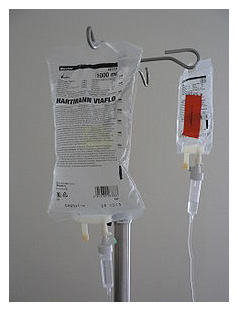 Whenever I pressed the drip button, I felt a cool rush of fluid going into my arm. I could feel the fentanyl going through my shoulder and toward my
heart. Then the sensation faded as the injection reached my body temperature. I had a pavlovian effect that made me feel high while the fentanyl was
first penetrating my arm. Then came the rush. It was smooth and soothing as the narcotic invaded my willing mind. Pain flew away, and the room
brightened. At night I saw colored dots swirling around the small TV. I couldn't follow the programs that were on, and I mostly watched Cops and
Forensic Files. Crimes were interrupted by commercials as often as by police. Little people crossed the little screen in little cars. Some were
dragged off to tiny jails in the television that was smaller than a microwave oven. I had a remote control, but it kept falling off the bed, because
my mattress was inflated and sloped down on the sides.
Whenever I pressed the drip button, I felt a cool rush of fluid going into my arm. I could feel the fentanyl going through my shoulder and toward my
heart. Then the sensation faded as the injection reached my body temperature. I had a pavlovian effect that made me feel high while the fentanyl was
first penetrating my arm. Then came the rush. It was smooth and soothing as the narcotic invaded my willing mind. Pain flew away, and the room
brightened. At night I saw colored dots swirling around the small TV. I couldn't follow the programs that were on, and I mostly watched Cops and
Forensic Files. Crimes were interrupted by commercials as often as by police. Little people crossed the little screen in little cars. Some were
dragged off to tiny jails in the television that was smaller than a microwave oven. I had a remote control, but it kept falling off the bed, because
my mattress was inflated and sloped down on the sides.
Through the room's only window I could see the billboard sign for Cattlemens Restaurant across the freeway. I wondered if I'd survive to eat there again. I remembered that they had great steaks there, though at the moment I had no appetite. I was nauseous much of the time and vomiting every morning. When the guy came by with my meals, I would wave him off. The nurses told me that I needed to eat, but I only wanted to drink water. I wasn't allowed to do that, they said, due to my swelling. So my mouth was as dry as a Sacramento summer. When I used the bathroom, I had to drag my IV pole and the blood pump along with me. Sleep was fitful, and I had terrific nightmares.
The operation itself had been a lurid nightmare. I regained consciousness on the operating table. I was paralyzed and blind, but I could hear and feel. The cutting was done, and they were washing the blood off me and cleaning the wound, which was like a hot bowling ball of hurt in my lower abdomen. I could hear the nurses talking, and I was screaming inside as they rolled me over and scrubbed my flesh. Soon I was upright and strapped to a hospital bed that was tilted up. The pain was intolerable, and I tried to move my hands toward it, but I was tied down at the wrists. I tried to scream but something in my throat muffled my cries. I could move now, but I was restrained. The white hot hurt seared in my belly. I began to grunt and throw my head back and forth wildly. I think that I was absolutely mad at the time. Someone must have put some pain killer in my IV, because the pain subsided. My brother, Jeff, and his wife came to visit me, and my brother was in tears. "Seeing you like that," he later said, "after all you'd been through..." His voice trailed off. I was grateful for the medicine, and even more grateful when they pulled the tube out of my throat. The thing had made me feel like I was suffocating. For a moment I thought I was sitting in my living room at home. I saw parts of my room blended with parts of the I.C.U. room. Then my vision cleared.
They rolled me to a private room, and hooked up my IV lines there. I was poked everywhere. Before I got the PICC catheter, I had IV needles in both arms and on the back of one hand. They told me about the fentanyl drip and how to use the button. The drug was effective, but it left me in a stupor. My wife brought me a book, but I couldn't read. There was certainly no way I was able to write. I could barely get up. Sometimes I was awake through most of the night. I would see my wife or son in the corner of the room, and when I turned to look, they were gone. One night I woke up and there was a huge Roman statue of a kneeling Centurion crammed into the room. It gradually faded into the walls and disappeared. I had a nightmare about human giants, and another about a weird afterlife set in a mall. I could eat, but no one else could, and they wanted to kill me. In reality I wasn't eating any of the hospital food presented to me. Under the fentanyl my mind reversed the fasting into gluttony. Everything was upside down and inside out. I was so glad when they took me off it, I didn't feel any withdrawal symptoms.
Jeff called me on the hospital phone and told me that Dad was asking for my room number. I couldn't bear the thought of my father wanting to give a priesthood blessing or urging me to pray to God, so I told Jeff not to let the old man know where I was. Pain has many manifestations, and I could barely deal with the physical one. My mind wouldn't bear any more, I didn't think. Breaking free of my father's religion had been as much a relief as getting off the fentanyl. There are things that are best left alone.
My father told me this uplifting tale of faith when I was but an unbelieving boy. My great grandfather Emanuel had three wives, and they were biological sisters--the Pope girls, granddaughters of Thomas McBride, who was massacred at Haun's Mill in the Mormon wars. There was a faith-promoting story about him, too. He was defending the mill from wicked gentiles who had no reason to pick on Mormons. The crowd of enraged gentiles was got up by the Devil, who whispered in their ears that Mormons were a thieving bunch who took away jobs with a competitive grinding mill. Mormons would work for less than any man who didn't have church-subsidized food to feed his family. Unreasonably, the gentiles called that unfair. Satan loves a good protest. Look what he did with the hippies and minorities. So Thomas was guarding the mill when armed gentiles seized it.
Brother McBride surrendered and raised his empty hands in supplication. The gentile response was to hack off his fingers with a farm tool. This was our most heroic ancestor, a man who died begging for his life. My father regaled us with this yarn on family night, the most Mormon part of the week after Sundays. We prayed kneeling on avocado shag carpet with our faces buried in smelly sofa cushions, as if God were in there among the lost coins, rubber bands, and lint. God is like the spirit of an old fart trapped in a foam cushion.
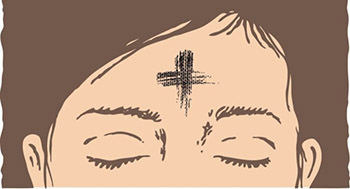 McBride's three granddaughters married Emanuel Bagley and had a posse of children for him--thirty-five, all told. One of the sister wives was promised
in a patriarchal blessing that she would see the face of Jesus before she died. At this point, one is expected to marvel and say, "but she died so
long ago, and Jesus hasn't shown his sorry mug yet." This is where Dad would deliver the shocking miracle that would justify the blessing. Keep in
mind that Mormons are never wrong. Great Granny lost her sight in her fifties. This was another development that made the miracle even more
awesome, as if it could be! She came stumbling out of the house and onto the porch one day, crying, "I saw Him! I saw the Lord!" All took notice as
she kept walking blindly and right off the porch. She pitched forward into the garden, landing head first on a sharp stone. She was dead on
impact, and here is the miracle, for any who hath wisdom. The rock that killed her left a cross-shaped gash on her forehead.
McBride's three granddaughters married Emanuel Bagley and had a posse of children for him--thirty-five, all told. One of the sister wives was promised
in a patriarchal blessing that she would see the face of Jesus before she died. At this point, one is expected to marvel and say, "but she died so
long ago, and Jesus hasn't shown his sorry mug yet." This is where Dad would deliver the shocking miracle that would justify the blessing. Keep in
mind that Mormons are never wrong. Great Granny lost her sight in her fifties. This was another development that made the miracle even more
awesome, as if it could be! She came stumbling out of the house and onto the porch one day, crying, "I saw Him! I saw the Lord!" All took notice as
she kept walking blindly and right off the porch. She pitched forward into the garden, landing head first on a sharp stone. She was dead on
impact, and here is the miracle, for any who hath wisdom. The rock that killed her left a cross-shaped gash on her forehead.
My hair was still short and bristly when I flew home from Texas on leave following advanced training in San Antonio. After landing in Sacramento I caught a taxi to my old home in Roseville. I'd lived in the garage there before joining the Army. I knocked at the front door like a salesman or a stranger. My mother looked me over. She hadn't seen me with hair that short since I was a kid. Dad used to shave my head until I fought him over it. Mom gave me a weak embrace. She never did seem to be comfortable with touching me. Dad shook my hand with a strong grip. He marveled at my biceps. "While you're staying here," he said, " why not read some scriptures?" He went into the other room while Mom and I sat down on the sofa. He came out with a vinyl bound quad--a four book set of Mormon scripture. I accepted it and put in the guest room where I was staying. No more garage living for this soldier.
Later I retreated to my room, and I read from the books Dad had given me. I was reading the Doctrine and Covenants when I came across this verse, Sec. 130: 10-11, "Then the white stone mentioned in Revelation 2:1, will become a Urim and Thummim to each individual who receives one, whereby things pertaining to higher kingdoms will be made known; and a white stone is given to each of those who come to the Celestial Kingdom, whereon is a new name written, which no one knoweth, save he that receiveth it. The new name is the keyword." I came back out of my room and asked my parents about this white stone.
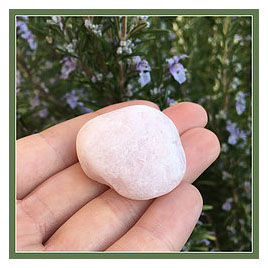 "It's a seer stone," my mother said. "It will give us powers like time travel."
"It's a seer stone," my mother said. "It will give us powers like time travel."
"A magic rock?" I wondered.
"We don't call it that," my father said.
"But you will receive a small white stone that gives you powers?"
"Yes, we believe this and many other things, Don."
"Sheesh!"
"I have a testimony of the gospel of Jesus Christ," said my father. My mother repeated his words. I saw the two like I'd never seen them before. I was now a guest in their house, not the subordinate resident I'd been before. I had traveled alone and got through the dirt and the grit of Army basic training, and I had a new perspective. My parents were nuts. All those times they'd scorned me for not believing, yet they'd never told me about the magic rocks. All the arguing, punishing and fighting seemed foolish to me now--a ridiculous waste of time. I left the house, determined to hear no more of their fairy tales. We'd never seemed to be on the same page. I was starting to wonder if we'd ever been on the same planet.
My fruit cellar bedroom was in the corner of the basement, which left a large space for the laundry machines and storage. Dad filled the storage area with boxes containing plastic vending machines that dispensed hot chocolate and chicken soup powders. The machines had no coin slots, but the product would be paid for by means of an honor system. This is what Dad said, and I didn't believe it any more than I believed his cult religion. He claimed he could set these machines up in various workplaces, and people would enjoy the products and gladly leave money in a little box next to the machine. "Most people are honest," he said, only this one time ever. He was convinced that the machines were a better investment than giving lunch money to his son, an obvious miscalculation. He was good at making bad decisions. No one wanted such a ridiculous device around. It would cause problems. Plus, if you bought a bag of powder, you'd have to have boiling water on hand to make the soup or cocoa. The machines, plastic and flimsy as they were, didn't even dispense ready-to-eat food.
 My brothers and I broke open some bags and sampled the goods. The chocolate powder was edible, so we ate it. I believe we three were the only
ones who ever tasted the product. Dad couldn't place the machines. They would sit in the basement until he moved them to Elmira, where the boxes
melted and molded in a damp outdoor shed. More money diverted from the family for a useless cause. It was like the checks he sent to Utah. It was
like his secret savings accounts. He also spent thousands on apocalyptic food powders for an armageddon that never happened. There were so many
demands on his income that little was left for his children. The fact that all these expenses were voluntary tells one something about the man's
priorities.
My brothers and I broke open some bags and sampled the goods. The chocolate powder was edible, so we ate it. I believe we three were the only
ones who ever tasted the product. Dad couldn't place the machines. They would sit in the basement until he moved them to Elmira, where the boxes
melted and molded in a damp outdoor shed. More money diverted from the family for a useless cause. It was like the checks he sent to Utah. It was
like his secret savings accounts. He also spent thousands on apocalyptic food powders for an armageddon that never happened. There were so many
demands on his income that little was left for his children. The fact that all these expenses were voluntary tells one something about the man's
priorities.
Jeff Smith was labeled goofy, due to his quick wit. Don was wicked for failure to conform. Mark was coddled by Bob Smith, who favored his youngest son. Bob would sit at the couch with Mark on his knee while criticizing Jeff. "You hold your hand like a girl, Jeff." And Mark would snicker with his shoulders jerking up and down. It was a hyena snicker, a Muttley the cartoon dog snicker.
Pat Smith thought it was funny when her son Mark teased his brothers, and Mark was needy. "Jeff has clammy hands." said Pat. Mark said, "clammy clam chowder boy." Pat tittered while Jeff gritted his teeth. "Don," said Pat, "has a big posterior." This one would stay with Don until he was in his twenties. He was self conscious of his butt that long. "Big pa," teased Mark, "posterior boy." Don chased Mark down to the carpet in the bedroom and slugged him. Mark would bellow every time until Don left the room. Then the taunts would resume.
But Mark was not always on good terms with Pat. She beat him with her beating stick just as much as she beat Don and Jeff. When Mark was four or five Pat broke the beating stick over his back. He snickered at her. Jeff and Don finally agreed with something that Mark had done--three musketeers and all that.
 Bob liked to play pranks on Don to chip away at his self esteem. The rotten peach with a wormhole and the mysterious bicycle valve loosening were
pretty good. One wonders how many tricks Don failed to notice? Bob was clever, after all. He told Jeff to stop studying German and get to bed. Jeff
was left handed, a birth defect, Bob said. He regulated the television, walking straight up to it and changing the channel while his sons were
watching. His boys were not capable of choosing the correct television shows. Nor could they handle or be trusted with money or access to food. They
deserved to live in the garage.
Bob liked to play pranks on Don to chip away at his self esteem. The rotten peach with a wormhole and the mysterious bicycle valve loosening were
pretty good. One wonders how many tricks Don failed to notice? Bob was clever, after all. He told Jeff to stop studying German and get to bed. Jeff
was left handed, a birth defect, Bob said. He regulated the television, walking straight up to it and changing the channel while his sons were
watching. His boys were not capable of choosing the correct television shows. Nor could they handle or be trusted with money or access to food. They
deserved to live in the garage.
Eventually Don was kicked out of the garage and joined the Army. Jeff left the garage for the Army too. Mark was moved back into the house with Bob and the women. When Bob and Pat tired of Mark's 24 hr. partying, he moved into his girlfriend's house. Not one of Bob and Pat's sons stayed with the family religious cult. Bob Smith ended up with no Mormon grandsons who shared his last name. He had effectively severed his priesthood line. The man burned up his own seed.
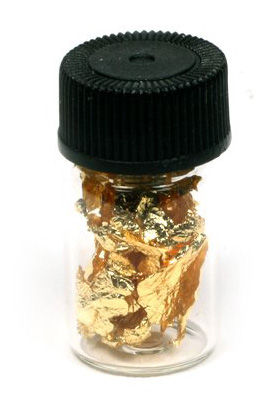 My Sunday school teacher enriched me and the other kids in her class. She brought us each a small clear pill bottle with fat yellow flakes in it. It
was real gold, she said. The flakes were sizable but extremely thin. This, she said, was the same material used to make the Golden Plates, from which
Joseph Smith translated the Book of Mormon with the help of special spectacles called the Urim and Thummim. I didn't know why a single set of
glasses would have two names; I just knew I had scored some real gold. I'd never seen any before. Who knew what it would be worth over the years? If
I were wealthy, I imagined, I could get all the candy bars I wanted. I could get ice cream. I had to stash the gold away. Maybe I could get some
more later, and build it up. My father was always talking about building up money, and how essential it was. But he never had enough to share. I was
going to have to get my own. I stashed the bottle in my dresser drawer. We moved several times, as my father had itchy feet. Mom said people didn't
like him, but he seemed fine at church.
My Sunday school teacher enriched me and the other kids in her class. She brought us each a small clear pill bottle with fat yellow flakes in it. It
was real gold, she said. The flakes were sizable but extremely thin. This, she said, was the same material used to make the Golden Plates, from which
Joseph Smith translated the Book of Mormon with the help of special spectacles called the Urim and Thummim. I didn't know why a single set of
glasses would have two names; I just knew I had scored some real gold. I'd never seen any before. Who knew what it would be worth over the years? If
I were wealthy, I imagined, I could get all the candy bars I wanted. I could get ice cream. I had to stash the gold away. Maybe I could get some
more later, and build it up. My father was always talking about building up money, and how essential it was. But he never had enough to share. I was
going to have to get my own. I stashed the bottle in my dresser drawer. We moved several times, as my father had itchy feet. Mom said people didn't
like him, but he seemed fine at church.
As I aged into my teens, I grew weary of the whole fraud. My father was an ass, and his Sunday suits didn't make him any better. He didn't give me an allowance or lunch money, and I had to hang out with poor kids at school. One friend taught me how to panhandle. "Ask more people for less money," he said. It was easier for someone to part with a nickel than a dime. Back then a dime would get you a cup of coffee with refills. A nickel would get you nothing more than a pack of chewing gum. It worked, and we put a little money together. We bought a small bag of weed and split it. When I got home I knew I had to hide my weed. My father would confiscate it and punish me. I wouldn't be surprised if he'd turn me over to the police. So I opened my sock drawer, and I pushed the small baggie back behind the socks and underwear. My knuckles bumped into something. It was the little bottle of gold flake from the past. I took it out and looked at it. The gold had crumbled to a barely visible trace of powder.
Two of my sisters and I were sitting in our parents' breakfast nook and playing a trivia game. This would have been in the late eighties, early nineties-- I can't recall the year. All three of us were adults, and we were playing this board game where you advanced by answering general knowledge questions. You may remember Trivial Pursuit, the most popular. This was an imitator, I think.
 So I landed my piece on a certain spot, and the older of my two sisters picked a card and asked me: What is the most emotional event that can
happen in a man's life? His birth. His marriage. The death of his father. Now I didn't care much for my father, but I could understand the shock
of the event. So I answered: the death of his father, which was the correct answer. Both of my sisters were upset that that was the right answer. They
insisted that a temple marriage was essential for salvation, and the death of a parent didn't get you anywhere. The game was simply wrong for not
taking that into account. Before I could respond, the older one left the room, wise with her years. My younger sister foolishly lingered.
So I landed my piece on a certain spot, and the older of my two sisters picked a card and asked me: What is the most emotional event that can
happen in a man's life? His birth. His marriage. The death of his father. Now I didn't care much for my father, but I could understand the shock
of the event. So I answered: the death of his father, which was the correct answer. Both of my sisters were upset that that was the right answer. They
insisted that a temple marriage was essential for salvation, and the death of a parent didn't get you anywhere. The game was simply wrong for not
taking that into account. Before I could respond, the older one left the room, wise with her years. My younger sister foolishly lingered.
"The universe is a set," I said, "and Mormonism is a subset of the universe. There are many parts of the universe where Mormonism does not exist."
She burst into tears and ran upstairs, possibly, I imagined, to throw herself on a bed and sob. I felt awful. Was it something I said?
The first thing that really stood out was the blessings of wealth. My father was a prosperity gospel freak before most other people. "If you stay with the church," he would tell me, "you will be successful. There is no way to succeed without the Lord's help." I was mostly thinking about candy bars when he talked like this. You get a Payday, and you get nougat and peanuts both. Snickers adds caramel and chocolate. Candy bars to me were as rare as success was to Dad. I took his words at face value, though. Maxwell Smart was on TV. Everyone successful was on TV. Only Mormonism could bring blessings of success. Therefore, Maxwell Smart, spy and international raconteur, was a Mormon. "No," said Dad, "he's not."
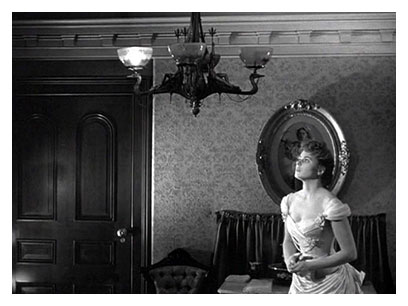 This queered the game something awful. I was very short, but I wasn't born the day before. A rich celebrity was in no way a Mormon. To me, at that age and any age after, Mormonism was a burden. It couldn't be denied that it was a weekly hassle with no competition other than school. And school was better than church. School had dinosaurs and planets. It had summer vacation. Church denied dinosaurs and replaced real planets with Kolob. Church classes were like a shitty version of school classes.The teachers in Sunday school and Primary were obviously unwashed. There was no training--they were called by the bishop, who was trying to stay out of trouble with the stake president. There's a whole hierarchy of men kissing up to men of higher rank.
This queered the game something awful. I was very short, but I wasn't born the day before. A rich celebrity was in no way a Mormon. To me, at that age and any age after, Mormonism was a burden. It couldn't be denied that it was a weekly hassle with no competition other than school. And school was better than church. School had dinosaurs and planets. It had summer vacation. Church denied dinosaurs and replaced real planets with Kolob. Church classes were like a shitty version of school classes.The teachers in Sunday school and Primary were obviously unwashed. There was no training--they were called by the bishop, who was trying to stay out of trouble with the stake president. There's a whole hierarchy of men kissing up to men of higher rank.
When I was twelve, I received the priesthood by laying on of hands. I became a deacon in the Aaronic order. It's pronounced the same way as ironic, which is somehow ironic. I would now have the power of the priesthood, which I learned was merely the power to obey new commands. I had to pass the water and bread for sacrament. It wasn't so bad until we moved to a "branch" congregation, and I was the only deacon. I had to pass the damn thing every Sunday with a missionary assisting me. My father expected me to see it as an honor, giving stale bread and water to people in a hot rental building that lacked air conditioning. I told him that it didn't make sense, and I didn't believe any of it. He refused to discuss it and directed me to pray more. I prayed every night for God to kill me before morning. Praying to God is gaslight talk. Nothing comes of it, and I said so. These thoughts got me labeled a follower of Satan. My denial of the skin curse doctrine sealed it. I was hellspawn by my teens.
There once was a hen with five chicks, three boys and two girls. The coop was too small for all of them, so she threw the boy chicks out everyday to face chicken hawks and foxes on their own. The oldest girl chick was always given her own perch, and she hung around. The younger girl chick was a headache, and she was often sent out with her brothers, the oldest of whom would get blamed for anything that went wrong. After a while, this got to be a habit. So the oldest boy chick evolved into the family scapegoat. He hated chicken church, which only proved he was following the spirit of the hawk instead of the Great Chicken. The hen's rooster husband went out everyday to get his grain from the farmer. Sometimes, when the farmer wasn't looking, the rooster took some extra grain. He also tricked other chickens into investing some of their grain by giving it to him with the promise of above market earnings. No other rooster boasted such high returns as he. One might imagine that his chicks ate better than those of other roosters, but one would be wrong. He was a hoarder and an accumulator with dreams of having the biggest coop in all the land. He kept his grain in a dry vault out of sight.
 As his chicks were underfed they grew up bent. They seemed to resent him no matter how well he did. One time he traded the small coop for an even
smaller one plus some grain. The four youngest chicks had to share a perch. They were sullen and jealous of the oldest chick, who always had her own
space. Of course the hen and the rooster had theirs as well. The oldest boy chick said the whole thing was a miserable cheat, so he was sent to a
chicken wire ranch for a time to straighten him out. But he was so stubborn that he started complaining almost as soon as he got back. He still
didn't like chicken church, and he was angry with his father for sending so much grain to tithe the Great Chicken while the chicks did without. In
spite of all this deprivation, the hen selfishly had two more little girl chicks, who she favored, because they were a little slower and less
likely to talk back than the smartass older chicks. The hen demanded of the rooster that the younger chicks get more grain and their own perches. The
rooster relented and financed the deal by kicking out the five older chicks. Those he drove into the yard by the freeway. By now he'd saved enough
to buy the largest coop. The two young girl chicks had their own perches and more. They were buried with grain.
As his chicks were underfed they grew up bent. They seemed to resent him no matter how well he did. One time he traded the small coop for an even
smaller one plus some grain. The four youngest chicks had to share a perch. They were sullen and jealous of the oldest chick, who always had her own
space. Of course the hen and the rooster had theirs as well. The oldest boy chick said the whole thing was a miserable cheat, so he was sent to a
chicken wire ranch for a time to straighten him out. But he was so stubborn that he started complaining almost as soon as he got back. He still
didn't like chicken church, and he was angry with his father for sending so much grain to tithe the Great Chicken while the chicks did without. In
spite of all this deprivation, the hen selfishly had two more little girl chicks, who she favored, because they were a little slower and less
likely to talk back than the smartass older chicks. The hen demanded of the rooster that the younger chicks get more grain and their own perches. The
rooster relented and financed the deal by kicking out the five older chicks. Those he drove into the yard by the freeway. By now he'd saved enough
to buy the largest coop. The two young girl chicks had their own perches and more. They were buried with grain.
Naturally the older chicks felt cheated, but it was too late to do anything about it. The rooster had all his grain tied up in further investments. He always welcomed his older chicks to come by and admire the big coop, but after some time they became surly and refused to visit. "You'd better not let this happen to my two little girl chicks." the hen said to the rooster, "I will not lose all my chicks!" The rooster heard her demand, and he bought two more coops. They were nice ones too. Not at all like the bush nests his older chicks inhabited. He came to see his older chicks as losers who got just what they deserved. Some of them ceased communicating with the rooster in any way, and he told other roosters that he didn't know what was wrong with so many of his chicks. He imagined that the spirit of the hawk had got into them, and he said as much to any chicken who asked after them at church. He never mentioned that he had driven them out into the yard. His two youngest chicks grew up and married roosters of their own. They couldn't afford anything, so he let them live in his two investment coops. The moral of the story is that two chicks in hand are worth five in the bush.
 Danny was wearing a suit, just like the driver, who was about forty, Danny guessed. You had to wear a suit while collecting. It was said the sight of
an adolescent boy in a suit would warm just about any heart, and the money would be handed over. "Do you like this car?" the driver asked, and
Danny said he did. "It's got a V8," said the driver, "automatic on the column. I don't feel comfortable until I get her up to eighty. The freeway is the best place to drive. It's not good for the motor to dog around like this." Danny had no idea what the driver was talking about. All he knew was that there were manilla envelopes to be filled with cash. He was to knock on doors to collect. The envelopes were numbered and had peep holes in them, supposedly to keep everyone on the up and up. They pulled to a stop in front of an old craftsman-style house with a covered porch. Four cement steps led up to the porch, and Danny took the steps two at a time. He couldn't wait till collecting was over for the day.
Danny was wearing a suit, just like the driver, who was about forty, Danny guessed. You had to wear a suit while collecting. It was said the sight of
an adolescent boy in a suit would warm just about any heart, and the money would be handed over. "Do you like this car?" the driver asked, and
Danny said he did. "It's got a V8," said the driver, "automatic on the column. I don't feel comfortable until I get her up to eighty. The freeway is the best place to drive. It's not good for the motor to dog around like this." Danny had no idea what the driver was talking about. All he knew was that there were manilla envelopes to be filled with cash. He was to knock on doors to collect. The envelopes were numbered and had peep holes in them, supposedly to keep everyone on the up and up. They pulled to a stop in front of an old craftsman-style house with a covered porch. Four cement steps led up to the porch, and Danny took the steps two at a time. He couldn't wait till collecting was over for the day.
He rang the doorbell, which buzzed instead of ringing, the place was that old. There was no answer, but he saw the curtains move a little through a front window. He buzzed again, no answer. He turned around, looked at the driver and shrugged. The driver waved Danny back to the car. "We don't kick in doors," said the driver, "persistence pays the bills. We'll come back after the others and try again." Sure, thought Danny, you don't have to go out there and try to roust people out of their houses. He couldn't wait till he was older. Then he'd be a driver. He'd be in charge of some fool new kid. They sped to their next house. "We've got to pick up the pace," said the driver. "The bishop is waiting for the cash."
 Mother wanted a piano, and you know what that means. Someone was going to have to do some work. Father made some calls and then he came out to the garage to roust my brothers and I from our garage bunks. My friend, Phred, was visiting from Oregon, and he was sleeping in a sleeping bag on the garage floor. So there were four of us to move the piano. Father got hold of a pickup truck, and we drove to a nearby town to pick up the piano. The seller had a cute daughter, and we all flirted with her. Lifting the piano to the pickup made my spine buckle and my knees wobble. My arms ached with the effort. Then we had to carry it into our house. The thing was aggressively heavy. But it looked good in the family room. My older sister and younger sister could both play some, and they did. An attempt was made to integrate the piano into family night. Family night was always an attempt, never a good thing, as it included Mormon indoctrination every damn time.
Mother wanted a piano, and you know what that means. Someone was going to have to do some work. Father made some calls and then he came out to the garage to roust my brothers and I from our garage bunks. My friend, Phred, was visiting from Oregon, and he was sleeping in a sleeping bag on the garage floor. So there were four of us to move the piano. Father got hold of a pickup truck, and we drove to a nearby town to pick up the piano. The seller had a cute daughter, and we all flirted with her. Lifting the piano to the pickup made my spine buckle and my knees wobble. My arms ached with the effort. Then we had to carry it into our house. The thing was aggressively heavy. But it looked good in the family room. My older sister and younger sister could both play some, and they did. An attempt was made to integrate the piano into family night. Family night was always an attempt, never a good thing, as it included Mormon indoctrination every damn time.
Sometime later I was in the family room talking to Mother. "When we go to the Celestial Kingdom," she said, "we'll be able to do anything we want. I'm going to play the piano." She was sitting next to the piano at the time.
That son of my father's is an intractable mess, so they tell me. They have him down as impossible almost from birth, if not earlier. One imagines that his fetal kicks were especially egregious and painful to his mother, who took plenty of slapping around from her man as well. When I'm objective about it, I can see how she had more than she could handle, what with all the assaults from within and without. There's only so much a Pygmalion can tolerate, after all. At some point she'll balk and profess her hatred for Henry Higgins and his lousy issue too. Just you wight.
Sonny sounds like a good name for that son of my father's, so that's what I'll call him. I know Bill Hardin would probably call him a pain in the ass, but that's hardly constructive, is it? "A pain in the ass who made my job harder", is what Bill thought. I know all the kids call me Vice Principal Hard On behind my back. I know my wife is lying to me about the napkin from the restaurant in Eugene, and how it found its way into her purse. My kids think I'm a stingy jerk holding out on them. Why isn't that enough?
This morning I get an assignment from Principal Tyson to talk to Sonny about his truancy. Tyson doesn't want to deal with the kid, because it's the superintendent's son. Everyone who knows the superintendent does all he or she can do to avoid the man. He has the congeniality of a fire hydrant and all the warmth of a zamboni. His boy, Sonny, is cutting gym class when he ought to be cutting his hair and has been doing so for weeks. So I get the kid in my office and ask him why. "Why skip just the one class when you're attending all the others?"
"The jocks kick my ass in the locker room," says the boy. He claims he's asked his teacher, Coach Owens, for some relief, but Owens has just told him to suck it up. Owens watches the assaults, according to Sonny, and possibly even orchestrates them. This is the same Coach Owens who held the barbecue to raise money for the school's track and field program. It's the Owens who flipped burgers for four hours on his own time. Bill Hardin had been at the barbecue. He'd seen neither the superintendent nor his truant son there. "There are men," he thinks, "who can't be bothered to tend their own gardens. They have weeds for sons. They have sons who get their asses kicked by athletes in locker rooms."
I tell Sonny he can't cut gym class. It's against the law. "Then call the police," he says. I'd swear he's serious. He has no idea what he's asking. Or does he? Maybe he knows exactly what he's doing. He is his father's son. He's the son of a man who "dates" his secretary and everyone knows, only they don't know, really. They know that he's a Mormon who wouldn't "date" another man's wife while the husband drove long haul to Boise. That's what he demands they know of him. His boy, Sonny, doesn't like gym class? Sonny figures out a way to get the police involved and damage the school's reputation if he doesn't get his way. The papers in Eugene would have a field day. They'd already reported on Sonny getting assaulted in the breezeway a couple weeks prior. Who's to say the kid didn't call in that story to the paper?
 Before I make the schedule change to put him in study hall instead of gym, I remind him that it's his responsibility to make up his shortage of P.E. credits. He nods. He's getting what he wants. Now I've done it, and I don't see what the big deal was. Tyson acted like the it was radioactive or something. I suppose a man gets a little worried about his job security when he's got a jerk like Sonny's father for a boss. Tyson's been principal here for years, and he told me he's never seen one like this in charge. His lips quivered and turned down at the edges when he said it, as if battling with a sob.
Before I make the schedule change to put him in study hall instead of gym, I remind him that it's his responsibility to make up his shortage of P.E. credits. He nods. He's getting what he wants. Now I've done it, and I don't see what the big deal was. Tyson acted like the it was radioactive or something. I suppose a man gets a little worried about his job security when he's got a jerk like Sonny's father for a boss. Tyson's been principal here for years, and he told me he's never seen one like this in charge. His lips quivered and turned down at the edges when he said it, as if battling with a sob.
What do you do with a guy like that son of my father's? He's constantly dissatisfied even with everything going his way, they say. I've been told that he repudiated his family religion in a failed attempt to hurt my father. But my father doesn't get hurt over people. If I can't get my father's attention, what chance does Sonny have? I don't feel sorry for him. Not any more than I do for his father.
 I was sweating on my bed in the garage one hot Sunday evening when Jeff came in, fresh from church, and sat on his bare mattress. I could tell
he was upset. "They gave me this pamphlet in church class," he said, holding up some shabby fold of Mormon propaganda. Jeff was under a bit of
stress. He was dsriving a construction dumptruck full time while finishing his senior year in high school. If he wanted to date and hang out, and he
did, he had to work for some money. Our father wouldn't share with us. We weren't even living in the house. That was for Dad and the rest of
the women. They deserved air conditioning. We didn't even have enough bedsheets in the garage.
I was sweating on my bed in the garage one hot Sunday evening when Jeff came in, fresh from church, and sat on his bare mattress. I could tell
he was upset. "They gave me this pamphlet in church class," he said, holding up some shabby fold of Mormon propaganda. Jeff was under a bit of
stress. He was dsriving a construction dumptruck full time while finishing his senior year in high school. If he wanted to date and hang out, and he
did, he had to work for some money. Our father wouldn't share with us. We weren't even living in the house. That was for Dad and the rest of
the women. They deserved air conditioning. We didn't even have enough bedsheets in the garage.
Jeff stood up and read from the pamphlet: "There were two boys who were best friends in high school. After they graduated one went to BYU and bettered himself. The other boy settled for a local truck driving job. The first boy prospered in the gospel, but the second--" At this point Jeff threw down the pamphlet on the outdoor rug remnant. "Goddamit!" he said. I asked him what did he expect from Mormons? I'd given up on them years earlier. "Always second class," said Jeff. Cold parents, hot life.
Roger finished planting the row of peas and brushed the dirt off his raw fingers. The boys had somehow managed to lose his gloves. One of them had borrowed the gloves for shop class, he couldn't recall just which. His sons lived in the garage because the house was only big enough for Roger, Trisha, and the girls, and that gave the boys easy access to all his tools, which they borrowed without asking and lost. The tools were never used constructively, either. Last season not one of the three had lifted a hand in the garden, yet the spade had been used for digging after nightcrawlers. Those were bait for unproductive fishing sessions at the creek. Crawdads were caught and thrown back. Leave it to the boys to choose idleness for an activity.
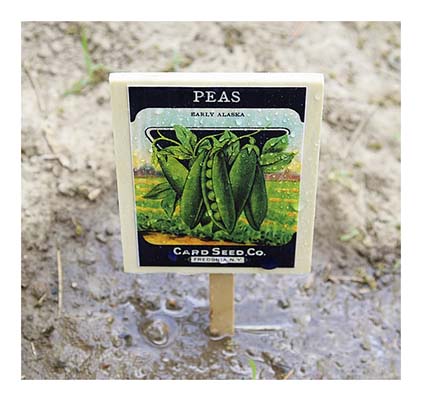 As Roger was topping the wood stake at the end of the peas row with the seed packet his oldest son approached. The boy wanted to borrow the station
wagon for the drive in movie later. He was eighteen and had a job and paid rent, but he was an atheist and a weekend alcoholic. "You'll just drink
beer and wreck the car," said Roger. The boy sighed. "I'll bring it home with a full tank of gas, Dad." Roger relented. "You need to move out, you
know that? Get your own car. I've been too easy on you." But the boy was already walking away. He didn't listen. None of them did.
As Roger was topping the wood stake at the end of the peas row with the seed packet his oldest son approached. The boy wanted to borrow the station
wagon for the drive in movie later. He was eighteen and had a job and paid rent, but he was an atheist and a weekend alcoholic. "You'll just drink
beer and wreck the car," said Roger. The boy sighed. "I'll bring it home with a full tank of gas, Dad." Roger relented. "You need to move out, you
know that? Get your own car. I've been too easy on you." But the boy was already walking away. He didn't listen. None of them did.
His youngest son bothered him while Roger was putting in the carrots. The boy wanted money to go out for burgers with his friends." Five bucks? You could buy the whole menu for that when I was your age. It's robbery. Why don't you just stay here and help me plant the garden? We'll have sandwiches later." The boy promised he'd help next Saturday, but he had a bad memory about those kinds of things. At least he had a testimony and went to meetings. Roger couldn't say no to him forever. He wiped off his aching right hand and pulled his wallet out of his back pocket. Might as well tear up my money and throw it to the wind, he thought.
The other son interrupted Roger as he was reeling out the hose. "Now what? You want to go to the drive in with your brother tonight? You know we have home teaching to do. We're going to the LeMons. You don't have to get like that." The boy was reluctant at best with his obligations. Lazy was what his mother called him. He promised to attend seminary every day next week if he could go out tonight. No skipping the morning session and hanging out at Dunkin Donuts before school. "Okay," said Roger, "you can go to the drive in. It better not be an R movie. I don't know why I spoil you like this."
With the hose set for the finest spray, Roger carefully damped the seed rows. He wouldn't let the plants go this year, he told himself, despite his priesthood duties and his two callings. The boys would step up and help tend the garden, or face the consequences. Roger expected better than shriveled shoots and wilted leaves for all his efforts.
 Lisa drove the Subaru with the emergency brake set all day Tuesday. Her husband was working at a construction site, so he had the pickup. First
thing Lisa did was wake the two boys up for school. Reagan was only three, and she rode in a child safety seat that was permanently mounted to the
back seat. That thing wasn't going in the pickup, no way. The pickup had been purchased for business, not pleasure, her husband said. Tommy wanted
cereal , and Timmy wanted toast, but not wheat bread. Tommy changed his mind. He wanted toast for breakfast like his brother. Reagan cried and
followed her mother around the kitchen. "I want my sippy," she said. She pulled on Lisa's sweat pants and stepped away from a swat. "My toast is
too burnt," said Tommy. Timmy picked his nose and wiped his finger on the tablecloth. Lisa had to run to the bathroom to say a quick
prayer. "My burden, Lord," she said, "is it enough yet?"
Lisa drove the Subaru with the emergency brake set all day Tuesday. Her husband was working at a construction site, so he had the pickup. First
thing Lisa did was wake the two boys up for school. Reagan was only three, and she rode in a child safety seat that was permanently mounted to the
back seat. That thing wasn't going in the pickup, no way. The pickup had been purchased for business, not pleasure, her husband said. Tommy wanted
cereal , and Timmy wanted toast, but not wheat bread. Tommy changed his mind. He wanted toast for breakfast like his brother. Reagan cried and
followed her mother around the kitchen. "I want my sippy," she said. She pulled on Lisa's sweat pants and stepped away from a swat. "My toast is
too burnt," said Tommy. Timmy picked his nose and wiped his finger on the tablecloth. Lisa had to run to the bathroom to say a quick
prayer. "My burden, Lord," she said, "is it enough yet?"
She got Reagan into her car seat, but she'd forgotten to pack lunches for the boys. Somewhere in the morning chaos she'd missed a cue. She gave the boys money from her purse for cafeteria lunches. Her husband would be mad if he knew, but maybe he wouldn't find out. He said school lunches were a waste of money. "Give 'em sandwiches, those were good enough in my day." Tommy looked okay, but Timmy's hair was standing straight up. Lisa licked her fingers and smoothed his hair as he tried to pull away. "That stinks," he said, "quit rubbing spit on my head." Lisa dropped the boys off at school and then drove to Smith's Market for groceries. Reagan cried all the way there.
At the market Lisa got Reagan to calm down and sit in the shopping cart with her fat pink legs dangling. The aisles were cool and colorful, and Reagan began pointing at the shelves. "I want that," she said. Lisa said, "you want Tide laundry soap?" Reagan giggled. "Red," she said. Lisa went through her purse and discovered she'd forgotten her shopping list. If she had a smart phone, she could use it for shopping, but she couldn't afford one with three kids and a mortgage. Her husband wanted another baby, and her family agreed. She wished that Reagan could be the last, but everyone said she needed more blessings. More children to wrestle with mornings before school and church. Saturday activities to drive the kids to. Her husband would go camping with the boy scouts on Fridays and Saturdays--his church calling--so she had the children to watch every day. Timmy and Tommy were too young for scouting. She knew that his work made him tense, but it wasn't fair the way he yelled at her when she asked for a day off. "What kind of mother wants to be away from her own babies?" her husband said, "maybe you need the bishop's council." Lisa remembered when her mother went to the bishop. Lisa's father was abusive when he was mad. The bishop asked Lisa's mother, "what are you doing to set him off?"
When they got home with the groceries, Reagan was tired and cranky. She'd demanded candy at the checkout, where they put the colorful junk at eye level for kids. She didn't get any, and the wailing had gone on for fifteen minutes. She'd passed out crying in her car seat. Lisa put her daughter down for a nap in the bedroom. She felt like having a nap herself, but she had to put the food away. Then she went to the laundry room to face the pile. Dirty clothes formed a four foot tall mountain next to the machines. It would take hours to get it sorted and washed, and she had to vacuum the dog hair off the living room carpet. Then she had to plan for dinner, but by that time Reagan was up and running interference. Lisa's husband required meat and potatoes, so she put a pot roast in the crock pot and got the potatoes out. Reagan insisted on helping which slowed everything down. "Why don't you go play with the doggie?" Lisa suggested. Reagan shook her head violently and said, "he smells." That reminded Lisa that she was supposed to bathe the dog this week.
Reagan was quiet the whole drive to pick up the boys from school. "Good girl," said Lisa. "I get a treat?" Reagan asked. "Sure," said Lisa, "we'll get you something." Reagan frowned. "I don't want something," she said. The boys climbed into the Subaru. Tommy was missing a shoe, Lisa noted. "A six grader stole it from me," he said. Lisa wanted to know why he didn't he tell a teacher to make the kid give it back. "He's in a gang," said Tommy, "I can't snitch." Lisa put the car in gear and started driving home. "I'll let your father deal with this." Tommy begged her not to tell Dad. He'd get a beating, for sure. "You father doesn't give me enough money to go around replacing everything you lose," said Lisa. "You ask him for a new pair of shoes." Tommy slumped the invertebrate slump of the doomed. "You're getting a beating," said Timmy. Reagan said, "beating, beating, beating."
 "Knock it off!" Lisa yelled while swinging her arm at the kids, "I'm down to my last nerve." She noticed the emergency brake was set. She released it wondering how long it'd been like that.
"Knock it off!" Lisa yelled while swinging her arm at the kids, "I'm down to my last nerve." She noticed the emergency brake was set. She released it wondering how long it'd been like that.
Back home Lisa started working on dinner. Her husband would arrive at five expecting to be fed. She had enough time to bake the potatoes in the oven. She had to unplug the boys' gaming console to get them to set the table. The dog was at the front window waiting for his master to come home. He barked at anything in the street--kids, cars, cats, other dogs. "Would you boys please put him out back?" Lisa asked, "the barking is driving me crazy." No one listened to her and the dog kept barking. "Mom," said Reagan, "I want my treat." Lisa told her she'd just have to wait, and Reagan started howling. Her howls and the dog's barks grated like the racket of building demolition. Lisa put the dog out herself and searched for a treat for Reagan. She found a peppermint candy and Reagan refused it. When told that was all there was, she ran crying to her room. Lisa was about to tear out her hair when her husband came home. "Could you watch the kids while I finish dinner?" she asked. He shrugged and said, "why isn't dinner ready? You've had all day."
The quoted text is an edited version of a story written by Roger Funles. He sent me a copy with a note stating that he intended to expand the piece into a novel. As you will see, he abandoned the effort at a certain point in the narrative. A synopsis of what he sent me follows:
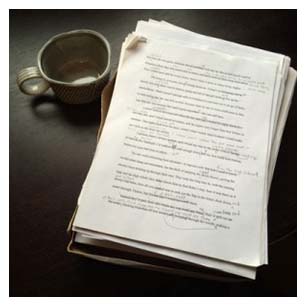 "Dr. Gacy Manson scratched his nose. He was glad to be alone, as others often accused him of picking it. A nose doesn't always itch on the
outside, does it? The doctor was perfectly justified in his action and could be accused of no wrong doing. He'd been working with Salt Lake
City's homeless people all day, and he felt like skinning someone alive. Some folks had it coming, if you asked him. But the afternoon would
be better. Dr. Manson would be giving shots to five-year-olds, and who wouldn't enjoy that?"
"Dr. Gacy Manson scratched his nose. He was glad to be alone, as others often accused him of picking it. A nose doesn't always itch on the
outside, does it? The doctor was perfectly justified in his action and could be accused of no wrong doing. He'd been working with Salt Lake
City's homeless people all day, and he felt like skinning someone alive. Some folks had it coming, if you asked him. But the afternoon would
be better. Dr. Manson would be giving shots to five-year-olds, and who wouldn't enjoy that?"
"The nurse guided a little boy through the door for his shot. Dr. Manson asked him where's your mother? She's taking a pill, he said, she'll be tired. The doctor told the boy that was good, and now he could bare his arm. Many more children received shots, including a slow boy who wanted to be some kind of turtle. A mutant one, if the doctor heard right. It was all just noise to his ears. Except for the screamers. He remembered those so that he could play them back in his head later and savor them.
"After a couple of days or so a woman called and said her son wasn't the same after the shot. He was reverent in sacrament meeting and had never been like that before. Dr. Manson called other parents and confirmed a pattern of increased obedience among the children he inoculated. There was something in the vaccine that beat threats of the Holy Ghost hands down for controlling children. It would sell like hotcakes all over Utah. Never again would Dr. Manson have to touch an indigenous person. He drove to the lab at midnight, broke in, and stole the vaccine batch. Then he called on the secretary of education in Washington to make a pitch for a grant. He had already decided that, in order to avoid conflict with parents, he would test the medicine on orphans."
Here the text ends. As to what Doctor Manson would have got up to next, only Roger knows.
The rain felt like stinging nettles on his face and arms as he trotted out to his Saturn. He slipped and almost fell as his sneakers lost traction on the wet lawn. When he got to the car he couldn't jump in soon enough, and in his haste, he bumped his head on the overhead door jamb. "Shit," he said, "why you gotta do this to me?"
Water speckled the Saturn's windshield, obscuring the view, until Chris got the wipers going. It was a twenty minute drive to his mother's house in Fair Oaks, and he wanted to get there first. He turned on the radio for distraction, thinking that some Garrison Keillor would do.
"Like so many others of his generation," said Keillor, "Gordy left his home in Lake Wobegone to pursue his fortune elsewhere. He ran out of traveling money in Sioux City, where he took a job waiting on tables at Denny's. There he met Kate, a steady customer, and a woman some years older than he, whose generous tips seemed to negate anything so trivial as a birth date. She dropped dollars at the same rate that she dropped hints, and the two piled up, convincing him, over time, of her seriousness. He lived with Kate for a while, and was given his own key to her Jaguar."
Chris squinted through his rain-drenched windshield as he navigated the Saturn through heavy traffic on Douglas East to Sierra College Drive where he would turn south towards Mom's.
"If there had been a catalyst for Gordy leaving Kate," said Keillor, "it may have been when he totaled the Jaguar. The car was converted into a u-shaped mass of recyclable metal by an immovable light pole. Gordy had enough money on his person at the time to pay bus fare to St. Louis. Plus enough left over for a room."
Rooster tails of street water fanned up and splashed over the Saturn's hood. Chris wiped at the foggy windshield with the sleeve of his shirt. He turned right at Sierra College and sped south in the downpour.
"Gordy," Keillor continued, "found his living wage in St. Louis as so many do, in barbeque. He was taught how to marinate and baste pork spare ribs before grilling them over charcoal in black barrels that had been turned sideways and cut in half, apparently by deranged metal smiths. He learned to handle tongs to flip rib racks, tri tips, and chicken quarters to perfection. Gordy gained twenty five pounds in St. Louis."
Chris had made it to Orangevale and had just a couple of miles to go. He waited impatiently for traffic lights to change color.
"Now Gordy had saved up some money," said Keillor, "though he wasn't as sure if it was the cash or the extra bulk he'd gathered that caused him to drift south like a heavy satellite. But he did end up in New Orleans, rooming in a place just two blocks off Bourbon Street."
Chris pulled up to his mother's place just as Keillor was talking about a hooker and shut off the ignition. Fay's Ford Explorer was already parked in the driveway, the bitch.
Fay met him in the living room, effectively cutting him off from Momma, who was seated at the dining table and weeping. "It's General Lee," said Fay, rubbing her hands together. "You've got to help."
"What is it, Mom?" Chris called to his mother. Fay tried to get in front of Chris, and he shoved her aside.
"He can't, he can't..." said Momma before breaking down and shuddering and sobbing. She wouldn't get up from her chair, and Chris wondered if she could. She looked as though she had crossed over the demarcation from old to decrepit since he'd last seen her.
"I tried to tell you," said Fay, repositioning herself next to her brother.
"Is the cat dead?" asked Chris, triggering another teary outburst from Momma.
"Darn it, Chris. Why don't you listen to me?" said Fay. "He's stuck in the tree, the big one in the back yard."
Chris walked through the country kitchen, pausing to kiss his mother's worried brow. He continued to the rear utility room and looked out the window. He could see the rain swept maple, massive and swaying slightly in the storm. But there was no sign of the black tabby named General Lee.
"You can't see him," said Fay. "He's like, way up in there."
"I suppose I have to climb up and get him?"
"Would you Chris?" asked Momma, suddenly coherent.
Fay displayed that smug, ugly smile she had with the ends of her lips turned down. The only way you could tell she was smiling was by the crazed light in her eyes. She was that vindictive kind of bitch who smiled at you with a stare.
"There is no way," said Chris, "that I'm climbing that godawful tree in the middle of a rainstorm."
"If I have to," said Fay, "I'll do it."
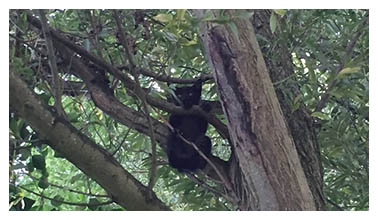 It was difficult to look up, as the fat raindrops spattered at his eyes, and Chris just concentrated on climbing at first. He was glad he was wearing tennis shoes, as they gripped well on the surface of the larger limbs. About halfway up he stopped and called for the damn cat. "General Lee, kitty, kitty." There was a soft meow from somewhere overhead. Though his fingers were starting to numb with exposure, he pulled himself up several yards until the branches were as thin as his wrists. Here he could feel the tree swaying in the wind and his stomach turned with what felt like seasickness. The meows were just above his head. He reached up with his right hand, and General Lee raked at it with an untrimmed claw. Chris gasped as the General ran down his backside, claws all the way, and made a howling descent down the maple's trunk. As he examined his bleeding knuckles, he heard Fay below saying: "Aw, General, poor widow tiddy."
It was difficult to look up, as the fat raindrops spattered at his eyes, and Chris just concentrated on climbing at first. He was glad he was wearing tennis shoes, as they gripped well on the surface of the larger limbs. About halfway up he stopped and called for the damn cat. "General Lee, kitty, kitty." There was a soft meow from somewhere overhead. Though his fingers were starting to numb with exposure, he pulled himself up several yards until the branches were as thin as his wrists. Here he could feel the tree swaying in the wind and his stomach turned with what felt like seasickness. The meows were just above his head. He reached up with his right hand, and General Lee raked at it with an untrimmed claw. Chris gasped as the General ran down his backside, claws all the way, and made a howling descent down the maple's trunk. As he examined his bleeding knuckles, he heard Fay below saying: "Aw, General, poor widow tiddy."
He rinsed his hand off in the first floor bathroom sink and got some gauze to wrap it with. When he came out he found Momma sitting in her favorite chair in the living room, the cat in her lap.
"Thank you so much Fay," said Momma. "I thought I'd lost him."
Fay sat with her narrow ass barely making contact with the couch cushion; she didn't want to get cat hair on her Nordstrom skirt.
"What about me?" said Chris, "I'm the one who climbed..."
"You said a swear word," Momma replied, "and I remember you refusing."
Chris opened his mouth, but no words came to his tongue. He could feel his cheeks heating up. He started for the front door, just as Pat, his younger brother, pushed in, ponytail dripping with rain.
"Mamasita," said Pat. "What's the matter?"
"I'm okay, Patrick," said Momma. "Thank you for coming by."
"How're you feeling?" Pat asked her
"Maybe she feels good enough to write you a personal check," said Chris, as he walked out of the house.
"It's been two weeks," said Dr Mehtal, seated comfortably near his desk. "How are you?"
"You know," said Chris. "My family is driving me crazy."
"How so?"
"Both of my siblings get between me and my mother. I know they're just waiting for her to die so that they can divide the spoils. She has the house and the bank accounts..."
"This concerns you?" asked Dr. Mehtal.
"I know what you're trying to do," said Chris. "You're trying to say I'm just like them."
"Are you?"
"No. I don't think so."
"You've told me before," said Dr. Mehtal, "that you were relieved when your father died. Is it because the inheritance was one step closer?"
"Man, that's a cheap shot, Doctor. You know that I was sick of his religious obsession; I've told you that."
Dr. Mehtal retreated to his desk and sat behind it. He put on his reading glasses and looked at an open folder. "Didn't you tell me once that you thought you deserved your fair share of the estate?"
"I probably did," said Chris. "You have no idea what that son of bitch put me through."
"I do have an idea, Chris. I have an idea because you spelled it out for me so many times."
"I hate him," said Chris, "even though he's dead I still hate him."
"So I take it the Risperdal isn't working?"
"It makes me feel like I'm on an acid trip. My hands are miles away from my head."
"But did it stop the ruminating?"
"Yeah," said Chris. "It did do that."
"Would you be willing to try a lower dosage, say half a milligram?"
"Okay," said Chris, "I guess I can do that."
"This isn't a favor I'm asking of you," said Dr. Mehtal. "At some point you have to let go of your toxic family relations and move forward."
Fay arrived late and took a seat in the booth across from him. Her nose wrinkled at the odor of the coffee. She ordered an orange juice.
"So," said Chris, "here we are, meeting for breakfast."
"Sorry I'm late," said Fay, "but Sissy was having a hard time getting dressed. It's Pioneer Day, but you wouldn't know about that."
Always a dig with Fay. Always a little stab and then a twisting of the blade. You, who have fallen away from the gospel of God and Jesus, could not possibly understand the responsibilities of saints.
"I know what it is," said Chris. "I just thought they did it in Utah."
Fay looked up from the menu. "Why not here?" she asked. "Are we not of the same faith?"
"Could we have breakfast without the theology?" said Chris. "I'd love to have some atheist ham and eggs."
"Always the joker," said Fay.
A waitress arrived and stood by the table, pen and pad in hand. "Denver omelet," said Chris. Fay asked for waffles.
"The reason I asked you to meet me here for breakfast," said Fay, "has to do with Momma."
"I didn't think it was brotherly love," said Chris.
"Don't be a smart ass, Chris. Momma's in the hospital."
"And this is how you choose to tell me?"
"I didn't know how else," said Fay. "The doctors say she only has a couple of weeks."
Chris stood up and threw his flatware and coffee mug across the table. "You bitch!" he yelled. "This is how you tell me?" He slid out of the booth, stood up, and walked out of the restaurant. Fay followed him part way to the glass door in front, and then she stalled in the aisle, a half-formed syllable on her lips.
There was an odd mixture of chemical scents and the underlying odor of decay in the air that reminded Chris of the loamy smell of mushroom soup. Momma used to make it, and Pat and Fay refused to eat it, but Chris loved the velvety texture of the gray broth. A mushroom springs forth from bullshit, thriving in a dank basement or cave. Though odd and lumpy, Chris imagined that a mushroom was the best thing that could sprout from excrement.
He sat in a plastic chair next to the cold architecture of her mobile bed. He put his hand on her pale fingers, just below the IV patch. "Momma," he said, "I wish I had been there in your hour of need." His vision blurred, and his thoughts turned back in time.
She had put up with an abusive and narcissistic husband for decades. Chris remembered the fights that resulted in bruises and the makeup and out-size sunglasses that Momma had worn. She didn't want folks talking at church. She had been a proud woman, in spite of everything. And when her husband died, she never spoke poorly of him, though she had every reason to do so. That must have been a relief, Chris thought, when that mean bastard went away forever. There are some men who can do no greater favor to their own flesh and blood than to die.
He knew that his mother had never understood her offspring. Fay was like a female version of the old manÑgreedy, self-centered and self-righteous. Pat resembled his mother the most; he was afraid of the world and nearly housebound, where she was the perennial stay-at-home mom, the both of them somewhat agoraphobic. Chris reckoned that he had the worst characteristics of both sides: the suffering of Pat and the judgment of Fay.
When his eyes cleared, he said goodbye to his mother.
"C'mon, Pat," said Chris, "do you think it's Fay?"
The deadbolt snicked and the door swung inward. Pat stood there, sweeping his right hand against his thinning hair and ponytail. He allowed Chris to enter and carefully bolted the door behind his older brother.
The place was essentially one disorganized room with a door that closed off a tiny bathroom. An unmade bed fronted the space with a low dresser that supported an old twenty inch tube TV. On one side of the TV was a DVD player, and on the other side a purple acrylic bong with three inches of foul water in it. This was the living area. Beyond, there was a dirty kitchenette with a cafe table and two stools.
Pat retrieved a baggie from the dresser's top drawer. He took a pinch of green from the baggie and pushed it into the bong's tiny bowl. Then he put the end of the bong to his mouth while lighting the bowl with a plastic lighter and sucking at the thing. His eyes bulged as he pulled away from the bong, and he coughed a thirty second jag.
"Want some?" he asked Chris, hoarsely.
"No thanks," said Chris. "I don't smoke anything anymore."
Pat put another pinch into the bowl.
"How long has Momma been in the hospital?" Chris asked.
Pat lit his payload with the plastic lighter, sucking hard at it until it cleared. Then he coughed violently and looked back at Chris. "I think a week," he said.
"And Fay just told me today?" said Chris. "Hospitalized for a week, and I just find out this morning?"
Pat put the bong back on the dresser top by the TV. He seemed to have reached optimum dosage, at least for the present. "Man," he said to Chris, "you need to lighten up."
"Could you open a window here?" said Chris. "It's hard to breathe.
Pat kneeled on his swayback bed and pulled open the window over his pillow. He flopped around and settled on his backside, hands folded on his chest like a fresh corpse.
Chris looked around. "This place is like God's little acre," he said, "I don't think you can see more than a square foot of carpet through the dirty clothes and fast food wrappers. Why am I the black sheep of our family?"
"Because you have to point everything out," said Pat, lying on his sagging mattress. "The rest of us don't like being told how screwed up we are, and that includes Momma."
"But you are screwed up," said Chris.
"I rest my case," Pat replied, closing his eyes. "You know the way out."
When he pulled to a stop in front of Momma's house, he saw Fay's Explorer in the driveway. He found Fay and her husband, Robert, in the living room. Robert was pulling the carpet up from the floor. He had a four foot section rolled back from the corner.
"What the hell are you doing?" Chris asked.
"This carpet has to go," said Robert, "the house value."
"Calm down, Chris," said Fay. "It's our house now."
"She's not even in the ground yet," said Chris.
Fay made that exasperated face, like she was put upon. "Momma made me executive of the will."
"That's executrix," said Chris. "You don't even know the word."
"That's why people don't like you," said Fay. "You try to make everyone think and talk like you do."
"It's correct English, Fay."
"So you say," she retorted. "Why should I believe you? Momma left the house to me and Robert, because we have a family, and you don't."
"I'm sure that you and your church-raised children of the corn will be happy here. Now tell me that Pat doesn't get anything."
"He gets Momma's bank accounts," said Fay. "He needs the money."
"Yeah," said Chris. "I just visited him and he was low on weed. Excuse me if I go home and throw up."
"Wait," said Fay, as Chris turned toward the door. "There's one thing for you."
Chris looked back. "What?"
"General Lee," she said. "You didn't think I was going to take that animal, did you?"
"Sadly," said Keillor, "Jennifer had to leave her dog in Lake Wobegone when she moved out west. He was a golden retriever named Elrond. Jennifer was a fan of Tolkien and other psycho-active substances. She was frequently in too recreational a mood to make rational decisions. Nevertheless, she had made such an impression on Elrond that he scratched at the door for hours the night she drove off to California."
"General Lee," Chris called, "kitty, kitty, it's a story about a pet. Come on." And the General trotted into the room and jumped up onto the sofa next to Chris's leg. Chris stroked his neck, and the General began to purr like a well-tuned 396 in a Chevy SS.
"In Los Angeles," Keillor was saying, "Jennifer found a small bungalow in West Hollywood. She shared it with a gay man named Sugar Plum. His parents had a different opinion of his name, but he went by Sugar Plum as a professional. He had a spot on Helen Reddy imitation as well as a serviceable Cher. A local nightclub called Candy Mountain provided a venue for his work. Jennifer wanted so much to be like him, to work the spotlight, even for a small audience.
"She waited tables at a Lyon's restaurant, and she took classes for actors. She put out flyers and she waited in long lines for auditions, many of which didn't even promise pay. As Sugar Plum sang "I am Woman," Jennifer cleared plates and gathered miniscule tips from cheap customers. A year passed and she wondered if she should go back home. If only there was some kind of sign. Jennifer resorted to praying in the vain hope that desperation would fuse with heavenly omnipotence to light her way.
"One warm night after she'd come home from her waitress shift, she left the windows open for air circulation. As she readied herself for bed, she heard a whining noise in the front yard. She got up and turned on the outside light. To her delighted surprise, she found Elrond in the front yard."
"Hear that?" Chris said to General Lee, "they were reunited. I bet she goes back to Lake Wobegone."
"The dog had traveled three thousand miles on foot," said Keillor, "to give Jennifer a message. He was at home with her now."
I was to meet a female graduate student who was a friend of my father's in the building on the corner of 121st and Amsterdam to have my IQ tested. She was studying child psychology at the university and had asked my dad if she could test his sons. I walked the half block from our apartment and found my way to her office. She was sitting at a desk that had a lot of papers on it and children's blocks and dice. There was a chair for me by the desk, and she had me take a seat. She asked my age, and I told her I was eleven. Then she asked me other things, and I wasn't sure just when the testing began.
I was shown some patterns that were incomplete and asked to guess what would finish the sequence. There were squares, trapezoids and paralellograms in series on pieces of paper she showed me. Mostly I could figure out what shape would come next based on patterns I saw in the arrangements. Then she asked me to use the blocks and the dice to invent a game that could be played. I set the blocks up like a game board, and I made up a set of rules that you had to follow depending on the color of the block your playing piece landed on after rolling the dice. She asked some more questions and thanked me for participating. She was very nice and pretty. Her hand lingered on mine for a moment. "Say hello to your father for me," she said as I left.
My brother also took the test and said he enjoyed it. We asked Dad about our scores later, but he wouldn't tell us. He said he was more concerned with our testimonies of the Mormon church than our intellect. I kept pestering him, and he reluctantly told me that I was above average. Most people are in the middle, he said, but you are a little bit above that. I knew there was a number, but it was dangerous to prod Dad. When he snapped, he would hit hard. My brother and I really wanted to know how we scored, but we were afraid to pester Dad, and we never did see the test lady again.
We went to school at the other end of the street in the Agnes Russell building. I had Mr. Peterson's class on the second floor. He asked us to write poems, so I wrote one about a pet rabbit I'd had back in California. Dad had left out ant poison, and my rabbit ate it. "When my rabbit died, I almost cried," was the first line in the poem. Mr. Peterson called me to his desk and asked if he could read it to the class. I didn't want him to do that. I didn't want everyone to look at me. I didn't like being watched and judged and picked at. I got enough of that at home. Mr Peterson promised he wouldn't tell the class who wrote the poem, he just wanted the kids to hear it. I relented.
When he'd finished reading it, several girls asked him who had written it. "Should I tell them, Don?" he asked me. My cheeks heated up like I was standing in the July sun in Riverside park. Everyone stared at me and I put my head down. I was ashamed to look anyone in the eye. I hated Mr. Peterson from then on. He couldn't be trusted any more than my father.
It was a week or so later when Mr. Peterson told the class that we'd have a substitute teacher coming in. His wife was going to have a baby, he said, and he needed time off to help her. "Probably screwing her," I whispered to a kid who laughed. Mr. Peterson looked right at me. "What did you just say, Don?" I shrugged and refused to answer. His face went as red as mine probably had after the poem reading. "Get the hell out of my class," he yelled. "You're suspended."
I crossed the street to Riverside park and knocked around there for a while before going home to have my ass whipped. When my suspension ended, Mr. Peterson was gone, and I was relieved. I didn't know enough not to blame him for my woes.
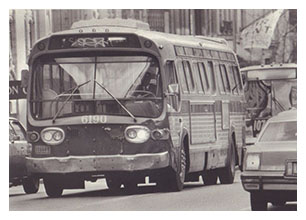 I was riding the Broadway bus with my father and listening to the ticking of the fare collection box. Ticka-ticka, it went, and I sang a song about Popeye in my head. Popeye the savior man. Live in a garbage can. Eat all the worms, and spit out the germs. Popeye the savior man. "Do you remember what I told you about your IQ?" Dad asked me. He hadn't said much of anything about it, so I didn't answer. "I told you that you were above normal," he said, and he held his hands apart like he was measuring the distance between two points. Then he moved his hands closer to subtract from the difference. "I was wrong," he said. "You're not smart at all." His hands came together and dropped onto his lap. "You're stupid, and you do stupid things." It was the only time he ever told me he was wrong.
I was riding the Broadway bus with my father and listening to the ticking of the fare collection box. Ticka-ticka, it went, and I sang a song about Popeye in my head. Popeye the savior man. Live in a garbage can. Eat all the worms, and spit out the germs. Popeye the savior man. "Do you remember what I told you about your IQ?" Dad asked me. He hadn't said much of anything about it, so I didn't answer. "I told you that you were above normal," he said, and he held his hands apart like he was measuring the distance between two points. Then he moved his hands closer to subtract from the difference. "I was wrong," he said. "You're not smart at all." His hands came together and dropped onto his lap. "You're stupid, and you do stupid things." It was the only time he ever told me he was wrong.
James was my other friend from school who was black. His skin color was the same as my friend Chuck's, but that's all they had in common. Chuck was short and nervous like me where James was tall, thin and serene. He had big gentle hands that never squeezed a handshake too hard. He was a faster swimmer than me, which drove me nuts, because I wanted to be the fastest swimmer in the school. He and I would race across the indoor pool at the University, and his big hand would touch the far side tile first. He didn't brag about it. I bragged that I could almost beat him. We had classes together at Agnes Russell grade school for the children of students and employees of Columbia University. The school was on the corner of Broadway and 121st. Most of us lived on 121st Street, but James lived across Broadway in an apartment next to Riverside Church, where his father taught theology. If you looked west down my street, the first thing you saw was the giant tower of the church. I wished my religion was there instead of a rented synagoge in a rough part of downtown.
It was less than two blocks to the building James lived in with his family, so I just walked over the night he invited me to dinner. His father wore a suit at the table, and his mother had on a nice dress. Even his little brother and sister were dressed better than I was. Grace was said before the meal, and polite conversation followed. I kept looking around the table waiting for someone to pinch someone or at least tease them. An argument would follow, and the parents would end up yelling at everyone. That's how dinners at home went, but James' family seemed blissfully unaware of all the possibilities for conflict at the dinner table. When I asked for soy sauce for my rice, James leaned to me and said, "it's against our religion." I didn't question that as it was the first thing I recognized about his family. I was Mormon and used to arbitrary rules. After dinner, James asked his parents if he and I could go to the play room in the basement. Lots of local apartment buildings had basement play rooms for the children; mine also had one.
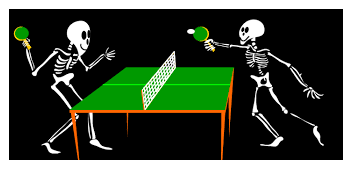 We took the elevator down to a gray corridor that had the New York basement odor of fermenting garbage. It seemed like the basement of every
building smelled the same. There were gray painted doors all along the corridor. Everything had been painted over with a thick coat, even the door
handles. It looked like a facility for incarceration down there. The playroom was at the end of the hall. There were a lot of toys for little kids
pushed into a pile in a corner--teddy bears, plastic donuts, construction blocks and dolls. In the middle of the room there was a ping pong table
with a couple of paddles and balls. James and I played with that for a while, and then we left the room. I asked James where all the basement hallway
doors went to, and he said, "you can't go in those rooms, they keep 'em locked because there's skeletons in there that'll eat your skin." The thought
of having my skin torn off and standing there like a wet piece of meat disturbed me. I didn't think it sounded believable, and I didn't want to
believe it, but I didn't try any doors just the same.
We took the elevator down to a gray corridor that had the New York basement odor of fermenting garbage. It seemed like the basement of every
building smelled the same. There were gray painted doors all along the corridor. Everything had been painted over with a thick coat, even the door
handles. It looked like a facility for incarceration down there. The playroom was at the end of the hall. There were a lot of toys for little kids
pushed into a pile in a corner--teddy bears, plastic donuts, construction blocks and dolls. In the middle of the room there was a ping pong table
with a couple of paddles and balls. James and I played with that for a while, and then we left the room. I asked James where all the basement hallway
doors went to, and he said, "you can't go in those rooms, they keep 'em locked because there's skeletons in there that'll eat your skin." The thought
of having my skin torn off and standing there like a wet piece of meat disturbed me. I didn't think it sounded believable, and I didn't want to
believe it, but I didn't try any doors just the same.
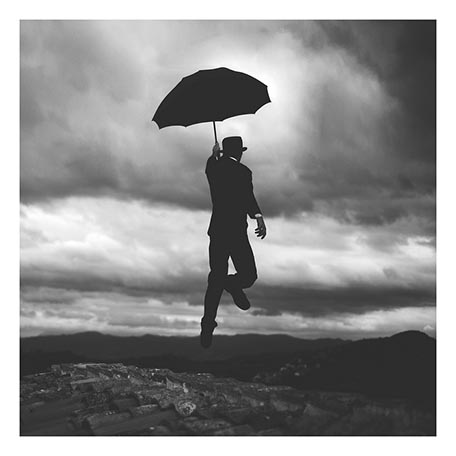 Mr. Miller lived next door in the attached studio unit. Leonard's side had three bedrooms and still felt undersized with his brothers and sisters
and mother and father all living there. There was only one small television and Leonard never got to watch his favorite shows. He would go over
to Mr. Miller's side and there he could watch what he wanted, because Mr. Miller didn't care. The man was always reading, and he would often
quote a passage aloud. "Did you hear that?" he'd ask, "that was magical." The one Leonard remembered was the poem about the statue in the desert. It was the line, "Look on my works, ye mighty, and despair!" When Mr. Miller explained it to him, Leonard was impressed with the giant statue and the boasting. It all crumbled in weather.
Mr. Miller lived next door in the attached studio unit. Leonard's side had three bedrooms and still felt undersized with his brothers and sisters
and mother and father all living there. There was only one small television and Leonard never got to watch his favorite shows. He would go over
to Mr. Miller's side and there he could watch what he wanted, because Mr. Miller didn't care. The man was always reading, and he would often
quote a passage aloud. "Did you hear that?" he'd ask, "that was magical." The one Leonard remembered was the poem about the statue in the desert. It was the line, "Look on my works, ye mighty, and despair!" When Mr. Miller explained it to him, Leonard was impressed with the giant statue and the boasting. It all crumbled in weather.
Mr. Miller made tea. Leonard told him that his Mormon parents didn't allow coffee or tea in the house. Mr. Miller was surprised by that and said, " You must be heavy people. I have to drink four cups a day, or I drift off into the air." Leonard laughed and said, "you mean you drift off to sleep." Mr. Miller insisted that without his daily cups he would become as light as gossamer and float about on the winds. He tipped up on the balls of his feet to demonstrate. The window was open, and a breeze stirred the linen curtains. The sky was cloudy outside, but the air was warm. Leonard heard his mother calling him for supper. "I have to go, Mr. Miller," he said. Mr. Miller said goodbye to the boy and left the door open. "I've only had the one cup," he said to himself, "perhaps a jaunt downtown." Before going out he grabbed his umbrella and put on his jacket and hat. The wind was with him as he lifted off.
"I had me a pigeon by the name of Fred,
But I done shot him in the head." -- Bunnell/Dewey
My seminary teacher paid me to do his yard work, and I spent some of the money on the new record by a group named America. Trout had the record too, and we both loved it. "You know that last song on the record," he asked, "the Pigeon Song?" I told him I liked the lyrics, and found the song amusing. "Amusing?" he said, "it's a tragedy. Don"t you know what it's about?"
"Sure," I said, "it's about a guy who gets rid of everything."
"No," said Trout, "it's about you and me and how we screw everything up and end up with nothing."
I didn't think about losing what I'd never had. Of course I felt guilty, as I was weaned on guilt. But there was no focus to my sense of self-loathing. It was global. Every part of me felt wrong. My father told me that I was disrupting the family and poisoning the home with evil influences. Evil clung to me like a ghost lover, hungry for intimacy. There was no comfort for me in church or school. I lived in the basement like banished royalty, still fed, but kept apart.
 A decade and-a-half later, I was working in the shipping department of a manufacturing plant in north California. We used forklifts to load
packaged product onto flatbed trucks and into boxcars. A railroad track spur ran right into the back of the factory building. In the rafters of the
roof forty feet overhead there was a small colony of pigeons. They sat up there and dropped their guano all over our product. We were encouraged to
drive them off, so we threw rocks at them. They soon got very good at dodging the rocks. They'd watch one arcing up at them and simply step aside to
let it pass. They didn't even fly off.
A decade and-a-half later, I was working in the shipping department of a manufacturing plant in north California. We used forklifts to load
packaged product onto flatbed trucks and into boxcars. A railroad track spur ran right into the back of the factory building. In the rafters of the
roof forty feet overhead there was a small colony of pigeons. They sat up there and dropped their guano all over our product. We were encouraged to
drive them off, so we threw rocks at them. They soon got very good at dodging the rocks. They'd watch one arcing up at them and simply step aside to
let it pass. They didn't even fly off.
Finally someone brought in a pellet rifle and the shooting began. A Romanian guy from another department wanted the dead birds for eating. "Are good like dove," he said. He also ate carp, which to me tastes like dirt. One day I figured I'd take a shot at a bird. I pumped up the rifle, thinking no way I'll hit one. Maybe I can scare it. I aimed at one and squeezed off a shot. The bird immediately dropped from the rafter, flapping one wing on its descent. I had broken one of its wings. It walked around on the concrete floor, looking confused. I had to finish it now, because it would die anyway without the ability to fly. I reluctantly reloaded the rifle and put the end of the barrel against the bird's head. It blinked after I shot it and continued to walk around. Twice more I shot it in the head and it still lived. Even more reluctantly, I put on my leather gloves and picked the poor thing up. I didn't feel like telling the Romanian guy after I was done. It was the biggest thing I'd ever killed, and I didn't feel right.
I
I was standing somewhere in the line of students waiting to be let into the study hall. The near door was closed as kids from the previous study class filed out the far door down the hallway. One side of the hallway had the two entrance doors and the opposite side was all windows. It was very bright, and there were about sixty of us lined up. Of course I had a bully right behind me in line. He was built like a truck and had a sycophant buddy with bowl cut hair. "Look at this freak," Truck said to Bowl Cut. He poked at my back with the business end of a thumbtack. "Ow," I said, "knock it off." The truck turned to Bowl Cut and said, "It feels things and makes noises." Then he jabbed me again, and I forced my way in front of another kid who slugged me in the arm. I was jostled by a couple of other kids as I distanced myself from the bully. "Don't cut in line, asshole," a blond boy said to me. "What are you, a faggot?" I had to negotiate every queue and crowd this way at the middle school. Every day I took the abuse and moved on. I got plenty at home too. I figured it was part of my life.
 I didn't have any reason to expect things would go well for me. My father didn't like me, because I'd told him I was agnostic, and that was forbidden in his house. You followed Joseph Smith or you got punished. Dad was assistant superintendent at my school, but he never visited me there. Even when I was in trouble he stayed out of it. The vice principal called me into his office for missing classes. I told him that sometimes I would read books in the library for a couple of hours, because it was safer in there. I could read without having my ears flicked by bullies. He told me to knock it off and get back to my classes. He had a dead tarantula encased in a block of clear acrylic on his desk. My father wasn't called, even though he worked in the next building over. I felt relieved about that at the time. My father never took my side but joined in with anyone who accused me of bad behavior. I took a lot of grief from him.
I didn't have any reason to expect things would go well for me. My father didn't like me, because I'd told him I was agnostic, and that was forbidden in his house. You followed Joseph Smith or you got punished. Dad was assistant superintendent at my school, but he never visited me there. Even when I was in trouble he stayed out of it. The vice principal called me into his office for missing classes. I told him that sometimes I would read books in the library for a couple of hours, because it was safer in there. I could read without having my ears flicked by bullies. He told me to knock it off and get back to my classes. He had a dead tarantula encased in a block of clear acrylic on his desk. My father wasn't called, even though he worked in the next building over. I felt relieved about that at the time. My father never took my side but joined in with anyone who accused me of bad behavior. I took a lot of grief from him.
Homeroom was the worst. The bullies sat in the back of the class, and I sat up front, as close to the door as possible. I read books in the class, and they called me The Dead Head, because I didn't talk much. I felt intimidated and wished I could go back to the teacher's school at Columbia. I'd had fifth and sixth grade there, and the classes were orderly for the most part. Teachers didn't ignore bullying. In the middle school now, kids were throwing erasers and pencils at the back of my head, and the teacher just sat at his desk, oblivious-like. When the bell rang, I ran out into the hall to escape the bullies in the classroom. But bullies roamed the halls as well. I learned to move quickly and keep my head down in the foot traffic between classes. I called it crowd dodging, and I got pretty good at it. Sometimes I could get all the way to the cafeteria without being slugged. I had to wear Sunday shoes, because we had strict dress codes. I saw a teacher slam a kid against the wall, because the boy's shirt was missing a button. And button up shirts were another requirement. And no jeans. Anyway, the Sunday shoes were too small for my feet and pinched horribly. They had buckles on them that kept unlatching as I walked. When I stopped and bent down to rebuckle the shoes, I got bully kicked in the ass.
By this time I was reading science fiction compulsively, almost frantically. The thought of being somewhere else in time was irresistible, considering my predicament. In what universe is it a good idea to move from New York City to Pottstown, Pennsylvania? I read everything I could get by Bradbury. He had a knack for making small towns much more mysterious and complicated than they really were. Or did he? Maybe I just needed to let my mind wander. Two hippies had lived on our street before we moved in, I'd heard. They used to walk naked on the street at midnight. That fascinated me, and one night, when I awoke with a stiffie, I walked outside to the street without a stitch on. All the house lights were off in the neighborhood, but I had to duck behind the house once when I saw headlights coming. I could tell it was one of our neighbors when the car swerved into his driveway. I went to the swimming pool in our backyard and took a skinny dip. Maybe in the future, I thought, nobody would wear clothes. Who knew what was coming? It had to be different.
II
During the summer I went to the Pottstown library with my mother. She liked to read mystery novels alone in her room. And I liked doing the same with science fiction books, though I preferred short story anthologies. Dad never went with us, though he was an educator by trade. He didn't have much interest in reading, with the exception of his Mormon propaganda volumes. He would pore over those in search of information that would validate his righteousness. My reading level was twelfth grade, so I browsed the adult section at the library. A librarian of slight build and bent back scolded me for wandering away from the juvenile section. I told her that I didn't read kid's books, and her face tightened. She reminded me of an older version of my mother. At that time it seemed to me that middle age women were of two categories, wispy and frail or stout and robust. Our neighbor Effie Baker was of the stout persuasion, and she taught me how to throw a football. My dad didn't have the time.
Effie lived at the end of the street. She gave my brother, Jeff, a ride home after each football game with her son, Brian. Jeff said that one afternoon she asked why didn't his parents ever show up for games? He didn't know how to answer without getting in trouble. How could a kid explain one adult to another? Our parents didn't participate in our education or after school activities. Dad's office was just twenty paces from my middle school, but he never gave me a ride. I didn't see him at school either. It was hard to believe he worked there. He did get the clean up contract for the football field, though. And he made his boys clean up under the bleachers on Saturday mornings after Friday night games. I don't know what he did with the contract money. I never saw any of it. Sometimes I found some leftover popcorn in a bag when I was picking up the litter. I ate it to stave off my hunger. The sun crawled across the sky as my Saturday passed while I worked. But Sundays were even worse.
We attended Mormon "branch" meetings that were held in local rental buildings without air conditioning. I was the only deacon, so I had to pass the sacrament every Sunday. One of the missionaries would pass out the bread and water with me. The congregation was tiny and in no way did it represent Pottstown's best. There was the bald guy who wore thrift shop suits and stashed soft porn detective magazines under his car seat. And the married man who dated a teenage girl. A big loud and fat guy named J.R. and my father ran the show. My dad was branch president. He was the leader of twenty some oddballs who didn't do well in local Lutheran and Baptist congregations. We sat sweating in the heat every Sunday basking in the glory of Joseph Smith's gospel. Between meetings my brothers and I would climb trees outside until J.R. came out and bellowed at us to come down. He was the kind of man who took an unnatural interest in the activities of other people's children--a bully.
I forgot to mention that when I took my late night skinny dip in our pool I heard a squeaking noise. There was a little critter like a mouse swimming on the water's surface and squealing with alarm, because it could not climb up the slick tile sides of the pool. I ran back into the house with my dick flopping everywhere and found a small goldfish bowl. I scooped up the creature along with a little water, and I took it into the house and threw some paper towels in with it to absorb the pool water. I set it on the shelf, determined to find out what species it was. We had an encyclopedia in the house, which my father had purchased from a clever salesman who suggested that every educated household had a set. I looked it up and found that it was fairly rare shrew. Its long snout matched the the one in the encyclopedia photo. In the morning I would show off my rare catch, I imagined. Maybe I could take it to school and not be such a loser. The teacher would tell the students how rare it was . No more deadhead. I fell asleep with a smile on my face for the first time in Pottstown. In the morning I checked on the shrew. It was curled up in a lifeless ball of fur on the paper towel.
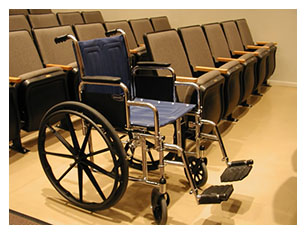 The study hall was huge with a very high ceiling. The seating was theater style with the back row about ten feet off the floor. Steep wooden stairs separated the sections of seats. The room could accommodate sixty students. When I went in I took a seat off to the side two rows up. I always selected my seat for anonymity, away from the stairs and never in the front row. Bullies took the back row, so that was out. I sat between two girls, which was another strategy--avoid proximity to boys who slug and spit. I settled in with a paperback anthology of short science fiction stories translated from Russian. Halfway into a story I felt a vibrating sensation in my hands and arms. My eyesight collapsed to tunnel vision first and then darkness. I lost consciousness and then awoke to find myself lying on the floor in front of the auditorium seats. I felt sick, and tried to get up, but I was too dizzy. The Study Hall teacher was squatting next to me with a pencil in his hand. The pencil's yellow shaft was covered with bite marks. "I used this," said the teacher, "to pry your tongue out so you wouldn't choke on it." I had no idea what he was talking about. "You had a seizure," he said, "you were flopping around pretty hard." A wheelchair was brought in, and I was pulled up onto it. "Someone will come soon to take you to the hospital," said the teacher, "I'm going to check on that now." He left me slumped in the wheelchair in front of sixty whispering and pointing students. I looked down to avoid meeting their eyes.
The study hall was huge with a very high ceiling. The seating was theater style with the back row about ten feet off the floor. Steep wooden stairs separated the sections of seats. The room could accommodate sixty students. When I went in I took a seat off to the side two rows up. I always selected my seat for anonymity, away from the stairs and never in the front row. Bullies took the back row, so that was out. I sat between two girls, which was another strategy--avoid proximity to boys who slug and spit. I settled in with a paperback anthology of short science fiction stories translated from Russian. Halfway into a story I felt a vibrating sensation in my hands and arms. My eyesight collapsed to tunnel vision first and then darkness. I lost consciousness and then awoke to find myself lying on the floor in front of the auditorium seats. I felt sick, and tried to get up, but I was too dizzy. The Study Hall teacher was squatting next to me with a pencil in his hand. The pencil's yellow shaft was covered with bite marks. "I used this," said the teacher, "to pry your tongue out so you wouldn't choke on it." I had no idea what he was talking about. "You had a seizure," he said, "you were flopping around pretty hard." A wheelchair was brought in, and I was pulled up onto it. "Someone will come soon to take you to the hospital," said the teacher, "I'm going to check on that now." He left me slumped in the wheelchair in front of sixty whispering and pointing students. I looked down to avoid meeting their eyes.
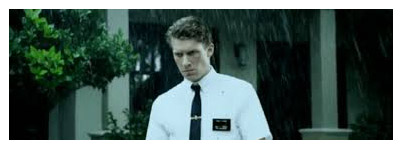 Elder Swann overheard Brother Funles in the foyer after sacrament meeting. The man was talking to another high priest in a high voice. When Roger
Funles was excited, and only money could excite him, his voice went up an octave. Elder Swann's father had told him before he left for his mission
that he should stay close to the wealthy men in his ward, no matter where he lived. If Roger Funles wasn't already the richest man in the stake, he
would be someday. He had a way of talking people into things, as he was now:
Elder Swann overheard Brother Funles in the foyer after sacrament meeting. The man was talking to another high priest in a high voice. When Roger
Funles was excited, and only money could excite him, his voice went up an octave. Elder Swann's father had told him before he left for his mission
that he should stay close to the wealthy men in his ward, no matter where he lived. If Roger Funles wasn't already the richest man in the stake, he
would be someday. He had a way of talking people into things, as he was now:
"We're looking at a fill in of two-and-a-half acres between the freeway and Richard's Boulevard. I need ten thousand dollar investors--just two more people. The return is fifty percent, so you're looking at fifteen thousand dollars for your ten when we finish phase two. The projected date is June first next year, but just between you and me, May fifteenth is the latest I see it coming together. I've only funded my site staff that far out to let you know how confident I am."
The other high priest guy was nodding his bald dome while Brother Funles spoke. Swann wished he had ten thousand, and he realized that he should call his dad in Pennsylvania as soon as he was allowed to. His father had put what, eight thousand into the greenhouses? The orchid blossoms shriveled up like dead fingers during a summer heat wave. Tiny dry fists topped the brown stems, and there were hundreds of them, a small fortune gone to waste. The neighbor had laughed and advised Dad to try merry jew wanna. The greenhouses languished in the backyard, and the glass was filmed with dust you couldn't see through. A few small panes were cracked or broken out, and field mice had gotten in.
Swann was in junior high at the West Coventry school at the time. He didn't know anyone much at school, because he'd only lived there a year. When his old man got fired from the mill in Reading they'd moved for the third time in Swann's memory. He was having a hard time making friends at school. It felt like a part of him didn't care, because he figured he'd be moving soon anyway. Dad was already saying that the guys with the road crew were anti-Mormon. Swann noticed some of that at school. It wasn't overt, or anything. But when kids found out he was Mormon, they had family stories about the early Mormons in Wayne county. The stories didn't flatter the Mormons.
When the Griffith boy invited him over to play some basketball, Swann happily walked the two miles of county road to get there. It was no use asking Dad for a ride; he'd be out trying to make a buck or two extra on overtime until he saved up enough to take a shot at his next investment. Swann knew better than to get in his way and would eventually need the man's help paying for his mission. Two miles was nothing compared with two years. Swann wondered if it was fair to compare distance with time. Einstein had said the two were related, hadn't he? Of course there was no such thing as time. The scriptures said that time was given to man by God. Swann had read that somewhere in the standard works, maybe the D&C, he couldn't be sure.
Griffith handed Swann the basketball on the half-court in his backyard. Swann was tired after his two mile hike, but he didn't want to let a new friend down. Griffith got right in his face and started windmilling his long skinny arms in Swann's peripheral view. Swann asked him what the heck he was doing, and Griffith said he was defensing. Could Swann maybe get just one step off for momentum? He could if he was some kind of queer. He could get a clear path all the way to the backboard if he wanted to cry about it. By the way, wasn't he Mormon? Griffith's grandpa had talked about how the Mormons had cheated folks out of their farms in the old days. Griffith couldn't say how the Mormons had done it when asked by Swann, who was thinking maybe none of it happened. Dad had told him to watch out for anti talk. He excused himself and started the walk home. Griffith called after him, and sounded like the boy was yelling, "flag, flag!" Swann couldn't be sure, because the wind was picking up. It was fall, and it would be cold after dark. He was kind of glad he hadn't stayed long at Griffith's.
In the foyer someone tapped at his right shoulder blade, and Swann turned around to see his companion, Elder Preston, a tall blond guy from Draper, Utah. The Utah guys always said that--the name of their town followed by Utah. Swann had been on his mission for nearly a year, and he was starting to think that the way the Utah elders introduced themselves might be connected to the rumors of special treatment for the sons of Zion in the mission field. Pennsylvania was a little off the handcart trail, so to speak. And Elder Preston was like a walking advertisement for himself. Swann didn't mind playing second banana while tracting. He preferred it. He chastised himself for thinking of Elder Preston as flashy and privileged. Where had that come from?
Swann wondered if he was maybe jealous of Preston. The guy's parents sent him extra money, and his clothes were better than Swann's. But Preston was odd. He prayed obsessively, sometimes stopping mid sentence to close his eyes and mutter something to Heavenly Father. He stroked himself off in the shower while singing church hymns. Swann had seen him once, by accident, with the shower curtain pulled halfway back. Preston was singing "We Thank Thee, O God for a Prophet" and jerking his hand on accented syllables: we THANK thee o GOD for a PROphet, with three strokes on the beat. Swann would never be able to hear the song again without thinking, "We spank thee oh God, for a prophet." Not that he didn't jerk off himself, just without the song part. That was supposed to prevent masturbation, according to the mission president. He knew he could be worse off. The president had asked him during his interview did he ever have sex with an animal, so there had to be guys with heavier issues than wanking.
Back in the day other kids at the West Coventry school had seemed more in their element than had Swann. Even after a year there he didn't feel a part of it. He caught a lot of teasing and shoving in the halls. He was shorter than average and couldn't see what was coming in crowds. One time a kid had accidently jabbed him in the forearm with a sharpened pencil, and he bled good till he stopped it up with toilet paper. Griffith told him that he'd get tetanus and his arm would fall off if the lead poisoning didn't get him first. Not too many kids would even bother talking to him, so he put up with Griffith's chatter. It was kind of like turning on a white noise machine in a room that was too quiet. Swann wanted to hear something other than silence, and Griffith was happy to oblige. He probably couldn't stop himself talking if he wanted to.
"Elder?" said Preston, "you ready? We've got a dinner invite, remember?"
"Sure thing," said Swann, "I was just listening to Brother Funles here. He's got some kind of payout for investors with ten grand."
Preston smiled. "If ten thousand dollars is the price of his ear, I'd find another man to talk with."
There's that thing, thought Swann. That knowing talk. It's like he just floats above everything and goes his way in perfect serenity. I'm standing here wondering what I'm missing, and he's got his mind on the next big thing. It's not going to be microwave burritos or ramen tonight. We're going to have a real hot meal prepared for us. I don't know how he does it and why I don't. I guess I won't tell Dad about the Brother Funles deal. It's not like he'd be missing out on anything real, is it?
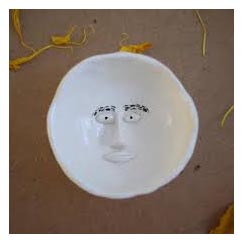 He was a tall Dane on a high school football team in the mountains near Snake River, Oregon side. His skin was porcelain, and his forehead already
high with pattern balding. His number came up for the Korean war, and he married his sixteen-year-old girlfriend, who was short in stature and late
in monthly cycle, for a deferment. Dinner Plate Face named his daughter Kinda, She was late too, when she was sixteen, but by then there was a
procedure. Dinner Plate Face was a lifetime employee at the city school district. He was prominent in his church ward and sold Amway to anyone he
could corner. His son was beleaguered in an inexplicable way. The boy had a preference for motorcycles, Marlboros, and marijuana. He refused to
observe gospel values. The Mrs. was able to save the daughter from straying, and the girl had moved out and married in the temple. It was the
only kind of marriage recognized by God; everyone knew that. If you didn't get sealed with your spouse in a temple, you had a guaranteed divorce
at death. So Kinda was on her way to eternal motherhood. She and her family would go to Kolob while awaiting the Celestialization of the
Earth. But the boy, he seemed to be firmly in the grip of the adversary.
He was a tall Dane on a high school football team in the mountains near Snake River, Oregon side. His skin was porcelain, and his forehead already
high with pattern balding. His number came up for the Korean war, and he married his sixteen-year-old girlfriend, who was short in stature and late
in monthly cycle, for a deferment. Dinner Plate Face named his daughter Kinda, She was late too, when she was sixteen, but by then there was a
procedure. Dinner Plate Face was a lifetime employee at the city school district. He was prominent in his church ward and sold Amway to anyone he
could corner. His son was beleaguered in an inexplicable way. The boy had a preference for motorcycles, Marlboros, and marijuana. He refused to
observe gospel values. The Mrs. was able to save the daughter from straying, and the girl had moved out and married in the temple. It was the
only kind of marriage recognized by God; everyone knew that. If you didn't get sealed with your spouse in a temple, you had a guaranteed divorce
at death. So Kinda was on her way to eternal motherhood. She and her family would go to Kolob while awaiting the Celestialization of the
Earth. But the boy, he seemed to be firmly in the grip of the adversary.
The Mrs. told her church friend, Batty, about the boy, because Batty had a boy too. Batty's boy was no good either. "I don't know what will come of those two," she said. The boy and Batty's boy motorcycled together in the dirt fields and did who knows what else. Batty's boy wouldn't even attend church, he was so far gone. The Mrs. didn't think that kid would come to any good. Such an attitude he had. Joseph Smith, he said, was a con man who made it all up. Every thing he said brought him closer to Satan. The two women agreed that boys were more difficult and required a lot more corporal punishment than girls. It was the only way to get their attention. A coddled boy is a threat to the stability of the family. He grows up accustomed to having his needs met. He expects help going to college. And now, said Batty, this hippie thing. My son is, well, one of those. The Mrs. was so happy with that news that she sped home to tell Dinner Plate Face that Batty's son was worse off than their own. The Mormons have kingdoms for this sort of thing. Their boy could hit a middle kingdom if better behaved than Batty's hippie kid, who was definitely bottom kingdom material.
But things never go the way you'd expect. Batty's son served in the Army, got married and had a kid. Dinner Plate Face's boy was inept and only worked part time. He showed up at sacrament meeting to ask for money. His hair was long and unkempt. The boy had nothing more than casual girlfriends; why couldn't he hold on to one? Goddam Batty's atheist kid worked full time and had his own apartment. He had a wife and kid. His family seemed to be doing well. The one consolation was that the kid hadn't married in the temple, and in fact remained an atheist. He'd lose his family at death. You couldn't tell him that, though. The kid would look at you like he thought you were nuts. The most solemn elements of the faith would make him giggle, if you so much as hinted at them. That kid was finished. But Dinner Plate Face wondered would his son fare any better? Unfortunately, his worst fears were realized when the boy asphyxiated himself. He was found behind a locked door, even. Dinner Plate Face gave the boy a priesthood blessing with oil, but it was too late. His son had passed.
A funeral for his son so soon? What was going to happen to Dinner Plate Face next? It was closed casket in the First Ward chapel. Batty's boy was there with his damned wife and kid. The boy stood up at the microphone like he should be alive while Dinner Plate Face's son wasn't even fit to look at--all that purple around his neck and chin. The coroner said he had trouble with the tongue. It was expensive too, and Dinner Plate Face still hadn't liked the way his son's body looked. There was no viewing. Dinner Plate Face talked to Batty's son at the gravesite. The boy said he was sorry, and Dinner Plate Face said that it was good that his son was free of his ailments. But he didn't mean it. He wanted his son alive. He wanted to go to the Celestial Kingdom with his boy. What man wouldn't? At least his daughter, Kinda, was safe and staying with him. He had a heart condition, and she wanted to help out around the house. Every night Dinner Plate Face read stories to his grandchildren. Sometimes he pretended to sleep on his recliner while they giggled and hid from him. Then he would rise with a snort and seek them out. One night the kids ran to grandma and told her that grandpa wouldn't get up from his chair. Which is the answer to the question.
A darkroom is where pictures are developed. An enlarger beams light through film negatives to burn images onto photosensitive paper. The images are sealed to the paper with a chemical fixer before the room lights come up, and it's suddenly morning indoors. The finished prints are hung up to line dry and looked over. Matte or glossy finish, which will best represent the original image? Have colored filters been used to alter the tones? Where the human hand is involved, there will be human distortion. It's like a blanket that reflects your own heat back at you. Confinement is warm. It insulates 'round the body.
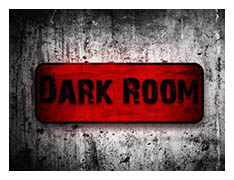 I had nightmares of an ogre at the bedroom doorway, headless and backlit with glaring hallway light. The sound of my father's heavy steps approaching
frightened me while I lay in bed at night. He brought pain like a gift, and my two brothers and I wondered each time which of us was to receive it. We
flashed through the events of the day in our minds and tried to cull out a crime of some sort. Had we left the train set transformer on? Tracked in
dirt on Mom's floor? Had we been slow or neglectful with our chores? Said a bad word? We never wanted to see our door crack open once we'd got
into bed. No good would come of it.
I had nightmares of an ogre at the bedroom doorway, headless and backlit with glaring hallway light. The sound of my father's heavy steps approaching
frightened me while I lay in bed at night. He brought pain like a gift, and my two brothers and I wondered each time which of us was to receive it. We
flashed through the events of the day in our minds and tried to cull out a crime of some sort. Had we left the train set transformer on? Tracked in
dirt on Mom's floor? Had we been slow or neglectful with our chores? Said a bad word? We never wanted to see our door crack open once we'd got
into bed. No good would come of it.
We made our own pictures in our heads. Jeff saw a millionaire standing in front of a great house and beckoning him to come forward. Mark saw a clown waving at him from the boardwalk of an amusement park, perhaps Santa Cruz. I looked inward on a ghost. A fist would swing uselessly through a ghost, I figured. Judgment and labels wouldn't stick to it. It couldn't be called lazy and disobedient. Could you force one to go to church? It wouldn't have to sit on hardwood benches for hours without squirming or bear its testimony in front of frowning strangers, because it could vanish if you did. A picture formed in my mind under the blankets in the dark room.
It took three marriages for my sister to get her dream home in east Roseville. The funny thing was I knew the third husband before she ever met him. He was a neighbor of mine. I'd seen him many times from across the street, mowing his lawn in suspenders with a cigarette dangling from his lips. He shared a duplex with his mother, an old Jewish lady whose grand daughters hoped to be named in the will. They're getting nothing, he said of his nieces. Maybe a buck. And if they contest it, they'll lose the buck. Later on his mother died, and my sister married him. He bought her a nice four bedroom, two bath house in a manicured neighborhood, and she wanted to have her brothers over to admire it.
Years later my sister and I would become estranged. She was changeable and unpredictable in her outlook. One day she would give me an armload of printouts from the Tanner's research into Mormon corruption, and the next day she'd excoriate me for "blaming the church for everything." She was the one who introduced me to the Recovery From Mormonism board, a site she later trolled under a pseudonym. When I balked at her inconsistency, she told me that she needed to reevaluate our relationship. I recognized that as Mormon practice. People are evaluated and sorted according to worthiness. I had become unworthy, and she let me know it. We never spoke again.
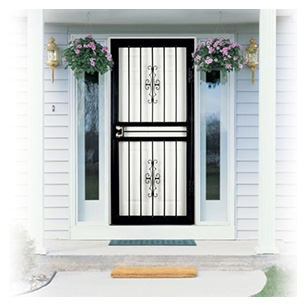 But none of that had happened yet when Jeff and I approached her door as invited guests. It did seem odd to me that she had a steel security screen
with a deadbolt lock in a quiet upscale neighborhood. When I knocked there was a sudden cacophony of barking and yelling from within the house. I
could hear the soft thumps of her two small dogs throwing their bodies at the other side of the door. They yipped and yapped and snarled and
yelped. Her muffled protestations were hard to make out, but I thought I heard her say, "damn door." Finally there was the rattle of a chain
being pulled back and the snap of deadbolts retracting. The door behind the security screen swung open, and our sister appeared, flustered and
flushed with one leg holding back an angry dog. "Maybe we should come back at a better time," I said.
But none of that had happened yet when Jeff and I approached her door as invited guests. It did seem odd to me that she had a steel security screen
with a deadbolt lock in a quiet upscale neighborhood. When I knocked there was a sudden cacophony of barking and yelling from within the house. I
could hear the soft thumps of her two small dogs throwing their bodies at the other side of the door. They yipped and yapped and snarled and
yelped. Her muffled protestations were hard to make out, but I thought I heard her say, "damn door." Finally there was the rattle of a chain
being pulled back and the snap of deadbolts retracting. The door behind the security screen swung open, and our sister appeared, flustered and
flushed with one leg holding back an angry dog. "Maybe we should come back at a better time," I said.
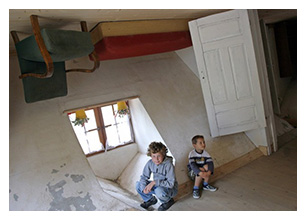 I lay on the sofa and hung my head over the side, looking up. If the ceiling was the floor I'd have to step up to enter the hallway. Each room had a doorway transom that I'd have to fling myself over if I wanted to enter the room. I hoped I didn't have to take a leak up there. The toilet would flush over me like a bucket of water dumped on my head. Remember that Sinbad movie where the ship was caught in a storm at sea, and buckets of water were tossed by stagehands into the scene from the sides? The toilet or the sink or the bathtub would dump on me in an upside down house. Ceiling fans would bark my shins if I got too close. Hanging light fixtures would look like electrical flowers sprouting from the sheet rock underfoot. I could open the high kitchen cupboards and watch the old plates and drinking glasses crash to the floor above. Everything dropped would fall up and smash on the linoleum or thump at the carpet, depending on where I was standing.
I lay on the sofa and hung my head over the side, looking up. If the ceiling was the floor I'd have to step up to enter the hallway. Each room had a doorway transom that I'd have to fling myself over if I wanted to enter the room. I hoped I didn't have to take a leak up there. The toilet would flush over me like a bucket of water dumped on my head. Remember that Sinbad movie where the ship was caught in a storm at sea, and buckets of water were tossed by stagehands into the scene from the sides? The toilet or the sink or the bathtub would dump on me in an upside down house. Ceiling fans would bark my shins if I got too close. Hanging light fixtures would look like electrical flowers sprouting from the sheet rock underfoot. I could open the high kitchen cupboards and watch the old plates and drinking glasses crash to the floor above. Everything dropped would fall up and smash on the linoleum or thump at the carpet, depending on where I was standing.
I wondered if I opened the front door and threw out the Book of Mormon would it fall up into the blue? Would it flutter and flap and shrink to a point like a fleeing bird? Because that would be cool.
I knew a kid who lived in an upside down house. The house was normal for most of the day, but it flipped over when his father came home from work. The kid said the flip was violent, with the house fairly jerking itself into opposition. He and his mother would be thrown at the ceiling while the father whistled and loosened his tie. The kid's mother would secretly give him a pet mouse to soothe his nerves. The next day the father would feed the mouse to a python coiled on the ceiling under his bed. The bed was up, and the ceiling was down. Five mice a week. It was cheaper to breed them than buy them, so the mother hid them in the garage and tossed bread crumbs in by the handful. The SUV was parked in there, upside down and hanging like a shiny black thundercloud. The kid didn't dare walk under it.
I had my own Damocles blade. It would no doubt strike when God found me out. I wondered how did I go about with my head unsevered, if not for blind deity?
My house wouldn't turn over. It tolerated my father the way the Grand canyon tolerated the Colorado River. Dad wore away at the house, eroding it at a glacially slow rate. It took about two years on the average for him to completely wear a house down. Then we had to move. I never did find out what happened to the kid with the flipping house. I guess I assumed he was dead by now. Him or his father. Mine just kept wearing out houses, moving from town to town and state to state. Eventually I wore out and ran off to join the military. They billeted me in a long room with fifty beds. It looked like a hospital ward with small windows and only one door out. There was a room by that door which was occupied by a drunk sergeant named Nixon. He left every evening and came back after midnight, stinking of beer and cigarettes. You could smell him in your sleep. I lay on my back looking up, but the barracks room wouldn't flip for me. It stayed like it was. Everything stayed like it was after that.
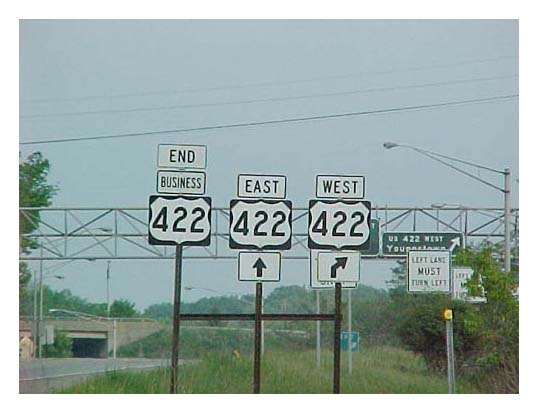 One of those big hills by the 422 freeway was carpeted with wild grass. You could almost slide down it on your ass. We found a Volkswagen hood and
used it to sled down the hillside. It was fast. Jimmy Frame found an unopened can of beer in the dirt there. He was eight years old, and he didn't
hesitate to open it and chug it. There was a smear of mud on his lips after he finished it. He liked to smoke too. We shared some of our carnival
cigarettes with him. The best place to smoke was by the crab apple tree in the woods. We ate the apples off the tree from the time they were
green. They were still partly green when ripe with bands of red on the skin. Some the worms got and the remainder were ours.
One of those big hills by the 422 freeway was carpeted with wild grass. You could almost slide down it on your ass. We found a Volkswagen hood and
used it to sled down the hillside. It was fast. Jimmy Frame found an unopened can of beer in the dirt there. He was eight years old, and he didn't
hesitate to open it and chug it. There was a smear of mud on his lips after he finished it. He liked to smoke too. We shared some of our carnival
cigarettes with him. The best place to smoke was by the crab apple tree in the woods. We ate the apples off the tree from the time they were
green. They were still partly green when ripe with bands of red on the skin. Some the worms got and the remainder were ours.
Jimmy's older brother, Donny, went to middle school with me. Donny was thin as a rail and already losing his hair. He had wispy flyaway bangs that flapped in the wind. His clothing was too big for him, as it'd been handed down from his older brother who worked in an auto shop up the street. Everyone called Donny Framey, on account of his last name was Frame. One day Framey told me on the phone that he had some money and we could buy candy at the strip mall. So I walked over to his house, and I saw him fighting with his sister Barbara. She was huge, and she was kicking his ass all over the front porch of their dilapidated house. "You stole the 63 cents Grandma gave me, you son of a bitch!" she yelled at Donny as he recoiled from the strike of her ample forearm. Framey got away from her and we bought a big bag of M&Ms with his coins.
Sundays were murdered by church, and my Dad made me and my two brothers work a lot of Saturdays. We were free labor to him, but he didn't see it that way. His sons owed him for room and board. His daughters didn't, just the boys. It's a burden to be my father's son. We had a swimming pool, and one time Framey came over to swim. Later my father claimed that Framey had left a floater in the pool. He called it boopey. "I had to take his boopey out of the water with my bare hand," Dad complained. We had a couple of nets for fishing things out, but I knew better than to mention them. My father had been martyred by my actions. I owed him.
"They left me in a lurch," Barbara told Danny. She'd called him on the phone after two years of no contact to complain about her parents' situation. "I travel to Phoenix often, and when I learned my parents had moved to the retirement development there, I called my mother right away. She said I couldn't stay overnight at their place, because you have to be 55 or older."
"Not even for one night?" Danny asked.
"No, not one, Danny."
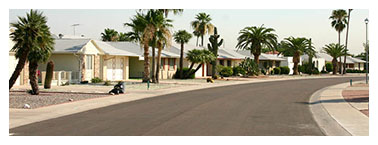 Danny recalled that when his mother-in-law had lived in Sun City, Roseville, she'd had her grandchildren stay over many times. What kind of community would ban...and it came to him that Barbara's mother could be lying. Barbara had had a contentious childhood, he remembered her saying. Danny'd had one as well and no longer spoke to his parents. Hell, even if the prohibition against sleepovers were true, Barbara's parents had to have known that before they bought. They didn't want her, and she didn't know it. Danny had a desire to help her. He tried to think of a subtle way to broach the subject.
Danny recalled that when his mother-in-law had lived in Sun City, Roseville, she'd had her grandchildren stay over many times. What kind of community would ban...and it came to him that Barbara's mother could be lying. Barbara had had a contentious childhood, he remembered her saying. Danny'd had one as well and no longer spoke to his parents. Hell, even if the prohibition against sleepovers were true, Barbara's parents had to have known that before they bought. They didn't want her, and she didn't know it. Danny had a desire to help her. He tried to think of a subtle way to broach the subject.
"Remember how my parents treated me?" he said, and Barbara said she did. "I thought everything would change as they aged," he said, "but it didn't. They moved away and made up excuses for ignoring my kids. When I complained about their cold behavior, they moved. I just let them go."
"My situation is different," said Barbara, " my parents and I have always been close."
Danny remembered her crying when her father forgot her birthday. Maybe the burden was just too much for her. He'd seen grown men crack over flashbacks of childhood trauma. Barbara had been married three times. She'd joined and quit several congregations. She'd gotten pregnant by a teenage Mormon boy after her first divorce, and her parents had tried to talk her into an abortion. They didn't seem to want her multiplying.
"I know my mother loves me," she said with a sob. "In her own way."
"I'm sure she does," Danny lied. "Have you considered therapy?"
"That's for crazy people. Are you calling me crazy? I'm not crazy, I have Jesus for a copilot and he wouldn't let me go wrong."
"Sorry," said Danny, "listen, I gotta go. There's a church thing, a gun show." She made a loud noise as he disconnected. He turned his phone off.
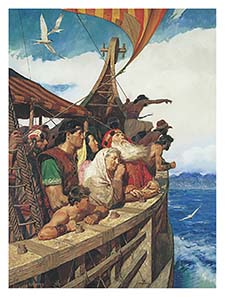 Today's primary lesson is about Nephi's ship. Nephi and his family were on the lam after he murdered Laban back in Jerusalem. They walked all the way
to the Red Sea, a hundred and eighty mile journey. Nephi and his brothers walked back again to retrieve a few people. Then the small group built
a great ship with neither a port nor any shipbuilding industry. They used a curious sort of workmanship given to them by the Lord. The ship was
big enough for the entire group of nomadic Jews, and they boarded it with many divers supplies. They were blown around the world with steady winds
and landed at America. There they would undergo a miraculous transformation, some of them. But that's for another lesson.
Today's primary lesson is about Nephi's ship. Nephi and his family were on the lam after he murdered Laban back in Jerusalem. They walked all the way
to the Red Sea, a hundred and eighty mile journey. Nephi and his brothers walked back again to retrieve a few people. Then the small group built
a great ship with neither a port nor any shipbuilding industry. They used a curious sort of workmanship given to them by the Lord. The ship was
big enough for the entire group of nomadic Jews, and they boarded it with many divers supplies. They were blown around the world with steady winds
and landed at America. There they would undergo a miraculous transformation, some of them. But that's for another lesson.
I
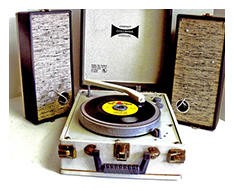 The first record player I remember was a Columbia portable. It looked like a brown suitcase until you opened the latches and swung out the two
built in speakers. The turntable would play at 78, 45, and 33 rpm. My first favorite record was a 78 titled, "(I'm Gettin') Nuttin' For
Christmas." There was a little cartoon picture of a sad boy on the center label. I don't know why my parents would purchase a novelty
record about a bad boy when they already had three in the house. My two brothers and I would listen to the disc over and over around Christmas
time to remind us to be good. The flip side had a song about getting a puppy for Christmas and a puppy cartoon head on the label. It was a
Columbia non breakable record, which meant it was shatter resistant, not unbreakable. 78 records were extremely fragile and could break into
shards when dropped. In the great American novel, "Catcher In The Rye," Holden Caulfield drops a 78 that he's been meaning to give to his
sister. It breaks into pieces.
The first record player I remember was a Columbia portable. It looked like a brown suitcase until you opened the latches and swung out the two
built in speakers. The turntable would play at 78, 45, and 33 rpm. My first favorite record was a 78 titled, "(I'm Gettin') Nuttin' For
Christmas." There was a little cartoon picture of a sad boy on the center label. I don't know why my parents would purchase a novelty
record about a bad boy when they already had three in the house. My two brothers and I would listen to the disc over and over around Christmas
time to remind us to be good. The flip side had a song about getting a puppy for Christmas and a puppy cartoon head on the label. It was a
Columbia non breakable record, which meant it was shatter resistant, not unbreakable. 78 records were extremely fragile and could break into
shards when dropped. In the great American novel, "Catcher In The Rye," Holden Caulfield drops a 78 that he's been meaning to give to his
sister. It breaks into pieces.
Mom had some show tune records like "My Fair Lady," and "Man of La Mancha." She also got a Winnie the Pooh record that addicted my little sister. "Deep in the hundred acre wood..." it crooned. My next personal favorite was a record of short horror stories narrated by Alfred Hitchcock. It's great and can be found on Compact Disc at ebay. Hitchcock tells a series of scary bits with narration between the cuts. He says that he is standing in his flooding basement under a leaky pipe. As the 33 rpm album progresses, his basement fills up, and you can hear him gurgling and drowning at the end. It's all very droll, but the centerpiece of the record is, for me, Hitchcock's narrator telling the brilliant short story "The Open Window," by H. H. Munro. It's a story of madness and deception (my favorites always). Hearing it prompted me to seek out the story in print and read it. It became a kind of watermark for me over the years. I always thought that if I could tell a story on the level of Open Window, I would be a real storyteller. I love that tale to this day.
When we lived in Manhattan, we accumulated more records, especially classical stuff. After I'd seen 2001, my favorite movie, I fell in love with the Blue Danube Waltz by Johann Strauss. The 1812 Overture by Tchaikovsky thrilled me too. And speaking of thrilling, Grieg's "Hall of the Mountain King" was a masterpiece of building tension. My sister had Beatles records, which were packed with bright melodies. By the age of eleven, I was listening to music on purpose and by itself without a screen. My teachers at school played folk music records by Peter Paul and Mary and Joan Baez. It seemed like everything was changing everywhere, even on records. My parents hated the rock and roll stuff. They associated it with the impending apocalypse. I wondered how Jesus would look descending on New York City with his arms wide, just kind of floating down. He had to come, because John Lennon said the Beatles were more popular than the Lord. That wouldn't stand. But Beatles records continued to sell out, and my family moved away from New York before Jesus got there.
II
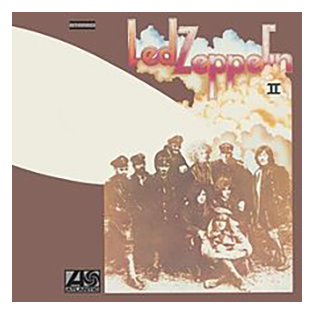 If you ever find yourself eleven years of age and living in Manhattan, don't leave town, don't move away. And if you must, don't move to a little
hick town in Pennsylvania. I did, and it didn't go well. It was like listening to a foreign language, the way the locals spoke: "Hey, youse guys
want some shoo fly pie?" They had potato chip delivery trucks and volunteer fire departments where poor men tried to figure out ways to outrank one
another. For solace, my brothers and I listened to the Beatles album, Abbey Road. We turned it up loud on the Columbia record player and sang
along. "Come Together" was a favorite, and my little brother would pretend to be dialing an old telephone with the weird percussion sounds. The
Columbia was getting a little tattered around the edges, having done its work in three states now. One night Jeff was listening to Dad's old German
language studies record with headphones. Dad came downstairs in his short bathrobe with his garments hanging below the hem. He stood in front of Jeff until Jeff took off the phones. "What do you think you're doing," he said, his inflection more like an accusation than a question. Jeff said he was studying German. "Well, knock it off. Go to bed." Dad was an educator.
If you ever find yourself eleven years of age and living in Manhattan, don't leave town, don't move away. And if you must, don't move to a little
hick town in Pennsylvania. I did, and it didn't go well. It was like listening to a foreign language, the way the locals spoke: "Hey, youse guys
want some shoo fly pie?" They had potato chip delivery trucks and volunteer fire departments where poor men tried to figure out ways to outrank one
another. For solace, my brothers and I listened to the Beatles album, Abbey Road. We turned it up loud on the Columbia record player and sang
along. "Come Together" was a favorite, and my little brother would pretend to be dialing an old telephone with the weird percussion sounds. The
Columbia was getting a little tattered around the edges, having done its work in three states now. One night Jeff was listening to Dad's old German
language studies record with headphones. Dad came downstairs in his short bathrobe with his garments hanging below the hem. He stood in front of Jeff until Jeff took off the phones. "What do you think you're doing," he said, his inflection more like an accusation than a question. Jeff said he was studying German. "Well, knock it off. Go to bed." Dad was an educator.
We hung around east Pennsylvania until Dad was fired from his administrative job along with a co-worker. And for no good reason, he added. But we had to sell the house and move all the way to Oregon to live in Grandma's house. So something was fucked, as The Dude would say. I was relieved to be leaving such a miserable life, and I had a thought. I needed to change myself into a normal person of some kind, but what? I didn't like sports, so jock was out. Farmboy or cowboy? Oh God no. I no longer cared to be the geeky kid that gets punched in the school halls everyday. What else to be? My answer was on the front cover of Led Zeppelin II, a hard rock record my sister owned. The band members posed for the cover photo, and they all had long hair and jeans and jackets. That would be my look. I would have to fight with my father every day to maintain it, but we were going to fight anyway. He was an oddball temple goer with temple underwear and a temple brain. The man did not like me. Inside my head, Led Zeppelin songs were playing as we drove across the country. I could almost feel my hair trying to grow out. I'll get my next haircut from an undertaker, I remember thinking.
III
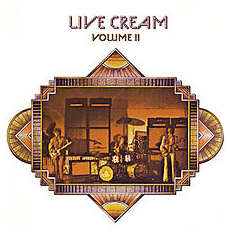 After moving to La Grande, Oregon, we lived all crammed into Grandma's house for a few months. A dependent family of seven with a pregnant mother must have raised a few eyebrows in Grandma's wealthy hillside neighborhood. We were bursting at the seams until my grandparents helped us get a house two miles out of town. It was a shack the size and shape of a double wide trailer, but the outside walls went all the way to the ground, and the thing sat atop a concrete basement. The house appeared to have been a one bedroom with the attached garage converted into two tiny bedrooms the size of walk in closets. There was only one bathroom, and I slept in the remodeled fruit cellar. I could hear people walking overhead. When my parents argued and fought, the bumping noises came through my ceiling.
After moving to La Grande, Oregon, we lived all crammed into Grandma's house for a few months. A dependent family of seven with a pregnant mother must have raised a few eyebrows in Grandma's wealthy hillside neighborhood. We were bursting at the seams until my grandparents helped us get a house two miles out of town. It was a shack the size and shape of a double wide trailer, but the outside walls went all the way to the ground, and the thing sat atop a concrete basement. The house appeared to have been a one bedroom with the attached garage converted into two tiny bedrooms the size of walk in closets. There was only one bathroom, and I slept in the remodeled fruit cellar. I could hear people walking overhead. When my parents argued and fought, the bumping noises came through my ceiling.
My sister got a 19 dollar Monkey Ward record player for Christmas. It was missing the center spindle at first, but you could line up a record by eye well enough to play. I used the headphones to listen to rock music, because Dad said it was evil, and he didn't want to hear it in his house. It was always his house wherever we lived, and I assume he'll take his last house with him when he rises to his Celestial glory. Whatever. Anyway, my favorite record at that time was an album by Cream, Eric Clapton's supergroup. The record was heavy with hard, distorted blues and great guitar solos. I somehow missed the evil parts. Maybe you had to have a certain kind of ear for evil, hearing it everywhere you go. That in itself sounds kind of evil to me. My hair grew longer and longer, and my father was furious and embarrassed about having a hippie son.
I tried going to church, but the men were idiots. The bishop wanted to talk to me about my weiner, and his counselors spoke over the pulpit about the evils of general society. Everything outside of that dull and boring church was evil. Even if that were true, it would be a shitty thing, wouldn't it? What good could come from demonizing almost the entire world? None did. I stopped attending and caught hell for that as well. I was a bad little boy with long hair who needed more discipline, if anything. One evening Dad beat me up in front of the whole family. He and I were throwing punches in the hall, and he got the best of me and slammed me against the wall. I stumbled down the basement steps to my fruit cellar room to recover. I started listening to Alice Cooper and Black Sabbath after that. I could understand the darkness in their music. By the time I was fifteen, I had pretty much given up on life. I walked the two miles to town and bummed cigarettes and played pool at the Billiards Hall.
IV
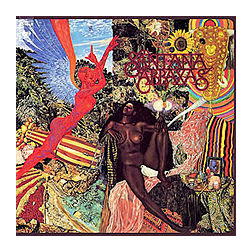 When I was fifteen, Dad and Grandpa signed my custody over to the state. Grandpa, the most prominent lawyer in town, must have been embarrassed to
have his grandson wandering the streets to escape the abuse at home. Dad would have been troubled for much the same reason. Grandpa set up a meeting
with a judge, and the judge remanded me to a boy's ranch in central Oregon near the town of Bend. I cried in my fruit cellar room. I played Grand
Funk's "Closer To Home" on the Monkey Ward record player and sniffled over the line: "I'm getting closer to my home." What home? Where?
When I was fifteen, Dad and Grandpa signed my custody over to the state. Grandpa, the most prominent lawyer in town, must have been embarrassed to
have his grandson wandering the streets to escape the abuse at home. Dad would have been troubled for much the same reason. Grandpa set up a meeting
with a judge, and the judge remanded me to a boy's ranch in central Oregon near the town of Bend. I cried in my fruit cellar room. I played Grand
Funk's "Closer To Home" on the Monkey Ward record player and sniffled over the line: "I'm getting closer to my home." What home? Where?
Whenever I was feeling stressed at the end of the day spent working on the ranch, I would lay on my bunk with headphones on and listen to Carlos Santana's "Samba Pa Ti." The song features a guitar that starts out sounding kind of forlorn. I imagined a small creature with a trumpet shaped mouth singing the notes, wanting to be heard like anything. Santana made that guitar come alive and cry for the people. His music was played in old cars that barely ran, and with cheap transistor radios and Monkey Ward record players. It was the blues for Chicanos and poor white kids. I remember hanging with Mexican boys who knew where to get weed. They introduced me to Cheech and Chong, my favorite comedians of the era. At the end of "Samba Pa Ti" the melody speeds up and becomes celebratory. In my daydreams the trumpet creature shouted joy at the world, like something beautiful had blossomed from the dirt and the weeds growing in the empty lot of an empty life.
I would also listen to David Bowie's album, Space Oddity. The title track was about a man being lost in space, and I contemplated my life as a series of one way trips to the next address. Bowie's songs were often about people who were overwhelmed by their environments: a man writes a letter to a woman who left him, a hungry old lady steals food and faints with guilt, an outdoor party is invaded by peaceful aliens from Venus, a village is destroyed by a mountain trying to protect a boy from execution. I dreamed a thousand dreams of science fiction and fantasy in the ranch barracks. The counselors gave me an allowance every month, and sometimes I had an opportunity to work for wages. I had a better life there than at home, in all truth, and I kind of dreaded going back to live with my father, especially after he wrote to me that we were moving to a new town. The town had a population of 500, and I dreaded the thought of it. It turned out I was right to be worried.
V
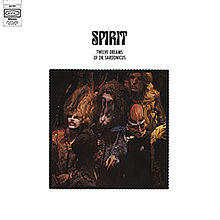 A Greyhound bus took me from the boy's ranch to Elmira, the tiny western Oregon hamlet that had hired my father as superintendent of schools while
I was moving irrigation pipe in the back forty. Between Elmira and Veneta, the next town over, the population totaled 1500. The high school had less
than two hundred students. It was hard not to know everyone within a couple of months, and they all knew me. I was the son of the hated school
chief. Elmira was one of those towns with a high school for a social hub. People crowded to watch the friday night games at the school's modest
field. Some hippie friends and I would hang out behind the bleachers and smoke doobies. We were roundly hated by the athletes and the cowboys. I
received extra hate, because my father fired the coach and the principal, both of whom were locally popular. So all this time after Pennsylvania, I
was back to getting shoulder punched every day in the halls. "Your father is a fucker," they would say. I'd been trained at home to take a beating,
and I didn't fight back.
A Greyhound bus took me from the boy's ranch to Elmira, the tiny western Oregon hamlet that had hired my father as superintendent of schools while
I was moving irrigation pipe in the back forty. Between Elmira and Veneta, the next town over, the population totaled 1500. The high school had less
than two hundred students. It was hard not to know everyone within a couple of months, and they all knew me. I was the son of the hated school
chief. Elmira was one of those towns with a high school for a social hub. People crowded to watch the friday night games at the school's modest
field. Some hippie friends and I would hang out behind the bleachers and smoke doobies. We were roundly hated by the athletes and the cowboys. I
received extra hate, because my father fired the coach and the principal, both of whom were locally popular. So all this time after Pennsylvania, I
was back to getting shoulder punched every day in the halls. "Your father is a fucker," they would say. I'd been trained at home to take a beating,
and I didn't fight back.
On weekends I lost myself in music and reading. My sister had a record titled "Twelve Dreams of Dr. Sardonicus." It had twelve songs that were like interlocking stories told in pop and rock style. When I got a hold of some acid, I took it and listened to the record again. It sounded a lot weirder, and my thoughts drifted with the strangeness. Then I put on some Hendrix and started hallucinating. I saw images of big spiders that were translucent and inanimate. I knew they weren't real, and when I blinked they vanished. I was staring at the Brady Bunch paneling on my closet door when I saw a flickering square of white light like that from a 16mm movie projector. The screen showed a fertility idol carved from wood and the title: "The History of Wood." It was a series of slides, it turned out, that were photos of wood worked by human hands. There were early weapons and then totem poles and crude furniture that slowly became more and more refined as the slides changed out. By the end I was seeing Scandinavian furniture and abstract wood sculpture. Then the ersatz movie ended abruptly, as if refusing to reveal the future of wood. I saw again the fake woodgrain on the closet door, but this time there was the image of a skeleton biting its own hand. Even after the acid wore off I could see that damned skeleton in the faux woodgrain on the closet door.
My father was getting death threats and prank phone calls at all hours of the night. I got myself beat down in the locker room. I felt like I couldn't move my arms during a fight, and it emboldened people to attack me. Even this one really weak kid named Monty tried to have a go at me. I kicked him senseless with my feet only. It didn't make me feel any better. As in Pennsylvania, I wished for a quick death. With that spirit of nihilism, I used LSD many times. At first the trips were happy and bright. It seemed everything had a purple tint to it when I was high, and the trips lasted for ten or twelve hours. The best thing to do was walk a forest trail while tripping. My friends and I called these "lunar excursions." But eventually the acid brought up all my fears and phobic responses. I had some bad trips. In one I imagined the war in heaven while sitting on the steps of a church in Veneta. It was cloudy, and I somehow sensed the angels swordfighting unseen behind the clouds. I imagined myself on the losing side. Soon we would flee Elmira in the station wagon, after they fired my father in disgrace. It was in the Eugene newspaper, which actually described my beatdowns as scuffles. LIke a onlooker to my own life, I watched the countryside roll by as we drove south to Roseville, California. The album by America, "Homecoming," was playing in my head. We were returning to California after having left it some eight years earlier.
VI
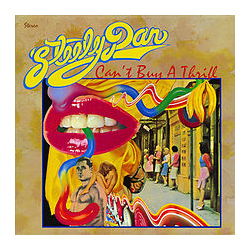 When we moved to Roseville, I was seventeen. We had no home yet, so we stayed at Uncle Ken's. Jeff shared Terry's bedroom, and Mark and I slept
in a tent trailer that was set up inside the garage. It was May and hot already; sleeping in the heat was difficult and sweaty. One tends to toss
and turn a lot. Terry had a record I liked by Steppenwolf. It was titled, "At Your Birthday Party," and it had the classic song, "Rock Me," as
well as some funky titles like "Chicken Wolf" and "Jupiter's Child." Terry and I listened to it with his mother's RCA console stereo. Their house
was a two storey, and very nice, but once again, as at Grandma's, we were crammed into someone else's home. It was like my father never planned
out our moves with secured housing. He just crammed us into someone else's place until he got a house. I think the people we inconvenienced were
the ones who helped us get housing, so desperate were they to get rid of me and my siblings. Being constantly unwanted and needy takes a toll on
the psyche. I shuffled reluctantly through weedy fields with Terry and my brothers on the way to school in the mornings. None of the many adults
in the house could be bothered to drive us, and I didn't have any wheels.
When we moved to Roseville, I was seventeen. We had no home yet, so we stayed at Uncle Ken's. Jeff shared Terry's bedroom, and Mark and I slept
in a tent trailer that was set up inside the garage. It was May and hot already; sleeping in the heat was difficult and sweaty. One tends to toss
and turn a lot. Terry had a record I liked by Steppenwolf. It was titled, "At Your Birthday Party," and it had the classic song, "Rock Me," as
well as some funky titles like "Chicken Wolf" and "Jupiter's Child." Terry and I listened to it with his mother's RCA console stereo. Their house
was a two storey, and very nice, but once again, as at Grandma's, we were crammed into someone else's home. It was like my father never planned
out our moves with secured housing. He just crammed us into someone else's place until he got a house. I think the people we inconvenienced were
the ones who helped us get housing, so desperate were they to get rid of me and my siblings. Being constantly unwanted and needy takes a toll on
the psyche. I shuffled reluctantly through weedy fields with Terry and my brothers on the way to school in the mornings. None of the many adults
in the house could be bothered to drive us, and I didn't have any wheels.
Lou Reed's album, "Rock n Roll Animal" was a guitar driven force of nature that almost made me forget I was living in my father's garage. Dad had bought us a small three bedroom in a blue collar neighborhood. Our family numbered nine at this point. The sweeping lead guitar solo that introduced "Sweet Jane" sounded good on the Radio Shack stereo I'd bought with money from my job at Rodeway Inn. I was the janitor there and not paid enough to move out when I turned eighteen. Dad charged me rent for my bed in the garage. If I'd had a friend who would share rent with me, I could have moved out. But I only knew Terry and his friends, and they were all in high school. Sometimes I just wanted to listen to the blues. I had a B.B. King record for that. It was "Live at Cook County," which was a recording of a performance at the Cook County Jail near Chicago. "Every Day I Get the Blues" was one of my favorite songs. It was how I lived.
"The weekend at the college didn't turn out like you planned
The things that pass for knowledge, I can't understand"
Those were lyrics to Steely Dan's "Reelin' In The Years," and that was how I felt after a semester of classes at the local community college. I had no direction. I asked my father if he would help me go to the University of Oregon, because I knew a couple of students there. I knew them from Elmira, where they had been standout students as well as rebels. At Elmira high school, a smart kid was pretty much an automatic rebel. The community was rabidly anti-intellectual and just as rabidly pro rodeo. Anyway, Dad refused to help me unless I went to Rick's, the Mormon college in Idaho. Or I could go on a mission. If I refused his offer, I was to move out yesterday or earlier. Roseville had an Army recruiter in town.
VII
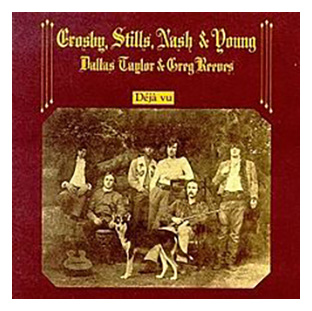 The smallest apartment I lived in had the greatest view. I could see all of Frankfurt, Germany from my living room or bedroom window. I lived
with my first wife on the twentieth floor of a twenty-five storey building in Eschborn, just a few miles from downtown. I listened to Frank
Zappa's "City of Tiny Lights" as I looked over Frankfurt at night. My wife said it looked like a city from the future with the space needle-looking
tower the locals prosaically referred to as the big asparagus. Mary and I worked at the Army hospital in Frankfurt. When we signed up for our
apartment, we were asked if we had a floor preference. "Highest you got," I said. I wanted a view. We had a balcony big enough for a dozen people
to stand on. I put a Weber Smokey Joe grill out there for barbecuing. Inside, the apartment was just a bedroom, a bath, and a kitchen next to
the living/dining area. The walls were all concrete, so I could turn up my audio system to eleven. The neighbors didn't hear a thing. I played
the Blue Oyster Cult's records in there often. There's nothing like "Godzilla" at 100 decibels.
The smallest apartment I lived in had the greatest view. I could see all of Frankfurt, Germany from my living room or bedroom window. I lived
with my first wife on the twentieth floor of a twenty-five storey building in Eschborn, just a few miles from downtown. I listened to Frank
Zappa's "City of Tiny Lights" as I looked over Frankfurt at night. My wife said it looked like a city from the future with the space needle-looking
tower the locals prosaically referred to as the big asparagus. Mary and I worked at the Army hospital in Frankfurt. When we signed up for our
apartment, we were asked if we had a floor preference. "Highest you got," I said. I wanted a view. We had a balcony big enough for a dozen people
to stand on. I put a Weber Smokey Joe grill out there for barbecuing. Inside, the apartment was just a bedroom, a bath, and a kitchen next to
the living/dining area. The walls were all concrete, so I could turn up my audio system to eleven. The neighbors didn't hear a thing. I played
the Blue Oyster Cult's records in there often. There's nothing like "Godzilla" at 100 decibels.
We had friends in the building, so of course we had parties. I remember riding the elevator home after a party with drinking contests. I could barely stand, and I staggered from the elevator to our apartment with my wife holding me steady. I was heaving over the toilet for what seemed forever. Then I awoke in my bed with a pounding hangover and no memory of how I got there from the bathroom. On days like that I listened to America or Crosby, Stills, Nash and Young. Something soft and melodic. Maybe some Beatles. I loved that white album. I got a copy of it pressed on white vinyl, but I stained it with some cheap cleaning kit. I had a running battle with earning the money to buy nice things and ruining them. My relationships went the same way. My first wife and I were very close, and almost inseparable until we left the service and Germany. We moved back to California, the state from which we'd both come, and drifted apart. She wanted to go out nights, and I wanted to stay home and listen to records. I was starting to get more and more panic attacks in public. My job seemed harder every day. I was working twelve hour shifts at a factory.
I smoked grass to calm my nerves, but it pissed off my wife. She said it was coming between us. On weekend nights I would smoke and play my records, and she would go out with the girls. It seemed like I was shrinking, folding into the sofa. I usually slept there anymore. I didn't consider that I was unhappy. I would have disagreed had someone told me the obvious. I just thought that once you were married, that was it. You didn't have to worry about romance anymore. I got my wake up call right after work one evening. I came home to a house that had been cleared out. The only things left were the couch and my elaborate stereo system. I think there was a message in there somewhere. I was all broke up over it and crying in my beer, but I still went to work. I saw my ex there at the factory--once again we were working at the same place (we had a bad habit of that). I got all teary and had to be sent home. It seemed a lot lonelier there without the presence of the woman I'd so carefully ignored. My father offered me a room at his house in Roseville. Once I'd got my ex to sign the divorce papers, I quit my job and moved the two hundred miles north to Roseville. Jiggity jig.
VIII
 At the tender age of twenty-four I moved back into my father's house in Roseville, California. I was fresh off a failed marriage and all depressed
and lonesome. My ex wife had left me half our savings, and I made the beginner's mistake of telling my father about it. He decided to charge me
rent, which came as a surprise to me, as I had no income. But Dad wasn't the kind of man to leave money on the table. Even other people's
money. Especially other people's money. He told me the best money in the world was OPM. The challenge was to talk others into putting their
money to work for you, he told me. I dutifully paid the rent, until he told me he was going to double it. The reason was my immorality, he said. I
didn't go to church. I came home late nights. I had a girl in my room once. "Your mother and I are sick of it," he said, "so I'm doubling your
rent every month until you move out." He'd thrown so many children out that he'd developed creative (and lucrative) strategies for doing it.
At the tender age of twenty-four I moved back into my father's house in Roseville, California. I was fresh off a failed marriage and all depressed
and lonesome. My ex wife had left me half our savings, and I made the beginner's mistake of telling my father about it. He decided to charge me
rent, which came as a surprise to me, as I had no income. But Dad wasn't the kind of man to leave money on the table. Even other people's
money. Especially other people's money. He told me the best money in the world was OPM. The challenge was to talk others into putting their
money to work for you, he told me. I dutifully paid the rent, until he told me he was going to double it. The reason was my immorality, he said. I
didn't go to church. I came home late nights. I had a girl in my room once. "Your mother and I are sick of it," he said, "so I'm doubling your
rent every month until you move out." He'd thrown so many children out that he'd developed creative (and lucrative) strategies for doing it.
I got myself a room mate and a job as a car wash attendant. We shared a two bedroom apartment in old Roseville for $250/month. I paid half and was able to get by. I missed my factory salary, but nobody was hiring that year in local manufacturing. Most of the guys at the car wash were eighteen or nineteen, so I started hanging with a younger crowd. I bought the beer and let the young guys drive. I felt young again again, which was funny and sad at the same time. I dated a young girl for a while, but that didn't work out. It seemed like everything I touched turned to crap like King Midas in reverse. My room mate and I watched a lot of MTV, and it changed my record collection up. Now I had albums by Men At Work, Devo, Kraftwerk, The Police and The B52s. A year later I landed a job at a fiber board plant, and my wages tripled. I found a nice, loft-style apartment in Fair Oaks, a community about eleven miles from Roseville. I bought a Datsun 210 and started living like an adult.
When I decided to go back to school, I looked up want ads for student room mates. I figured if I halved my rent I could pay the college fees. I found a young woman my age who was a student at American River college and looking to share an apartment. I moved in with her and started school while still working at the plant. It was hard going, and it took me three years to finish my Associate in Arts. I met Nancy while dining at a local restaurant. She was bussing tables and I asked her out. We rented an apartment together in Sacramento by the university, where I took classes in poetry, creative writing and literature. I never did finish a B.A., but it was a great education for me nonetheless. I no longer felt like the sad sack who went to three high schools and one semester of college. Nancy and I were married, and we played a Fine Young Cannibals record at our reception. Their hit song was "She Drives Me Crazy."
IX
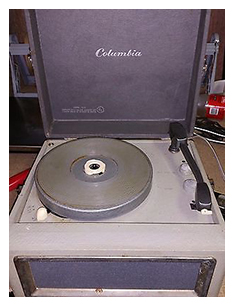 The birth of our son, Kyle, changed everything for us. Nothing turns a house upside down like a newborn. Nancy quit her job to be a full time
mother, as I was making enough to pay the bills. I started buying diapers by the trunk load. Preparing the bottles for the baby was like laboratory
work. Everything had to be sterilized, and the formula precisely warmed. New threats confronted us. Is he safe in his crib? Is it normal to cry
so much? How to make this little creature happy? He gradually grew into a bubbly, cheerful baby. We read books to him, and we took him to the
Sacramento Railroad Museum and the zoo. We tried taking him to the movies and ended up carrying him out. He was too young. It was a bit of
trial and error finding the right activities for him. He loved the ocean and the beach when we took him there. With all this going on, my record
collection was gathering dust in disuse. I had compact discs now, and those were easier to handle. I finally gave all my records and record
player away. Why bother storing them?
The birth of our son, Kyle, changed everything for us. Nothing turns a house upside down like a newborn. Nancy quit her job to be a full time
mother, as I was making enough to pay the bills. I started buying diapers by the trunk load. Preparing the bottles for the baby was like laboratory
work. Everything had to be sterilized, and the formula precisely warmed. New threats confronted us. Is he safe in his crib? Is it normal to cry
so much? How to make this little creature happy? He gradually grew into a bubbly, cheerful baby. We read books to him, and we took him to the
Sacramento Railroad Museum and the zoo. We tried taking him to the movies and ended up carrying him out. He was too young. It was a bit of
trial and error finding the right activities for him. He loved the ocean and the beach when we took him there. With all this going on, my record
collection was gathering dust in disuse. I had compact discs now, and those were easier to handle. I finally gave all my records and record
player away. Why bother storing them?
We had an aptitude test at work. The highest scorer would be given the apprentice job in the electrical department of maintenance. I got the top grade and went to work with the electricians. It was nice to be off the factory floor once in awhile. I still had to go out there to make repairs, but the shop was air-conditioned, so I spent as much time in there as possible. I took night classes at the local community college. I studied everything from atomic theory to reading electrical prints. The maintenance department was demanding--we had to work fourteen hour maintenance shifts several times a month. I made more money, but the stress was taking its toll. I had depression and episodes of crippling anxiety. I was given all kinds of medication to deal with it, but the problems continued until I was hospitalized after a nervous breakdown. I was burning out, and everyone but me knew it. When they fired me, I went to a mental health hospital my brother recommended. He had had problems very similar to mine. The people at the institution put me on state disability until I could receive Social Security.
At first I just took my medication and read books and wrote the occasional poem. Then I began to work with some stories from my childhood. I became a regular poster at an ex Mormon site, and an editor named cricket with a site called Salamander Society picked me up and illustrated my stories. My son grew into a nice young man, and my wife went back to working in retirement homes. One day my older sister gave me her record collection. Though I had no player, I gladly took the records, many of which were Beatles and Rolling Stones albums. I got a cheap record player, and then a better one. But best of all is the old Columbia record player I bought through ebay. It was the same model year as the one I'd listened to as a kid, only this one came with a single speaker instead of two. I bought some 78s to play on it. The miracle was in finding "(I'm gettin') nuttin' for Christmas" in decent condition. I take it out around the holidays and listen to it to remind me to be good.
 Once we got east of Davis on I-80, the traffic thinned some. I put the pedal down and the little Datsun eased up to 70, which was about
maximum cruising speed. The car would cry like a sled dog if I pushed it any harder. "Your driving is too conservative," said Jon. Terry, who was
seated behind us disagreed. "I feel very safe with Don driving," he said, tapping out a cigarette from his second pack of the day. The sun was
starting to set behind the coastal mountains, and the glare on the windshield was blinding. When I'd first met Jon Harris, I'd said, "hey, your name..."
Once we got east of Davis on I-80, the traffic thinned some. I put the pedal down and the little Datsun eased up to 70, which was about
maximum cruising speed. The car would cry like a sled dog if I pushed it any harder. "Your driving is too conservative," said Jon. Terry, who was
seated behind us disagreed. "I feel very safe with Don driving," he said, tapping out a cigarette from his second pack of the day. The sun was
starting to set behind the coastal mountains, and the glare on the windshield was blinding. When I'd first met Jon Harris, I'd said, "hey, your name..."
"I know," he said, "Dr. Smith from Lost in Space. We have the same name."
"I never liked that show," said Terry, "that guy was a Nellie."
"That's the point," said Jon, "you're not supposed to like the guy. He was a villain."
"Selling the boy to aliens for passage back to Earth in every episode," I added.
"You guys are weird sometimes," said Terry, lighting another cigarette off the last one. We were at Jon's apartment in Rocklin that day, and he played his Roger Waters records on his stereo. He had a scarred face, but his eyes were electric blue. He was like a poor man's Ray Liotta, and he always had a pretty girlfriend. Terry and I were lucky to hook up with desperate divorced women. "It's confidence," said Jon. "you have to have it." Terry and I just nodded like a couple of clueless bobbleheads. Our shared Mormon upbringing inspired guilt more than confidence. Terry was sinning, in his mind, every time he smoked a cigarette, which was all day. For my part, sin had gotten under my skin, and I felt guilt all over in a general sense.
We'd passed through Vacaville and Fairfield, and we were approaching the coastal mountain pass, going uphill. Now I was lucky to push the Datsun to sixty. I had a truck behind me looking to pass me, that's how slow we were going. Jon complained, and I asked him what did he expect from a one liter motor? The road curves to the left at the top of the pass, and you can look out to the right and see the Marine World park in the small valley of Vallejo. The air is immediately cooler there compared to the hot and dry Central Valley. Damper, too. Jon and I had our windows rolled down, and Terry had his popped open already for smoking. After you come down the hill and pass Vallejo there's a horse racing track. It looked like something out of a movie to Mormon boy who had never been in such a place. Other guys dads went there, I supposed.
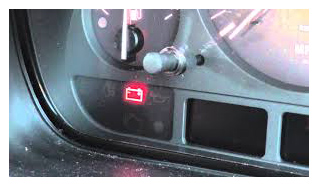 Just as we were nearing Berkeley there was a snapping sound under the Datsun's hood. Then my battery idiot light came on. " I think I broke the alternator belt," I said. John agreed. Terry said we should wait till we got to a better area before stopping. "I can't run on the battery alone for very long," I said. Terry said, "but what if it's not the belt and we pull over and get robbed?" I told him I wasn't stopping on the freeway, and he said the town looked worse, but I took the first Berkeley exit and drove on the surface street until I came to an auto repair shop. Terry wouldn't get out of the car, so Jon and I went into the store. We were the only white guys in there, and I wasn't used to that. But nobody was aggressive except the owner. He told me I had to buy two belts as a set, he couldn't sell just one. He was no dummy, and he could see we were from out of town--on the road and needing an alternator belt. So I bought the two belts, even though the charge was closer to the price of four, but what are you gonna do? Stranded is stranded. Jon and I used my tools from the trunk to replace the belt while Terry sat in the back of the car and chain smoked nervously.
Just as we were nearing Berkeley there was a snapping sound under the Datsun's hood. Then my battery idiot light came on. " I think I broke the alternator belt," I said. John agreed. Terry said we should wait till we got to a better area before stopping. "I can't run on the battery alone for very long," I said. Terry said, "but what if it's not the belt and we pull over and get robbed?" I told him I wasn't stopping on the freeway, and he said the town looked worse, but I took the first Berkeley exit and drove on the surface street until I came to an auto repair shop. Terry wouldn't get out of the car, so Jon and I went into the store. We were the only white guys in there, and I wasn't used to that. But nobody was aggressive except the owner. He told me I had to buy two belts as a set, he couldn't sell just one. He was no dummy, and he could see we were from out of town--on the road and needing an alternator belt. So I bought the two belts, even though the charge was closer to the price of four, but what are you gonna do? Stranded is stranded. Jon and I used my tools from the trunk to replace the belt while Terry sat in the back of the car and chain smoked nervously.
 The three of us were going to the Pink Floyd laser show at the planetarium in Golden Gate park. We crossed the crooked bay bridge with its tunnel
cut through the little peak of Treasure Island. I held my breath going through the tunnel, which I'd been doing since I was a kid. It only works on
short tunnels, but you get a sense of accomplishment when you clear the tunnel and take a deep breath in sunlight. Jon gave me directions for
navigating the city. If you ever want to make your life harder, try driving a manual tranny into San Francisco. The city is ruthless with
intersections on hillsides. You stop at a red light, and you're looking at the hood of your car, the hills are that steep. Then some nut pulls
up right behind you, bumper to bumper. The light goes green and you have to rev up before letting out the clutch to keep from rolling back into
the nut behind you. I damaged my clutch that day and it soon needed replacing. A clutch and an alternator belt that trip cost me.
The three of us were going to the Pink Floyd laser show at the planetarium in Golden Gate park. We crossed the crooked bay bridge with its tunnel
cut through the little peak of Treasure Island. I held my breath going through the tunnel, which I'd been doing since I was a kid. It only works on
short tunnels, but you get a sense of accomplishment when you clear the tunnel and take a deep breath in sunlight. Jon gave me directions for
navigating the city. If you ever want to make your life harder, try driving a manual tranny into San Francisco. The city is ruthless with
intersections on hillsides. You stop at a red light, and you're looking at the hood of your car, the hills are that steep. Then some nut pulls
up right behind you, bumper to bumper. The light goes green and you have to rev up before letting out the clutch to keep from rolling back into
the nut behind you. I damaged my clutch that day and it soon needed replacing. A clutch and an alternator belt that trip cost me.
Terry wanted to go to the beach, he said, so I drove through Golden Gate park to the east side, where the foliage gives way to the sand. There's
an old wooden windmill there, and every time I see it I think of that Hayley Mills movie, The Moon Spinners. There's a scene in the movie where
she's trapped in a windmill and has to grab on to the turning sails to get down. I was seven when I saw the movie, and I thought her last name
had something to do with windmills. I was always making those crazy connections in my head. I parked the Datsun by the stone seawall bordering
the beach.  There was a cold wind coming at us from the water, and Jon and I stayed in the car. It was summer, and that can be chilly in
San Francisco. In the valley we always say, take a jacket if you're going to the bay. Terry stood on the sand facing the setting sun. His
windbreaker flapped in the breeze. "Let him have his moment," said Jon.
There was a cold wind coming at us from the water, and Jon and I stayed in the car. It was summer, and that can be chilly in
San Francisco. In the valley we always say, take a jacket if you're going to the bay. Terry stood on the sand facing the setting sun. His
windbreaker flapped in the breeze. "Let him have his moment," said Jon.
After the sun had dipped into the Pacific somewhere near Japan, we went for dinner at a place called Pete's Pizza. It was a small joint on
Geary Street with a reputation for fine spaghetti, of all things. I wondered what could be so great about spaghetti until I got a plate. The noodles
were perfectly done al dente, as they say. Just the right texture. They would definitely stick to a wall if thrown. And the garlic bread was
heady. It gave me a slight buzz. Jon thought maybe there was some clove in the mix, which caused the numbing sensation on the tongue. It was
like doing a gummer with coke. 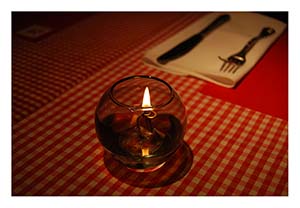 The steamy little joint was nicely decorated with red and white tablecloths. The tables were lit with fluttery candlelight in small glass votives. When we got out of there, it was dark. Streetlights were on everywhere, and the traffic continued unabated with lots of honking. Buses roared by here and there among the cars. We drove back to Golden Gate park for the light show.
The steamy little joint was nicely decorated with red and white tablecloths. The tables were lit with fluttery candlelight in small glass votives. When we got out of there, it was dark. Streetlights were on everywhere, and the traffic continued unabated with lots of honking. Buses roared by here and there among the cars. We drove back to Golden Gate park for the light show.
Unlike New York's Central Park, Golden Gate park is almost uniformly dense with vegetation, and there are many places in there where you can't see the city. The parking lots are inadequate, and you must often park along the side of the narrow roads and hike to your destination. But I was able to park in view of the planetarium, despite the fact that there was quite a large gathering of people there. Were they all there to see the Pink Floyd laser show? Jon said it looked like a lot of them were going into the museum next door, and they were formally dressed. And between us and the planetarium was crowd of protesters with a large bedsheet banner that read "Stop The mindless Nihilism." I was thinking they were protesting the laser show, but why? They looked to be college age. Were they some kind of new age puritans protesting the dissolute lives of Pink Floyd fans? My mind raced, trying to connect things, as usual. I had to talk to them. We had almost an hour left before the show, and I wanted to know what these people were about. "I'm not going," said Terry, "rioters." Jon said, "You watch too much TV, Terry." But Terry wasn't going out there until he could slip into the planetarium without encountering any dangerous malcontents. I saw a news team setting up, which motivated me all the more.
Jon and I approached the people holding up the bedsheet. "What're you guys protesting?" Jon asked. A guy with a goatee answered, "this yuppie dinner to celebrate greed and raise money for a new stadium. The homeless need help, and they get nothing. These guys want to enrich wealthy sports team owners with city funds." I could see that now. They were protesting the gluttonous, not the stoney. You guys here for the Floyd show?" asked goatee, and we nodded. "Could you take my place holding the sheet?" he asked me, "I gotta take a leak." I agreed, and just in time, too. A TV camera swept over us, and I could feel the warmth of the spotlight. We were going to be on the local news. In the distance I could see my Datsun with a tiny cigarette cherry glowing through the window.
The goatee guy came back and took my position holding the sheet. I found Jon talking to a college girl. He was trying to get her number, and I could see he wasn't going to succeed. She kept asking, "what if I did give you my number?" I'd heard that enough times to recognize it as a soft no. When he gave up we went back to the Datsun and burned a number with Terry. With just ten minutes to showtime, the three of us walked over to the planetarium entrance. We went in with a bunch of other stoners and took seats near the projector, which looked like a giant ant from an old science fiction movie. A bearded guy with glasses stood by the projector and spoke to us. "Welcome," he said, "to the Saturday night laser show, featuring the music of Pink Floyd. We are professional laserists and we use this for everything we do." He pointed to a tiny dot of red light on the dome. The dot changed color to yellow and then green. "Those are all the colors we have," he said, "if you see any other colors, you brought them here with you," The crowd chuckled. "As small as that dot is," he went on," we can do a lot with it." The red dot wriggled. It fanned out and stretched itself over the whole dome. Then it formed a large circle, a triangle, and then a square. The shapes vibrated slightly. "Time to start the show," the guy said, and he went to join his fellow laserist.
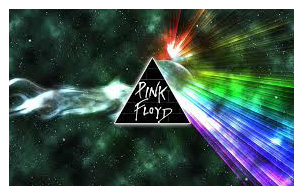 As the lights dimmed, we leaned back in our cushioned seat. The seat backs were high with head supports. The room went completely black, and then the
dome exploded with stars. The Milky Way was clearly visible like a glowing scar on the night sky. I was warm and comfortable with my weed buzz. Then
the stars started to roll past us overhead. I imagined traveling through deep space looking out the window of a spaceship. The first notes of
"Shine On You Crazy Diamond" rang out in high fidelity from good audio speakers I could'nt see. I thought maybe they were projecting the sound up
from around the edges of the dome. A laser dot appeared, roaming freely among the moving stars. It wriggled and expanded into a series of light
waves that pulsed with the songs passages. In the middle of the room I could just see the top of the giant ant projector rotating its head as if
curious. The music progressed and one Pink Floyd song followed the other. During the song, "Money," the lasers formed a bank bag with a $ sign and a
cash register. Many images came and went. I'm pretty sure that one of them was a cannabis leaf, but I wouldn't swear to it. When the show ended and
the lights came up, there was that hushed crowd sigh you hear at the end of concerts. And the lights came up too bright. The crowd shuffled out
and dispersed into the park at midnight.
As the lights dimmed, we leaned back in our cushioned seat. The seat backs were high with head supports. The room went completely black, and then the
dome exploded with stars. The Milky Way was clearly visible like a glowing scar on the night sky. I was warm and comfortable with my weed buzz. Then
the stars started to roll past us overhead. I imagined traveling through deep space looking out the window of a spaceship. The first notes of
"Shine On You Crazy Diamond" rang out in high fidelity from good audio speakers I could'nt see. I thought maybe they were projecting the sound up
from around the edges of the dome. A laser dot appeared, roaming freely among the moving stars. It wriggled and expanded into a series of light
waves that pulsed with the songs passages. In the middle of the room I could just see the top of the giant ant projector rotating its head as if
curious. The music progressed and one Pink Floyd song followed the other. During the song, "Money," the lasers formed a bank bag with a $ sign and a
cash register. Many images came and went. I'm pretty sure that one of them was a cannabis leaf, but I wouldn't swear to it. When the show ended and
the lights came up, there was that hushed crowd sigh you hear at the end of concerts. And the lights came up too bright. The crowd shuffled out
and dispersed into the park at midnight.
 Jon and Terry and I piled into the Datsun and headed east on I-80. As I navigated the little car through the dense bay traffic, Terry slumped over
in the back seat and snoozed. Jon asked me to tell him some more amusing Mormon beliefs. Unlike Terry and me, Jon had been raised without
religion. "Protective underwear," he said, "that's silly." I told him about progression to Godhood, and he guffawed. I saw Terry rising from the
back seat in my rear view mirror like a serial killer in a horror movie. "Don," he said, "you know the church is true. He fumbled for a cigarette
and lit it. "Your right hand disagrees with you." I said. And Terry said the fuck you mean? "What are you holding in your hand?" I asked. Terry took
a long drag on the smoke, as if prompted by the mention of it. "It doesn't mean anything," he said. I told him that my point was he couldn't
live Mormon if he wanted to. He disagreed, as there was no reason that he couldn't theoretically observe the religion's taboos. He finished his
smoke and tossed it out the side window, and it exploded in a ball of sparks on the dark asphalt behind us. Ahead of me, and going into the
valley, was a long string of white headlights on the left and red tail lights in front. Among the red tail lights were random yellow blinkers
for cars switching lanes.
Jon and Terry and I piled into the Datsun and headed east on I-80. As I navigated the little car through the dense bay traffic, Terry slumped over
in the back seat and snoozed. Jon asked me to tell him some more amusing Mormon beliefs. Unlike Terry and me, Jon had been raised without
religion. "Protective underwear," he said, "that's silly." I told him about progression to Godhood, and he guffawed. I saw Terry rising from the
back seat in my rear view mirror like a serial killer in a horror movie. "Don," he said, "you know the church is true. He fumbled for a cigarette
and lit it. "Your right hand disagrees with you." I said. And Terry said the fuck you mean? "What are you holding in your hand?" I asked. Terry took
a long drag on the smoke, as if prompted by the mention of it. "It doesn't mean anything," he said. I told him that my point was he couldn't
live Mormon if he wanted to. He disagreed, as there was no reason that he couldn't theoretically observe the religion's taboos. He finished his
smoke and tossed it out the side window, and it exploded in a ball of sparks on the dark asphalt behind us. Ahead of me, and going into the
valley, was a long string of white headlights on the left and red tail lights in front. Among the red tail lights were random yellow blinkers
for cars switching lanes.
My father, the son of a son of a polygamist, would say of any non-Mormon who died, "smoker." That's how common smoking was in 1969, the year I smoked my first cigarette. I can't recall if it was from one of the packs of Fatima cigarettes that my brothers and I won at a carnival game, or if it was a cig given to me by Noel Baker, Mormon bad boy, or if it was a half cigarette I'd picked up off the gravel shoulder of the highway to Reading. But I was smoking cigarettes off and on at the age of twelve. I'd given up on Mormon superstitions and was smoking with abandon like my gentile grandmother. She was my mother's mother; Dad's side of the family had been Mormon for four or five generations, which is plenty of time to eliminate any kind of individuality from the bloodline. Dad was a slavishly observant Mormon. His interests included church, money, church apologetics, Nixonian politics and church attendance. For a hobby he beat his sons. My brothers and I smoked in fields and behind buildings.
We moved from Pottstown, PA, to La Grande, OR, before I turned fourteen. In La Grande I met a boy named Randy, whose truck driving father had dropped out of Mormonism, taking his grateful family with him. Randy had a preference for the long cigarettes. His favorite was Benson and Hedges one hundreds. Those were long smokes. I was just a puffer until I met Randy. He showed me how to inhale, and it made me dizzy. I had noticed my grandmother inhaling, and I thought that she was swallowing the smoke the way she swallowed Coors from the can. Once I started inhaling, the hook was in. I was like a caught Marlin. The cigarettes might let me roam for a bit, but they would always reel me in at some point. On occasion I found it necessary to sneak off and have a smoke. I'd become an addict.
Throughout my teens I smoked compulsively. Cigarettes were with me at parties, drive in movies, trips to the mall, dirt bike runs, creek walks, rock concerts and even while hiking in the woods. The cancer sticks were ubiquitous. It became necessary to maintain a stash of cigs and a lighter or matches. A pack with only two cigarettes left in it triggered anxiety. Where would I get my next pack? What hours would the store be open? Did I forget my cigarettes when I got into the car? What if I woke up in the morning to an empty pack? The damn things were no fun anymore. So I quit cold turkey. My father was delighted. I even went to church a few times, but I found it no less boring than when I'd sat through the meetings waiting for a chance to smoke. Abstinence does nothing to improve Mormonism. Some things are best left behind.
After the eleven hour drive across the salt beds north of Bonneville, over the wrinkled face of Nevada, and up and down the steep sides of the Sierras, Roger and Trisha approached Roseville on I-80 from the east. The mountains had dropped away behind them and been replaced with foothills blanketed in golden weeds. Oak trees studded the hills with the bluegreen puffs of their wide crowns. It was high summer. "Remember,"said Trisha, "we're visiting family only. We have no time for friends."Roger nodded, but his unfocused gaze troubled Trisha. He looked that way whenever he was working something out in his mind. It usually involved a money making scheme, but that wasn't what had her worried this time. They'd lived in Roseville just three years earlier, and Roger had started a real estate business with money from a lawsuit. Unlike her mother's will, they hadn't been able to hide that windfall from Junior. He'd been worked up about it for a while, but that wasn't what was bothering Trisha, either.
Roger had hired a small team to help him sell the real estate he'd purchased with his settlement cash. The land was hard to move, because it was flood prone and backed up to the interstate. Trisha had warned him about it, but he knew more than she did and ignored her. He put an office trailer on the hard pack lot and hired a secretary to occupy it. She was a divorced woman from the second ward, and Trisha had no idea how Roger had met her. The woman wore enough jewelry to open her own kiosk in the mall with just what she had on. It was rumored she'd had breast enhancement surgery in Davis. During that time and right up to the time the investors filed the lawsuit against Roger that bankrupted the business, he never came home for lunch. That woman was the person who wasn't family that Trisha didn't want Roger to see.
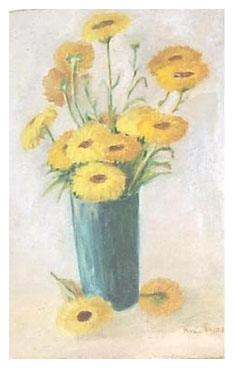 Trisha and Roger were greeted at Junior's door by his wife with the baby in her arms. She told her guests that Junior was in the side room painting with oil on
canvas. He did it for therapy on recommendation of the psychiatrist he was seeing. Roger looked uncomfortable. He'd said of psychology that it was a racket. Head
doctors coddled their patients and told them to blame everything on their parents. It was easy to exploit people like Junior who were habitually
dissatisfied. Trisha was allowed to sit on the sofa and hold the baby while Roger stepped out into the side room. Moments later Roger came back into the
living room holding a painting of trees. "Isn't this wonderful Trish, with the yellow leaves and the branches?"Trisha liked it, but she was confused with
Roger's enthusiasm. She'd never known him to like a piece of art without a price tag on it. He'd once told her that amateur art was worth less than the
sheet rock it hung on. Better to have a blank wall.
Trisha and Roger were greeted at Junior's door by his wife with the baby in her arms. She told her guests that Junior was in the side room painting with oil on
canvas. He did it for therapy on recommendation of the psychiatrist he was seeing. Roger looked uncomfortable. He'd said of psychology that it was a racket. Head
doctors coddled their patients and told them to blame everything on their parents. It was easy to exploit people like Junior who were habitually
dissatisfied. Trisha was allowed to sit on the sofa and hold the baby while Roger stepped out into the side room. Moments later Roger came back into the
living room holding a painting of trees. "Isn't this wonderful Trish, with the yellow leaves and the branches?"Trisha liked it, but she was confused with
Roger's enthusiasm. She'd never known him to like a piece of art without a price tag on it. He'd once told her that amateur art was worth less than the
sheet rock it hung on. Better to have a blank wall.
"Can I have this painting?"Roger asked Junior. Junior said of course, and Roger shook his son's hand as if concluding a business transaction. "I'm going to need a cardboard box to put this in so it doesn't get damaged in the car."He handed the painting back to Junior. "I'll get my keys, Son, and I'll be back with a box before you know I'm gone."Trisha made a noise, and Roger said, "don't bother getting up, honey. Enjoy the baby and relax."He was out the door before anyone else moved. Junior's wife made a casserole for dinner while Trisha and Junior talked and played with the baby, who was at the plastic key rattling age. They had dinner and waited for Roger. He came back two hours after he'd left. "I couldn't find the right box,"he said.
After his mother and father drove off to their hotel together, Junior put the painting with the yellow leaves back in the side room. In time the leaves outside the house turned as yellow as those within.
I could broad jump the length of my body at the age of twelve. I'd measure it out and marvel at my progress. My father told me go out for track like it was an imperative. I didn't do too well in football; I was humiliated with bench warming on cold Pennsylvania nights. I remember the harsh field lights and the smell of stale popcorn. They always sold the kind that came already popped in giant bags. You'd get a scoop of it in a little red and white sack or a bag of nuts or a box of Cracker Jack. That was if your dad bought it for you. Mine didn't. He made me go out for sports. When I gave up bench sitting, Dad yelled at me for being a quitter and a loser. I had to try out for the track team, if only to get him to shut up for awhile.
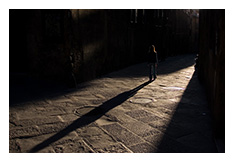 Other boys my age could broad jump a foot and a half farther than me. I was almost okay with the baton race, but I sucked at everything else. I
decided not to pursue track. This time I was a weakling and a girl and nobody would ever like me. That's what Dad said. I read some more science
fiction books and daydreamed. Then I was bad for daydreaming. I was bad for not believing in his Mormonism. I was bad for not excelling at sports. I
was bad for about anything I could think of, and I just wished I could die. But I could broad jump my height. Theoretically, if the sun was just
right, I could jump the length of my shadow. But the sun wasn't ever right, and I couldn't bridge the darkness that I cast on the Earth.
Other boys my age could broad jump a foot and a half farther than me. I was almost okay with the baton race, but I sucked at everything else. I
decided not to pursue track. This time I was a weakling and a girl and nobody would ever like me. That's what Dad said. I read some more science
fiction books and daydreamed. Then I was bad for daydreaming. I was bad for not believing in his Mormonism. I was bad for not excelling at sports. I
was bad for about anything I could think of, and I just wished I could die. But I could broad jump my height. Theoretically, if the sun was just
right, I could jump the length of my shadow. But the sun wasn't ever right, and I couldn't bridge the darkness that I cast on the Earth.
"He doesn't like to pass the sacrament,"my father said of me. By the tone of his voice you'd think he meant that I hated puppies and Jesus. Well, I kinda did hate puppies and Jesus, to tell you the truth. The one slobbers and shits all over the place, and the other grows up to be a dog. I had enough problems with people that I didn't need the extra burden of animals and gods. "You're not a dog lover,"they said of me, and I agreed. As for God, I'd like to see that fucker jump the length of his shadow.
Stacey still had dishes to do. The kids had been in bed for a half hour and she was just getting started with the pots. There were two--one for the pasta and one for the sauce. Tyler had eaten with her and the children, and then he'd taken off at nine for home teaching, leaving her to put the kids to bed on her own. Sometimes it seemed like he was just looking for reasons to get away from his family. But the bishop had counseled her not to be selfish. Every priesthood man had God's work to do. Temple marriage was for time and eternity. A spouse could choose to be supportive or contentious. The bishop had been chosen of God and held authority over all ward members. Stacey cried and apologized to him. She wanted to be a better saint, but it wasn't like regular work. You couldn't put your feelings in the dishwasher and rinse them clean.
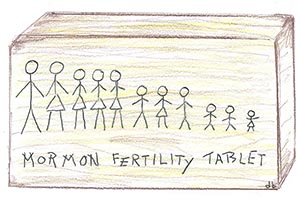 The bishop had a chunk of wood on his desk. It was illustrated with a long row of stick figures, and it was labeled "Mormon Fertility Tablet."She
found it disturbing somehow. "A non member acquaintance of mine made that for me,"said the bishop, "and it amuses me, because he really caught the
essence of who we are. We are people who love children and consecrate our lives to raising them in the gospel. We take care of our women, too. Let us
take care of you." His brow wrinkled with concern. To Stacey, the wood block and its figures looked like a warning sign. Watch for falling hopes, it
said. Abandon your individuality. The bishop knew she didn't want more children. And Tyler had complained about it more than once. "It's inspiring,
isn't?"the bishop asked. "Um,"said Stacey, "I have housework to do at home."She wished that she'd never have to talk to that man again.
The bishop had a chunk of wood on his desk. It was illustrated with a long row of stick figures, and it was labeled "Mormon Fertility Tablet."She
found it disturbing somehow. "A non member acquaintance of mine made that for me,"said the bishop, "and it amuses me, because he really caught the
essence of who we are. We are people who love children and consecrate our lives to raising them in the gospel. We take care of our women, too. Let us
take care of you." His brow wrinkled with concern. To Stacey, the wood block and its figures looked like a warning sign. Watch for falling hopes, it
said. Abandon your individuality. The bishop knew she didn't want more children. And Tyler had complained about it more than once. "It's inspiring,
isn't?"the bishop asked. "Um,"said Stacey, "I have housework to do at home."She wished that she'd never have to talk to that man again.
It was just after she'd finished the dishes that she heard the first noise. It sounded like someone trying the front door knob in an attempt to get into the house. She went to get the fire poker, and approached the front door armed. The noises had stopped. Before she could put the poker back, she heard someone at one of the windows. There was a shadow that moved across the pane, and it had the shape of a man. His head appeared to be hooded--she couldn't see his face. She got her cell and called Tyler. "There's someone trying to get in the house,"she said, "a man."Her husband told her to call the police, and that he was on his way home. "I don't want to hang up on you,"said Stacey, "I need your voice now. What should I do?"Tyler told her to check all the windows and doors to make sure the house was secured. Then the lights went out, plunging the house into inky darkness. "Find a place to hide,"said Tyler, "I'll be home soon."
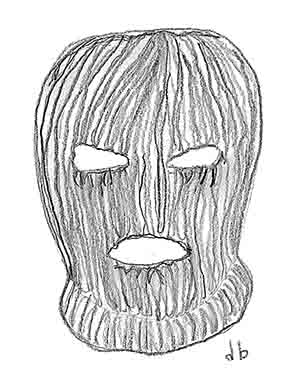 Stacey heard the deadbolt in the back door clicking. Did the intruder have a key? The back door had a different lock from the front. "Tyler,"she
said, "he's getting in!"Tyler said, "hide in the basement, I'm almost there."Stacey felt her way down the basement steps in the dark. "He must have
found the breaker box and shut down the power,"said Tyler. "I think there's a flashlight with the food storage--on one of the shelves. Stacey used
the light from her phone to look at the shelves. She didn't see a flashlight, but she heard the door to the basement stairs open behind her.The steps
creaked as the intruder descended. There was a click and then a spot of light. He had a flashlight, and Stacey told Tyler on the phone. "I'm almost
home,"said Tyler, "stay low."Stacey crawled around to the backside of the last shelf row. She could hear footsteps approaching, and there was
incrementally more and more light from the flashlight probing among the shelves, cans, and boxes as it drew near. It seemed like time had stretched
out and her terror would go on forever. She turned off her phone so that its light wouldn't be seen.
Stacey heard the deadbolt in the back door clicking. Did the intruder have a key? The back door had a different lock from the front. "Tyler,"she
said, "he's getting in!"Tyler said, "hide in the basement, I'm almost there."Stacey felt her way down the basement steps in the dark. "He must have
found the breaker box and shut down the power,"said Tyler. "I think there's a flashlight with the food storage--on one of the shelves. Stacey used
the light from her phone to look at the shelves. She didn't see a flashlight, but she heard the door to the basement stairs open behind her.The steps
creaked as the intruder descended. There was a click and then a spot of light. He had a flashlight, and Stacey told Tyler on the phone. "I'm almost
home,"said Tyler, "stay low."Stacey crawled around to the backside of the last shelf row. She could hear footsteps approaching, and there was
incrementally more and more light from the flashlight probing among the shelves, cans, and boxes as it drew near. It seemed like time had stretched
out and her terror would go on forever. She turned off her phone so that its light wouldn't be seen.
The footsteps increased in volume, and she could hear the crunching of the grit on the concrete floor under the man's shoes. She crouched, gripping the fire poker in one shaky hand. She'd never been this frightened, and she wondered if she'd have the nerve to use her weapon. Then she thought of her kids, and a rage ran through her. Nobody was going to take their mother from them. She stood up as the man came around the last corner and swung hard at his head. He staggered back, and she struck him again and again, even after he was down. When he stopped moving, she grabbed his flashlight and turned it on him. There was a ski mask over his head, and she hesitantly pulled it back to reveal the bishop's face. The fertility block was on the floor next to his left hand. She put one hand over her mouth and heard a faint tone. At first she thought it was her own sobs, but it was muffled. The bishop's cell was ringing in his pocket. She searched him and found it. When she clicked it on talk, she heard a voice she recognized. It was Tyler's. "Did you finish her yet?"Tyler asked. Stacey held back a scream. There wasn't time for that. She had to get the kids into the SUV and fast.
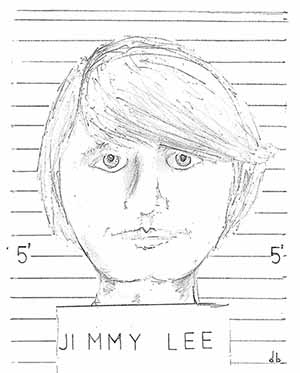 Phred called me Friday night and said to meet him at Jimmy Lee's in Veneta. I'd never met Jimmy Lee, as he'd been expelled from school before
I'd moved in. I'd got out of the boy's ranch, and my family had moved to Elmira, a tiny town in western Oregon next door to Veneta, a slightly
less tiny town. My father had been hired as the superintendent of Elmira school district. Jimmy Lee was to stop by my house and drive me to
Veneta. He had a Camaro with a bad paint job. I got in out front of my house. Dad wasn't home, and Mom wasn't interested, so I drove off with
a stranger headed to who knows what. A lot of my weekends started like that when I was sixteen.
Phred called me Friday night and said to meet him at Jimmy Lee's in Veneta. I'd never met Jimmy Lee, as he'd been expelled from school before
I'd moved in. I'd got out of the boy's ranch, and my family had moved to Elmira, a tiny town in western Oregon next door to Veneta, a slightly
less tiny town. My father had been hired as the superintendent of Elmira school district. Jimmy Lee was to stop by my house and drive me to
Veneta. He had a Camaro with a bad paint job. I got in out front of my house. Dad wasn't home, and Mom wasn't interested, so I drove off with
a stranger headed to who knows what. A lot of my weekends started like that when I was sixteen.
Jimmy Lee shoved a Creedence tape into the dash deck. The reverberant chords of Green River filled the Camaro's cab as we sped down the county road to Veneta. "Best fucking band ever,"said Jimmy Lee. I had to admit those boys from Berkeley were, at the least, ubiquitous. They got tons of radio play. Jimmy Lee had the same haircut as John Fogerty, that thick pageboy shag. "Look what I got in the back seat,"he said. I saw a paper bag there and peeked inside. It contained a bottle of Boone's Farm Strawberry Hill wine with an 99 cent price sticker on it. "I carried the paper bag into the liquor store in Junction City, and I just jammed the bottle in."I thought it was cool he didn't get busted. "Oh, I heard some yelling behind me when I ran to my car,"said Jimmy Lee, "but I didn't look back. I hope they didn't see my license plate."
When we passed by the high school, Jimmy Lee said, "they expelled me last year like it was a punishment to get thrown out of that toilet."I nodded. "Yeah,: I said, I hate that place."My only consolation was that I wouldn't have to go back to school until Monday. But you know what they say about the best laid consolations. Something ironic is what they probably say. People talk shit. When we got to Veneta, Jimmy Lee turned off the county road, and we were on gravel. The unpaved road took us to an old farmhouse with a small yard. Probably the acreage had been sold off, as the old house was surrounded with newer homes. Jimmy Lee drove around back and parked us by a little guest house that was painted white like the main house. The paint was peeling back from weather on both buildings.
Phred and Bo were already in the guest house. It was like a hippie den in there. You had to wave your arms to walk through a curtain of plastic beads and enter the main room. I could see an open door with a sink and a toilet beyond it, but there was no kitchen. A turntable and receiver sat on a long, low stand made of knotty pine, and the walls were papered with rock and roll posters. Several of the posters were of Creedence Clearwater. A Hendrix record was on the turntable, and the speakers were turned down low. Phred said he was trying to break Bo in to the music. "It don't sound right,"said Bo, "like the guitar is sometimes dragging and sometimes fast. I don't get it."Phred told him it was called tempo change, but Bo looked unconvinced. Until recently, Bo had been an athlete at Elmira High. When he'd got into a shoving match with the coach, he was banned from sports for a year. This caused him to drop to the bottom of the pecking order, a collection of stoneys like Phred and me. We also had in our lowly ranks the dysfunctional smart kids called geeks. Cowboys were above us, and academic types were aloof to the cowboys. So you can imagine where the wrath of the cowboys went. I had a couple of bruises.
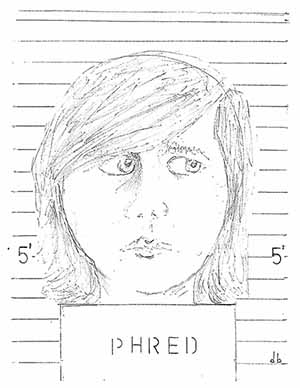 Bo wanted to join us. "I will grow out my hair,"he said, "my old man can eat shit he don't like it."Jimmy Lee laughed. He was done with it
all, having been permanently expelled. But Bo had a lot of patches to get through. He still hated and feared the "queers,"a mythological group of
secret homosexuals who were plotting to take down our civilization. "They hate it,"he said, "because of how it treats them."He'd also have to
pick up a sense of irony if he wanted a long run with us undesirables. Jimmy Lee held up the bottle of Boone's Farm, "Look what I got,"he said, "why
don't we commence to chooglin'."Bo wanted to know did chooglin' mean drinking, but we had to explain that the word was actually a mystery. One
could either keep on chooglin,' or one could choogle on down to New Orleans. The way John Fogerty sang it, it seemed like something pleasant either
way. Jimmy Lee rounded up four red beer cups and a corkscrew, which he didn't need, as the bottle had a screw off metal cap.
Bo wanted to join us. "I will grow out my hair,"he said, "my old man can eat shit he don't like it."Jimmy Lee laughed. He was done with it
all, having been permanently expelled. But Bo had a lot of patches to get through. He still hated and feared the "queers,"a mythological group of
secret homosexuals who were plotting to take down our civilization. "They hate it,"he said, "because of how it treats them."He'd also have to
pick up a sense of irony if he wanted a long run with us undesirables. Jimmy Lee held up the bottle of Boone's Farm, "Look what I got,"he said, "why
don't we commence to chooglin'."Bo wanted to know did chooglin' mean drinking, but we had to explain that the word was actually a mystery. One
could either keep on chooglin,' or one could choogle on down to New Orleans. The way John Fogerty sang it, it seemed like something pleasant either
way. Jimmy Lee rounded up four red beer cups and a corkscrew, which he didn't need, as the bottle had a screw off metal cap.
Jimmy Lee took off the Hendrix record and replaced it with a Creedence album. The hook from Born On the Bayou kicked in, jangling majestically through the room. We drank. The cups were refilled and the bottle was almost empty. I was feeling the slightest of buzzes--a cup of coffee could shred it for sure. "Shit,"said Jimmy Lee, "we're about outta wine."Bo had an idea. "We could go out for a drive."Jimmy Lee told him no way, because the Camaro was almost on empty. "We could go to the pumpkin patch,"said Bo. Jimmy Lee wanted to know what the hell for, this early in the year. There wouldn't be any pumpkins there. "Billy leaves his tractor out there unattended,"said Bo, "with gas in the tank."Jimmy Lee said to wait a minute while he got a hose and bucket for siphoning, then we'd go.
The pumpkin patch was off the west side of town, and it was all dark when we pulled in. The sign over the entrance couldn't be read in the dark, but I'd seen it before. It said: Billy Sparkle's Pumkin Patch--Biggest in the try county area. Bo and Jimmy Lee slipped out of the car and headed for the tractor with the hose and bucket. I was going to stay in the car, but the Camaro's back seat had no legroom, and my shins were cramping. Phred and I got out to stretch. I saw Bo leaning over to put the hose end in his mouth. Then there was some coughing, and Jimmy Lee came back to the car with a pail full of gas. Most of the gas went into the car all right, though some spilled and I could smell it on the ground. Bo came back wiping at his mouth. "Fuckin' gas tastes like ass,"he said. "It was my idea, Why did I have to be the escape goat?"Phred sighed. Bo said, "what's your problem, P.H. Red? I bet I know something you don't know."Phred doubted it. "I know where we can get some money to keep our party going,"said Bo. I wondered how this guy who spoke his primary language like it was his second had assumed leadership of our crew.
"The high school,"said Bo, "is easy to get into. A crow bar will pop the gym door. From there we go to the Coke machine and pry it open."I strenuously objected. "That sounds like a bust,"I said. Bo waved at me with a wave that wasn't a greeting. "We'll be in and out of there before anyone knows anything,"he said, "so don't be a spoiler like your old man."Jimmy Lee laughed and said, "Bags, I just realized your dad's the guy everyone in town wants to hang. I heard they hate him at the high school. Everyone who works with him."I had to agree my father was widely hated. I didn't like him much myself. "Isn't he Mormon?"Jimmy Lee asked. "Moron,"said Bo, "is what I hear."I said yes, he was fucker, all right. But that didn't mean I was wrong about breaking into the high school on a Friday night. A couple of kids had been caught doing it before. But no one cared for my opinion, not even Phred. They were thinking about piles of coins spilling out of a vending machine like a Vegas jackpot.
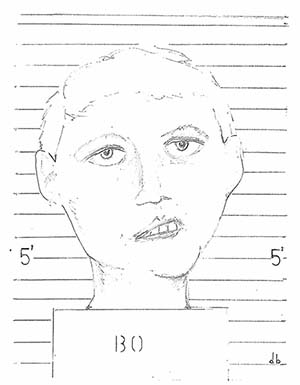 "Willie and the Poor Boys"was playing in the Camaros' tape deck at a low volume as we rolled up to the high school with the headlights off. "They
got the name Clearwater from an ad for Olympia beer,"said Jimmy Lee, reaching to pull the Creedence tape out of the dash. I remembered Olympia beer
from La Grande a couple of years earlier. If you peeled the label off the bottle, you'd see one, two, three, or four glue dots on the back of the
paper. Four dots were rare, and the local custom was to have a girl sign her name on a four dot label. This meant that she was ready to go all the
way with you. It was like a rain check for sex. A girl had signed one for me, but the two of us weren't ready for the big deed. The sleeping bag was
too tight anyway. The outside corner of the gymnasium loomed in front of the Camaro like a huge tombstone. I didn't want to get out of the car. "Come
on, Bags,"said Jimmy Lee, "we're going in."
"Willie and the Poor Boys"was playing in the Camaros' tape deck at a low volume as we rolled up to the high school with the headlights off. "They
got the name Clearwater from an ad for Olympia beer,"said Jimmy Lee, reaching to pull the Creedence tape out of the dash. I remembered Olympia beer
from La Grande a couple of years earlier. If you peeled the label off the bottle, you'd see one, two, three, or four glue dots on the back of the
paper. Four dots were rare, and the local custom was to have a girl sign her name on a four dot label. This meant that she was ready to go all the
way with you. It was like a rain check for sex. A girl had signed one for me, but the two of us weren't ready for the big deed. The sleeping bag was
too tight anyway. The outside corner of the gymnasium loomed in front of the Camaro like a huge tombstone. I didn't want to get out of the car. "Come
on, Bags,"said Jimmy Lee, "we're going in."
I reluctantly stepped out of the car. There was no light anywhere except for moonlight. I could see Phred and Bo working at a side door to the gym. When it popped open, a dim light peeped out through the door gap. There were low powered exit lights on within, and I was seeing the light from the one mounted over the door. Jimmy Lee and I followed Phred and Bo in. We moved quietly until we started crossing the waxed hardwood floor of the basketball court. Our sneakers squeaked like we were having a pickup game, and I was afraid someone would hear. "Let's make this quick,"I said, "and get out of here."Bo laughed. "Are you paranoid from smoking too much hootch?"he asked. I said I'd never been more sober. "We barely had enough wine for a communion,"said Phred, "we need money for weed or something."When we got to the Coke machine, Bo went at it with Jimmy Lee's crow bar, and the front panel banged open. There were coin canisters in there, and the nickel and dime holders broke open easily. The quarter container was steel jacketed and would not break, no matter how hard it was hit. Phred stuffed his pockets with coins while I stood nervously by a door that opened to the school's main walkway. If anything happened, I would push through the door and run down the walkway to the woods behind the school. I knew the trails in there and was confident I could melt into the dense vegetation.
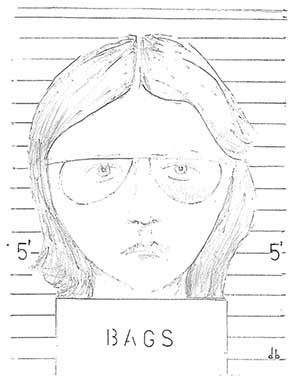 Bo had wandered back into the gym, perhaps moved by memories of his truncated athletic career, so he was first to see them coming. "Hogs!"he yelled,
and we saw a flash of blue light from a police cruiser outside. I pushed through my escape door with Phred right behind me. The cops would run into
Bo and then Jimmy Lee first, I thought, so we had a chance. I ran down the pitch dark breezeway, going by feel. I had walked there hundreds of times
dodging bullies and spitwads. Running it blind was easy. Phred was making a lot of racket with the jingle of coins in his pockets. I figured I'd
split from him once we got into the woods, because you could hear him from a quarter mile away. We got to the science wing, which was the last
building before freedom, and I thought we were going to make it for a brief moment. But a cop jumped out from behind the corner and turned his Mag
light on us. I could see his pistol barrel pointing at my forehead. "Freeze!"he yelled unnecessarily. I was too rigid with fear to move. Busted and
disgusted, we used to say back in La Grande.
Bo had wandered back into the gym, perhaps moved by memories of his truncated athletic career, so he was first to see them coming. "Hogs!"he yelled,
and we saw a flash of blue light from a police cruiser outside. I pushed through my escape door with Phred right behind me. The cops would run into
Bo and then Jimmy Lee first, I thought, so we had a chance. I ran down the pitch dark breezeway, going by feel. I had walked there hundreds of times
dodging bullies and spitwads. Running it blind was easy. Phred was making a lot of racket with the jingle of coins in his pockets. I figured I'd
split from him once we got into the woods, because you could hear him from a quarter mile away. We got to the science wing, which was the last
building before freedom, and I thought we were going to make it for a brief moment. But a cop jumped out from behind the corner and turned his Mag
light on us. I could see his pistol barrel pointing at my forehead. "Freeze!"he yelled unnecessarily. I was too rigid with fear to move. Busted and
disgusted, we used to say back in La Grande.
The cop started barking orders, but I already knew the drill. Palms against the wall overhead, legs back and eighteen inches apart at the ankles. This way the cop could easily go through your pockets, which he did. All I had was a key and a half roll of lifesavers. Phred had dozens and dozens of coins that the cop piled up on a nearby trash can lid. "Boy,"he said to Phred, "Watcha doin' with all these dimes and nickels?"Phred turned his head and said, "I couldn't get to the quarters."
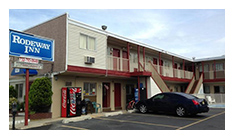 It was called the Heritage Inn when I first started working there. Some months later the owners of the long two storey building bought a franchise
from the Rodeway Inn corporation, a company with budget grade lodgings all over the country. The building formed a square around a parking lot and
swimming pool. My job was keeping it all clean except for the rooms, which were done by the maids. They had a laundry room downstairs
round the back for bedding and towels. All that stuff was white, other than the bed covers, and we went through truckloads of bleach. I took
my orders from whoever was at the front desk signing customers in. Richard was my favorite. He was about forty and short with advanced hair
retreat. Though he did have a good bushy mustache of orange hue. He wore thick glasses and button up short sleeve shirts.
It was called the Heritage Inn when I first started working there. Some months later the owners of the long two storey building bought a franchise
from the Rodeway Inn corporation, a company with budget grade lodgings all over the country. The building formed a square around a parking lot and
swimming pool. My job was keeping it all clean except for the rooms, which were done by the maids. They had a laundry room downstairs
round the back for bedding and towels. All that stuff was white, other than the bed covers, and we went through truckloads of bleach. I took
my orders from whoever was at the front desk signing customers in. Richard was my favorite. He was about forty and short with advanced hair
retreat. Though he did have a good bushy mustache of orange hue. He wore thick glasses and button up short sleeve shirts.
 I would take lunch breaks with Richard. We watched The Andy Griffith Show on a small black and white television and laughed at the antics of
Barney and Floyd. "You know those nervous tics of Floyd's remind me of some of the guys I used to watch at the mental health home in Napa,"said
Richard. He'd been an orderly there. "One guy named Stokes was really good at disappearing. He would hide in a laundry cart under the clothes for
two hours at a time. Once I was working in the kitchen, which is a secured area, and Stokes just walked out of the pantry like he'd always been in
there. He must've waited forty minutes after I'd come in to surprise me. I don't know how he even got in there."Then Richard showed me how Stokes
walked, belly out and neck bent forward. He shuffled his feet on the lobby carpet, and I cracked up. Lunches were good at the Rodeway. We even had
a restaurant next door that served fresh cooked waffles. They had maple syrup, blueberry, strawberry and grape.
I would take lunch breaks with Richard. We watched The Andy Griffith Show on a small black and white television and laughed at the antics of
Barney and Floyd. "You know those nervous tics of Floyd's remind me of some of the guys I used to watch at the mental health home in Napa,"said
Richard. He'd been an orderly there. "One guy named Stokes was really good at disappearing. He would hide in a laundry cart under the clothes for
two hours at a time. Once I was working in the kitchen, which is a secured area, and Stokes just walked out of the pantry like he'd always been in
there. He must've waited forty minutes after I'd come in to surprise me. I don't know how he even got in there."Then Richard showed me how Stokes
walked, belly out and neck bent forward. He shuffled his feet on the lobby carpet, and I cracked up. Lunches were good at the Rodeway. We even had
a restaurant next door that served fresh cooked waffles. They had maple syrup, blueberry, strawberry and grape.
Patti also worked the desk, and she was sweet. She was average height with black curly bangs and red lips, and she looked enough like Betty Page to turn your head. At twenty-five she seemed mature for me, though she was flirtatious. But she was married, and I was an eighteen-year-old virgin. I reckoned she was just kidding when she put her hand on my shoulder and looked into my eyes. She liked to keep me close and would frequently have me vacuum the carpet of the conference room adjoining the lobby. There was a large stone fireplace in between the two rooms, and one day Patti asked me to install a gaslog in it. "How do I do that?"I asked. She said, "read the instructions, we have tools for plumbing in the tool room. I know you can figure it out, Don."I blushed and went for the tools. It took less than two hours to get the gaslog in and test it. The pipes were easily bent, and the instructions showed me how to seal them at the joints to prevent a gas leak.
Our third regular desk host was Marla, a middle aged woman from the local Mormon ward my family attended. She was subject to depression and sensitive to the kind of pressure that the Mormons routinely inflict upon one another. I caught her weeping at the desk one day, and I asked if there was anything I could do. "No, she said,"it's just that I hate the judgment. I was playing tennis without my temple garments on under my skirt, and one of the sisters saw me. She went and told everyone in Relief Society that my morals are slipping, and I must have committed some kind of sin to be uncomfortable with the garments." I told Marla that I had already stopped attending at that chapel, and for a similar reason. My hair was shoulder length, and some of the sisters decided that I had to be a drug dealer. They all knew that I was employed at the motel, but somehow, in some fucked up Mormon way, they reasoned that only a drug dealer would wear his hair long. I spent my Sundays hanging with my friend Scott and my cousin Terry down by the creek. Terry would actually attend Sacrament meeting to get money from his father and later meet us at the creek for a smoke. "I wish I could quit that church,"said Marla. I wished she could too.
Zola was about sixty-five years old and had white hair of medium length. She filled in at the desk just for holidays and vacations. I told her that I lived on Zola Street nearby, and she said, "that street was named after me a dozen years back when it went in."Richard told me later that she'd been the girlfriend of the tract builder, who was married. He'd named a street after his girlfriend instead of his wife. This amused me, because my moralizing father had purchased a home on a street named after an adulteress. I imagined how his Mormon sensibilities would be shocked, but I never did tell him about it. He was almost never home anyway, and even when he was, he rarely ventured out to the garage where my brothers and I lived. It was like a gulag out there with no air and only a weak space heater for winters. Once I'd started working at the motel, Dad made me pay rent to sleep with the spiders and the food storage.
Of the housekeepers, Cindy was my favorite. She had a cute younger sister named Brianna who worked there, and the two of them rented a room from the lead housekeeper, Barbara. They all lived in a house by the old Roseville Hospital. Brianna had long blonde hair, but I preferred Cindy's medium length dirty blond hair with bangs. And Cindy was my age, more developed--she walked with a sway. If I happened to pass by a room she was working in I'd look in through the window. But only briefly, because I had no idea what to say to her. I'd heard from Richard that she was a party girl, and I assumed she wasn't a virgin. I was intimidated with the thought of intimacy with an experienced girl. Sometimes I watched her walking behind the railing in front of the rooms from the upper deck opposite. If only I could think of the right thing to say to her. I thought about asking Barbara, as she had the demeanor of a gentle grandmother, but I was afraid she'd judge me like my parents. Or cackle like my abrasive grandma, Donna, whose laugh sounded like two crows fighting over roadkill. After eighteen years of constant condemnation from the three of them, mother, father, and grandmother, my mind had absorbed and assumed their role. I didn't need them around to feel lousy about myself any more.
 After I'd worked at the motel awhile, I bought a Honda motorcycle. I'd saved up half the cost and borrowed the balance from my father. He charged
me interest. "Market rate,"he said, "there's no reason for you to get off any easier than the rest of us."I rode the bike on dirt trails with
Terry and Scott, who also had motorcycles. We'd ride out and smoke cigarettes and doobies by the creek. Terry was seventeen and Scott was
sixteen, so I would buy their cigarettes for them at the Kwik Stop. We'd take a rest stop in the creekside oak forest and smoke and talk
about girls. That's all we'd do is talk. I didn't know how I was ever going to get laid, the way my own head kept throwing out roadblocks. That
girl's too experienced. That one's too aggressive. That one's too virginal, we'll both be confused. I had more excuses than I had balls. I kept
seeing the Holy Ghost watching me and recording my sins. I'd been fully indoctrinated into the Mormon chastity cult, and I just couldn't seem to
shake loose of it.
After I'd worked at the motel awhile, I bought a Honda motorcycle. I'd saved up half the cost and borrowed the balance from my father. He charged
me interest. "Market rate,"he said, "there's no reason for you to get off any easier than the rest of us."I rode the bike on dirt trails with
Terry and Scott, who also had motorcycles. We'd ride out and smoke cigarettes and doobies by the creek. Terry was seventeen and Scott was
sixteen, so I would buy their cigarettes for them at the Kwik Stop. We'd take a rest stop in the creekside oak forest and smoke and talk
about girls. That's all we'd do is talk. I didn't know how I was ever going to get laid, the way my own head kept throwing out roadblocks. That
girl's too experienced. That one's too aggressive. That one's too virginal, we'll both be confused. I had more excuses than I had balls. I kept
seeing the Holy Ghost watching me and recording my sins. I'd been fully indoctrinated into the Mormon chastity cult, and I just couldn't seem to
shake loose of it.
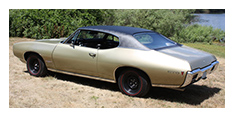 One thing I did realize was that if I was going to date I'd need a car. A motorcycle was no place for making out. When my Honda was paid off
I sold it and bought my sister's car, a 1968 GTO with metal green paint. It was real muscle car, but the first time I drove it, the motor bucked and shook like a cat trapped in a box. I asked my sister what was wrong with it. "How would I know?"She said, "take it to a mechanic."The valves were shot, and it cost me $250 dollars to get them fixed. My father chuckled at me. "Buyer beware,"he said. The mechanic who repaired the car was my sister's ex boyfriend. He said he felt bad for me, so he installed a FM radio converter gratis. I guess I felt bad for him too. Once I got the GTO running right, it was a hell of a fast and powerful car. It had automatic transmission, and even so it could burn rubber through all three forward speeds. I raced a couple of Mustangs off the line and beat them to the next traffic light. I took it to drive in movies with my pals and sometimes my brothers. The car was perfect for rooster tailing in gravel lots. I turned up a lot of dust and rocks with it.
One thing I did realize was that if I was going to date I'd need a car. A motorcycle was no place for making out. When my Honda was paid off
I sold it and bought my sister's car, a 1968 GTO with metal green paint. It was real muscle car, but the first time I drove it, the motor bucked and shook like a cat trapped in a box. I asked my sister what was wrong with it. "How would I know?"She said, "take it to a mechanic."The valves were shot, and it cost me $250 dollars to get them fixed. My father chuckled at me. "Buyer beware,"he said. The mechanic who repaired the car was my sister's ex boyfriend. He said he felt bad for me, so he installed a FM radio converter gratis. I guess I felt bad for him too. Once I got the GTO running right, it was a hell of a fast and powerful car. It had automatic transmission, and even so it could burn rubber through all three forward speeds. I raced a couple of Mustangs off the line and beat them to the next traffic light. I took it to drive in movies with my pals and sometimes my brothers. The car was perfect for rooster tailing in gravel lots. I turned up a lot of dust and rocks with it.
For a while we had an old wizened guy in a wheelchair who stayed at the Inn the first couple of days of every month, always in the room nearest the front lobby. He lived in an old folks home and hated it. His eyes had a tired look to them, like he'd seen too much, and I thought about how much shit I'd seen already. Multiply that by four or five. His pants were piss stained with cigarette pinholes near the crotch. He had random whiskers and even more random teeth. He liked me and had me wheel him around outside. I pushed him over to Kwik Stop so he could buy cigarettes and generic vodka. They wouldn't let him drink or smoke at the nursing home. "It's worse than death, young man,"he'd say. Then he would cough up phlegm all over his pinholed shirt. The last time he came in he didn't call for me, and Barbara went to check on him. She found him on the floor with blood and vomit all over the sheets. After the EMTs wheeled his lifeless body out Barbara asked could I take the sheets to the laundry room, because Cindy and Brianna were too traumatized to do it. I went and got the sheets. There was projectile blood and puke on the wall straight across from the bed. I tried to handle only the cleaner parts of the sheets when I bunched them up, but my hands were bloody and had to be scrubbed in the laundry basin. Professionals were called to steam clean the room. I kind of missed that guy. I missed being needed.
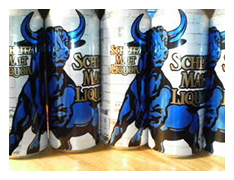 One Friday night Scott said we should try Schlitz malt liquor beer, because some kid at school said it packed a wallop. I'd never tried it, so I
figured, why not? I drove the GTO with Scott over to the motel. We filled an ice chest from the ice machine. I kind of felt guilty for taking the
ice, but Scott said, "Jesus, Don, you work here."That made sense to me. Then I drove us to a liquor store in Old Roseville where a lot of
alkies bought their juice. We had a shaggy guy in an Army field jacket buy two six packs and gave him two bucks extra for a small bottle of
generic vodka. The Schlitz had bulls on the cans. Scott said we should drive out to the Diamond Oaks woods, near where Terry lived. Terry was
playing high school basketball that night, or he would have been with us. I pulled the GTO onto a hard dirt path between big oak trees and
followed it in. My headlights swept back and forth over high weeds as we were going. I took it slow and stopped in an unlit grove. We couldn't
see any town lights from in there, but there was enough moonlight for us to stand beside the car and drink.
One Friday night Scott said we should try Schlitz malt liquor beer, because some kid at school said it packed a wallop. I'd never tried it, so I
figured, why not? I drove the GTO with Scott over to the motel. We filled an ice chest from the ice machine. I kind of felt guilty for taking the
ice, but Scott said, "Jesus, Don, you work here."That made sense to me. Then I drove us to a liquor store in Old Roseville where a lot of
alkies bought their juice. We had a shaggy guy in an Army field jacket buy two six packs and gave him two bucks extra for a small bottle of
generic vodka. The Schlitz had bulls on the cans. Scott said we should drive out to the Diamond Oaks woods, near where Terry lived. Terry was
playing high school basketball that night, or he would have been with us. I pulled the GTO onto a hard dirt path between big oak trees and
followed it in. My headlights swept back and forth over high weeds as we were going. I took it slow and stopped in an unlit grove. We couldn't
see any town lights from in there, but there was enough moonlight for us to stand beside the car and drink.
The Schlitz was heavier and foamier than the usual Budweiser, Terry's favorite. I kept having to fight the thick yeasty brew down through the first can, but the second went easier. I was leaning against the front fender burping, and Scott was at the rear fender doing the same. On the third can we were laughing at dumb jokes. "Terry told me,"said Scott, "a joke about Japs. A businessman went to Japan to play golf with a Japanese client. The night before the golf game the businessman hired a whore. And when he was doing her, she yelled, "machigatta ana!"Well, thought the businessman, I'm pretty hot stuff. The next day during the game, the Japanese client hit a hole in one. I must compliment him, thought the businessman, so he yelled, "machigatta ana!"The client turned to him and said, "what do you mean, wrong hole?"Schlitz honked up through my nose, and I bent forward with laughter. Terry told me the joke later, but it wasn't funny that time. Beer seems to stimulate the racist joke reflex.
When we were on our last Schlitz, Scott said he'd forgot to tell me about the next concert, He and I went to almost every rock concert at the Sacramento Memorial Auditorium, which was just twenty-five miles away in downtown Sac. The thing was, Scott was bringing a date. She was this cute girl from his class at Roseville High. Ted Nugent was coming, and she said she loved Nugent, so Scott asked her. She said yes. I needed to get a date, and the four of us would go together. Scott would help pay for the gas for my car. Please would I get a date, man? After a moment of terror, I thought of Cindy. This would be a good first thing to say to her. She was a cute girl and single. And I was a nervous pile of twitching tissue. I had to do it, said Scott, before tickets went on sale. I drove us home at a dizzying five miles an hour. Everything was blurry from the beer. We got there safely and I went into the garage and collapsed on my bed. I vomited for a good half hour into my metal trash can, which my mother threw out the next day. "It was disgusting so I tossed the whole can,"she said.
 Richard wanted me to go with him to a porn movie in Sacramento. He lived in the condos across the field that Scott and I used for smoking. Richard's condo was just two units from where Zin, a guy who occasionally bummed smokes from us, lived. They used to call him Zit, because he had fiery red acne all over his face. Later on his name was modified to Zin, so that kids could talk about him when he was present. He would approach us and say, "would you have a spare smoke for a dumbshit?"I didn't like being around him. It made me sad. But what can you say to a guy who lives with a disinterested mother and sniffs glue? Anyway, Richard drove his Pinto over to pick me up at my driveway. I was nervous getting on the freeway in that tin car, because there was a story every night on the news about a Pinto exploding when hit from behind. They'd put the gas tank right at the back of the little death trap. I kept looking back as we sped down the freeway. I wanted to see my immolation coming. Why do you keep looking back, "asked Richard, "do you think someone's following us? It's only an X rated movie."
Richard wanted me to go with him to a porn movie in Sacramento. He lived in the condos across the field that Scott and I used for smoking. Richard's condo was just two units from where Zin, a guy who occasionally bummed smokes from us, lived. They used to call him Zit, because he had fiery red acne all over his face. Later on his name was modified to Zin, so that kids could talk about him when he was present. He would approach us and say, "would you have a spare smoke for a dumbshit?"I didn't like being around him. It made me sad. But what can you say to a guy who lives with a disinterested mother and sniffs glue? Anyway, Richard drove his Pinto over to pick me up at my driveway. I was nervous getting on the freeway in that tin car, because there was a story every night on the news about a Pinto exploding when hit from behind. They'd put the gas tank right at the back of the little death trap. I kept looking back as we sped down the freeway. I wanted to see my immolation coming. Why do you keep looking back, "asked Richard, "do you think someone's following us? It's only an X rated movie."
We pulled off at the Auburn Road exit and went south into the part of north Sacramento that frightened my parents. Guys were standing on corners, and they were leaning into cars that stopped. I saw two black chicks with orange wigs talking to someone in a Cadillac. We parked next to the big block shaped building with the wide blue paint stripes and marquee sign out front: Pussycat Theatre. It was a real class joint with sticky floors and a really bad sound system. Men were seated singly here and there and heavily clothed for some reason. It was very warm outside. We saw an Italian soft core that had simulated sex, but the actresses were all gorgeous like swimsuit models. They were mostly in their birthday suits. I had a stiffie all the way through. "Isn't this great?"Richard whispered to me, "my wife doesn't know I'm here."That kind of bothered me. It sounded like something a man would say to his mistress.
 I was hosing off the sidewalk out front of the motel one day when Marla called me into the lobby. "There's some Mexican boys in the pool,"she said, "and one of them has a jack knife. I'm worried they'll hurt someone. Could you check it out?"I figured a jack knife probably meant they were small, so I walked out there without any trepidation. When I got to to the poolside, there was no one there, though the iron gate had been left open. It wouldn't do to have a toddler wander in there, so I closed the gate before going back in. Marla said she was relieved, but she still looked upset. "Are you okay?"I asked. And she said, "not really. Nobody in Relief Society will talk to me. It's like I'm a pariah now, just because I don't like wearing the garments. I told my husband I want to move to another ward, but he just said to talk to the bishop. I don't want to talk to that man. He creeps me out."I had no advice. I would have told her to quit the stupid church, but I knew her husband wouldn't let her. He had some kind of petty rank like quorum leader, and it was probably the best honor a used car salesman like him would ever receive. That's how they keep you in cults. They use your own ego against you by bestowing fake titles that imply responsibility but have none. Other than showing up and reading from a Salt Lake manual, you have no initiative.
I was hosing off the sidewalk out front of the motel one day when Marla called me into the lobby. "There's some Mexican boys in the pool,"she said, "and one of them has a jack knife. I'm worried they'll hurt someone. Could you check it out?"I figured a jack knife probably meant they were small, so I walked out there without any trepidation. When I got to to the poolside, there was no one there, though the iron gate had been left open. It wouldn't do to have a toddler wander in there, so I closed the gate before going back in. Marla said she was relieved, but she still looked upset. "Are you okay?"I asked. And she said, "not really. Nobody in Relief Society will talk to me. It's like I'm a pariah now, just because I don't like wearing the garments. I told my husband I want to move to another ward, but he just said to talk to the bishop. I don't want to talk to that man. He creeps me out."I had no advice. I would have told her to quit the stupid church, but I knew her husband wouldn't let her. He had some kind of petty rank like quorum leader, and it was probably the best honor a used car salesman like him would ever receive. That's how they keep you in cults. They use your own ego against you by bestowing fake titles that imply responsibility but have none. Other than showing up and reading from a Salt Lake manual, you have no initiative.
It was Friday, and Patti was on. I had made arrangements to get off early on account of Scott, Terry , and I having purchased acid the night before. We would all take our tabs at 11:00 am, as I would finish work at twelve. That would be about the right time for the acid to start kicking in. I also had some weed stashed behind my dresser in the garage. I dutifully ate my acid at the correct hour, but at twelve, Patti called me into the lobby. She was seated by the fireplace with the gaslog flaming away. "Sit here with me,"she said. I was getting wobbly. as were the walls. I sat down, and she put her hand on my knee. I had a raging stiffie before she pulled her hand back. Had she just tapped me, or had she grabbed at my leg? I had no sense of time. She talked to me for a while, but I had no idea about what. My ears weren't working right, and sounds were clipped and sometimes even going backwards. I saw a motorcycle slowly easing past the window. It was Terry with Scott on the seat behind him. I heard "hey, Don,"filter through the window. It was easier to understand than Patti's speech, and I realized that I could hear sounds better when they passed through glass. It was like the glass had become an amplifier. Patti went back to her desk after an unknown interlude, and I managed to leave work and get back to my garage bedroom. I was feeling kind of watery, like maybe I could see right through the pale and waxy flesh of my hands, when I entered the garage. Scott and Terry were there sitting on my bed and giggling. "I really need to smoke some weed to get my head together,"I said. "We smoked all your weed while you were at work,"said Terry. Scott laughed and said, "work."
 Of course I didn't ask Cindy out to the Nugent concert until the last day. I had to catch her alone, because she might say no, and I'd be humiliated in front of someone. I caught her alone in the laundry room and stammered my request. "If you don't want to,"I added. She said, "of course I do. I love Ted Nugent songs. I was as relieved as I was naive. I thought the hard part was over. Sometimes the worst part of being a wreck is not knowing it. Scott went to the box office early in the morning and got us four tickets in the tenth row on the floor. We'd be right in front of the stage. That night I woke up with a huge boner demanding attention. I tried to think about Cindy, but Patti's doll face kept popping into my thoughts. The garage was hot and I tossed around under my blanket until unconsciousness smothered me.
Of course I didn't ask Cindy out to the Nugent concert until the last day. I had to catch her alone, because she might say no, and I'd be humiliated in front of someone. I caught her alone in the laundry room and stammered my request. "If you don't want to,"I added. She said, "of course I do. I love Ted Nugent songs. I was as relieved as I was naive. I thought the hard part was over. Sometimes the worst part of being a wreck is not knowing it. Scott went to the box office early in the morning and got us four tickets in the tenth row on the floor. We'd be right in front of the stage. That night I woke up with a huge boner demanding attention. I tried to think about Cindy, but Patti's doll face kept popping into my thoughts. The garage was hot and I tossed around under my blanket until unconsciousness smothered me.
Our seats were so close that I could make out Ted Nugent's facial expressions, all of which were grimaces. One time he scrunched up his face during a guitar solo and looked like a rabid chipmunk with just the two front teeth exposed. He had a raccoon tail hanging off his leather belt. It appeared he was basically dressed in dead animals. Cindy was sitting next to me in skin tight jeans, yelling her head off. Her thighs looked great after a couple of joints, but I kept thinking of Pattie. I'd had a date with a girl four years earlier, and she wanted to get intimate, but I kept thinking of the older boy who rubbed me when I was twelve. He talked me into to playing strip poker with him, and it led to me lying naked on my back while he undressed and shoved his erection between my legs. I let him do it, because I was desperate for a friend--almost nobody at school would even talk to me. Now I was thinking about Patti, a married woman I couldn't possibly have. Why was my head always in the wrong place? Nugent kept turning up his amps until my ears were ringing painfully. Cindy had her hand on my leg, but I wasn't feeling it.
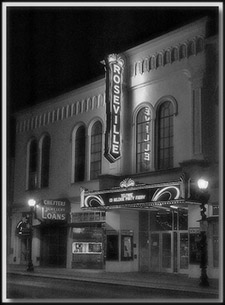 When the show was over, I drove Scott and his date home. Cindy wanted to drive around in old Roseville before I took her back to Barbara's house. We
drove past the liquor store where Scott and I had got the Schlitz malt liquor. She talked to me, but I wasn't hearing her. What should I do? I was
thinking. What could I do? She leaned against me and I felt nothing. Other than anxiety. My father said he had the Holy Ghost talking in his head
all the time and giving him guidance. I had an unholy ghost in my head giving me grief. "Why don't you kiss her?"It said, "are you queer? That's it.
You're queer. That Pennsylvania boy fucked you, and you liked it. Queer."My hands white-knuckled the steering wheel. I wasn't a fucking queer. I
liked looking at photos of naked women, never men. Cindy asked me, "your arms are trembling. What's wrong?"I tried to relax. "Nothing,"I
said, "never mind."Cindy put her hand on my arm. She said, "If you need help..."I shook my head twice. "No,"I said, "I just need to get home."I took her to Barbara's and dropped her off. When I parked by my garage I sat there and hit the steering wheel hard with my palms. My ears were still ringing from the Nugent show.
When the show was over, I drove Scott and his date home. Cindy wanted to drive around in old Roseville before I took her back to Barbara's house. We
drove past the liquor store where Scott and I had got the Schlitz malt liquor. She talked to me, but I wasn't hearing her. What should I do? I was
thinking. What could I do? She leaned against me and I felt nothing. Other than anxiety. My father said he had the Holy Ghost talking in his head
all the time and giving him guidance. I had an unholy ghost in my head giving me grief. "Why don't you kiss her?"It said, "are you queer? That's it.
You're queer. That Pennsylvania boy fucked you, and you liked it. Queer."My hands white-knuckled the steering wheel. I wasn't a fucking queer. I
liked looking at photos of naked women, never men. Cindy asked me, "your arms are trembling. What's wrong?"I tried to relax. "Nothing,"I
said, "never mind."Cindy put her hand on my arm. She said, "If you need help..."I shook my head twice. "No,"I said, "I just need to get home."I took her to Barbara's and dropped her off. When I parked by my garage I sat there and hit the steering wheel hard with my palms. My ears were still ringing from the Nugent show.
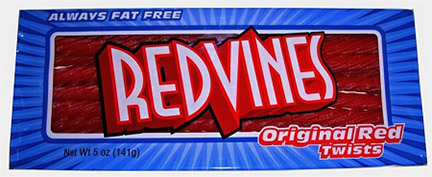 I was getting a bar of red licorice from the vending machine when Reed came into the break room. The thing about red licorice is that you want it
to be fresh, because that way it's pliant and flavorful. When it's no longer fresh it hardens and loses some of its sweetness. "You still thinking
about moving up the hill?"Reed asked. He lived in Baxter, which was way the hell up there at five thousand feet. They got snow every year. "Yeah,"I said, "I'm still looking."Reed told me had had a friend with a single wide mobile home for rent in the woods outside of Alta--a tiny town near Baxter. "It's on the property with his new house,"said Reed, "and he's only asking $250 a month."I was as tempted by the low price as much as I was by the location. Nancy and Kyle and I could live in the woods, and I'd have plenty of money for the cost of commuting the forty miles to work. I got the guy's information from Reed and called to set up an appointment.
I was getting a bar of red licorice from the vending machine when Reed came into the break room. The thing about red licorice is that you want it
to be fresh, because that way it's pliant and flavorful. When it's no longer fresh it hardens and loses some of its sweetness. "You still thinking
about moving up the hill?"Reed asked. He lived in Baxter, which was way the hell up there at five thousand feet. They got snow every year. "Yeah,"I said, "I'm still looking."Reed told me had had a friend with a single wide mobile home for rent in the woods outside of Alta--a tiny town near Baxter. "It's on the property with his new house,"said Reed, "and he's only asking $250 a month."I was as tempted by the low price as much as I was by the location. Nancy and Kyle and I could live in the woods, and I'd have plenty of money for the cost of commuting the forty miles to work. I got the guy's information from Reed and called to set up an appointment.
Just before Alta on I-80 I spied the unmarked turnoff I'd been told about. The owner, Dave, said he'd meet us at a gate on the dirt road off the freeway. The gate was actually a thick metal cable across the road at waist height. It had a sign: Residents Only. This was the mountain version of a gated community. Dave was standing outside his Jeep awaiting our arrival. He used a key to unlock the single padlock that secured the cable. We drove through, and Dave locked the gate behind us. We followed his Jeep up a hill crowded with tall pines. Both of our vehicles trailed dust clouds. After steering around the curves for a quarter mile or so, we pulled up to a two storey log house that was nestled in the hillside and shaded by high tree boughs. We parked, and Dave invited us in.
The house was spacious, and some of the walls were still unfinished. The living room had a grand fireplace made of river rock. "I have to get the key for the trailer,"said Dave. While Nancy and Kyle and I waited for him, an eleven or twelve-year-old boy wandered into the room. His hair was light brown, and he was short for his years. "What's your name?"He asked me. I told him, and he said, "I shall call you Joseph."Then he pointed at Nancy and said, "she's Mary. Joseph and Mary, how do you do?"Kyle was hiding behind my legs, perhaps hoping to avoid a foreign moniker. "Yes, Joseph and Mary,"said the boy, "my old and dear friends."Dave came back into the room. "I see you've met my son, Gene,"he said. "Don't worry about him. He's nice and bright, but he's goofy."Gene nodded in affirmation. He was good with all that was said of him.
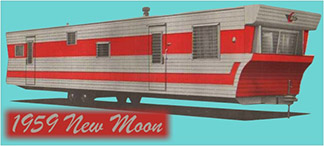 We all walked out to the trailer and were pestered by tiny flies that swarmed around our eyes. "Those come out every year at this time,"Dave said of the flies, "we call them eye flies, because they always go for your eyes."Nancy and Kyle were swatting at the air in front of their faces. The trailer was mounted on a cinder block foundation and had a black stove pipe protruding from its metal roof. Inside, the living room was tiny, with the woodstove in the corner and a hot water heater attached to it. "You heat your own water with wood,"said Dave, "you should know that you'll go through nine cords of wood a year."I could see there were other expenses that took the shine off the low rent. And what would the dirt road look like in the rain and snow? But the real deal killer was the bathroom. The floor had collapsed. "We can figure something out for that,"said Dave. "This place is a dump,"said Kyle, with all the frankness of a five-year-old. They don't mince words at that age. I knew we weren't going to live in that thing, so I politely said we'd think about it. Adults know how to be evasive. Gene waved at us as we drove off. "Goodbye Joseph and Mary, and little Jesus too."Kyle didn't look back.
We all walked out to the trailer and were pestered by tiny flies that swarmed around our eyes. "Those come out every year at this time,"Dave said of the flies, "we call them eye flies, because they always go for your eyes."Nancy and Kyle were swatting at the air in front of their faces. The trailer was mounted on a cinder block foundation and had a black stove pipe protruding from its metal roof. Inside, the living room was tiny, with the woodstove in the corner and a hot water heater attached to it. "You heat your own water with wood,"said Dave, "you should know that you'll go through nine cords of wood a year."I could see there were other expenses that took the shine off the low rent. And what would the dirt road look like in the rain and snow? But the real deal killer was the bathroom. The floor had collapsed. "We can figure something out for that,"said Dave. "This place is a dump,"said Kyle, with all the frankness of a five-year-old. They don't mince words at that age. I knew we weren't going to live in that thing, so I politely said we'd think about it. Adults know how to be evasive. Gene waved at us as we drove off. "Goodbye Joseph and Mary, and little Jesus too."Kyle didn't look back.
Reed saw me sitting in the break room. "No red licorice today?"he asked. I told him the last pack was stale, and I didn't feel like risking the buck. He asked me had I seen Dave's trailer. "Yes,"I said, "and why didn't you tell me it was a mess inside?"Reed thumbed the suspenders of his overalls. "I haven't seen it since the bear broke in,"he said, "I guess it did some damage?"I nodded. "Damn right it did, Reed. Part of the floor was torn up."Reed sat on a chair that groaned in protest under the load. "Maybe it could be fixed,"he said. I got up and put four quarters into the vending machine. "I'd rather take my chances with the licorice,"I said. I pushed a button and hoped for the best.
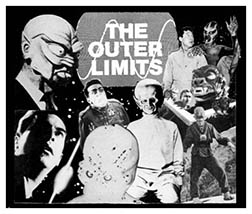 Long ago, when there were frogs swimming in the creeks and possum hanging from the trees, my cousin Terry lived in a ranch house with his family near
the town of Ophir. The house was set in wooded acreage that Terry and I wandered through on long walks with my two brothers. Terry's father, Ken, had
sold my father the house we lived in in nearby Citrus Heights. It was a small and cramped house, and our family was larger than Terry's. He had his
own room. He had a BB gun and a toy cowboys and Indians set with a western fort and teepees. He even had a fake shaving kit with plastic razors and a
bottle of blue aftershave lotion. His favorite indoor activities were wrestling, which I hated, and watching Bonanza on TV, which I tolerated. My
preference was for Batman and The Outer Limits.
Long ago, when there were frogs swimming in the creeks and possum hanging from the trees, my cousin Terry lived in a ranch house with his family near
the town of Ophir. The house was set in wooded acreage that Terry and I wandered through on long walks with my two brothers. Terry's father, Ken, had
sold my father the house we lived in in nearby Citrus Heights. It was a small and cramped house, and our family was larger than Terry's. He had his
own room. He had a BB gun and a toy cowboys and Indians set with a western fort and teepees. He even had a fake shaving kit with plastic razors and a
bottle of blue aftershave lotion. His favorite indoor activities were wrestling, which I hated, and watching Bonanza on TV, which I tolerated. My
preference was for Batman and The Outer Limits.
One day Terry walked me over to the Parker's property, which was down a dirt road from his house. The Parkers were also Mormon and had a trampoline that was level with the lawn and had a hole dug out under it. Terry and I were jumping on the trampoline when we were joined by the little Parker boy, Cory. There wasn't enough room on the trampoline for the three of us, so Terry said he and I ought to get back to his house. We could play cowboys and Indians or shoot BBs at birds. Cory was annoying us anyway with his chatter. He talked like he hadn't been allowed to speak for years, and all that he'd wanted to say had been bottled up in him and was only now pouring out into our ears. When we left for Terry's, Cory followed us on the dirt road and kept talking at us. Terry told him to buzz off, but the boy wouldn't leave us alone. So Terry picked up some small rocks and tugged at the front of Cory's pants. "Maybe this will teach you,"said Terry, and he dropped the rocks into Cory's pants. Cory's lip quivered, and he turned away from us and walked home. I kept wondering why he didn't take the rocks out of his pants as I watched him going away.
 Later at Terry's house there was a phone call, and Uncle Ken dragged Terry out to the front porch for a beating. My dad took me out for one as
well. "You were there when it happened,"he told me when I protested. Terry and I were laid over our fathers' laps out there and beaten until we
screamed. I think our fathers were trying to outdo one another. Ken was a high priest, and Dad was just a seventy, and a rank-conscious one at
that. Our butts were sore for a long time. At sunset we were standing by a tree that had some short two-by-fours nailed to the bark for climbing
steps. Terry told me he was planning on building a treehouse up in that tree so he'd have a place to go when he was in trouble. I imagined our dads
standing on the ground below us as we hid in the treehouse. They would call our names in anger, and we would pretend not to hear them. "They move
at night,"said Terry, and I asked him what moves at night? "The trees,"he said, "they walk around in the dark so no one sees. I had to get up to
pee one night, and a tall one was almost at my window."I asked him was he scared, and he said who wouldn't be with one of those big ugly trunks
coming at you with fat branches? It could kill you like that.
Later at Terry's house there was a phone call, and Uncle Ken dragged Terry out to the front porch for a beating. My dad took me out for one as
well. "You were there when it happened,"he told me when I protested. Terry and I were laid over our fathers' laps out there and beaten until we
screamed. I think our fathers were trying to outdo one another. Ken was a high priest, and Dad was just a seventy, and a rank-conscious one at
that. Our butts were sore for a long time. At sunset we were standing by a tree that had some short two-by-fours nailed to the bark for climbing
steps. Terry told me he was planning on building a treehouse up in that tree so he'd have a place to go when he was in trouble. I imagined our dads
standing on the ground below us as we hid in the treehouse. They would call our names in anger, and we would pretend not to hear them. "They move
at night,"said Terry, and I asked him what moves at night? "The trees,"he said, "they walk around in the dark so no one sees. I had to get up to
pee one night, and a tall one was almost at my window."I asked him was he scared, and he said who wouldn't be with one of those big ugly trunks
coming at you with fat branches? It could kill you like that.
I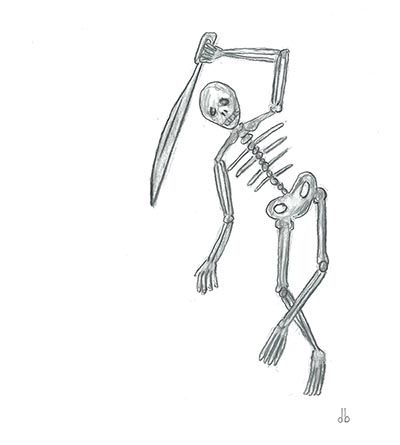
Hid up in a hole in the land
A book of old metal with stones
That flashed magic light at the man
Were found in a hill near his home
An angel with steel in its gaze
Flew out over farms like a storm
Dry lightning crashed down all ablaze
And wolverines ran through the corn
The sun wouldn't rise for the age of an oak
He died before daylight arrived
On the lawn of the Nephilim, with a swordstroke
A salted lake drained from his eyes
II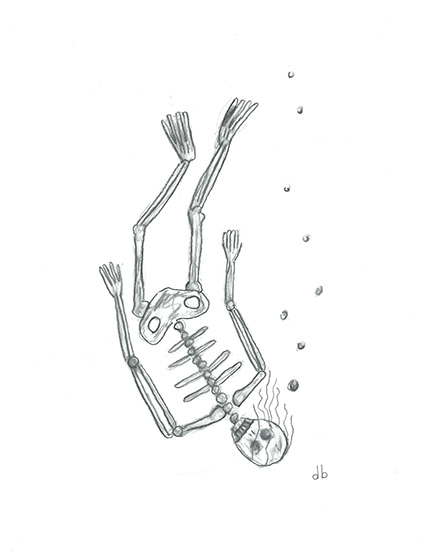
O Lord thou art grand as
The meadow in spring
Thy touch a new blossom
On each living thing
Thy voice in whitewaters
Where I come to sing
My hymn to thy mercy
As I kneel in sand
I prithee indulgence
Would stayest thine hand
And turn back the angel
Who fell from the land
She weeps icy teardrops
Among the round stones
The snowmelt her pale flesh
The driftwood her bones
She strains for her breath as
The winter winds moan
I come here each spring when
The banks o'erflow
And wait, should my sister
Arise from below
Bright gift of the river
Her mouth a small o
III
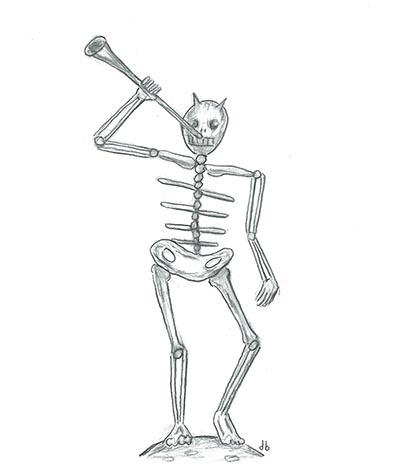 Recall the high facade of a temple, Gothic
Recall the high facade of a temple, Gothic
in its narrow heights of glass and spire,
tilting heavenward. It was the mass of
the hardwood doors that betrayed privilege.
We were schooled in humility and promised
the feudal spoils for it. The celestial state,
to the last golden colonnade and diamond
port window, is standing upon the ashes of the
damned. Here the dark stone cellar echoes
with the nocturnal gossip of scavengers:
the rumor that heaven will have its rats.
Termites tunnel the honey oak pews, and
the saints rest uneasy. The temple was
erected, stone upon mortared stone, until
the Earth had no more use for it. Only a
horned angel haunts the sealed tower now.
It was Roger's idea. Junior would move back in and rent a bedroom. The boy's wife had left him for a bass player she met in a burger diner, and now he was living alone in Goshen. He had a job at a local printing plant that was located in Exeter near Visalia, or was it Farmersville? All those towns were a half hour south of Fresno, which was three hours south of anywhere worth living. The area was mainly farmlands and dairy ranches, so poor illegal field workers made up half the population. Roger considered all hispanics illegals until proven otherwise. He himself had a part time maid who was Guatemalan, and there was no way she had her papers. You paid extra for that.
Trisha had to be talked into it first. It hadn't been long since they'd got the youngest out- -Brigham Young- -and Trisha didn't let a day pass without remarking on the quiet in the house lately. She felt Roger junior should be big enough to take care of himself at 23. She didn't see why he couldn't just get his own place. Roger reminded her of how they'd stayed at her mother's when they were in their thirties, kids and all. Why do I have to be the bad guy in this? said Trisha. You're the one who got fired, and with no money. It was your fault we had to move across the country to live with Mom in Oregon. Roger didn't see why this was any time to be pointing fingers over something that had happened ten years earlier. The issue should be as dead as the first dog they'd owned together. No matter how much trouble Junior got himself into, he was still their son. Trisha had to agree with that.
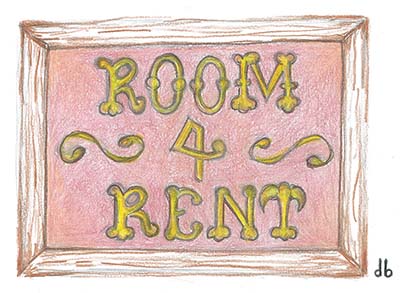 The next thing was talking Junior into it. He didn't want to leave his position at the plant. He was making good money, and he had a two-bedroom
rental house with an attached garage and a yard. Roger reminded Junior that he would probably run into his ex-wife from time to time if he
insisted on staying in Goshen. We had plans, said Junior, we were going to buy a fixer house here in town. We had two thousand in the bank, and she
took half, leaving me with a thousand. His voice broke. That's her town, Son, said Roger. I think you should come home to your own place. I'll
give you a room for a hundred bucks a month. That's less than half what you're paying for that house. And no utilities. You'll be able to get back
on your feet while you look for work. Your mother is anxiously awaiting your decision. What do you say?
The next thing was talking Junior into it. He didn't want to leave his position at the plant. He was making good money, and he had a two-bedroom
rental house with an attached garage and a yard. Roger reminded Junior that he would probably run into his ex-wife from time to time if he
insisted on staying in Goshen. We had plans, said Junior, we were going to buy a fixer house here in town. We had two thousand in the bank, and she
took half, leaving me with a thousand. His voice broke. That's her town, Son, said Roger. I think you should come home to your own place. I'll
give you a room for a hundred bucks a month. That's less than half what you're paying for that house. And no utilities. You'll be able to get back
on your feet while you look for work. Your mother is anxiously awaiting your decision. What do you say?
Junior said yes, and Roger was relieved. He wasn't a hundred percent sure on whether he'd set the rent properly. Any undercharge would be his own loss. If he overcharged, the deal wouldn't be enticing enough to Junior. And Trisha would complain that Roger was gouging his own son. She took a perverse pleasure in accusing him of avarice. She wouldn't even see the irony in criticizing him for how he housed Junior when she'd been against doing it in the first place. Roger had done some checking and found that people were paying one-twenty-five to a one-fifty for monthly room rentals. There were several boarding houses right there in Roseville. He'd set his fee lower than any of theirs. Junior had some money put aside and hired his own moving truck.
Junior wasn't a particularly useful son, but that wasn't what was most troublesome about him. It was that he lived under a cloud. It must have rained the day that boy was born, because his life was one long patch of rough weather. He'd shown an inability to concentrate and anticipate other's needs at a very early age. He flinched a lot, and, on occasion he fainted or had a seizure that required an ambulance call. He repudiated his family's religion, claiming an inability to believe. It was just another thing he'd done without reasoning it out. From the age of four until the time that Roger had put him in an institution at fifteen, Junior had run off at odd times. He didn't return until the police picked him up and brought him home. Roger knew all this, and still he let the boy move in. In retrospect he could see how what happened was his own fault.
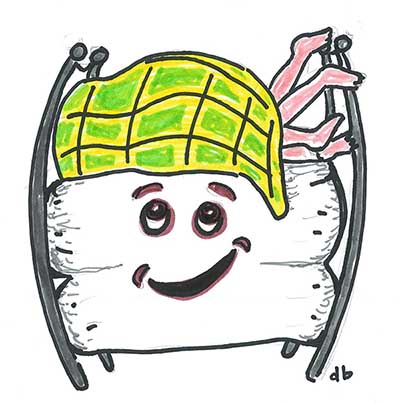 Junior wasn't home more than five weeks when he did the unthinkable. He copulated with a girl his age in his room upstairs. Roger and Trisha had
been sitting in the parlor. Roger was on the loveseat using a crossword dictionary to find answers to the crossword puzzles he was filling in.
Trisha sat in the re-upholstered armchair reading a horror novel about a possessed girl. Roger would prefer that she didn't read it, but that was
non-negotiable--a Trisha rule. Junior came stomping through the front door in a whiff of alcohol with a girl on his arm. She was his co-worker, he
said, at the place where he'd just started working. The two of them said nothing beyond a casual introduction, turning quickly to walk upstairs to
Junior's bedroom and his bed. Roger went up to try Junior's door. It was locked.
Junior wasn't home more than five weeks when he did the unthinkable. He copulated with a girl his age in his room upstairs. Roger and Trisha had
been sitting in the parlor. Roger was on the loveseat using a crossword dictionary to find answers to the crossword puzzles he was filling in.
Trisha sat in the re-upholstered armchair reading a horror novel about a possessed girl. Roger would prefer that she didn't read it, but that was
non-negotiable--a Trisha rule. Junior came stomping through the front door in a whiff of alcohol with a girl on his arm. She was his co-worker, he
said, at the place where he'd just started working. The two of them said nothing beyond a casual introduction, turning quickly to walk upstairs to
Junior's bedroom and his bed. Roger went up to try Junior's door. It was locked.
You know, Roger said to his son, I can't imagine that you've forgotten that your mother and I have standards. It's been very few years since you lived with us last. I can't help but think that you're deliberately trying to flout our values. The prophet has reminded us that the adversary works very close to home. Now you've upset your mother, and inadvertently proved the prophet right, haven't you? I can see the wisdom of the man's words now, and I wish I had listened to the promptings of the spirit that warned me about allowing you to live here. This is how Satan works: he uses our best qualities against us. I was generous enough to share my home with you, and you spit in my face. I'm not going to throw you out, because that's not the kind of man I am. What I will do is double your rent every month until you choose to move out yourself. And no refunds. Got it?
Junior got it.
 The creek draining from Triangle lake was wide and shallow. The bed was tricky going with uneven sized stones that had been tumbled and polished
in the stream bed, rocked and rolled in the currents. We were wearing sneakers in the ankle deep waters that flowed cold, even though it was early
summer. The stream would run with icy snowmelt until fall, and then it would slow and stagnate in spots. Even though filtered through the
overhanging foliage, the sunlight would be enough to warm up the autumn flow. It wasn't a stable environment for fish, and we didn't see any
that day. Sword ferns choked the banks, and we stayed in the middle of the creek, stepping gingerly on unstable rocks as we worked our way up
stream toward the lake. We weren't going so far as the lake itself, but there was a cliff before you got there that had a jumping ledge above a
deep and wide bend in the creek. There were probably some fish in that deep spot, but I didn't see them. In that country you could find Rainbow
Trout in some streams, ten to twelve inches long and plenty for dinner. Pan fried, it couldn't be beat.
The creek draining from Triangle lake was wide and shallow. The bed was tricky going with uneven sized stones that had been tumbled and polished
in the stream bed, rocked and rolled in the currents. We were wearing sneakers in the ankle deep waters that flowed cold, even though it was early
summer. The stream would run with icy snowmelt until fall, and then it would slow and stagnate in spots. Even though filtered through the
overhanging foliage, the sunlight would be enough to warm up the autumn flow. It wasn't a stable environment for fish, and we didn't see any
that day. Sword ferns choked the banks, and we stayed in the middle of the creek, stepping gingerly on unstable rocks as we worked our way up
stream toward the lake. We weren't going so far as the lake itself, but there was a cliff before you got there that had a jumping ledge above a
deep and wide bend in the creek. There were probably some fish in that deep spot, but I didn't see them. In that country you could find Rainbow
Trout in some streams, ten to twelve inches long and plenty for dinner. Pan fried, it couldn't be beat.
John was walking ahead of me in the stream. He was just a couple months older than me, but he had a good mustache coming in, black like his hair. His younger brother, Phred was sloshing along behind me. Phred and I were closer in demeanor, though he was a year younger than I was. We were both nuts about Tolkien, and spent all our free hours reading the trilogy. I actually liked The Hobbit better. It had a cozier feel, while maintaining the vast Middle Earth milieu. I never got tired of reading about Mirkwood, which brought to mind the dense rainforests of western Oregon. That's where we were now, somewhere north and west of Eugene. Behind Phred, Wayne brought up the rear. Wayne was everyone's best friend. If you were out of weed, he could round some up. If you had to sleep off any kind of hangover, you were welcome to crash in his trailer. He liked to call me Fuck Book, which was a term of endearment a pervy neighbor of mine used to describe his porn magazines. Wayne had heard me mention the Fuck Books once, and he just couldn't let it go.
"Careful here,"said John, just a couple strides ahead of me in the creek,"there may be dropoffs in..."Then he vanished. He just sank straight down. "What happened?"I asked, and then he popped up from the water laughing. Phred and Wayne were snorting behind me. John shook the water off his hair and said, "there"s a hole right there big enough to stand up in with your head underwater."I found the hole and jumped in. It was mostly dark down there with some ripples of light coming through the stream surface over head. When I came back up the guys told me that was initiation for new guys--the idea being to watch you freak out. Now I knew why they'd insisted on smoking that joint earlier. They wanted to see if I'd overreact. But the weed had actually slowed my reaction time to the point that John would have had to have drowned before I'd have panicked.
"Hey, Fuck Book,"said Wayne from behind me, "you heard Johnny Winter play? He's faster than Hendrix."
"Hendrix isn't about speed, Wayne,"said Phred, "it's distortion. He dominates with effects pedals."
"Johnny Winter is faster,"said Wayne, "and faster is better."
"Wayne classifies it,"said John from up front. "I was talking to Fuck book,"said Wayne, "Not you two."
I'd heard my name mentioned, or at least my nickname, but it was like I wasn't there. I'd moved away from the area nearly two years earlier. I was living in Roseville, California, hundreds of miles from the Eugene region. I'd been working as a janitor the last eighteen months and paying my father rent to live in his garage. We'd had to leave a decent house in Elmira when my father was run out by angry locals. It was a humiliating time. Kids at the high school had told me they'd kill my father. A lot of kids told me that their parents said my father was a Mormon crook. We were the only Mormons in town, so people only knew of the religion through Dad. He was in charge of their local school system at the time, and well past wearing out his welcome. I'd been gone a while now, and I wasn't used to the rhythms of the place anymore. It was too wet, and the woods were too dense to walk through without a fairly wide trail. There were damp fern blades everywhere underfoot, and I missed the sparse oak forests of California. You could ride a motorcycle through those and no need for a trail. Admittedly the creeks were dirtier down south, but we didn't generally walk in the water.
Earlier Wayne had asked me about California. He'd never been there and wanted to know. I said it was pretty good. "I knew it,"he said, "I knew it was awesome."I hadn"t thought about it at the time, but I was thinking of it now. Listening to our feet slosh through the clear water, I was feeling something like homesickness. I'd been born in Oregon, but it never felt right for me. My grandparents lived in my hometown, La Grande, but I didn't feel welcome in their home. Somehow it wasn't my town anymore. Grandpa had even helped my dad put me in a boy's ranch to get rid of me. I blamed myself, as I'd been taught to do. If only I hadn't wandered the streets so much, trying to avoid my father's violent moods. Everyone in town knew that something was wrong with my family, what with all of us living in the smallest shack in a neighborhood of large farm houses. Other kids had views from their second storey bedrooms while I slept in a windowless fruit cellar underground. I wore an old surplus Army jacket and my sneakers were splitting at the seams. Grandpa was wealthy and lived in a development known as Snob Hill. I was caught stealing food from a general store. Grandma had friends at the country club, a place to which I was never taken. My friends were on the corner by the Rexall drugstore. And later, in western Oregon, my father had been hated to the point that I was hated too. Even the kids who liked me called me names like Fagley and Fuck Book.
 We presently came to the jumping cliff. It was vertical and looked like a wall of cracked slate. There were lots of shelves in the rock face with
small plants growing on them. I could see it would be an easy climb to the jumping spot, a small level place on the rock about twenty-five or thirty
feet above the rushing water where the creek widened. Wayne climbed up first. He jumped feet first, holding his ankles together with his arms out
to the sides for balance. I was afraid of turning sideways during my plunge, so I reminded myself to keep my arms out. From the top of the rock, the
water looked far away. It didn"t look very wide from up there, and I was really nervous about hitting something on the way down. "Jump fast!"Phred
yelled up at me, "it just gets harder the longer you wait."So I leaped off the edge, and immediately felt that I might go sideways. I spread my
arms and my feet. It was a relief to hit the water. "That hurt your nuts, Fuck Book?"Wayne asked when I crawled out of the water, "because your
legs were spread."There was no pain though, and maybe it was because the adrenalin rush overrode any other sensation I might've felt. Or maybe it
was because the surface tension of the water was broken up by the small rapids. I barely remembered the fall.
We presently came to the jumping cliff. It was vertical and looked like a wall of cracked slate. There were lots of shelves in the rock face with
small plants growing on them. I could see it would be an easy climb to the jumping spot, a small level place on the rock about twenty-five or thirty
feet above the rushing water where the creek widened. Wayne climbed up first. He jumped feet first, holding his ankles together with his arms out
to the sides for balance. I was afraid of turning sideways during my plunge, so I reminded myself to keep my arms out. From the top of the rock, the
water looked far away. It didn"t look very wide from up there, and I was really nervous about hitting something on the way down. "Jump fast!"Phred
yelled up at me, "it just gets harder the longer you wait."So I leaped off the edge, and immediately felt that I might go sideways. I spread my
arms and my feet. It was a relief to hit the water. "That hurt your nuts, Fuck Book?"Wayne asked when I crawled out of the water, "because your
legs were spread."There was no pain though, and maybe it was because the adrenalin rush overrode any other sensation I might've felt. Or maybe it
was because the surface tension of the water was broken up by the small rapids. I barely remembered the fall.
After we'd all jumped we started walking back downstream. "I wish we could go to the lake,"I said. I didn't want the day to end. "Not enough time today,"said John. I was leaving for California in the morning. I was hitching down I-5 to Sacramento, and I had two days to get back there. My older sister had promised to drive up to nearby Eugene in her GTO and give me a ride home, but when I called to confirm she said she'd changed her mind. So I had to curtail one day of my vacation. I needed the extra time, because it was hard to get a ride on the interstate. "I could come back next year,"I said, "and see the lake then."No one said anything. They knew I was never coming back, and I knew it as well. The river rocks moved underfoot, clicking as they rocked one against the other. How many times had I walked somewhere for the last time? I didn't care to remember.
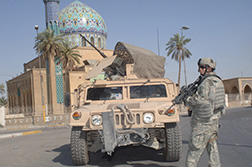 He didn't reenlist, because one tour of duty in Iraq was enough. He knew they'd send him back there or to Afghanistan. The US had two fronts in burning lands. Those fronts were manned by the boys with no future back home. Rick had a future back home. Brittany said her dad told her they were hiring at the plant at just the right time. Rick was short with less than a month to go, and his father-in-law, Tony, had already talked to the foreman. There was a forklift position coming up on night shift, and none of the day shift guys wanted it. Four o'clock to midnight warehousing units and helping the shipping guys load trucks. Or he could stay in tents and choke on haboobs. He could listen for the crack of gunfire midnights with shaky insomnia. He thought it would be sand over there, but it was dirt. And dirt without water is worse than sand. It gets blown into your tent, your rifle and your ass. You start shitting mud after a while. There was hash on occasion, but no beer. Sometimes there was a still. No way would he miss it.
He didn't reenlist, because one tour of duty in Iraq was enough. He knew they'd send him back there or to Afghanistan. The US had two fronts in burning lands. Those fronts were manned by the boys with no future back home. Rick had a future back home. Brittany said her dad told her they were hiring at the plant at just the right time. Rick was short with less than a month to go, and his father-in-law, Tony, had already talked to the foreman. There was a forklift position coming up on night shift, and none of the day shift guys wanted it. Four o'clock to midnight warehousing units and helping the shipping guys load trucks. Or he could stay in tents and choke on haboobs. He could listen for the crack of gunfire midnights with shaky insomnia. He thought it would be sand over there, but it was dirt. And dirt without water is worse than sand. It gets blown into your tent, your rifle and your ass. You start shitting mud after a while. There was hash on occasion, but no beer. Sometimes there was a still. No way would he miss it.
When he got back to Loomis, he interviewed and piss tested at the plant. All you had to do was piss clean anymore to get one of these blue collar jobs. Rick wished he could've got hired on right after high school. That's how a guy at the bottom of the workforce is affected by Wall Street cycles. He'd graduated into a depression, and it was the Army or prison for a poor boy from a small town in California. Later, when the factories were given to China, it would be even more so. Rick was aware that the aluminum plant had already closed, and Formica was starting to lay off again. He didn't know how long the fibreboard plant would last, though Tony, who worked there as a machine operator, insisted it would go well past 2000. And who knew if the world wouldn't have blown itself up by then. Some people said no way would Jesus wait past that. Rick just wanted to make enough money to rent an apartment for Brittany and himself. He never wanted to see another Haji in another goddam desert.
It was almost a month before Rick felt comfortable operating the forklift, about half the time he'd spent in basic training. So far, Rick had dropped a couple of loads off the forks and backed into a another forklift once. The collision had been jarring and his foreman, Bill Heber, had warned him in the office that it'd better not happen again. "I won't have my crew put in danger over your incompetence,"was how he put it. "But I'm giving you another chance out of respect for Tony."Rick told Tony about it, and Tony said, "watch out for Heber, he's a real son of a bitch."
Rick and Brittany found a patio apartment on Main Street in Roseville. The street didn't look the way you'd expect, considering its name; it was a narrow two way going out of town. They shared a common wall with a single man who complained about the noise they made moving in. The guy had been laid off from a local plant that shut down, and he was drinking his severance pay. He was often seen crossing the street to the tiny Main Street Store, which had an uneven wood floor and a sign out front that read: Coldest Beer In Town. Rick went over and got a sixpack of Budweiser to share with Brittany. She asked him if he was going to get fired, and he reassured her. He gotten worse threats from the drills in basic training--this was nothing.
 "Remember Belinda Heber at Del Oro High?"Brittany asked.
"Remember Belinda Heber at Del Oro High?"Brittany asked.
"Wasn't she the one they called the ice queen?"said Rick.
"She wouldn't date until she was seventeen, because she was Mormon,"said Brittany, "and then no touching and no kissing."
"Wait a minute..."
"You're working with her dad.
"No way,"said Rick.
"Yeah, that's him. I guess he has other kids too. I never did talk to Belinda; she was a cheerleader and too good for me."
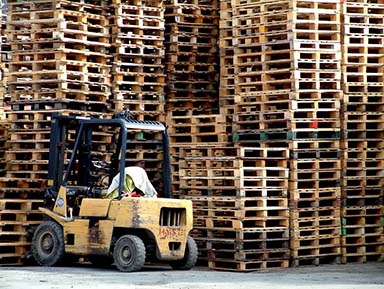 "And her dad works at the same place yours does,"said Rick. The thought irritated him. He remembered Belinda and her clique of wealthy kids at school. He'd assumed her father was a dentist or something. He'd heard that most Mormons were dentists or business owners. Heber was a labor of the love of a minor God. He was his own god. He never admitted to any mistake, and he favored subordinates who gave him gifts. The guys who could afford to buy him ice chests and handaxes had very thin disciplinary files. After only a few months, Rick's file was a as thick as a Sports Illustrated swimsuit issue. He had a bunch of written warnings for stretching breaks and missing mandatory meetings scheduled for his days off. One warning was over his not reporting two guys he'd witnessed horseplaying. They'd been throwing cups of cold water on each other one summer evening when the temperature inside the plant was ninety-five degrees. Heber had watched Rick watching the water fight and taken the trouble to write him up for failure to report the incident. The micromanagement reminded Rick of the Army barracks life. He wondered if maybe he belonged to a class that was always watched: the supervised class.
"And her dad works at the same place yours does,"said Rick. The thought irritated him. He remembered Belinda and her clique of wealthy kids at school. He'd assumed her father was a dentist or something. He'd heard that most Mormons were dentists or business owners. Heber was a labor of the love of a minor God. He was his own god. He never admitted to any mistake, and he favored subordinates who gave him gifts. The guys who could afford to buy him ice chests and handaxes had very thin disciplinary files. After only a few months, Rick's file was a as thick as a Sports Illustrated swimsuit issue. He had a bunch of written warnings for stretching breaks and missing mandatory meetings scheduled for his days off. One warning was over his not reporting two guys he'd witnessed horseplaying. They'd been throwing cups of cold water on each other one summer evening when the temperature inside the plant was ninety-five degrees. Heber had watched Rick watching the water fight and taken the trouble to write him up for failure to report the incident. The micromanagement reminded Rick of the Army barracks life. He wondered if maybe he belonged to a class that was always watched: the supervised class.
Monday afternoon Rick walked across Main street to the store before work. His neighbor was there buying a twelve pack of Budweiser. The guy was wearing a tan windbreaker zipped right up to the neck. It looked like he was trying to choke himself, the way the nylon collar was digging into his flesh. His hair was long and dry, and he was sniffling. One morning the week before, Rick had trouble starting his car and went to knock on the guy's door. There was no answer, but Rick saw the mini blinds move behind the front window. The guy's car was parked out front. He was home. Maybe he was stressed by the layoff-- his hands were shaking now as he paid for his beer--maybe something else. Rick purchased a Sharpie marking pen and left to go drive to work. His neighbor stood on the sidewalk in front of the store waiting for Rick to cross the street first. He held the twelve pack at his side like a sentinel awaiting further orders until Rick had driven off.
Rick got to work at a quarter to four and walked into the plant with his Sharpie in his pocket and his Igloo lunch cooler in one hand. He set the Igloo on an unoccupied table in the breakroom, ignored the chatter going around, and went to a stall in the men's room. He sat down, closed the door, and he wrote "Heber is a cocksucker"on the back of the stall door at eye level for anyone sitting on the john. Then he got up and joined the others in the breakroom for the ten minutes left till the swing shift started at four. Randy was in there going on about black helicopters again. "The one yesterday followed me driving into Roseville,"said Randy. "It hoovered over my Toyota, and it ducked back behind the clouds ever once in awhile to hide itself." Reed laughed from another table, his ample belly shaking under his overalls. He had on about three yards of denim. "Randy,"he said, "why would they be following you?"And Randy said, "Toyota trucks are tactical. I seen it on the news."Reed slapped at the melamine table surface. "That's Somalia,"he said, "that's what they call them in Somalia, you idiot,"Randy shook his head. "Muslims infiltrated our intelligence agencies,"was all he had to say. Reed was still laughing when everyone got up to go punch in at the time clock.
It was forty degrees Centigrade in the shade when Rick was called to Top's shack. There was a generator running the wall mount air conditioner that had been mounted in the plywood wall. It was cool in there, and it made Rick wish that everyone had air conditioning and not just the leaders. The long mess tent did have a big swamp cooler, and that was nice. "You know why I called you in here?"Top asked Rick. "You were derelict yesterday watching the ordinance."Rick said, "I only left to eat a quick lunch at the mess tent and went right back. Nothing was stolen."
"You know better than to abandon your post, soldier."
"But I couldn't get anyone to cover me for lunch."
"Sounds like a personal problem,"said Top. "You do it again and I hand you over to the colonel for a field grade article fifteen,"
Rick was relieved. "Thank you, sergeant."
"Don't thank me, soldier, just don't fuck up again. I mean it. Dismissed."
Rick almost wanted to stay in the office, it was that cool in there. But when he got outside he decided what he really wanted was to go have a smoke in the shade somewhere quiet. He thought about California. When he got out of the service, he'd go to work with his father-in-law and never have to put up with all this disciplinary bullshit again. He imagined working on machinery with Tony in the fibreboard plant. Tony was on day shift with weekends off. He could drink all the beer he wanted any night of the week. Rick figured that was the same as every night, the way Tony put it away. He'd liked the old guy ever since he'd started dating Brittany in high school. His own father had run off to San Diego to live with some whore before Rick was six years old. Anyway, that's what his mother told him. Rick had never seen the man again.
Heber had called a meeting at 3:00 pm Thursday, so the swing crew showed up at the front office building an hour before shift. They were directed to the conference room with the long table and windows facing the plant. The air conditioner had failed--the electricians had ordered replacement parts--and the room was stuffy. Rick took a seat halfway down the table with sweat already slicking his forehead. Reed sat at the end opposite Heber, who took the head chair. Once everyone had settled, Heber said, "Somebody wrote a graffitti about me in the men's room stall. It uses a disgusting term I won't use here."
"Did it say you drink coffee?"Reed asked.
"Shut up, Reed. Unless you have something to contribute, keep your mouth shut."
Reed made a zipping motion over his wide grin, which was threatening to split his face in two. One of his huge boots kicked the table, and Rick felt the jolt from where he was seated. The air was getting worse, and he was starting to feel fevered. He lifted up the front of his shirt and dabbed at his forehead with it. Heber was as dry as a sermon. "I won't tolerate this kind of disrespect,"he said, "what if someone was visiting the plant and they went in the bathroom?"
"God help the poor devil,"said Reed.
"That's it, Reed, I want to see you in my office after this meeting. You can leave now and wait for me there."
Reed stood up and bumped the table again, only this time it banged at Heber's fingers. He'd been hanging his hands over the front of his chair's arms before the table closed the gap. "Fetch!"He cried out, and chuckles ringed the table. "That's it,"he said, "meeting over, everyone get out of my sight."Rick got up with the others and joined them in the trek to the break room. A couple of guys stopped to look in the men's room--they hadn't seen it yet. A short guy they called the terrier said, "I agree. Heber is a cocksucker. He wrote me up for coming back three minutes late from break last week."Rick rubbed at the stubble on his chin. He hadn't shaved lately and was thinking of growing a beard. Brittany didn't seem to mind, as her Dad wore a beard off and on over the years. Heber looked too doughy to grow a beard, even at forty-five. Randy had said that Mormons don't allow facial hair because they're with the Illuminati, and they have to maintain a Roman look. The Book of Revelation, Randy said, tells us that Rome will rise to rule over the world with the Antichrist, who has already been born and is living in Spain. Of course Randy said a lot of things, but Heber didn't even look like he could grow whiskers if he wanted to.
"That asshole told me that I need to conform or go home,"said Reed. He'd just come back to the break room from Heber's office. "And he wants to see you now, Rick."Rick took a deep breath and pushed back his chair. Heber's office was just around the corner. It had a steel door set into the concrete wall of the plant. Rick took a seat across from Heber's desk. "How long have you been here?"Heber asked. Rick told him three months. "Are you ready to be part of the team?"Rick nodded automatically, just like he was supposed to. "I need you to find out who's behind this obscene graffiti,"said Heber. "I know at least a couple of guys must trust you by now. All you have to do is ask around and report back to me."Rick nodded again and thought, no fucking way. After the shift ended at midnight, Rick was walking past Heber's minivan when he stopped and pulled his keys out of his pocket. He dragged a key tip across the van's driver's side door, gouging through the paint with a long scrape mark. He noticed that someone else had scratched up the trunk door as well.
Just before each thump there was a flash of light beyond the dirt berm. Rick was on the camp side of the levee-like hill with a jumpy guy named Flitch, and the two were keeping their heads down. They had their rifles but there was no one to shoot at. Rick had looked over the top of the berm into the dark and seen nothing, even when a mortar flash lit up the dirt expanse beyond. Each explosion made his gut tighten and his head duck involuntarily. You couldn't duck artillery; it came down at you from overhead. But you kept your head down anyway. It couldn't be helped. "I ain't seen it this heavy before,"said Flitch."It's like a fireworks show in King Of Prussia times a thousand. I hope we don't get vaporized."
"What the hell is King Of Prussia?"Rick asked.
"It's a shithole in Pennsylvania,"said Flitch, "near my house. Every fourth of July my family went to the fairgrounds there. I got bit by a snake there when I was seventeen, and my dad thought it was a water moccasin, which is a poisonous one. He loaded the whole family in the car and drove us to an emergency room. They tested me, and I was okay, but I got fucking hated on for making everybody miss the show. I was always the family scapegoat. I enlisted to get the hell out of there."
"I had nothing going myself,"said Rick. Some jets roared overhead and the sky opened up with a flash of daylight over the enemy position. A deafening boom rolled through the air and the ground, and then it got quiet. Top came by and said nobody move till you're told. And no lighting up a smoke either. Keep your shit down until you're told it's over. It was already over, but Rick and Flitch had to wait another hour before they could hit the rack and catch some sleep.
Rick was awakened shortly after midnight by thumping noises and muffled shouting. He sat in the dark thinking he was in Darfur, but there was a window instead of a tent wall. Blue and red light was flashing through the mini blinds, and Rick realized he was in his patio apartment in Roseville. Brittany stirred beside him on the bed and asked what was wrong. "Cops, maybe,"said Rick as he got up. There was a hard knock at the door. Rick opened the door on a fireman who asked him if anyone else was inside. "My wife,"said Rick. The fireman told him the he and Brittany needed to evacuate. "What happened?"Rick asked. The fireman said, "gas. We've turned it off, but there's still a risk. For your own safety, you need to get on the other side of the caution tape."Brittany joined Rick and they walked out past an ambulance being loaded with a patient on a gurney. The patient's head was covered. Rick noticed that the neighbor guy's front door was hanging open, and a couple of cops were standing by it.
"That's a shame,"said one of the neighbors by the tape. "You could tell he was depressed.
"What happened,"Rick said.
"Looks like he let the stove run unlit,"said the neighbor. "Gassed himself."
Reed was fired on a Friday. Randy told Rick in the break room before the shift. "Insubordination,"he said. "You know Reed's mouth." Rick wasn't laughing. He had a bad feeling, and Heber had told him that a load he'd dropped from the forks a couple weeks ago was his last chance. He'd given Rick three days off without pay. Brittany had worried for him, and Tony had said, "I told you to watch out for him."
Rick was nervous throughout the shift. He kept thinking he was going to run his forklift into something. He thought of the Top sergeant's tent, and it seemed like the plant machinery sounded like the rattle of Top's air conditioner. He imagined looking down at himself from above, the forklift wheeling around the warehouse through aisles that were too narrow for safe navigating. He kept thinking he was going to clip a stack of product by taking a corner too close. Once he saw Heber standing in an aisle with his feet apart and his hands on his hips like Gulliver or a pirate. His nerves ratcheted up. As the shift came to an end he picked up a full trash hopper so he could take it outside to dump it. He heard someone yelling before he drove off and turned to see Heber standing by the terrier's ripsaw. There was a pile of long boards ready to be picked up by a forklift at the outfeed end of the saw. Rick set the hopper down and went to pick up the boards. Heber yelled at him, "Don't ever let me see you do that again. You unload the saw first, and then you take out the trash."Rick took the boards off, his face burning with frustration. It was three minutes till twelve, and he'd never get it done by shift's end. Heber would bitch. He drove out the back as fast as he could, and the forklift hit a pothole, pitching it up on two wheels. Come on, Rick was thinking, fall back down. But the lift was too high-sided, and it slowly teetered and then fell sideways onto the asphalt. He jumped out the top side of it and walked to the front to punch out at the time clock. He was fucked anyway. No use talking to Heber.
Some turbulence woke Rick up somewhere over southern Europe. He was in the fuselage of a C 130. There were over 50 guys with him in seats that looked like the ones in commercial airliners. Everyone had earplugs in to mute the engine noise, so there was little talking. There were no windows, which bothered Rick, because he wanted to see the stars. He wanted to see something before they got to Kabul. He didn't want to have already seen the last of his world. He'd seen photos of Afghanistan, and it looked pretty much like Iraq. It was nice of Tony to have taken Brittany back in, especially with the baby coming. Tony was a good father and not the kind to leave you when you're in kindergarten. He wasn't the kind to leave his wife to despair and take too many pills for getting past forty, the way Rick's mother had. Still, Rick wished he could look outside and get his bearings. He wanted to know where in the world he was.
One summer afternoon the year I turned five I was walking away from the house, and I wasn't thinking of turning back. The sidewalk was like a scroll that had been opened and rolled out in front of me, a long strip of possibility that passed by many houses. The houses watched me with their windows as I walked by, and I wondered about the kids who lived in them. Were they bad too? I couldn't see them getting punished behind the pulled curtains. I imagined they were in there all right, holding their sore bottoms and crying in the dark. They shouldn't have done what they did. It was their own fault.
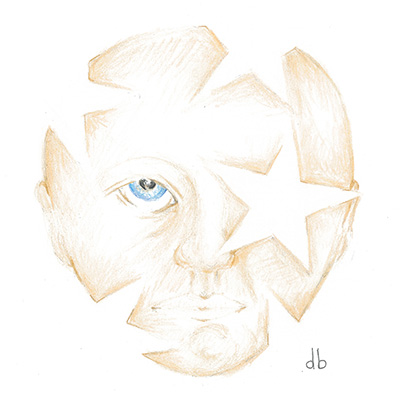 The sun was high over the low hills of Castro Valley, and I sneezed when I looked up at it. It's a big star that gets into your head through
your eyes and tickles the inside of your nose. Then all your breath shoots out at once and burns your nostrils. I tried looking sidewise at just the glare of it, not directly. That made me sneeze too. Then I had to look at my shoes for a while, because I got a little dizzy there. My head ached like in a chapel.
The sun was high over the low hills of Castro Valley, and I sneezed when I looked up at it. It's a big star that gets into your head through
your eyes and tickles the inside of your nose. Then all your breath shoots out at once and burns your nostrils. I tried looking sidewise at just the glare of it, not directly. That made me sneeze too. Then I had to look at my shoes for a while, because I got a little dizzy there. My head ached like in a chapel.
Maybe if I kept going I would walk by the place that wasn't a house. It was a fenced-in grassy lot that bulged up in the middle and had a concrete pillbox perched on it. My sister told me once that it was where the fairies lived. She knew things, because she went to school. I was going to start kindergarten pretty soon, Mom said. That would get me out of her hair. I didn't know what she meant by getting me out of her hair. I didn't know the way to where the fairies lived, either. I only knew about sneezing and walking.
If I kept going, I wouldn't be around to get in trouble when Dad came home. I wouldn't be in his hair. I would stay outdoors in the sunshine. I wasn't tired, so I walked a long ways--too far for looking back.
I heard a crunching and a scraping at the sidewalk curb, and the fat tire of a police car eased up next to me. A nice policeman with a metal star on his shirt got out of the car and talked to me. He talked on his radio, and he gave me a ride in the police car. That was swell, but then he took me home. I couldn't say what Mom did to me for being bad, but I do remember the police car with a star on the door. It caught my eye.
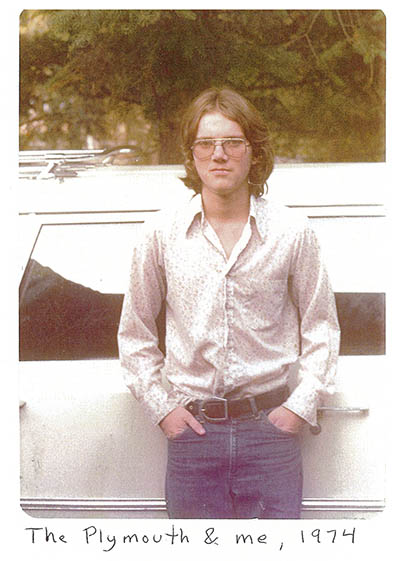 We had that half circle driveway that meets the street in two places. There was no garage on the property, a densely treed acre, so the two cars
were parked one behind the other on the gravel driveway close to the house. Dad had the better car that was provided by his employer. It was
a Malibu '73 wagon. The thing was new and shiny, and no one but Dad was allowed to drive in it.We couldn't even sit in it as passengers, he
said, because his contract prohibited it. It was amusing to me the way he slavishly obeyed that rule considering how laissez faire he was about
his children's well being. I don't know where he kept his money, because I never saw any of it. He was the school superintendent, but there was
no money for school lunches or allowances. I took my sack lunches at the smoking tree with the pikers. The superintendent's son was not seen
in the cafeteria.
We had that half circle driveway that meets the street in two places. There was no garage on the property, a densely treed acre, so the two cars
were parked one behind the other on the gravel driveway close to the house. Dad had the better car that was provided by his employer. It was
a Malibu '73 wagon. The thing was new and shiny, and no one but Dad was allowed to drive in it.We couldn't even sit in it as passengers, he
said, because his contract prohibited it. It was amusing to me the way he slavishly obeyed that rule considering how laissez faire he was about
his children's well being. I don't know where he kept his money, because I never saw any of it. He was the school superintendent, but there was
no money for school lunches or allowances. I took my sack lunches at the smoking tree with the pikers. The superintendent's son was not seen
in the cafeteria.
The other car was also a wagon, but nothing like Dad's. It was a beat up '67 Plymouth Fury II he'd bought back when we lived in Pottstown. He put a third bench seat in the back of the car, so we could ride backwards for maximum car sickness. Seatbelts? Not on your life and limb. My older sister had not yet returned from another failed semester at Ricks college in Idaho, so I was the oldest at seventeen. My father had refused to allow me to get my driver's license at sixteen, because I was irresponsible, and it would add to the insurance bill. He was never home evenings, and Mom was sick and tired of driving the damn kids around. One night she had me drive one of my siblings to an after school event, and Dad was pissed when he heard about it. It could put him at financial risk if I wrecked. He reluctantly allowed me to get my license so I could shuttle his children around.
The weather in Elmira, Oregon vacillates between rain and threatening clouds. On Sundays the whole family went to church in the beater car, and I stayed home and smoked cigarettes in the driveway. The trees were so thick I couldn't see the street we lived on, and I felt comfortably concealed. Dad took the family to a ward in Eugene for a couple of months and then announced that it was the wrong ward. Everybody was upset that they had to change wards twice in as many months. I was oblivious in a gray cloud of tobacco smoke on the gravel driveway. A radio played from an open window. Dad had been making Jeff go home teaching with him, and when they changed wards Jeff refused to go out. They argued by the front door until Jeff was in tears. He knew some of the kids in the families they were to visit, and he didn't care to spend time with them. Finally Dad left by himself. I don't recall which car he took. I was just glad for his absence.
Dad was fired in disgrace, and we were run out of Elmira under a cloud of death threats. We moved to Roseville, California with no home to live in. I stayed in my Uncle Kenny's garage for a while until Dad got us a house. It was hot and dry most of the time there. I lived in the garage of that house with my brothers, sweating in my sleep summer nights. We still had the old Plymouth Fury II, and Dad was given a new Ford Granada by the local school district that hired him. Again we were forbidden to use his work car. The Plymouth was falling apart. One day Jeff drove it to school and the drive shaft broke loose, pounding a groove in the asphalt and leaving a wide trail of fluid behind the clunker. The stain was visible on our street for months. I'm sure that left some kind of impression on the neighbors. The oversized family with kids in the garage had fouled up the street. Dad had a good run in Roseville. It was twelve years before he was fired in disgrace, and the Plymouth was just a distant memory by then. That was his last company car as well.
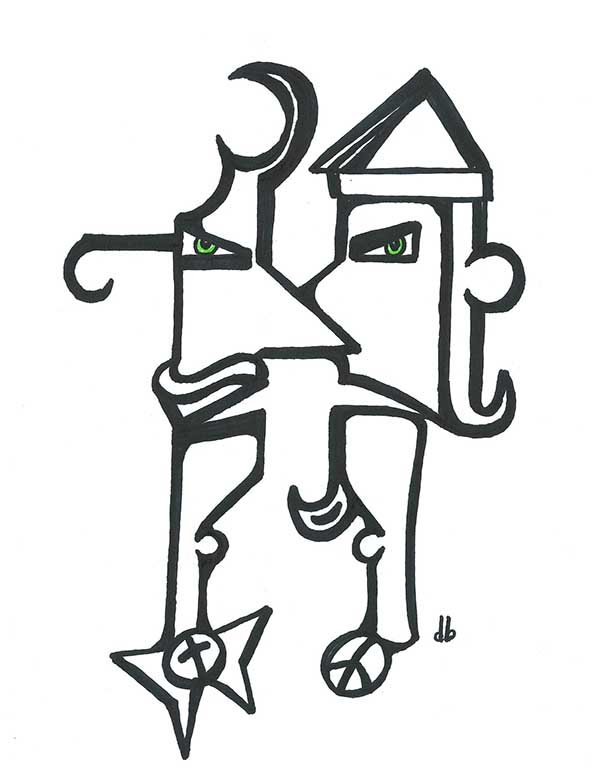 For years now Dukane had been calling his older brother, Jeshua, every Sunday evening for a chat. Mostly they talked of family and books they'd read.
Sometimes they exchanged opinions on current events, with Jeshua taking a more conservative view than Dukane. Another frequent topic of their
conversations was their father's religion, which both had abandoned a decade earlier. Jeshua had provided Dukane with printed copies of the
Tanner's extensive papers debunking Mormonism. For their disbelief in his gods and rituals, their father had cut the two of them off from
inheritance and had told them as much. It bothered Jeshua more than it did Dukane, and the former had married an older woman with inherited
money, perhaps, Dukane quietly speculated, in an attempt to set things right in the universe. Jeshua would have some kind of inheritance.
For years now Dukane had been calling his older brother, Jeshua, every Sunday evening for a chat. Mostly they talked of family and books they'd read.
Sometimes they exchanged opinions on current events, with Jeshua taking a more conservative view than Dukane. Another frequent topic of their
conversations was their father's religion, which both had abandoned a decade earlier. Jeshua had provided Dukane with printed copies of the
Tanner's extensive papers debunking Mormonism. For their disbelief in his gods and rituals, their father had cut the two of them off from
inheritance and had told them as much. It bothered Jeshua more than it did Dukane, and the former had married an older woman with inherited
money, perhaps, Dukane quietly speculated, in an attempt to set things right in the universe. Jeshua would have some kind of inheritance.
This Sunday night Jeshua called just after Dukane had finished dinner with his wife and son. There was a rushed tempo to Jeshua's speech, as if he wanted to get to something in a hurry. He mentioned that their younger sister and her husband, who were living with their five children in a travel trailer in Colorado, had found it necessary to shut off their water, which was supplied by a garden hose that had frozen solid in the mid-January weather with temperatures in the teens. "It's too bad, "said Dukane, "that they seem destined to live like poor Mormons."There was an audible sigh, and then Jeshua said, "Why do you blame everything on the church?"Dukane was nonplussed for a moment. "What did you just say?"he finally asked Jeshua. "Are you defending Mormonism all the sudden?"
"It's not all the sudden,"said Jeshua. "I'm spiritual."
"No you're not,"said Dukane. He thought about the way Jeshua had kicked out his first wife and sent her back to Utah on a Greyhound, and the time he'd tried to sue his second ex-wife and lost. And the money for the lawyer had come from Jeshua's third wife, an old rich woman who'd inherited the wealth from her deceased mother. He'd spent most of it by now. One time he'd gone to a car lot and bought the most expensive sedan on the lot with her money. Spiritual didn't seem to have a place in any of it. As for Mormonism, Jeshua had given Dukane the Tanner manuscripts, hadn't he? Dukane asked him, "are you going to the church meetings?"
"Yes,"said Jeshua.
"When's the last time you attended?"
"I don't count the days, Duke."
"How many weeks?"
"You're grilling me."
Dukane sighed. "You can't estimate when you last went?"
"Last year,"said Jeshua. "Are you satisfied now?"
Dukane received an email from his brother the next day: I did not appreciate the way you grilled me about my faith. I'm going to have to reevaluate our relationship.
After growing up together and aging into their fifties, Jeshua and Dukane were suddenly estranged. They never spoke to one another again. Dukane wondered what was going on in his brother's head. Was he trying to seek favor with their Mormon parents? The two brothers had been estranged from their diffident mother and abusive father for years prior to this new falling out. Maybe Jeshua was hoping to inherit some of Dad's money, which was most certainly earmarked for the church. None of it made any sense to Dukane, but then again few things did when it came to family.
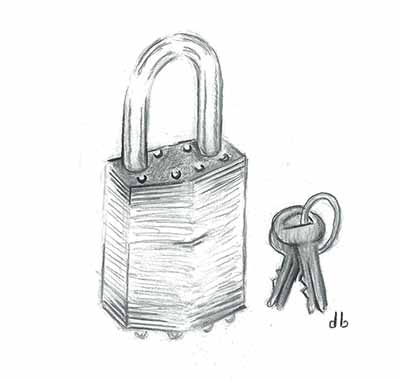 Gary Appleton had the one locker to auction in the morning. He grabbed the bolt cutters and a fresh Masterlock on the way to the golf cart. It
was past closing time and he'd already disabled the rolling entry gate. Locker one-thirteen had been rented by a young couple who'd lost their
bungalow to foreclosure. They'd only had half the first month's rent, but Gary had been feeling generous and given them one-thirteen with their
promise to catch up on the payment later. They never did, and he'd had to send them the delinquency note informing them that their property would
be sold to defer costs. He regretted his largesse now, because how many valuables would one expect a financially strapped young couple to own? And
him nearly forty bucks in the hole. He parked the cart in front of the locker door and cut the lock.
Gary Appleton had the one locker to auction in the morning. He grabbed the bolt cutters and a fresh Masterlock on the way to the golf cart. It
was past closing time and he'd already disabled the rolling entry gate. Locker one-thirteen had been rented by a young couple who'd lost their
bungalow to foreclosure. They'd only had half the first month's rent, but Gary had been feeling generous and given them one-thirteen with their
promise to catch up on the payment later. They never did, and he'd had to send them the delinquency note informing them that their property would
be sold to defer costs. He regretted his largesse now, because how many valuables would one expect a financially strapped young couple to own? And
him nearly forty bucks in the hole. He parked the cart in front of the locker door and cut the lock.
Inside it was pretty much as he'd expected. There were stacks of boxes stuffed with out of date clothing, and some furniture that looked to have been purchased from Montgomery Ward or Kmart was stacked up along the side walls. The furniture was in near new condition, but it was poorly made and wouldn't inspire any decent bidding activity. Ernest would really have to work the crowd on this one. Which was asking a lot, because Ernest stank at everything he did. Gary wished his sister had never married the bozo. The guy was either drunk or hungover depending on the time of day. He talked a better line of bullshit when he was drunk, but the auctions were held mornings, and that meant Ernest was never at his best for any of them.
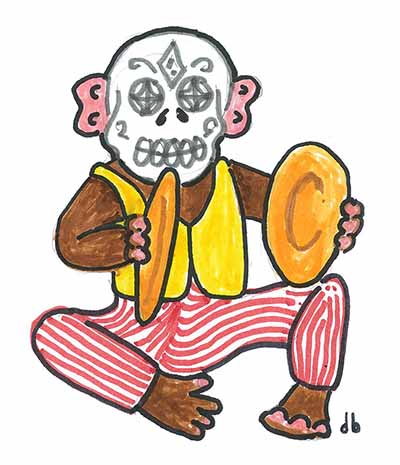 After about ninety minutes of going through the sorry pile of junk the young couple had jettisoned, Gary was the proud owner of a jar of
coins and some JCPenney jewelry the asshole at the pawn shop would scowl over before dropping a couple of singles for it. It was really so close
to nothing that Gary regretted the short golf cart drive and the ninety minutes of his evening wasted. He'd tried to get his wife to do it
before, but she never found anything. He'd gone back in after her once and found a film tin full of silver quarters. She claimed that she'd
been frightened to distraction by a toy monkey with hand cymbals. It had started banging away with its cymbals when she opened a box and likely triggered the thing. She'd claimed that the monkey's face was tore off, leaving a skull with leering eye sockets. The way he figured it, she probably was demonstrating incompetence on purpose to get out of the work. That was something she seemed to have in common with Ernest, only he was a natural and didn't need to promote his ineptitude. "So ends another work day at Appleton Storage,"Gary was thinking as he secured the new Masterlock to the locker door hasp with a click.
After about ninety minutes of going through the sorry pile of junk the young couple had jettisoned, Gary was the proud owner of a jar of
coins and some JCPenney jewelry the asshole at the pawn shop would scowl over before dropping a couple of singles for it. It was really so close
to nothing that Gary regretted the short golf cart drive and the ninety minutes of his evening wasted. He'd tried to get his wife to do it
before, but she never found anything. He'd gone back in after her once and found a film tin full of silver quarters. She claimed that she'd
been frightened to distraction by a toy monkey with hand cymbals. It had started banging away with its cymbals when she opened a box and likely triggered the thing. She'd claimed that the monkey's face was tore off, leaving a skull with leering eye sockets. The way he figured it, she probably was demonstrating incompetence on purpose to get out of the work. That was something she seemed to have in common with Ernest, only he was a natural and didn't need to promote his ineptitude. "So ends another work day at Appleton Storage,"Gary was thinking as he secured the new Masterlock to the locker door hasp with a click.
Mary held out the phone to Ernest. "It's Gary for you,"she said. "What the hell,"said Ernest, putting the phone to his ear, "do you want, Gary?"
"I just wanted to remind you of the auction tomorrow morning,"said Gary, "so you don't forget."
"I remember,"said Ernest, "and I wanted to talk to you about my pay."
"We've been over this, Ernest."
"I know, but the sawbuck for a flat fee just ain't enough no more,"said Ernest. "I make money for you. It's not fair."
"Maybe if you showed up without a hangover you'd get better results at pushing up the bids,"said Gary. "Then I could increase your take. And could you make sure to wash the shirt and wear matching black pants tomorrow? If you do that, we'll talk about your pay."
Ernest put the Treasure Masters shirt in the washing machine right after the phone call. He threw in his one pair of black pants as well. "Mary,"he said, "I'm going to really work it tomorrow. I'll get your brother a big chunk of cash for that locker, you'll see."
Mary was pleased. "That's why I married you,"she said, "most of my boyfriends would've told Gary to shove it or worse. You have ambition."
"And I married you for that fine behind of yours,"said Gary. "Won't you come over to the couch and let me grab some?"
"Not till after my show,"said Mary, "they're down to the last three contestants, and I ain't missing it tonight."
The Sacramento valley heat hadn't set in yet and probably wouldn't before eleven am. Ernest was standing near locker one-thirteen with a knot of anxious folks still feeling their morning coffee. He himself hadn't needed a cup to get started after a good night's sleep without hardly any whiskey before bed. He had a good feeling about his chances today. He had on his lucky black leather belt with the turquoise buckle and the shirt and pants were clean and wrinkle free. He watched with the others as Gary pulled up on his golf cart and parked by the locker door.
"I am removing the seal,"Gary addressed the small crowd after stepping off the cart with the cutters. "The contents of this locker have not been seen since the owner's death. She was the widow of a local business man whose name I can't reveal for legal reasons. I do remember that she had purchased some new furniture for her guest house and had it moved in here. It's not like the heirloom stuff she had in her mansion, but it's in mint condition and should move fast."He clipped off the new lock and rolled up the door, exposing the piles of cardboard boxes within. "There's no way of knowing what's in those boxes,"he said, "but I do know that no valuables were found in her residence, and her relatives searched it good. They refused to pay up the locker rent, which I think was pretty shortsighted, but what are you gonna do? Shall we start the bidding?"
Some old fart in a straw cowboy hat called out, "five bucks!"Gary looked away from the man. There was always the lowballer. Ernest raised his hand for all to see. "Twenty,"he said. Gary nodded and glanced around to see how the others reacted. One anxious looking guy in a cheap suit sidled up to Ernest.
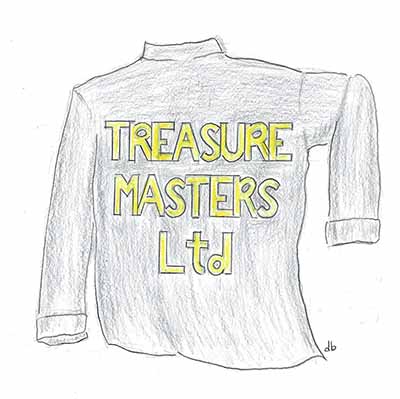 Roger Funles had put on his Sunday blazer for the auction. He intended to be taken seriously. The man in the black work shirt with the Treasure
Masters Ltd. logo on the back had just bid four times the opening offer. Roger knew a professional when he saw one and remembered his father's
words, "stay close to the businessman, son. He's the one who knows where the wealth is hid."Roger stood just next to and slightly behind the
shoulder of the Treasure Masters guy. "I know something's in there,"the man in black said to himself, and Roger pretended not to have heard
him. "Twenty-five,"said Roger. He had two hundred cash on him to bid with, except for the thirty dollars he had to give Trisha for groceries. So
he could go all the way to one-seventy. "Thirty dollars,"said straw hat from the back. Another fellow said forty, and two other guys went back
and forth up to a hundred. Roger was distracted for a moment with imagining himself in the high priest quorum meeting next Sunday. "I had enough
clues something was in there,"he saw himself telling the brethren, "it wasn't rocket science."He chuckled to himself and missed a few more
bids. Next thing he knew the Treasure Master was saying one sixty. Roger knew he had to go all in or he'd miss this one. "Two hundred,"he heard
himself say. For a moment he worried about Trisha yelling at him over the food money, but then he realized that the thirty dollars could easily
come right out of the profit. Maybe he'd give her forty and surprise her. The woman had no faith in him.
Roger Funles had put on his Sunday blazer for the auction. He intended to be taken seriously. The man in the black work shirt with the Treasure
Masters Ltd. logo on the back had just bid four times the opening offer. Roger knew a professional when he saw one and remembered his father's
words, "stay close to the businessman, son. He's the one who knows where the wealth is hid."Roger stood just next to and slightly behind the
shoulder of the Treasure Masters guy. "I know something's in there,"the man in black said to himself, and Roger pretended not to have heard
him. "Twenty-five,"said Roger. He had two hundred cash on him to bid with, except for the thirty dollars he had to give Trisha for groceries. So
he could go all the way to one-seventy. "Thirty dollars,"said straw hat from the back. Another fellow said forty, and two other guys went back
and forth up to a hundred. Roger was distracted for a moment with imagining himself in the high priest quorum meeting next Sunday. "I had enough
clues something was in there,"he saw himself telling the brethren, "it wasn't rocket science."He chuckled to himself and missed a few more
bids. Next thing he knew the Treasure Master was saying one sixty. Roger knew he had to go all in or he'd miss this one. "Two hundred,"he heard
himself say. For a moment he worried about Trisha yelling at him over the food money, but then he realized that the thirty dollars could easily
come right out of the profit. Maybe he'd give her forty and surprise her. The woman had no faith in him.
"--going twice, sold for two hundred dollars,"said Gary, "to the man in the fine suit of clothes."
Roger beamed, but the crowd was oblivious to him and already dispersing. The Treasure Master guy was talking to the owner and most likely complaining about being outbid, Roger supposed.
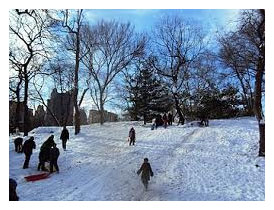 Christmas Eve day opened with the sparkle of fresh snow powder everywhere. New snow glittered on windowsills, sidewalks and the tops of
parked cars. All of New York's streets were blanketed, and storefront window displays were set in thick piles of cotton, so that it looked
to have been snowing even indoors. It was 1968, and I was just eleven years old. My nine-year-old brother, Jeff, was excited about the
two of us going sledding in Riverside park. We talked about it as we pulled on our boots. "I'm going down deadman's hill today,"I told
Jeff. It was the tallest hill in the park, and there were neighborhood stories of kids getting hurt or even killed on it. But I figured my
Kalamazoo Flyer sled would handle it. How was I going to get hurt falling into a snowbank anyways?
Christmas Eve day opened with the sparkle of fresh snow powder everywhere. New snow glittered on windowsills, sidewalks and the tops of
parked cars. All of New York's streets were blanketed, and storefront window displays were set in thick piles of cotton, so that it looked
to have been snowing even indoors. It was 1968, and I was just eleven years old. My nine-year-old brother, Jeff, was excited about the
two of us going sledding in Riverside park. We talked about it as we pulled on our boots. "I'm going down deadman's hill today,"I told
Jeff. It was the tallest hill in the park, and there were neighborhood stories of kids getting hurt or even killed on it. But I figured my
Kalamazoo Flyer sled would handle it. How was I going to get hurt falling into a snowbank anyways?
When we got to the top of the hill, Jeff said he wanted to go down it with me. I imagined the two of us sitting upright on the sled and toppling over before we were halfway down the hill. "I know,"I said, "I'll lay down on the sled, and you lay on my back, Jeff."That would keep us stable. The wind roared in my ears as we sliced through the deep powder on our rapid descent. I could feel Jeff's weight on my back like a thick winter quilt. It was a secure feeling, until we hit bottom. Chunks of ice from an earlier melt and refreeze had caught in the sled's rails and stopped it from going forward. Inertia threw me off the front of the sled at high speed and pitched me face-first onto the jagged ice. Jeff was still on my back as the ice scraped at my face till I came to a miserable halt. I walked home with my cheeks burning, pulling Jeff on the sled behind me with a rope, feeling stupid and weepy all at once.
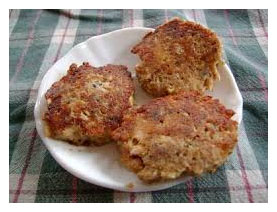 There were a lot of presents under the tree that year, and Dad was mad at Mom. "Do you think we're rich?"we'd heard him yelling at her
from the other room. He'd been upset for days. At dinner we were served pinkish-gray patties of canned salmon loaf that smelled as rank as
the fish market by the Port Authority. The stale taste of it was even worse than the foul odor. Dad watched as we refused to eat it at the
table. "If you don't eat it you don't get the presents tomorrow,"he said, "I'll take them all back."I tried another bite and coughed it
up immediately. My older sister fled to her room without a word. "I've never seen such ungrateful children,"Dad said, and I heard a
whimpering going around the table as I held my head down. I felt shaky and tearful, like after my sled accident. I looked up at my
father's angry face, and I looked at his Christmas tree and his presents under it and his son, Jeff, who was spitting canned ground
salmon into a napkin and sobbing.
There were a lot of presents under the tree that year, and Dad was mad at Mom. "Do you think we're rich?"we'd heard him yelling at her
from the other room. He'd been upset for days. At dinner we were served pinkish-gray patties of canned salmon loaf that smelled as rank as
the fish market by the Port Authority. The stale taste of it was even worse than the foul odor. Dad watched as we refused to eat it at the
table. "If you don't eat it you don't get the presents tomorrow,"he said, "I'll take them all back."I tried another bite and coughed it
up immediately. My older sister fled to her room without a word. "I've never seen such ungrateful children,"Dad said, and I heard a
whimpering going around the table as I held my head down. I felt shaky and tearful, like after my sled accident. I looked up at my
father's angry face, and I looked at his Christmas tree and his presents under it and his son, Jeff, who was spitting canned ground
salmon into a napkin and sobbing.
When Trisha spoke of religion she was working. I have Roger, she thought, and that's all I need. But aloud she said, "I have a testimony of the book of Mormon."It kept her in room and board. Roger is my rock, she told herself. A rock is a hard landlord. Trisha lived in the room he leased her in whatever house in whatever town. The price for her was the same as for the others. She had Roger's children, and some of them objected to his rules. She tried to tell the kids why they were wrong. Everything has a price. Why couldn't they understand that? When he beat them, it was because they had failed to carry their weight, and she couldn't half blame him. They gave as good as they got.
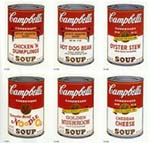 Sometimes it was necessary for her to strike one of her boys to get his attention. She kept a stick beside the refrigerator for the
task. It was a handy enough location. They always came at her when she was in the kitchen. She'd already be in a bad mood from trying to
put together a dinner with the dollar a day limit Roger had set on food expenditures. And he wondered why couldn't she stretch that any
further? "Cheerios are two bits a box,"he said. "That's breakfast. Soup is ninety cents for six cans and chicken's twenty-nine cents a
pound. Where is all the money going?"He had her to where they were having powdered milk the last week of every month.
Sometimes it was necessary for her to strike one of her boys to get his attention. She kept a stick beside the refrigerator for the
task. It was a handy enough location. They always came at her when she was in the kitchen. She'd already be in a bad mood from trying to
put together a dinner with the dollar a day limit Roger had set on food expenditures. And he wondered why couldn't she stretch that any
further? "Cheerios are two bits a box,"he said. "That's breakfast. Soup is ninety cents for six cans and chicken's twenty-nine cents a
pound. Where is all the money going?"He had her to where they were having powdered milk the last week of every month.
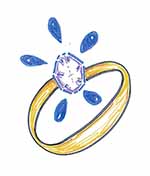 Roger needed to set money aside for opportunity. One time he got a case of jewelry from a guy at church for an undisclosed amount of money
and had plans to sell the stuff door to door. But the guy hadn't told him that it was costume jewelry, and nobody wanted to purchase any
once they laid eyes on it. Roger made Trisha wear one of the rings to show it off at Sacrament meeting. But Sister Rauche, who was Relief
Society president recognized it as a fake right away. "That's a nice ring, Trish,"she said, "it looks almost like a real diamond. I don't
blame you for not wearing your good jewelry in public. It's too valuable to risk losing."Trisha reddened with humiliation. She told Roger
later to keep the phony baubles to himself.
Roger needed to set money aside for opportunity. One time he got a case of jewelry from a guy at church for an undisclosed amount of money
and had plans to sell the stuff door to door. But the guy hadn't told him that it was costume jewelry, and nobody wanted to purchase any
once they laid eyes on it. Roger made Trisha wear one of the rings to show it off at Sacrament meeting. But Sister Rauche, who was Relief
Society president recognized it as a fake right away. "That's a nice ring, Trish,"she said, "it looks almost like a real diamond. I don't
blame you for not wearing your good jewelry in public. It's too valuable to risk losing."Trisha reddened with humiliation. She told Roger
later to keep the phony baubles to himself.
 Then there was the boiler company. One day Roger became interested in commercial boilers. "Do you know the average age of a commercial
boiler in an American building?"he asked Trisha. She didn't know, so he told her, "twenty-five years. That's within five years of full
life expectancy. Most boilers in apartment buildings throughout the country are held together with baling wire and a prayer. We're looking
at a huge surge in demand for new boilers to start before next year is out. Every dollar I put into production funding will return two
dollars within two years. Rolled back in and that two would become four."Trisha wasn't sure.
Then there was the boiler company. One day Roger became interested in commercial boilers. "Do you know the average age of a commercial
boiler in an American building?"he asked Trisha. She didn't know, so he told her, "twenty-five years. That's within five years of full
life expectancy. Most boilers in apartment buildings throughout the country are held together with baling wire and a prayer. We're looking
at a huge surge in demand for new boilers to start before next year is out. Every dollar I put into production funding will return two
dollars within two years. Rolled back in and that two would become four."Trisha wasn't sure.
"I don't know,"she said.
"The day will come when you remember every word I've said just now,"said Roger, and Trisha did recognize his words a few days later when she read the pamphlet he'd left on the dresser. He had been pretty much quoting from it. She tried not to think about the money he was diverting to his new venture. She didn't want to complain, because that was one of Roger's rules--no complaining. And it was his way or the outdoors. She just needed a few more recipes for potatoes. Lucky's had them on sale at 39 cents for ten pounds.
A month went by and Roger came in from getting the mail waving an envelope. "It's from my investment fund," he said. He tore it open and read it through in a hurry. Trisha asked what it said, but he waved her off and read it again. "See?"he said, "I told you. My first dividend. Ten dollars, and there'll be more where that came from. Tell you what. I'll give you five extra for this week's groceries. Spend it on anything you want. Splurge."Trisha sighed, but she had to admit to herself that she was relieved. If he at least got his money back... And she was tired of potatoes au gratin with Velveeta four nights a week. Another month went by and Roger got another check for ten dollars. It was the last. Two months later and he was calling a disconnected number with his concerns about his equity situation. Trisha bought another block of Velveeta.
After Trisha complained to her mother about the food money, her mother sent her two dollars. Roger wanted it. "We're having ice cream tonight,"said Trisha. "After dinner we're having ice cream."Roger said that it better not cost over a buck eighty, because the Lord was getting His twenty cents. "I don't have change,"said Trisha, and Roger swiped a dollar out of her hand. He insisted on breaking the dollar himself and left with it. He drove off and was gone for a half hour. When he came back he gave Trisha forty-five cents. "What about the rest?"she asked. Roger told her there wasn't any left. Did she expect him to run her errands for free? She knew what the price of a burger and fries was. She also knew better than to bring it up. A two quart box of vanilla would do, she supposed, as well as any gallon tub.
The two dollars she'd received had come with a note from her mother: Trisha, this money is for food for the children. I know that Roger will try to get his hands on it, but you are not to give it to him. None of it. If I find out you let him take it, I'll never give you another dime.
Trisha couldn't sleep that night for thinking. Roger snored beside her as she turned uncomfortably on the old sagging mattress. Her mother had given them all their furniture, and it was getting beat up with years of moving. Roger would get into trouble with every employer he had. They hated Mormons, or they were liberals or civil rights socialists. A man who lived upright was no longer respected in this country, he'd said. He told Trisha that she was lucky she didn't have to work. He was the kind of man who knew how to take care of a woman. Trisha had nothing with which to compare him. The few boys she'd dated in high school were so demanding, she'd been overwhelmed by their expectations. They wanted her to attend events, meet family and socialize with strangers. And they were grabby with their hands. Roger had been polite to the point of aloofness. She remembered hoping that he'd hurry up and commit. Now it bothered her to have thought that, and she couldn't sleep over it.
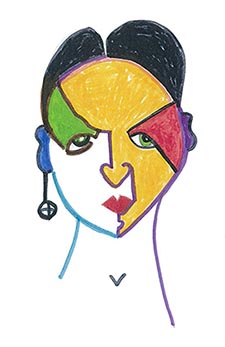 If she told herself that the religion was wrong from the beginning, it would be the same as saying she was wrong and she was stupid. It
was just a matter of nerves, is what it was. Her mother had always said she was high strung, hadn't she? She couldn't accept a calling
with her nerves, and that was all there was to it. She knew the other women talked about her. They spoke of little else, she imagined, as
she was never with them. And that's who gets talked about and slandered the most--the one who isn't present. Just recently, she'd received
a note alerting her of her son's truancy from Primary class. She knew that the others knew that she didn't stick around while the boy was
at Primary. She just dropped him off and picked him up after. And the worst thing about the note was that it was written and signed by
Sister Rauche, who was the Primary President as well as the Relief Society President. Trisha served no calling while Sister Rauche doubled
up. The woman was jealous. The other women were jealous. They all had callings that they had to do. But Roger had his rules, and Trisha had
hers. And she agreed with Roger that it was nobody else's business how they ran their home.
If she told herself that the religion was wrong from the beginning, it would be the same as saying she was wrong and she was stupid. It
was just a matter of nerves, is what it was. Her mother had always said she was high strung, hadn't she? She couldn't accept a calling
with her nerves, and that was all there was to it. She knew the other women talked about her. They spoke of little else, she imagined, as
she was never with them. And that's who gets talked about and slandered the most--the one who isn't present. Just recently, she'd received
a note alerting her of her son's truancy from Primary class. She knew that the others knew that she didn't stick around while the boy was
at Primary. She just dropped him off and picked him up after. And the worst thing about the note was that it was written and signed by
Sister Rauche, who was the Primary President as well as the Relief Society President. Trisha served no calling while Sister Rauche doubled
up. The woman was jealous. The other women were jealous. They all had callings that they had to do. But Roger had his rules, and Trisha had
hers. And she agreed with Roger that it was nobody else's business how they ran their home.
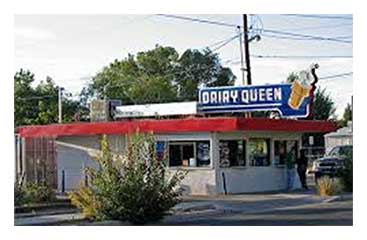 "You're semi precious to me,"' said Dad, and Jade knew he was teasing, though she didn't know what he meant. That was early in the car
with just the two of them and Mom at home with the baby. She remembered that the dashboard was high, and she was looking at the tops of
other cars and traffic lights and second floors of houses a lot. The car was a big Ford sedan with a bench seat. Dad would take her
to Dairy Queen and wink. Don't tell your mother. The two of them had ice cream together in a conspiracy of indulgence. Jade understood
that she was favored.
"You're semi precious to me,"' said Dad, and Jade knew he was teasing, though she didn't know what he meant. That was early in the car
with just the two of them and Mom at home with the baby. She remembered that the dashboard was high, and she was looking at the tops of
other cars and traffic lights and second floors of houses a lot. The car was a big Ford sedan with a bench seat. Dad would take her
to Dairy Queen and wink. Don't tell your mother. The two of them had ice cream together in a conspiracy of indulgence. Jade understood
that she was favored.
One time they were on a long drive, and it was hot like in a greenhouse under the windshield. Jade had on a pinstriped dress, and telephone wires striped the sky in her view. Dad had something to pick up after hours when no one was there at the school where he worked, and Jade wanted to get out of the house. The sun was getting low in front of them. Jade couldn't get comfortable on the hot vinyl seat. It wouldn't be burning the tender flesh of her legs if she had pants on instead of a dress. But Dad said that pants were for boys, and Jade was a girl.
"Do you know how much I love you?"' Dad asked, and Jade didn't think anything of it, because he said it all the time. "Do you really?"' he asked, looking away from the windshield and down at her. She felt like he was trying to blame her for something like Mom did. It was always Jade's fault if Mom got frustrated and slapped her. She didn't want to do it, but Jade had pushed her too far. Dad sounded like that now. He sounded like it was going to be Jade's fault that he loved her so much. "I would give my life for your chastity,"' he said. Jade cautiously asked him what he meant. "I would let men kill me if they were trying to take your virtue,"' he said, but that didn't explain anything. Jade was uneasy with the thought of men taking from her. She imagined rough hands and rough treatment.
After that things just got worse for Jade. Her baby brother Danny learned to walk and then to talk, and worse, to sit up on the bench at church next to Dad. Jade used to sit on one side of Dad with Mom on the other. Then she had to sit on the other side of Mom, because no way was Mom not sitting next to Dad. She said she got nervous when she didn't. Dad whispered to Danny during sacrament meeting and shushed him into reverence. Jade could lean forward and look across Mom's lap to watch the baby getting all of Dad's attention. She couldn't see what was so special about Danny. One cross word and he'd be bawling. You couldn't look at him wrong and he started rocking in his high chair and spilling his dinner. Then of course who'd get blamed for his tantrums? Jade made him do it, they always said.
 And then they made her babysit him, which is how she got into the most trouble. Mom dropped her and Danny off at the grade school for the nickel movies one Saturday. "You watch your little brother until I come back,"' Mom told Jade before driving away in the Ford. Jade took four-year-old Danny into the school gym, which had been set up with folding chairs, a projector and a movie screen. The two surrendered their nickels and were granted admission plus a red and white striped paper bag each of dry popcorn. There was a Three Stooges short that Jade didn't care for, and then a long cartoon from the Chinese that was too slow. Jade saw a girl she knew from class and left Danny for just a minute to go talk with her. The girl was telling Jade about her pony she got for her seventh birthday. The pony was being kept at her grandma's, and Jade could come over and see it anytime. They could even go now, because the girl's mother was there at the school with her and bored anyway.
And then they made her babysit him, which is how she got into the most trouble. Mom dropped her and Danny off at the grade school for the nickel movies one Saturday. "You watch your little brother until I come back,"' Mom told Jade before driving away in the Ford. Jade took four-year-old Danny into the school gym, which had been set up with folding chairs, a projector and a movie screen. The two surrendered their nickels and were granted admission plus a red and white striped paper bag each of dry popcorn. There was a Three Stooges short that Jade didn't care for, and then a long cartoon from the Chinese that was too slow. Jade saw a girl she knew from class and left Danny for just a minute to go talk with her. The girl was telling Jade about her pony she got for her seventh birthday. The pony was being kept at her grandma's, and Jade could come over and see it anytime. They could even go now, because the girl's mother was there at the school with her and bored anyway.
Jade got her last beating ever that day as soon as she got home from seeing the pony. Mom screamed at her about leaving Danny alone at the school, and Dad grabbed her by the arm and dragged her to her room. He didn't wait till they got there to start swatting at her butt, and she held her free hand back there to try to block the blows. He sat on her bed and pulled her over his knees and clapped hard at her bottom. She cried out and struggled, but he kept forcing her back into place on his lap. When he stopped he told her that he loved her. "No you don't,"' she said, "not anymore."' She felt him tense up even as he loosed his hold on her. It was as if he was letting her go and at the same time holding something back. She couldn't imagine what it was.
At first the doctor was behind his desk and seated. Then he was on his feet and animated once Dan had settled into the cold embrace of a contoured chair. The walls were panelled behind black steel bookcases stuffed with thick books. Dan looked at the titles but found that most were desk references in annual volumes--dry stuff. He preferred science fiction anthologies, but he also read novels by Steinbeck and Twain, among others. The doctor interrupted his thoughts with the question: "Do you know why you're here, Dan?"It was annoying. Obviously the guy already knew and was trying to get a response out of Dan. He nodded and looked over the doctor's desk. There was a stack of files that were from from county cases, no doubt. Dan knew the guy was county, because he was under court order to talk to him from the truancy hearing.
Are you mute?"the doctor asked. Dan shook his head. "A hard case,"the man went on. "Is that it it?
"No,"said Dan
"He speaks."
"Now that's cold, man,"said Dan.
"See how it feels?"the doctor asked. "I'm here to help you."Dan doubted it. Nobody had ever helped him before. There was a lot of talk about what was best for him. He was fourteen and too young to choose his own hairstyle, unless he chose short on the sides with a pompadour over the forehead, heavy on the grease like Dad. He could also choose to sit through three hours of church every Sunday and listen to propaganda concocted by eighty-year-old men in Salt Lake City. Or he could choose punishment.
"How can you possibly help me?"Dan asked.
"See?"said the doctor, leaning back against a corner of his desk so that it caught him in the ass, "that's more like it. Though there was a blank pause there. Do you have trouble concentrating?"Dan could listen to Black Sabbath songs over and over until he had all the lyrics memorized, but he couldn't stand five minutes in a church pew. He was beyond fucked, and he knew it. Classes at school were too long and the air was stuffy. He'd passed out or had seizures in classrooms a few times, he couldn't remember how many.
"I'm gonna take that pause as a yes,"said the doctor. "Are you epileptic?"Dan thought about how Mom had told him that he was tested and not found to be epileptic. He did have a grand mal in junior high when they'd lived in a different town. But the test results were inconclusive or something.
"I don't know,"he said.
"Okay,"said the doctor, "never mind that. Why don't you tell me what you need most right now?"
"I need to get out of this room,"said Dan, "it's getting too warm in here."
"It's only 72 degrees in here,"said the doctor, "what do you think is really bothering you?"Dan was thinking that a doctor was bothering him. Earlier it'd been his father, bitching about something he did or didn't do. Maybe his mother, too. Or his grandma, God knows that woman's an old bitch. His older sister teased him constantly when he was trying to read. Everybody was in his face all the time, and now a doctor had been added to their numbers. The court had done that. The court could go fuck itself.
"I'm supposed to stay in the house, which is about the size of a double e shoebox, and act like a Mormon puppet until my father comes home in a bad mood, and I'm in trouble. I can't stand it, so I walk out and keep walking until I'm downtown. It's the only way to clear my head, and I'm forbidden to do it. But I do it anyway, and I get into trouble and end up here."
The doctor listened, nodding his head. Then he said, "I have got to get your father in here."
Dan's father was late picking him up from the shrink's office. The doctor had offered Dan a ride home when he locked up, but Dan turned him down. Dad would be furious if Dan wasn't there waiting for him when he arrived. With Dad it was always better to put the burden on yourself and try to make things easier for him. The man could hold a grudge. He'd been angry for two years since Dan had confessed to agnosticism. "I don't why you would expect me to do anything for you,"Dad had said, "when you're not willing to work on your testimony. It just isn't that much to ask, and it's essential for your salvation anyway."
It was getting dark when Dan got into the car, and Dad was in no mood for talking. He didn't even ask about the session with the psychologist as they drove past gloomy open acreage and dense orchards on the way to the outskirts of Elgin. Their house was a little wooden box on stilts just two miles out of town. Dan went to his bed in the utility room to lay down and think. He had a dresser crammed in there and the back door for easy access to the rear yard area where he went to smoke cigarettes when the house fell silent at night. His three sisters had a tiny bedroom next to Mom and Dad's room, and there was one bathroom off the kitchen. Dad would sit in there and shit and stink up the whole house. He always lit a match after crapping like it was a superstition. It didn't help at all with the smell.
Sometimes when Dan looked at his little house from outside he thought of the guys in Tortilla Flat who slept in migrant shacks and drank wine outside all day. They stole each other's money to purchase jugs of wine with good intentions. The wine was to be shared. Of course it was consumed by whoever got his hands on it first. Like Dad's paychecks, it never got by the first man who thought he needed it more than the others. Dan almost never had more than a nickel in his pocket. He picked crops and mowed lawns when he could get the work, and his father would set upon him to pay a tithe to the church. He felt like a Steinbeck character from another book, Lennie, who worked and worked for nothing but meals and a cot. The man had been thrust into a world with no place for him, and Dan could understand that. He even had the dreadful notion that he would come to the same end as Lennie, finished off by his own caretaker at the banks of an obscure creek.
It'd been a week or so after Dan's visit with the doctor when Dad came into the utility room and stood at the foot of Dan's bed like an uninvited guest. It seemed like his very presence was a hassle in itself. Dan supposed that was because the man never came at you with good news. "You know what you have to do tomorrow?"was one of Dad's favorite conversational gambits. No one ever wanted to hear the rest of what he had to say. This time he stood for a moment and pretended to be concerned with the book Dan was reading. "It's a Ray Bradbury short story collection,"Dan said before he was asked. He'd learned to play along and pretend that Dad cared.
"Science Friction,"Dad said dismissively. "Don't forget to set some time aside for the scriptures."Dan groaned. "The reason I came to talk to you,"said Dad, "is because that psychologist of yours has asked me to be there for your next session. What do you think he wants to say to me?"
Dan shrugged. "How should I know?"
"You've talked with him. I thought maybe he'd discussed what he wants with me."
"Well, he hasn't, Dad."
"I'll tell you what. I'll do this for you, Dan. Just this one thing, and I don't even know why, since you can't be bothered to do anything for me."
"Like making myself into you?"said Dan. "Gee, I'm sorry I can't do that, Dad. Have you noticed that no one else can either?"
Dad folded his arms, always a bad sign. It was how he prayed and judged both. When his arms were folded up like that, you expected him to start talking crazy about Jesus or morals or some shit. "Your sisters manage to attend all their meetings and conduct themselves with reverence."
"Do they scrape out the chicken coop, Dad? Do they cut weeds with grass clippers all afternoon? Do they get up before dawn for priesthood meetings? I don't hear you yelling at them about their hair, and I've never seen you beat them up. They don't go to bed without dinner for backtalk or get grounded for not believing in God, do they?"
"You don't need a doctor,"Dad said, "you need an attitude adjustment."
"Is that it?"Dan held out his paperback in one hand with the thumb in it to save his place, "because I want to get back to my book here."
"That's some gratitude after I just promised to do you a favor, Dan."
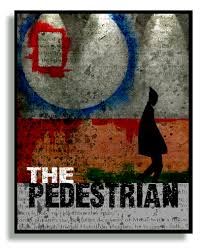 Dan was two paragraphs in before he could focus again on the story he'd been reading. It was about a guy who got arrested for walking and was titled, "The Pedestrian."Dan knew all about taking heat for walking; he walked into Elgin by himself about four or five times a week, and without permission. Cops had been bringing him home since he was four years old. He laughed at kids his age who were excited about police ride-alongs. They were small town amateurs, and most of them didn't even know the best part of their own town was between the pool hall and the hotel, which was the tallest building at four floors. Somebody in town always had an uncle or something staying at the hotel, and the guy would have whiskey or weed in his room. The pool hall was self-explanatory, as the smoky air inside indicated an abundance of tobacco. Not to mention that, in Dan's opinion, pool was the coolest sport ever invented.
Dan was two paragraphs in before he could focus again on the story he'd been reading. It was about a guy who got arrested for walking and was titled, "The Pedestrian."Dan knew all about taking heat for walking; he walked into Elgin by himself about four or five times a week, and without permission. Cops had been bringing him home since he was four years old. He laughed at kids his age who were excited about police ride-alongs. They were small town amateurs, and most of them didn't even know the best part of their own town was between the pool hall and the hotel, which was the tallest building at four floors. Somebody in town always had an uncle or something staying at the hotel, and the guy would have whiskey or weed in his room. The pool hall was self-explanatory, as the smoky air inside indicated an abundance of tobacco. Not to mention that, in Dan's opinion, pool was the coolest sport ever invented.
Whenever he was home and not working, Dan was expected to entertain his sisters. They needed him for a fourth in board games and with cards. They begged him to imitate celebrities on TV. He always made their favorite stars look and sound like jerks, which is how he saw them, but the girls didn't mind. They wanted attention paid them and they weren't going to get it from Mom. She was too busy with her role as a stay-at-home mother of Zion to make time for her role as a mother of children. She did a lot of reading behind a closed door. Dad pretended it was the scriptures Mom was reading, but it was crime novels every time. She was left alone to read under strict orders from the migrant house boss himself. But when Dan tried to read on his bed, his sisters teased him to distraction or tugged at his feet and pulled him off the end of his mattress. It was those needs of his which most resembled his mother's that were most unmet--privacy, solitude, and time to reflect. These were denied him in his walk-through living space as if his identity were expected to function as walk-through too.
On the drive to the psychologist's Dad just couldn't help himself. "I don't know why I'm doing this for you..."
"Dad,"said Dan, "I'm not in the mood, okay?"
"You sound like your mother. Maybe it's her who should be going with you to that doctor with the problems you two have."
"Don't go in with me then,"said Dan, and he realized that he meant it. He had a bad feeling about the whole thing.
"Some of us keep our promises, Dan. You need to learn how to follow through with your obligations. This will be a good lesson for you."
Dan wondered about the value of lessons that found it necessary to pronounce themselves good. He wasn't worried about learning. It was what he would learn that concerned him. And when he put it that way, Dad never did disappoint.
Dan wasn't surprised when his father took the seat farthest from the doctor's desk and nearest the door. The doctor introduced himself and asked Dan's father what he thought was troubling his son. "His failure to do what he's supposed to do has created a hardship for him, and he's rebelling. He doesn't want to deal with the consequences of his actions. If he would get right with the Lord, all this would go away."Dad made a sweeping gesture at the office with his right hand, as if dismissively. Dan's eyes met the doctor's for a moment, and he nodded in his father's direction as if to say, "see what I mean?"
"Don't you think that the two of you could make some kind of compromise?"the doctor asked hopefully.
"There is no compromising the will of God,"said Dad. "Is that something they teach you in psychology, that you can compromise God?"
The doctor looked back and forth between Dan and his father. It was like he was trying to make some kind of connection between the two. There was a sense of impotence and resignation in the air, and it reminded Dan of the time his English teacher forgot her lesson plan in front of the class. No one spoke for a moment. Finally Dad stood up, folded his arms, and said, "This is useless. Matters of the spirit have no place in man's knowledge. I don't care what you think you know, you'll never catch up with the Lord."With that Dad left the room and went to the car. Dan looked out the door and watched him drive away. He turned back and looked at the doctor.
"I'm sorry, Dan,"was all the man had to say.
Dan just wanted to know could he get a ride home, or should he start walking?
Sugar had wanted to kill me every time I walked into the duplex. She was about forty pounds of taut anger in the shape of a pit bull. Doodle had to put her out through the sliding glass door to the side yard whenever I came over. She wasn't there this particular Saturday evening. She wasn't anywhere, because the city had put her down the day before for chewing through the fence and the neighbor's Chow dog. White fur stained with blood was about all that was left of the Chow, and Doodle was thrown into mourning, a condition he corrected with the purchase of a second iguana the next morning. The new lizard was twice the size of the old one, and both lived in the coat closet by the duplex's front door. If you opened the closet door, you'd find the two lizards attached to the sheet rock wall. They turned their heads and hissed at you.
 "You're gonna love this fish, Don,"Doodle said as he led me to his 100 gallon fish tank. "I just got an oscar, and I feed it goldfish. Watch."He removed a plastic bag that had been floating near the top of the aquarium with goldfish in it. He turned the bag over and released the goldfish into the tank. The larger oscar immediately chased the goldfish down and one by one swallowed them whole. It ate until half a goldfish was hanging out its mouth. "He doesn't know when to quit,"Doodle said. I wanted to know what was the fish that lay in the gravel with its head buried. It was a horse face loach, said Doodle, and he called it Terry. It shared its given name with his roommate, who was my cousin.
"You're gonna love this fish, Don,"Doodle said as he led me to his 100 gallon fish tank. "I just got an oscar, and I feed it goldfish. Watch."He removed a plastic bag that had been floating near the top of the aquarium with goldfish in it. He turned the bag over and released the goldfish into the tank. The larger oscar immediately chased the goldfish down and one by one swallowed them whole. It ate until half a goldfish was hanging out its mouth. "He doesn't know when to quit,"Doodle said. I wanted to know what was the fish that lay in the gravel with its head buried. It was a horse face loach, said Doodle, and he called it Terry. It shared its given name with his roommate, who was my cousin.
Terry was slumped in the couch, with one arm propped up on a throw pillow, and the other arm reaching out to tap cigarette ashes into a large orange plastic ashtray that was shaped like a cantaloupe rind. He had medium length hair like mine, only a little blonder. Doodle had a cop haircut with sideburns. His hair was black and curly. It had been like a fro when he'd grown it out in high school. The three of us had gone to Roseville High School, But I'd only gone a few months before getting a GED. My family'd moved at the end of my junior year. We moved a lot. Smoke curled up from the mouth of a bong near Terry's foot on the coffee table. Doodle warned him not to kick the pipe over.
 "Well you put orange peels in the ashtray, man,"Terry said.
"Well you put orange peels in the ashtray, man,"Terry said.
"That's garbage,"said Doodle, "where else should I drop it?"
"You don't put garbage in ashtrays, Doodle. They're for cigarette butts."
"Which are tiny pieces of garbage,"said Doodle.
Terry grabbed the remote and turned up the TV volume. John Wayne was calling some cowboy a pilgrim. That was how Terry ended an argument. He turned up the TV. Doodle said there was a ninety percent chance that whatever Terry was watching would have wagon wheels and John Wayne in it. And Terry would always have his acrylic bong within reach. He'd told me himself that he woke up every two hours at night and had to take a hit, smoke a cigarette, and gulp down some scotch. It was the only way he could get back to sleep. And he napped afternoons. The naps especially seemed odd to me. I was twenty-four, and he was almost two years younger than me. And waking up every two hours?
Doodle and I were going out nightclubbing that evening. Terry had a date with his girlfriend, a cute Italian girl who had just finished high school. Doodle got me a cold beer from the fridge. He said that the more you drink in advance, the less you spend at the bar. The trick is to let the ladies think you have money. He had a lot of girlfriends and liked to talk about it. He said he knew what they wanted and I listened like an apprentice. My nerves, of course, would make me forget everything he said later. But I wanted to go out and meet girls anyway.
The phone rang and Doodle picked it up. It was Terry's girlfriend, Lisa. Terry took the phone, and I could see him shaking his head no. He told Lisa that he was sick. Something with his stomach and, no, he couldn't make their date tonight. He'd see her tomorrow.
"No he won't,"said Doodle, "tomorrow's Sunday and football's on. He won't let her get between him and the TV."
Terry went back to the couch and said, "that's it. I'm watching the rest of this movie. I'm tired of all these hassles."
He refused to budge when someone knocked on the door, so Doodle answered it. "It's your home teachers,"he called to Terry, "from your Mormon church."
I immediately thought that the home teachers probably knew my father. To them, Terry and Doodle's living room would look like an opium den. I would have to hear the complaints and judgment from my father. I quickly slipped into Doodle's room and quietly closed the door behind me. When I came out of the room, Doodle laughed at me. "You should've seen how scared you were of those Mormons,"he said. My cheeks burned. How could I explain my thoughts without sounding nuts?
Terry was sitting on the couch again, and I asked him about the home teachers. How did he get rid of them? He said he told them no way were they coming in, and they said they would tell the bishop. He said he told them to go ahead. And I said, but your dad. And he said my old man is too stubborn to be told what to do with his own son by those guys. So there was a difference between our fathers. We were cousins by marriage. "Another hassle,"said Terry, "another goddam hassle. When will it end?"He reached for his bong and lighter.
Doodle and I headed for Sacramento after dark in his pickup. He had a nice Toyota with a bright yellow paint job and an aftermarket stereo. He shoved in a live Neil Young cassette and fast forwarded to "Hurricane,"his favorite song. We were going down the freeway, and he reached over to the glove box for his harmonica. He held it up to blow into it while steering with his elbows. "I'll be good at playing this in two months,"he said.
"If we survive the accident, Doodle."
"I can steer with my knees if I have to."
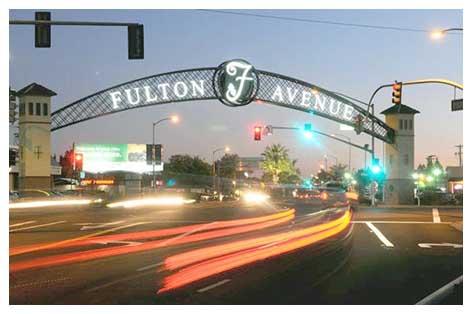 I didn't want to tempt him, so I said no more. He honked away at the Neil Young song, hitting a variety of notes with the harmonica. His elbows steered us onto the off ramp for Fulton Avenue. "You are like a hurricane,"he sang with the tape. I said it was a shame Terry wasn't with us. Doodle blew a couple of twangy notes and said, "He has an eighteen-year-old girlfriend. He shouldn't be with us. I wouldn't be with us."
I didn't want to tempt him, so I said no more. He honked away at the Neil Young song, hitting a variety of notes with the harmonica. His elbows steered us onto the off ramp for Fulton Avenue. "You are like a hurricane,"he sang with the tape. I said it was a shame Terry wasn't with us. Doodle blew a couple of twangy notes and said, "He has an eighteen-year-old girlfriend. He shouldn't be with us. I wouldn't be with us."
Halfway down Fulton we pulled into the parking lot at Dee Jay's, which used to be The Palomino when it was country. Inside there were twenty inch color TV sets mounted in all the ceiling corners. They were showing a DEVO video on all the screens with the sound off. There was music blasting, but it was a Tears for Fears song called "Everybody Wants To Rule The World."Doodle got lost in the crowd, and I went to the bar for a drink. There were three girls on barstools about ten feet from me, and I was looking them over. Two were thin with fake blond hair and one was plump with auburn. The girl with the darker hair was pretty cute, and I was thinking like John Nash with a game theory and waiting for the skinny ones to get approached by other guys. Then I would swoop in on the single one who wasn't bleached.
By the time I got the bartender's attention, the two blondes were gone, and the other girl was alone at the end of the bar. I gulped my vodka collins and approached the girl. I had to ask her twice for a dance, because the music was too loud for conversation. It was Missing Person's "Words"pounding out of the club's sound system. I loved that song. But the girl shook her head. She'd prefer to dance with no one over me. The sound was too loud for my nerves. The lights were too bright. I felt claustrophobic and had to get outside. There was a patio area out there for smoking and conversation.
I lit a cigarette out front and watched the traffic on Fulton go by. It was all slow and bumping with loud car stereos. I was standing by a fake tree that had been stuffed into a concrete planter when this guy asked me if I had a light. He was wearing cowboy boots and parachute pants, which I thought was an odd pairing. "Slow tonight,"he said, and I nodded, though the place was packed. I knew what he meant. "Thought I'd try a different look,"he went on, blowing out smoke, "but nothing seems to impress these rich chicks."That was what I thought he meant. My Wards clothing said working serf as sure as it had a voice. The girls inside had looked pretty fancy, now I thought on it. I wished I could remember what Doodle told me.
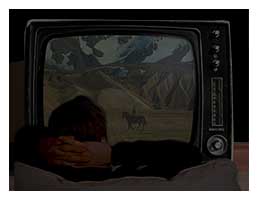 So Parachute and I must have smoked three more cigarettes by the time Doodle came out front with a cute brunette on his arm. "Could you do us a favor, Don?"he asked, "could you drive her car home?"He handed me her keys. "It's a metal flake blue Camaro. Just park it in front of my place and leave the keys under the welcome mat. She's going home with me."I agreed and watched Doodle and his date get in his pickup and leave. He later told me that he got her to believe he owned a swimming pool cleaning company. It was then that I remembered his advice.
So Parachute and I must have smoked three more cigarettes by the time Doodle came out front with a cute brunette on his arm. "Could you do us a favor, Don?"he asked, "could you drive her car home?"He handed me her keys. "It's a metal flake blue Camaro. Just park it in front of my place and leave the keys under the welcome mat. She's going home with me."I agreed and watched Doodle and his date get in his pickup and leave. He later told me that he got her to believe he owned a swimming pool cleaning company. It was then that I remembered his advice.
The brunette's Camaro was sweet on the freeway at night. Its interior was flawless and shiny in the flashes of streetlight that swept over the vinyl tuck. The car had the look of something that belonged to someone who was used to having nice things. And the owner was a young woman with a cherubic face and a good looking pair of legs. She wouldn't have to be single if she didn't want to be. Doodle had gotten her to choose him somehow. I realized that I was the guy who smoked cigarettes outside of nightclubs and drove other people's cars home. With that unpleasant thought I checked my wristwatch. It was almost midnight. By the time I got home the all night movies would have started on the UHF station. They usually showed westerns.
Being downstairs in the strange house was getting on my nerves. My whole family and the family who lived there were talking loud all at once around the dinette set and in the living room. Some of the kids who lived there were still eating their cereal before church. My family had driven there so that we could attend services with their family. I'd had to get up real early that Sunday morning to get ready before we drove to another town to attend another ward. I didn't see any sense in it myself, but Mom and Dad wanted to do it. We had driven what seemed like a long ways to me when we pulled into our host family's suburb. I saw the top of the spire of the Mormon church on the way in and knew we'd be sitting through long meetings under it within the hour.
It was a two story house we were visiting, and I hadn't seen any bedrooms downstairs. I went up to the second floor by myself to have a look around. Murmurs from downstairs followed me up the steps and faded as I walked through the hallway. I opened doors and looked in until I found the boys room. They had some nice toys in there. I found some army soldiers and a toy tank to play with on the floor. I made machine gun noises with my mouth and knocked over soldiers so that the windup tank could run over their dead bodies. One soldier was the lone survivor, and he had to face a growling, advancing tank. The odds were against him and there was no one to help. I wasn't sure how it was going to go for him. Then the tank stopped running, and everything went quiet.
 I looked up from my kneeling position on the carpeted floor. I tilted my head and held my breath for a moment but heard nothing. Then I went to the bedroom door and opened it. The hall was quiet, and there was no sound, not even a whisper, coming up the stairs. I went downstairs and found all the rooms unoccupied. I unlocked the front door and saw that the driveway was empty. Both cars had gone. I'd been left when everyone went to church. My first thought was that I was going to get it for sure. Dad would kill me. Then I remembered seeing the church spire. Which street had I seen it from? Which way should I start walking?
I looked up from my kneeling position on the carpeted floor. I tilted my head and held my breath for a moment but heard nothing. Then I went to the bedroom door and opened it. The hall was quiet, and there was no sound, not even a whisper, coming up the stairs. I went downstairs and found all the rooms unoccupied. I unlocked the front door and saw that the driveway was empty. Both cars had gone. I'd been left when everyone went to church. My first thought was that I was going to get it for sure. Dad would kill me. Then I remembered seeing the church spire. Which street had I seen it from? Which way should I start walking?
I had an idea of the general direction, so I started to walk. I turned some corners and hiked for several blocks before I saw the tip of the spire. It was the only time I'd ever been glad to see one of those things. They represented boring meetings and interminable confinement. But I had lost my moorings and been abandoned in a strange house. For once I felt that I'd prefer to be in a familiar chapel listening to the soft drone of men with nothing to say while sitting on a hard bench. And I was dressed for it, so I just walked right into the building and found my parents in the back pew like always. We never sat up front. Why did you leave me in their house? I asked my mother. She said they figured I was somewheres in the rear of the station wagon laying down behind the seat, but now that she thought of it I'd been awful quiet back there.
I had just pushed a stolen Jimi Hendrix tape into my eight track player when my father yelled for me from the dining room. I pulled the tape back out and reluctantly left my room to see what was the matter. Dad was sitting at the dining table and writing a check. It was the first check I'd ever seen him write, as he was very secretive about money. I was told only that there wasn't enough of it to go around and nothing more. Hold on while I write this tithing check, he said, it'll just take a minute. He slid the check over to one side as if to make it easier for me to see. Then he wrote out two-and-a-half thousand dollars to the Salt Lake City church. One year's tithe, he remarked. His tone was that of someone answering a question. At the sight of the check I forgot that I'd been summoned.
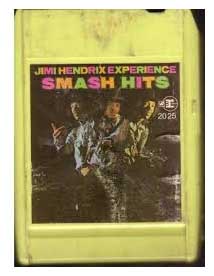 I asked you for five dollars a week allowance, I said, and you told me there was no money. This is the Lord's money, said Dad, and I have a covenant. I could feel my lips vibrating. One percent of that check, I said, my voice coming out like a sob. That's all I'm asking for, just two hundred and fifty dollars a year. He said, two sixty, really. I don't have that kind of cash to throw around. You don't understand money, Don. That's why I don't let you get a driver's license or a job. You can't handle it. Goddamit, I said, and he said, you can't even hold your tongue, see? How is anyone ever going to trust you?
I asked you for five dollars a week allowance, I said, and you told me there was no money. This is the Lord's money, said Dad, and I have a covenant. I could feel my lips vibrating. One percent of that check, I said, my voice coming out like a sob. That's all I'm asking for, just two hundred and fifty dollars a year. He said, two sixty, really. I don't have that kind of cash to throw around. You don't understand money, Don. That's why I don't let you get a driver's license or a job. You can't handle it. Goddamit, I said, and he said, you can't even hold your tongue, see? How is anyone ever going to trust you?
He'd been riding me for a couple of years about my poor choice in friends. Why couldn't I hang out with a higher class of kids? And just around that time a couple of socially connected boys who were seniors at Elmira high school had taken me under their wing and talked me into running for student body government. I was a junior, and I ran for treasurer. In my speech to my classmates in the gym I had promised to try to schedule more school dances with live bands. That got some applause. But my new friends wondered why I didn't have any money to campaign with. My father was school superintendent and had the highest salary in town. Yet my pockets were empty--no lunch money, no allowance. Not even like five bucks? they asked me. That was where I got the figure. I didn't know enough about money to come up with it myself. Dad had said as much.
He just sat there at the dining table with his jaw set, staring at me like what do you want? His attitude shrugged. He was an asshole. My eyes were watering, so I thought it best to go back to my room. The Hendrix tape had been snatched out of a car in the school parking lot by a girl who smoked cigarettes with me on lunch break. Look at that, she said, and she reached in through the open passenger side window and grabbed the eight track off the seat. Live Hendrix. Once I'd returned to my room I shoved the tape back into the deck and turned up the sound until I could no longer hear the keening of my thoughts.
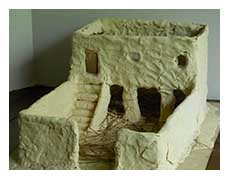 The building our ward rented was a large white adobe cube on a street corner next to a bridge. It resembled one of the salt dough houses we made in Primary that were supposed to be like what Jesus would have lived in. We had little window openings cut out in the houses and the really good ones had attached stairs on the side. I thought about how people lived in those things with no rooms inside and sat on the floor with no furniture. A lot of stuff was bad about the Bible times. You could get nailed to a cross and die. You could get leprosy. Joseph was beat up by his brothers and thrown in a pit to die, and all because he got a new jacket. Granted, his mother was a bitch for showing such blatant favoritism--dye was expensive back then. But favoritism was something I was used to; I knew it as a thing that was extended to others. Strangers, mostly.
The building our ward rented was a large white adobe cube on a street corner next to a bridge. It resembled one of the salt dough houses we made in Primary that were supposed to be like what Jesus would have lived in. We had little window openings cut out in the houses and the really good ones had attached stairs on the side. I thought about how people lived in those things with no rooms inside and sat on the floor with no furniture. A lot of stuff was bad about the Bible times. You could get nailed to a cross and die. You could get leprosy. Joseph was beat up by his brothers and thrown in a pit to die, and all because he got a new jacket. Granted, his mother was a bitch for showing such blatant favoritism--dye was expensive back then. But favoritism was something I was used to; I knew it as a thing that was extended to others. Strangers, mostly.
And crafts were the highlight. We had to sing crummy indoctrination songs like I Am A Child of God, because an invisible guy wanted us to engage with our appropriate age groups. The Lord didn't want me to share a class with my brother, just because he was two years younger. God was kind of a ratfink. They told me He was in charge of the church, and He put Primary on Tuesday afternoons when they showed monster science fiction movies on TV. One movie was about giant ants that attacked Los Angeles, and another one had giant crabs that ate people and absorbed their brains. I had to leave those movies twenty minutes in for Primary. A song I liked even less was Give Said the Little Stream. I could imagine the stream evaporating and being partly consumed by plants as it hurried down the hill. It would lose the last of whatever was left of it when it was absorbed into a river or a sea. I knew I was supposed to be the stream.
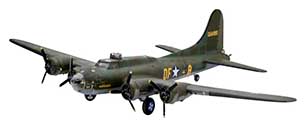 Even worse than the singing was the instruction. One time the teacher brought in a scale model of a B-17 bomber that was boss. It was painted military green and had a rotating gun turret and everything. See this airplane? the teacher asked as she held it up in one hand. Did I ever. I couldn't wait to talk about it and maybe even hold it. Think of this airplane as your life, she said. I was thinking of it as a B-17. Then she said every plane needs a copilot, and she set the model down behind her. It was behind her, and I couldn't see it any more. You can have God for your copilot, she went on, everywhere you go in life--church, school, home. Just tell yourself that God is with you, and you can ask Him for help. I was thinking, where did this go wrong? And it was only the beginning of the class.
Even worse than the singing was the instruction. One time the teacher brought in a scale model of a B-17 bomber that was boss. It was painted military green and had a rotating gun turret and everything. See this airplane? the teacher asked as she held it up in one hand. Did I ever. I couldn't wait to talk about it and maybe even hold it. Think of this airplane as your life, she said. I was thinking of it as a B-17. Then she said every plane needs a copilot, and she set the model down behind her. It was behind her, and I couldn't see it any more. You can have God for your copilot, she went on, everywhere you go in life--church, school, home. Just tell yourself that God is with you, and you can ask Him for help. I was thinking, where did this go wrong? And it was only the beginning of the class.
The La Grande public swimming pool was across town from Grandma's house, where we were staying. We were given a dime each for entry fees and directions for walking there. Three cars sat in the driveway, and four adults stayed behind in the house. If our parents wanted to go somewhere, like sacrament meeting, they'd take us in a car, even though the church was closer than the pool. So my two brothers and I walked with our towels and swimsuits draped over our shoulders. It was hot and sweaty going. Most of the streets were paved with gravel and lined with old houses. Empty porch fronts gaped at us as we passed; most people were indoors and out of the sun. Perhaps they would sit in their porch swings after dusk when the heat subsided. Our tennis shoes kicked up dust as we tramped over the dry grit underfoot.
The swimming pool was on the west side of town and surrounded by a cyclone fence. A building that resembled a concrete bunker fronted the property, and there was a window with a counter where you paid your ten cents, and they gave you a key for a locker. At nine I was oldest, and the lady told me we better not lose our keys like I was in charge. I nodded and led the way to the locker room with my brothers close behind. It was damp and noisy in there with thick air that stank of feet and armpits. My brothers and I changed into our swimsuits quickly without talk. The shouts of large boys and men echoed off the tile walls. A shower hissed around a corner somewhere. We hurried out to the pool.
 The pool was olympic style with a diving board that was too high. I did jump off it feet first. My brothers were six and seven years old, so they mostly stayed in the shallow end. In the deep end there was this big moosey kid about twelve years old, and he was trying to do flips off the diving board. He had bad form, and on one try he smacked his butt on the board, flopped off and fell into the water sideways. I laughed and he heard me. I tried to look away, but he caught my eye for a moment. He didn't look pleased. I swam to the shallow end and hung with my brothers till we were ready to leave.
The pool was olympic style with a diving board that was too high. I did jump off it feet first. My brothers were six and seven years old, so they mostly stayed in the shallow end. In the deep end there was this big moosey kid about twelve years old, and he was trying to do flips off the diving board. He had bad form, and on one try he smacked his butt on the board, flopped off and fell into the water sideways. I laughed and he heard me. I tried to look away, but he caught my eye for a moment. He didn't look pleased. I swam to the shallow end and hung with my brothers till we were ready to leave.
I had my clothes on when I went to the urinals in the locker room. I had to pee before we left for the long walk back to Grandma's. Just as I was finishing, I saw movement off to my right. I turned my head and saw the moosey kid's face just before his fist blocked my view and smashed into my nose. A sharp pain exploded in the middle of my face before spreading over my cheeks like a hot rash. My eyes watered, and I heard Moosey laughing as he backed away. I don't even remember zipping up my pants. All at once I was after him, and he ran out of the locker room and then out of the building. On my way out behind him I passed a line of adults waiting with their children and grandchildren to get into the pool. "F-U-C-K you!"I screamed at Moosey, only daring to spell the forbidden word. The adults in the queue turned their heads away. They knew a bad boy in the making when they saw one.
Saint George was a smattering of white houses in a valley surrounded by red cliffs. It looked like a bunch of one dollar chips had been placed on a craps table in anticipation of a lucky roll. Dan and Merry overnighted in the pencil box of Sister Tophet's single wide there. The place had two bedrooms behind a tiny bathroom in back of an L shaped kitchen. The living room was up front with a bay window on the end that grinned at the trailer court.
"I like this place,"said Dan, looking around at the interior, "it has a lot of paneling."Sister Tophet said her husband had picked it out brand new just eighteen months before the Lord called him home for his next mission. He'd served twenty years in the military, which was how she'd met Merry's family. Merry's father had been an Air Force courier, and Sister Tophet used to babysit Merry and her brother, though Merry's family wasn't LDS.
Sister Tophet's hair was a white puff swept up like a dandelion blowball. She patted at it and apologized for not having it done recently. Her girl was out of town, and she always had the same stylist do her hair. She didn't know the others to trust them.
When Dan told Sister Tophet how much he and Merry had enjoyed driving through Zion national park with its sandstone cliffs and pink and orange rock arches, she went to her bedroom and came back with a thick BLM pamphlet for Utah. "Lowell and I used to use this for a guide to scenic places around the state,"she said, "I'd like for you and Merry to have it."
Dan looked at the section on Zion park and read about the long highway tunnel that he and Merry had driven through. It was over a mile in length and the longest tunnel of its kind when it was built in 1930. It had cut outs in the rock along one side like windows. Merry had honked the horn in it while she drove through. She'd said her father used to honk the horn in tunnels wherever they lived. He liked to hear the echo.
A photo of the Saint George temple hung on the wall in the narrow throat of the trailer's hallway. Dan and Merry had visited it earlier in the day. It was a big wedding cake of a building with a crenellated parapet for a frosted rim on top. A high cupola rose up from the front of the temple and was topped with a Gabriel-looking angel blowing a horn. The angel had no wings. His name was Moroni. Dan's father had taught him that Moroni was one of the ancient authors of the Book of Mormon, but Dan hadn't believed it. To him it had the same validity as his father's belief in prophecy or faith healing, which is to say none.
Sister Tophet told Dan and Merry of when she and Lowell had once lived right across the street from the Toronto temple. Lowell was retired by then and doing some contracting work for a Canadian firm, she couldn't recall which. But late one night she was up with insomnia and in the kitchen for some warm milk, and she looked out and saw that the lights were on in the windows of the temple's upper floor. She imagined that someone must have broken in, and she asked the temple president, who was in her ward, about it at the next sacrament meeting. He told her not to worry, as it was Jesus going over church records in there. "Imagine that,"she said, pressing the palm of one hand to her bosom, "the Lord was right there across the street from us."
The next morning Dan and Merry were driving north on I-15 out of St. George. "Did you like Sister Tophet?"she asked. Dan nodded. "She's kind of out there, though,"he said, "with the Jesus stuff. And what did she mean when she said I would be good for you, because I had no bad habits?"Merry shrugged. "I guess she was comparing you to all my other boyfriends."
"How many were there?"
"Not that many, Dan."Merry's voice was edgy. I've hit a nerve, thought Dan. I'd better shut up, or we'll get into it. He remembered his mother's and father's muffled screams and bumps from behind the closed door to their back bedroom. His older sister, Jade, who they were driving to Provo to visit, had turned up the TV volume each time the fighting noises had come down the hallway. Usually the youngest sibling would whimper. Dan couldn't remember feeling anything for Mom and Dad. It had been background noise to him. His little brother's bawling was what had bothered him, and he avoided fighting with anyone to keep the cries from playing back in his head.
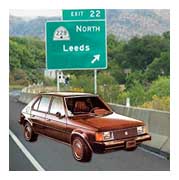 Merry was driving the Dodge Omni hatchback they'd bought with money they'd saved while serving in the military in Germany. They'd both worked at the Army hospital in Frankfurt, where they'd first met. And they'd both lived in California's central valley before enlisting, so they agreed they'd move back there after finishing their tours of duty. Zig-zagging across the country in a new car was like a second honeymoon for them. They'd been married for eleven months.
Merry was driving the Dodge Omni hatchback they'd bought with money they'd saved while serving in the military in Germany. They'd both worked at the Army hospital in Frankfurt, where they'd first met. And they'd both lived in California's central valley before enlisting, so they agreed they'd move back there after finishing their tours of duty. Zig-zagging across the country in a new car was like a second honeymoon for them. They'd been married for eleven months.
Their Dodge had the best audio package available for that model--four speaker FM radio with no cassette deck--and Dan tuned in a weak station playing AC/DC's "Back in Black."He told Merry about how the group's lead singer had been found dead in a parked car earlier in the year. He'd been left in the car to sleep off a drunk, and he'd stopped breathing sometime during the night. "Why are you always going on about crazy dead people?"Merry said, "it's like an obsession with you. Edgar Allan Poe, Vincent Van Gogh and all them."
"I like their creativity."
"I think you like their madness. You want them to be crazier than you."
Dan sniffed. "You think I'm crazy? I didn't say Jesus was across the street from me."
"You have blank spells."
Dan said nothing. He didn't want to trigger the sobbing thoughts. He listened to the AC/DC song and the static interference from the mountains that threatened to overwhelm the music with noise. Sometimes his thinking got away from him, and he couldn't concentrate. It got him into trouble at work. "Hello, Danny, are you in there?"his sergeant used to ask. He was thinking he needed a job that didn't require focus. Before the Army he'd been a janitor, and that had suited him. But it didn't pay. The Army had paid, but at a price. The stress had rattled him, and three years of it had been more than enough. He was glad to be a civilian again.
Merry pulled off the freeway at Leeds for gas. There was a BLM sign by the side of the road, and she read it aloud: "Little Purge a Torey Trail."
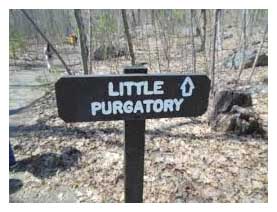 "That's purgatory,"said Dan, "Little Purgatory Trail."
"That's purgatory,"said Dan, "Little Purgatory Trail."
Why do you always have to correct me, Dan? You gave me a hard time about that national park too."
"You called it Zoin."
"So what?"said Merry. "I've never been to Utah before."
"You say you're Christian, but you've never read about Purgatory or Zion.?"
"I don't have to read about it. I have a personal relationship with Jesus."
"I know. He's just across the street."
They rolled up to the pumps at a gas station, and Merry left the car to use the restroom. Dan pumped the gas and paid for it. He pulled out the BLM pamphlet Sister Tophet had given him and looked up Little Purgatory Trail. It was listed as a short but strenuous equestrian and hiking trail just over four miles in length. It was dry with little vegetation other than sage and bordered by the sandstone cliffs that were seen all over the southern part of the state. When Merry came back to the car he told her about it.
"I suppose you want to go there,"she said.
No, I'd rather read about it than experience it."
"Like everything else,"she said.
Going north on I-15 the traffic thickened, clogging the road like an artery with cholesterol problems. Dan played with the radio and got little more than static until they were approaching Provo. Then Bob Seeger's "Still The Same"came in clearly. It was a song about someone who couldn't be bested.
"What's Jade like?"Merry asked.
"She's your age,"said Dan.
"Why do you always have to bring up my age? Just because I'm older than you?"
"Only three years,"said Dan. "You're only twenty-five."You make me feel old."
"I don't mean to,"said Dan. "Let's drop it, okay?"
Merry agreed and they took the first Provo exit. Dan had written directions to Jade's address, and he read them to Merry. Jade's apartment was the downstairs of a weathered house. The asbestos shingle siding was cracked and freckled in spots where the paint had chipped away. Her widows were above ground, but just barely, and a sketchy half flight of uneven concrete steps led down to her front door. It was the kind of college town housing that was created by dividing up older homes into multiple rental units.
When Jade let them in Dan noted that there wasn't a stick of furniture in the living room. "I don't need any,"said Jade, "I'm more interested in the spiritual aspects of life than the material."She said she'd been studying Zen, which was superior to Mormonism. An austere life helped one focus on matters of the soul, she said. She would probably get a couple of large pillows for the room eventually, but her sleeping bag in the bedroom was plenty for now.
In the windowless kitchen an empty pizza box sat on the range top and was currently under investigation by some tiny ants. Dan asked if he could bring in some sodas and put them in the refrigerator. "Go ahead,"said Jade, "there's plenty of room in there. What kind have you got?"
Jade wondered if Dan could spare a few bucks, because Dad wouldn't send any more money from California until the next semester started. She would get a student loan then as well. Dan gave her a twenty, and Merry wrinkled her nose. Jade and Merry kind of looked alike, Dan noticed. They both had long brown hair parted in the middle and were about the same height. He thought they could be sisters, which disturbed him.
"Have you heard of The Rocky Horror Picture Show?"Jade asked Dan and Merry. They hadn't, so Jade told them about it and asked if they wouldn't like to go see the midnight showing in Salt Lake City. That is, if they had the money.
They went north on I-15 again with Merry driving the Dodge. The freeway skirted around a westward pointing spur in the Rockies that Jade called Point of the Mountain. Across the road from the point, Dan saw the Draper prison and wondered if many of the inmates were Mormon. "I think the guards are,"said Jade, "most of them."
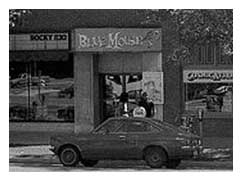 The entrance to the Blue Mouse theater was no more than two glass doors set into a long brick storefront near downtown Salt Lake. Dan and Merry followed Jade in and then down a stairwell to the basement, a narrow shoebox of a room with a sloped floor and about a hundred seats. The place was packed, and they took seats at the end opposite the screen. Jade said that was best anyway, because most of the action would happen offscreen.
The entrance to the Blue Mouse theater was no more than two glass doors set into a long brick storefront near downtown Salt Lake. Dan and Merry followed Jade in and then down a stairwell to the basement, a narrow shoebox of a room with a sloped floor and about a hundred seats. The place was packed, and they took seats at the end opposite the screen. Jade said that was best anyway, because most of the action would happen offscreen.
The room went dark, and the audience started chanting, "lips, lips."Merry whispered what in hell was going on to Dan, and he shrugged. Jade had said the audience was part of the show.
An enormous set of lips in glossy red makeup like the Rolling Stones icon filled the screen. The lips parted over porcelain white teeth, and the disembodied mouth sang, "Michael Rennie was ill the day the Earth stood still, but he told us where we stand..."
Merry fidgeted in her chair, and Dan could feel Jade's eyes on him. The song had him, though, and he couldn't look away from the screen. As the audience members sang along like a choir swaying in their seats, he had the feeling that something was coming, and there would be no going back. In his story the decade of the seventies had been a long sentence, and he supposed he was looking at its terminal punctuation. Whether a period, exclamation point, or question mark, it was some kind of ending.
The hamburger diner was well lit, the linoleum floor freshly mopped. Dan noticed the swirl marks the mop had left. He had a bacon double cheeseburger he was working on, and Merry, seated across from him at the plastic table, had a chicken strips with fries meal. They both had large cokes with lids and straws. Cars went by on Mooney Boulevard outside the long front window, chrome and glass glinting here and there in the hot summer sun. Dan and Merry had been taking lunch Saturdays at the place since they'd moved to Visalia a year earlier.
Merry's uncle Paul had called them in Sacramento and offered them jobs at the printing plant, where he supervised. She was excited about moving back to the town she'd grown up in, and Dan was interested in the cushy factory wages. He'd been working six hour shifts as a night janitor at a business complex, and Merry'd had a temp job in South Sacramento. Money was tight, and two full time incomes would certainly make living easier. Merry's parents helped find a rental house in Visalia, and the deal was done.
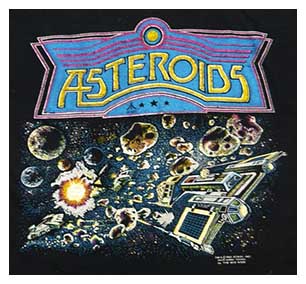 "You're holding your burger like a girl,"said Merry, and Dan lowered his pinkies. She'd been after him lately about his
masculinity. He looked like a queer the way he handled his cigarette. He wore shorts like a little boy. His long hair was kinda
sissy. Why did he want to play Atari games instead of going out to the Live Oak Club for drinks? "Why don't you lay off?"he'd
said. Sure, lay off, he'd like that. He'd like to lay around like a bum in front of the TV and play Asteroids all day is what
she'd said. "I almost rolled over the score counter last time I played it,"he said. He sounded like her little brother who
didn't even date until he was twenty. It was useless, and she went out nights alone.
"You're holding your burger like a girl,"said Merry, and Dan lowered his pinkies. She'd been after him lately about his
masculinity. He looked like a queer the way he handled his cigarette. He wore shorts like a little boy. His long hair was kinda
sissy. Why did he want to play Atari games instead of going out to the Live Oak Club for drinks? "Why don't you lay off?"he'd
said. Sure, lay off, he'd like that. He'd like to lay around like a bum in front of the TV and play Asteroids all day is what
she'd said. "I almost rolled over the score counter last time I played it,"he said. He sounded like her little brother who
didn't even date until he was twenty. It was useless, and she went out nights alone.
Dan took a ketchup packet and squeezed out some tomato paste for his fries. The people at the next table had a fussy infant in a stroller. The baby's cries were piercing, like the telephone ringing in the middle of the night. There'd been phone calls lately at all hours, and when Dan had picked up the phone and said hello, he'd heard the click of a hang up followed by the dial tone. It was annoying with all the hours he was working. The collating department was running twelve on twelve off, and he barely had time to go out for dinner with Merry between working and sleeping most nights. At least he'd had weekends off lately. There'd been times when he hadn't.
He pulled a pallet jack around for the collators, loading rolls of paper printed with office forms onto the long machines. The paper was spooled out and glued and sandwiched together for triplicate copies of bills of lading, service receipts, financial reports and various other business documents. The machinery made a chunk-chunk noise that could really get on your nerves over the course of a long shift. You had to wear earplugs around it, which made your head feel all stuffed up. And the factory air was hot and stale like a lingering fever.
Besides getting hamburgers out, Dan liked visiting with Merry's parents, Joe and Louise. They'd converted their garage into an air conditioned game room and put a pool table in. Dan could play pool with Merry's brother, or just hang out with Louise in the TV room. Joe didn't put any more than two sentences together in a week, but Louise loved to talk. She told Dan about when she was a teenager and first dating Joe. Both were the children of migrant pickers from Oklahoma who worked the local fields. Joe's father was half Comanche, a tribe that had migrated through Oklahoma on the way from Wyoming to Texas. Louise's brother, Paul, called Joe "the little Indian Boy,"and chased after him to slug him for pursuing Louise. Joe kept coming back, and Paul got to liking him after a while. Joe signed up with the Air Force rather than joining his parents in farm work, and he went the whole twenty years, retiring and buying a suburban house in Visalia. He and Louise had two children, first Merry, and then David, four years apart. David was Uncle Paul's favorite, and when he was five, Paul would let the boy chase him around and hit him over the head with a rubber baseball bat. One day David got hold of a wood bat and clobbered Paul on the bald spot of his crown, which presented itself as a pink target, doubling his uncle over on the couch and sending him to the hospital for stitches. It was Louise's favorite story, and she laughed with every telling of it.
Dan felt a bump at the plastic table and looked up from his burger. A guy with long hair and a horseshoe mustache was taking a seat next to Merry. "It must be fate,"the guy told Merry, "us meeting like this."Merry pointed at Dan and said to the guy, "this is my husband."Horseshoe stood up and looked Dan over for moment before walking away. Dan asked Merry who the guy was, and she shrugged. "Does it surprise you that some men find me attractive?"she asked. The guy's familiar tone had bothered Dan, but his Mormon father had always said that complaints were for malcontents. And the guys at the printing plant said BAM: Be A Man. A confident man didn't wallow in doubt and suspicion, did he?
Through fear of being judged weak, Dan had learned to show indifference to himself. Though others often took advantage of him, they seemed to enjoy themselves, and he tried to appease them and share in their apparent pleasure. The more deference he gave, the less he thought of himself. He had at an early age retreated into his head, and all he'd said to others since sounded forced to his own ears. His insincerity ate at him as he pushed his feelings down with every gulp of coke and burger. His gut would ache for hours.
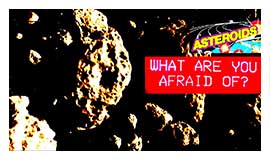 And later, when Merry wanted to go out to the Live Oak, Dan's stomach was still clenching. He started feeling better after she
left. He hooked up the Atari console to the TV and played Asteroids with the sound low and the central air humming in the
register on the living room wall. Two dimensional boulders tumbled across flat space and threatened a two dimensional spaceship
on the TV screen. You could see the boulders coming in time to shoot them to pieces. The play was simple and rewarding without
hidden threats a guy couldn't grasp. It was close to midnight when Dan rolled the score over for the first time ever. It went
from 99,999 to zero, and Dan jumped up from the sofa in triumph. He wanted to tell Merry, but she wasn't there.
And later, when Merry wanted to go out to the Live Oak, Dan's stomach was still clenching. He started feeling better after she
left. He hooked up the Atari console to the TV and played Asteroids with the sound low and the central air humming in the
register on the living room wall. Two dimensional boulders tumbled across flat space and threatened a two dimensional spaceship
on the TV screen. You could see the boulders coming in time to shoot them to pieces. The play was simple and rewarding without
hidden threats a guy couldn't grasp. It was close to midnight when Dan rolled the score over for the first time ever. It went
from 99,999 to zero, and Dan jumped up from the sofa in triumph. He wanted to tell Merry, but she wasn't there.
Our lit cigarette tips flitted like fireflies in the dark. It was ten o'clock at night, and Scott and I were standing at the bottom of the creek bluff near Zola Street talking and smoking. I wasn't allowed to smoke in my garage room, and Scott was just sixteen, so we ducked down to the creekside to have our cigarettes. We'd been doing it surreptitiously for so long that everybody knew about it. People had even left notes for us. One was written in a frantic hand:
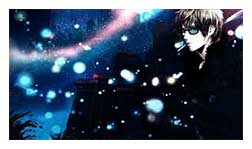 Smokers! This is not your place. You need to stay away and stop bothering us. - A biker's friend
Smokers! This is not your place. You need to stay away and stop bothering us. - A biker's friend
Whoever had written that didn't seem to realize that Scott and I were also among those who rode dirt bikes on the trails there. Scott thought that the note was probably written by a weird guy the kids called Steel Pipe, who'd been caught masturbating on a fat inner tube in the creek. He was seen humping at it with his pants off.
Another note was from a couple of girls who spied on us down there:
You boys shouldn't smoke so much. Do you always talk about girls like that? We see you here a lot. You should have something better to do with your time.
Aside from the scolding tone of it, I noticed that the i's were dotted with tiny hearts. "Girls,"said Scott, "writing to us. We gotta meet them."
"But they're hiding and watching us,"I said, "they don't seem to want to be seen."
"What if we spy on them?"Scott wondered.
 We started going down there every day and hiding among the branches of the largest heritage oak tree. From up there we could survey most of the
flat weedy narrows between the dirt bluff and the creek. One afternoon we saw two girls nosing around in the mottled shadow of the tree. They
were about fifteen or sixteen and wearing jeans and t-shirts. One of them resembled a Mormon girl I knew from church dances, but I couldn't
be sure looking through the leafy foliage. They heard us climbing down from the creaking branches and ran off. We chased them, wading through
tall yellow weeds that were drier than math lectures, but the girls melted into the chaparral and the bramble of scrub oaks that bunched up at
the creek banks. A hot wind blew through, and the weed stalks whispered dusty theorems at us.
We started going down there every day and hiding among the branches of the largest heritage oak tree. From up there we could survey most of the
flat weedy narrows between the dirt bluff and the creek. One afternoon we saw two girls nosing around in the mottled shadow of the tree. They
were about fifteen or sixteen and wearing jeans and t-shirts. One of them resembled a Mormon girl I knew from church dances, but I couldn't
be sure looking through the leafy foliage. They heard us climbing down from the creaking branches and ran off. We chased them, wading through
tall yellow weeds that were drier than math lectures, but the girls melted into the chaparral and the bramble of scrub oaks that bunched up at
the creek banks. A hot wind blew through, and the weed stalks whispered dusty theorems at us.
I looked up at the full moon with a few stars around it. Venus had gone down behind an alder tree we called skunk's head, because someone had mounted the sun-bleached skull of a dead skunk on one of the branches. The branch went through an eyehole and there was no lower jaw to the thing, only a row of sawteeth under its snout. From where I stood I could just make out the dull white dot of it in the moonlight. It looked like Venus had dimmed and got hung up in the tree after setting. Scott tapped me on the shoulder. "Someone's coming,"he said. I looked over at the rutted trail that ran down the side of the bluff, and I saw the shadowy outline a tall kid gingerly descending in the dark like he was trying not to slip. It was steep, and the footing was loose.
 When he got closer I recognized him. He was my youngest brother, Mark. "Hey, you guys,"he said, "I'm picking up police calls on the walkie
talkie. Wanna hear?"He held up the little radio and I heard some static and then a guy's voice:
When he got closer I recognized him. He was my youngest brother, Mark. "Hey, you guys,"he said, "I'm picking up police calls on the walkie
talkie. Wanna hear?"He held up the little radio and I heard some static and then a guy's voice:
This is Officer Kelsey in car twelve. I'm pulling onto Zola Street right now with an arrest warrant for Don Bagley and Scott Johnson. I'll be bringing them in shortly.
"Shit,"said Scott, "we're cooked, man."My head collapsed inside. We were going to jail. Whatever for, we were going in. I tried to think of what the charges would be, but my thoughts were blanked with panic. "I'm gonna run,"I told Scott, "right up the creek. That cop'll never find me in there."I was thinking about how easily the two girls had got away from us in the undergrowth. I could hide in there overnight, and then I could grab some stuff from my garage room real early in the morning and just take off somewhere. "Me too,"said Scott, "Let's go."
"Wait,"said Mark, "it's Jeff. He's doing the cop voice on the other walkie talkie."I could feel my brain expanding back to its normal size. I shivered with relief in the warm night air and laughed. Then I looked up and saw Jeff, my other brother, coming down the bluff trail. He held up his walkie talkie and spoke into it:
Suspects apprehended. Case closed.
 I was thirty-one before I married Nancy. We were shacking up and living in sin in a tiny apartment. The apartment was even smaller than the
sin. Passing trains rattled at it noisily from tracks just the other side of the rear parking lot.
I was thirty-one before I married Nancy. We were shacking up and living in sin in a tiny apartment. The apartment was even smaller than the
sin. Passing trains rattled at it noisily from tracks just the other side of the rear parking lot.
We could barely turn around in our sin without bumping into one another. The kitchen was off the living room, and the bathroom was off the bedroom. Another thing that was off was the oil stain in the carpet from someone working on a motorcycle engine there. The stain could be driven back with cleaners, but it would always re-emerge like an unwanted memory.
There were a couple of blade-shaped holes in the bathroom door at eye level. It looked as if someone had tried to stab someone in the head and missed. The coat closet door opened itself nightly, and the door to the cupboard stocked with my cassette tapes would swing open on its own as well. The whole apartment shuddered fearfully when the mile long freight trains thundered past.
We lived just one block from Sacramento State University, where I studied days while working nights at a factory. Id finished up at American River college, completing a two year associate degree, and been given admission to Sac State. I thought Id like to be able to walk to classes, so Nancy I found an apartment near the campus in a building that looked like a cheap motel.
The complex was similar to any freeway frontage double stack of week to week units with a swimming pool at one end. We had the end unit next to the pool, and the pool filter motor was attached to the outside of our living room wall. The filter whined as it ran day and night, a noise that annoyed more and more over time. I would wake up at night, and the whine was like a headache that would make me toss and turn restlessly. One night Id had enough, and I went outside and banged on the pump with the hammer from the junk drawer until the damn thing went silent. They didnt fix it for three blissful days and nights.
Our coat closet and cupboard doors continued to swing open overnight as if manipulated by the ghost of a murdered biker in search of a Grateful Dead tape or a jacket with colors. Trains roared by, buzzing the windowpanes.
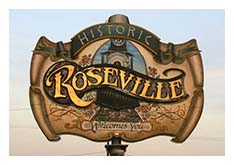 I dont know why we drove the twenty miles to Roseville some weekends to visit my parents--habit, I suppose. Nancy said she felt they didnt like her, because they seemed cold. Theyd always had an aloof quality about them, and they often made disparaging remarks about "the world"and "the knowledge of man."They had a large two storey colonial house Dad had built with the money hed saved while housing my brothers and me in a garage when we were teenagers. He and Mom made a point of living better without us than they had with us. Dad said their wealth was a blessing.
I dont know why we drove the twenty miles to Roseville some weekends to visit my parents--habit, I suppose. Nancy said she felt they didnt like her, because they seemed cold. Theyd always had an aloof quality about them, and they often made disparaging remarks about "the world"and "the knowledge of man."They had a large two storey colonial house Dad had built with the money hed saved while housing my brothers and me in a garage when we were teenagers. He and Mom made a point of living better without us than they had with us. Dad said their wealth was a blessing.
I went to their house the same way I went to the factory for shift work. I was used to it and assumed it had to be done. I didnt expect a good experience, and I didnt usually get one. The factory was hot and noisy, and my father was relentless with his fatherly wisdom. "The liberals are liars,"hed say, or "blacks arent as bad as they used to be, but I could never be attracted to their women."
Hed gush about the prophets latest speech. "Hes told us to read the Book of Mormon more,"Dad would say with pride. He talked like the prophet had popped by and dispensed his exalted counsel on the doorstep of the blessed house. Dads friends had equal powers of discernment. They told me about the evils of coffee and tea and warned me off tattooes and facial hair. I rubbed at my beard and listened with all the politeness of a chastened employee. There was a lot for me to learn that I wasnt being taught in college.
Dads parlor was as large as the living room and kitchen of my apartment combined. It had French doors to the back patio and an antique curio cabinet with beveled glass sides. A large eggshell leather sectional sofa ran alongside two walls. There was an upright piano and a six foot oil painting in there was well. The room was furnished with all kinds of things you wouldnt see in a converted garage or an apartment by the tracks.
Nancy and I met the Binders in there one weekend and engaged in small talk with the couple. Brother Binder was a forty-year-old ex cop with a fondness for fart jokes. Sister Binder dressed like someone half her age and led the young womens group for the local ward. She was at all times in search of a teachable moment, and took the first opportunity to enlighten Nancy and me about the afterlife.
Shed just read a book about life after death that was certainly accurate and above reproach. What happens after death, she said shed read, is that sinners are doomed to pursue their sinful behavior forever. For instance, fornicators keep trying to fornicate with one another, even though they have no bodies, as the unsaved remain disincorporate throughout eternity. And smokers and drinkers wander like impotent ghosts through bars and nightclubs hankering for cigarettes and drinks. The hapless spirits try to reach for butts and beers, only to find their invisible hands passing uselessly through the objects they desire. Sister Binder pawed at the air with grasping hands to simulate the futility of the actions of the damned. On and on she went with more stories of purgatorial frustration and pantomiming gestures until my thoughts lost their moorings and drifted back to the hammer in my junk drawer.
"Hey, dude,"Scott called me through the garage window. I looked up from my bed and saw his smooth face framed with shoulder length hair the color of spun gold. It was still light out, and I was sitting on my mattress pulling on my shoes. I had on my corduroy trousers and a button up shirt with blue stripes. We were going to the church dance later.
Scott wasnt a church member, but he wanted to meet girls. He lived across the street from me with his Mom and Dad in a three bedroom house. He had no siblings and his house was practically empty. There were nine of us in my family, with my twenty-one-year-old sister home from another incomplete semester at Brigham Young, and our house had three bedrooms as well. My brothers and I had to live in the garage. It was a hundred degrees in there, and my forehead was slick with sweat. I sniffed at my armpits to make sure the Arrid Extra Dry was holding up.
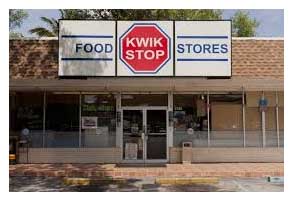 Scott and I walked over to the Kwik Stop to buy some icy drinks for mixing. I bought his smokes for him, because I was eighteen, and he had two years to go. We had a bottle of Smirnoff my fifteen-year-old brother had stolen from a neighbors garage. Hed taken two bottles, one for him and his drinking buddies, and one for me for some money Id given him. I poured some of the vodka into my orange soda out back of the store and handed the bottle to Scott. We walked to the woods by the creek to smoke and drink in private.
Scott and I walked over to the Kwik Stop to buy some icy drinks for mixing. I bought his smokes for him, because I was eighteen, and he had two years to go. We had a bottle of Smirnoff my fifteen-year-old brother had stolen from a neighbors garage. Hed taken two bottles, one for him and his drinking buddies, and one for me for some money Id given him. I poured some of the vodka into my orange soda out back of the store and handed the bottle to Scott. We walked to the woods by the creek to smoke and drink in private.
Scott wondered would there be a lot of chicks at the dance? I told him yes, but they were Mormon girls and not to expect much. He didnt care about that, and neither did I, because we rarely got to talk to girls. Id been to a couple of the dances, and there was a girl Id danced with named Deena. She was fifteen and short with long brown hair and green eyes. I knew she was a believer and all that, but I had fantasies. When youre eighteen and paying rent to live with your brothers in your fathers garage, fantasies are all you have. The reality of my life was sleeping on a sweat soaked mattress and fondling Playboy magazines instead of dating. My older sister dated a lot. Shed even been engaged, but she broke up with the guy right outside the garage window one night while my brothers and I listened. We were in our beds, and we heard him crying when she told him the wedding was off.
I didnt go to church Sundays with my family, and the good members speculated about my reasons for hating Jesus. I was a drug dealer or an addict or something. Bad habits of some kind had to be behind it all. Long haired boys were known to be rebellious. You could tell by looking at them that they were no good. And I walked around shirtless in the summer. It was shameful the way I carried on. I did have a job, so they couldnt say I was bumming. I was the janitor at the Rodeway Inn motel by the freeway. Id gone to the community college for one semester, but they turned me down for any grants or loans. My fathers income was too high. I remember filling out the application forms in my garage room. Dad made more than twice as much as Scotts father, who worked for the phone company and kept his son indoors with air conditioning. I couldnt think why I should give two goddams about Jesus.
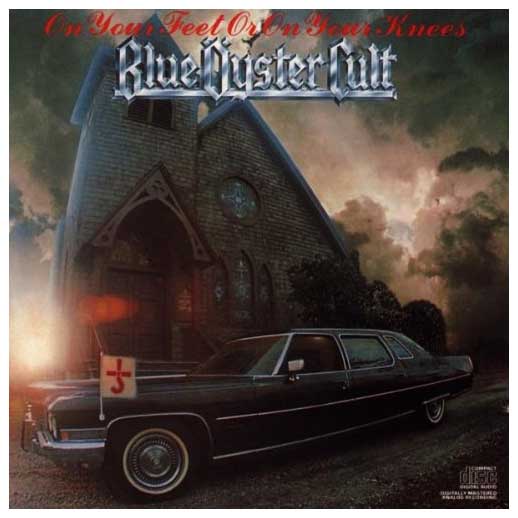 Sometimes my mother would ask me to design a poster for a church dance or a class visual aid. Id studied drawing and painting in my one semester at the community college, and I liked having the opportunity to create something. One poster Id made for a dance had drawings of dancing dogs and cats Id based on illustrations from a childs songbook that Mom had. She wanted to know would I do a drawing of Adam and Eve in a limousine? She said that shed been teaching the kids that Adam and Eve were driven from the garden, and the kids took it literally as if the two had gone out in a car. So I took the poster board and felt pens she gave me, and I copied the image of a long car from the album cover of a Blue Oyster Cult double live LP titled "On Your Feet or on Your Knees."I put Adam and Eve in the back seat and had a bearded, godhead-looking driver at the wheel. I hadnt done a poster for the dance Scott and I were going to attend.
Sometimes my mother would ask me to design a poster for a church dance or a class visual aid. Id studied drawing and painting in my one semester at the community college, and I liked having the opportunity to create something. One poster Id made for a dance had drawings of dancing dogs and cats Id based on illustrations from a childs songbook that Mom had. She wanted to know would I do a drawing of Adam and Eve in a limousine? She said that shed been teaching the kids that Adam and Eve were driven from the garden, and the kids took it literally as if the two had gone out in a car. So I took the poster board and felt pens she gave me, and I copied the image of a long car from the album cover of a Blue Oyster Cult double live LP titled "On Your Feet or on Your Knees."I put Adam and Eve in the back seat and had a bearded, godhead-looking driver at the wheel. I hadnt done a poster for the dance Scott and I were going to attend.
After a couple shots of vodka by the creek, Scott and I rode our motorcycles to the chapel. When we walked into the foyer, a nervous kid at a card table slammed a small black cash box shut. I think it was our long hair. We pulled out our dollars and paid him for entry. I could feel his eyes on our backs as we went into the cultural hall.
There were balloons and cellophane strung up in the corners around the basketball court, and there was a long folding table with a punch bowl and plastic cups. It looked like a childs party in there. The lights were low, and it took me a minute to spot Deena. She was all dressed in white. I left Scott and danced with her. When I set my hand on the small of her back she pushed it up. And no bear hugging, she said. They told us, she said, nodding toward some men and women along the back wall. Church dances always had chaperones.
After a couple of songs had played, Scott approached me. "Im leaving, man,"he said, "this place is dead, and the music is lame."He was right about the music--it was all radio hits and disco--no rock songs. But Deena had said shed let me give her a ride home on my motorcycle.
She had me drop her off around the corner from her house. She couldnt be seen by her parents on the back seat of my motorcycle. I had a reputation. I watched the sway of her white skirt as she walked away. She was a ghost in the streetlight. I kick started my bike and rode off. I wondered what Scott was up to. We could drink some more vodka.
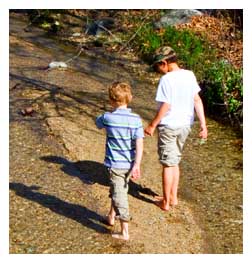 The Sundy shoes were baptized in the creek on a Saturday. This is how it happened:
The Sundy shoes were baptized in the creek on a Saturday. This is how it happened:
Saturday morning after Cheerios, Mom went to her room for a nap. Nobodyd better bother her, and Dad would be gone all day.
Donny thought of the creek first, because he was seven. He always thought of things first. Jeffy, five, and Marky, four, agreed and put on their shoes. Donny and Marky had on their sneakers, and Jeffy had on his Sundy shoes.
At the creek Donny and Marky waded right in. Jeffy looked at the brown water, and then at his shoes. He took them off and set them by a tree trunk to keep them dry. While he was in the creek with his brothers, a big kid threw the shoes in. So Jeffy walked home barefoot.
"How you gonna go to Sundy school with no shoes?"Mom yelled and whacked at Jeffy with the broomstick rod she kept by the fridge. She made him lead her to the creek to retrieve the shoes.
Donny and Marky ran to the front window when they heard the wailing outside. Mom was out there caning Jeffy with the broomstick, driving him ahead of her as the two approached the house. Her free hand held a single muddy Sundy shoe. Jeffys cries went up and down like an ambulance siren from across town.
(with Jeff Bagley)
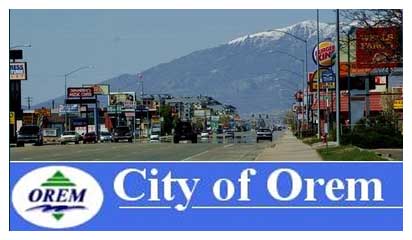 The Utah sun had already set before my father remembered the chairs. It was getting dark and streetlights were winking on all over Orem. Other
family members were coming by for the barbecue, and there wouldnt be enough seating without some folding chairs from the church. I stepped up
into his Lincoln Navigator to help out.
The Utah sun had already set before my father remembered the chairs. It was getting dark and streetlights were winking on all over Orem. Other
family members were coming by for the barbecue, and there wouldnt be enough seating without some folding chairs from the church. I stepped up
into his Lincoln Navigator to help out.
"Three hundred horsepower,"said Dad, "five-point-four liter engine. Climate control. Hear that sound system? Seven speakers that dont buzz or rattle."
It was a big ride. My leather seat must have been over four feet from the ground, and I could look right down at the dashboard lights in other peoples cars--sedans and station wagons like Id grown up in, driven to church every Sunday in rain, heat and sweaty discomfort. My six siblings and I had battled over seats, with the losers in middle seats away from windows in the back. The best seat was by the window behind Mom, because Dads swinging fist couldnt reach you there.
Thirty years later I was in the front passenger position in a luxury vehicle that glided over the road like it was on a bed of marshmallows. There was plenty of room in the back for piling up some folded chairs. We could have stuffed any number of kids back there. Dad whistled as we floated along on the wide boulevard. A Honda Civic swerved to get out of our way.
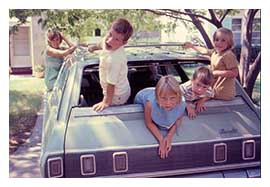 I used to hate going to church. The whole family would be crammed into the station wagon, and all of us dressed up in scratchy Sunday clothes. There was no air conditioning, and if you werent next to a window, no fresh air. I remember my gorge rising as I sat with my two brothers in the back seat facing rearward. I was dizzy and near vomiting all the way to the chapel. Church meetings were protracted and boring with a series of local men giving long-winded speeches and babies crying in the pews. It was all done under duress, with Dads powerful backhand for an enforcer.
I used to hate going to church. The whole family would be crammed into the station wagon, and all of us dressed up in scratchy Sunday clothes. There was no air conditioning, and if you werent next to a window, no fresh air. I remember my gorge rising as I sat with my two brothers in the back seat facing rearward. I was dizzy and near vomiting all the way to the chapel. Church meetings were protracted and boring with a series of local men giving long-winded speeches and babies crying in the pews. It was all done under duress, with Dads powerful backhand for an enforcer.
Hed purchased the Navigator a few months earlier, just after his latest real estate project had collapsed. Hed taken sixty thousand dollars from the contracting funds he said he was owed. My sister and her husband objected, as they were partners in the business and suddenly left with nothing when it dissolved. Dad said he was owed everything that remained. He needed the money more than his daughter and grandchildren. My sister and her husband lost their house and had to relocate. So they werent going to be there for the barbecue. There was plenty of other family to fill out the chairs. We still needed a stack.
Id asked Mom what she thought about the business between Dad and my sister, and she said shed had no say in it. Any time one of his schemes went south, hed put the house up for sale and theyd move away from the angry investors whod trusted him with their savings. Usually Mom and Dad would move out of state, sometimes returning to an old state but living in a new town there. She once told me that they were moving out of their thirtieth home since their marriage. Id gone to eight different schools growing up. Dad had worked in the administration of two of those schools and been fired both times, triggering a Uhaul rental with each incident. "Your father,"said Mom, "would be interesting for someone to study."I couldnt imagine him hanging around anywhere long enough to be studied.
"I dont know whats wrong with your sister,"Dad said, his hands gripping and rocking at the steering wheel, "she doesnt want to talk to me."I kept my eyes on the tail lights of cars ahead of us. I knew what was wrong. Id gotten an email from her about him that was all capitals and no punctuation. I couldnt think of a way to reduce her rage to conversation, and I knew Dad wouldnt want to hear it anyway. Id told him that I thought he was wrong before, and it didnt go anywhere. He was never wrong, only misunderstood. "I try to help those around me,"he said, "but I have to follow the promptings of the spirit."I listened and said nothing.
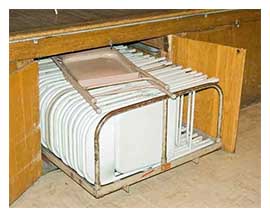 At least we arent coming here for services, I thought, as we pulled into the unlit church parking lot. Dad parked the Navigator by a small cinder block shed behind the chapel. A mini van pulled in from the other side of the parking lot, its headlights sweeping over our faces and making us squint as it turned to park alongside us. "Thatll be Brother Biggs with the storage key,"said Dad, cracking his door. We stepped out and met the man in the dark. I watched him open the shed door with difficulty, as he had to work mostly by feel.
At least we arent coming here for services, I thought, as we pulled into the unlit church parking lot. Dad parked the Navigator by a small cinder block shed behind the chapel. A mini van pulled in from the other side of the parking lot, its headlights sweeping over our faces and making us squint as it turned to park alongside us. "Thatll be Brother Biggs with the storage key,"said Dad, cracking his door. We stepped out and met the man in the dark. I watched him open the shed door with difficulty, as he had to work mostly by feel.
"You could have called me while it was light out,"he said to Dad.
"I, I tried to,"said my father. He didnt sound like he believed himself, which was uncharacteristic. Was I hearing the same voice that had sent me cowering into the sick-inducing backward station wagon seat? This was a man who drove off his own daughter and family without a whisper of compunction. Who the hell did this Brother Biggs think he was, pushing my Dad around? I would have said something, had I not been muted with nerves. I remembered thirty years earlier when my father had seen a brown bear in our campsite at night. Hed screamed like a victim in a horror movie, triggering my lifelong fear of bears. Now I stood in a darkened parking lot in a darkened state, a forty-year-old kid with no defenses.
We loaded the chairs blind, working by feel.
 Suddenly awake, I opened my eyes in the glare of morning sun. Soon my father would tell me to get up and get myself breakfast. Though it was
Saturday morning, I would have to put on my Sunday clothes. I was to stay with the missionaries over the weekend, whether I liked it or not, and
I was thinking I probably wouldnt like it at all. So I didnt rise from my bed in the room over the garage until Dad stood at the doorway
and called me. I arose reluctantly and went downstairs to fix myself a bowl of Cheerios. Id have eaten more if Id known what was coming.
Suddenly awake, I opened my eyes in the glare of morning sun. Soon my father would tell me to get up and get myself breakfast. Though it was
Saturday morning, I would have to put on my Sunday clothes. I was to stay with the missionaries over the weekend, whether I liked it or not, and
I was thinking I probably wouldnt like it at all. So I didnt rise from my bed in the room over the garage until Dad stood at the doorway
and called me. I arose reluctantly and went downstairs to fix myself a bowl of Cheerios. Id have eaten more if Id known what was coming.
At twelve, I was the only deacon in the Pottstown branch. Every Sunday I passed the sacrament with one of the two missionaries in the stuffy rental building we used for our church meetings. It would be either Elder Tanner, a tall farmboy from Idaho, or Elder Hyde, an even taller townie from Provo, Utah. My cheap slacks made my thighs look fat and my knees knobby as I sat on a folding chair next to one of the two. Our seats were set apart from the others, and I felt like I was on display for the amusement of the congregation. If youve ever been to a Mormon church meeting, you know how sensory deprivation can elevate the mundane to high entertainment. People stared.
I had told my father that I was sick of the whole thing, and I didnt want to go to the meetings any more. He answered my complaint with judgment. I was under the sway of the devil. I didnt pray enough. What kind of nonsense had I been reading? It was the rock and roll music or the suggestive programs on television. Id been weakened in spirit by the wicked onslaught of popular culture. Too much Beatles and too little Beatitudes. What I needed was a more righteous environment, if only for a day. For instance, instead of my father or one of his priesthood cronies doing Saturday splits with the missionaries, I could be sent to stay with the two of them over a weekend and no doubt benefit from the experience with spiritual enlightenment. It would be a win win for everyone.
Dad dropped me off in front of the small apartment building where the missionaries lived. It was a squarish old structure of whitewashed wood with warped steps going up to a stoop at the front door. Elder Tanner met me there and led me to the apartment he shared with Elder Hyde. The place was almost too small for cockroaches, but I saw a dead one on the floor by the gas stove in the kitchen. The linoleum had peeled up in the corners, and you could see that the wooden floorboards underneath had blackened with age. "I hope you had breakfast,"said Elder Tanner, "because were fasting until dinner tonight."Elder Hyde looked up from his seat in a ratty armchair. "We need more converts,"he said, picking at his ear, "I prayed about it and was moved by the spirit to fast."It was seven-thirty in the morning and already lunch was cancelled. I wondered what else I had to look forward to.
We said a hasty prayer and left the building on foot, the three of us in suits and ties. The morning air was warm and humid. We followed the sidewalk along Beech Street to East High Street, a crosstown boulevard lined with weathered two storey Victorians. On each porch, I stood behind the elders as they knocked at the door. Most doors werent even opened. Someone within would yell at us to go away. Goddam Mormons. We walked right by one house without approaching it. "Jay Dubs,"said Elder Tanner, looking at a hand drawn map. Jehovahs Witnesses were off limits. I looked them up later and found that they were too much like Mormons already to be talked into anything.
We tracted for hours before a polite old man invited us in. By that time the heat and humidity had become nearly intolerable, and I was thankful to sit in the mans living room out of the direct sun. My shirt was clinging to my sticky flesh, and I was parched. The two elders and I took seats on a couple of flower print sofas, and the old man brought us lemonade with ice. It was the coldest and most refreshing drink Id ever had. I held the icy glass to my sweaty forehead and closed my eyes. I was enjoying the only break Id have all day.
"What religion were you boys preaching again?"The old man asked as he took a seat in the easy chair facing the couches. "The true gospel of Jesus Christ,"said Elder Tanner, "we told you that at the door."The old man looked thoughtful. "Seems like theres more than one,"he said, "with the Catholics and Lutherans fighting it out over their versions."Elder Hyde twisted a forefinger in his ear, pulled it out and sniffed at. He made a face like hed tasted something bitter. "Those are false doctrines,"he said. The old man took a sip of lemonade, ice clinking in his highball glass. "What is real doctrine?"he asked. Before he got an answer he added, "I wonder if trees have souls. Or animals. It doesnt seem fair to me that were the only ones with spirits."
"Thats why were here,"said Elder Tanner, leaning forward on the sofa, "we have the truth, and we want to share it with you."
"What if you dont have the truth?"said the old man. "What if you only think you do?"
I could see that the two elders were becoming increasingly uncomfortable. The man had his own ideas. When Elder Tanner stood up and sighed audibly, I knew we were going to leave. I gulped the rest of my lemonade. There was no telling when Id get another cold drink.
As soon as our shiny church shoes hit the hot sidewalk, the elders started with the insults. "Stupid old man,"said Tanner, "tree spirits? What an idiot."Hyde nodded. "I hate agnostics,"he said, "all they do is waste your time."I tagged along, two steps behind and short of both talk and stature. We tracted throughout the hot afternoon and into the evening, with the sun going down on a wasted Saturday. Only one middle-aged woman spoke to us at her door. She was an immigrant and a staunch Catholic. She only wanted to complain about her teenage son to someone wearing a suit. "He reads too many science fictions,"she said, "and he dont care for church. What can I do?"Elder Tanner informed her that the LDS church had many helpful programs for youth. Perhaps the boy could be better socialized there. "One church is enough,"she said, closing the door on us.
 We got back to the tiny apartment well after dark, and I was tired and hungry. Elder Hyde put a pot of leftover beans on the gas range and heated it. The smell was worse than something my mother would boil. I made a face while eating the sour beans, and Elder Tanner lectured me about my attitude. "We dont get to choose the quality of our blessings,"he said, "we learn gratitude when we are humbled."I already knew he was full of shit, having spent the day listening to his righteous blather. And nothing he said could alter the fact that the beans were inedible. I put my nickel plated spoon down.
We got back to the tiny apartment well after dark, and I was tired and hungry. Elder Hyde put a pot of leftover beans on the gas range and heated it. The smell was worse than something my mother would boil. I made a face while eating the sour beans, and Elder Tanner lectured me about my attitude. "We dont get to choose the quality of our blessings,"he said, "we learn gratitude when we are humbled."I already knew he was full of shit, having spent the day listening to his righteous blather. And nothing he said could alter the fact that the beans were inedible. I put my nickel plated spoon down.
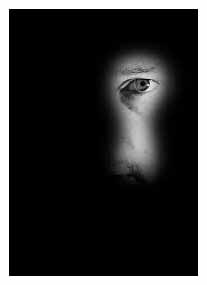 The elders had removed their outer clothes and were wearing only their temple garments, ugly Mormon underwear Id seen my father in. The garments were one piece from the neck to the knees with a butt flap in the rear for taking a crap, I supposed. I was pretty sure Id never wear them myself. Elder Hyde sat on his bed in the living area and played with a Wile E. Coyote action figure. It was plastic and about eight inches tall. It had an erect tail, and Elder Hyde rotated its head around so that the tail looked like a big fat hard on. He chuckled and rubbed at his ear.
The elders had removed their outer clothes and were wearing only their temple garments, ugly Mormon underwear Id seen my father in. The garments were one piece from the neck to the knees with a butt flap in the rear for taking a crap, I supposed. I was pretty sure Id never wear them myself. Elder Hyde sat on his bed in the living area and played with a Wile E. Coyote action figure. It was plastic and about eight inches tall. It had an erect tail, and Elder Hyde rotated its head around so that the tail looked like a big fat hard on. He chuckled and rubbed at his ear.
"You need a bath, Brother Bagley," said Elder Tanner, "Ill draw one for you in the tub."I protested. There was no way I wanted to disrobe in front of those two. But they herded me into the bathroom and closed the door behind me. There was a skeleton keyhole under the glass doorknob, and I pictured someone peeping through it from the other side. I hung my shirt over the doorknob to cover the hole and stripped down to my undershorts. A telltale cloud of steam hung over the clawfoot bathtub. It had been filled with scalding hot water. I washed up at the sink and pulled the chain to the tubs drain plug.
After Id completed my ablutions the elders confronted me in the living room. "You didnt bathe,"said Hyde, "you just splashed yourself in the sink, didnt you?"Tanner wanted to know if I liked being dirty and disobedient. "Are you some kind of animal,"he asked, "like a pig? We had to hose them down where I come from." After my shaming I was given a blanket for sleeping with on the floor. I had the frayed cushion from the armchair for a pillow. Elder Tanners bed was behind a stained sheet hanging from an open doorway to a second room off the living area. Wed be getting up early for priesthood meeting in the morning, and I knew I needed sleep, but I was afraid to close my eyes. Every time one of the elders turned in his creaking bed, I imagined him getting up to approach me.
"What are you doing with my luggage?"Trisha asked Roger. He appeared to be fiddling with the latch on her Samsonite suitcase. "Securing it,"said Roger, "checking to make sure."Hed been acting strangely ever since hed come back to their seats from the restroom. Theyd been on the train for over three hours, and Trisha wondered if he was getting gas again. He was a nervous traveler, though he denied it. One time on a bus hed broken wind so many times a nearby passenger had wrinkled his nose and complained aloud. Roger had run to the tiny restroom at the back of the Greyhound and stayed there for almost thirty minutes. Hed emerged at last, pale and sweaty, and said nothing for the rest of the trip, which was unusual for him. Roger normally had an opinion about everything and didnt hold back from sharing it, but that time hed been mute for almost two hours.
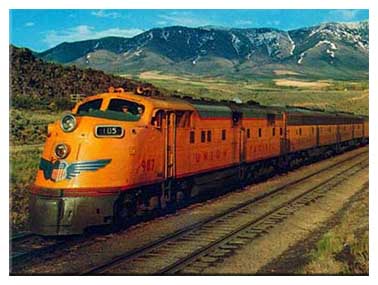 Roger wished that Trisha had something better to do than watch his every move. Did he have to be interrogated for touching his own wifes suitcase? Hed bought the suitcase with his own money, after all. It was in the driveway at a yard sale in La Grande when hed first seen it. There must have been a couple hundred items spread over the front yard, and Roger had stopped to look for a bargain. A dozen people were on the property looking over the books and kitchen utensils and clothes piled on folding tables. The suitcase was on the cement and had a little price sticker on it like most of the other stuff. It was ridiculously overpriced, which was easily remedied by removing the price tag and exchanging it with a more favorable one when no one was looking. People would take advantage of you if you werent proactive.
Roger wished that Trisha had something better to do than watch his every move. Did he have to be interrogated for touching his own wifes suitcase? Hed bought the suitcase with his own money, after all. It was in the driveway at a yard sale in La Grande when hed first seen it. There must have been a couple hundred items spread over the front yard, and Roger had stopped to look for a bargain. A dozen people were on the property looking over the books and kitchen utensils and clothes piled on folding tables. The suitcase was on the cement and had a little price sticker on it like most of the other stuff. It was ridiculously overpriced, which was easily remedied by removing the price tag and exchanging it with a more favorable one when no one was looking. People would take advantage of you if you werent proactive.
The City of Portland was a yellow streamliner that ran from Chicago to Portland, Oregon, stopping at La Grande on the way. Roger had purchased the two round trip tickets from La Grande to Portland with money his sister had sent them. Shed sent enough for tickets in the sleeper, but Roger had insisted on buying coach seats and saving the change. Trisha was pregnant with their first and wished shed had somewhere to lie down, because the trip was six hours plus each way, including stops at Pendleton, Hinkle, The Dalles, and Fort Hood. Her back had started hurting halfway into the trip in both directions. Now they were on their way home.
The train sped eastward along the bluffs that face the south banks of the Columbia, the widest river in the western states. Roger self-consciously tapped on his front pants pocket. The wallet was still there. It wouldnt do for it to fall out. There never was any good reason for a man to advertise his possessions in public. Unlike his sister with her extravagant house in her upscale district of Portland, Roger chose to live with discretion and simplicity. Trisha had gushed foolishly while they watched his sisters RCA console television. President Eisenhower was giving one of his lackluster speeches on a live broadcast. Roger was glad that the president had signed an order adding the words under God to the pledge of allegiance, but distrusted him for his support of Social Security, a communist program of Roosevelts. Besides, Eisenhower was a Presbyterian, which was a false faith.
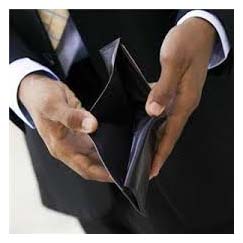 Two small children ran down the aisle, giggling and waving their arms. Roger sighed in contempt and remarked that
Gentiles didnt know how to control their children. Trisha was hoping for a baby girl. She didnt know if she could handle a
miniature version of Roger. There was enough talk of priesthood superiority in the house already, and a little boy would
soon enough become a deacon. A girl seemed like a better candidate for a companion and confidante. The sisters in Relief
Society told Trisha that she was going to have a boy, because she was carrying low. She hoped they were wrong.
Two small children ran down the aisle, giggling and waving their arms. Roger sighed in contempt and remarked that
Gentiles didnt know how to control their children. Trisha was hoping for a baby girl. She didnt know if she could handle a
miniature version of Roger. There was enough talk of priesthood superiority in the house already, and a little boy would
soon enough become a deacon. A girl seemed like a better candidate for a companion and confidante. The sisters in Relief
Society told Trisha that she was going to have a boy, because she was carrying low. She hoped they were wrong.
Roger was mum all the way through the Hinkle and Pendleton stops. He tapped his right foot and hummed tunelessly. The train rolled up through the dense forests of the Wallowa Mountains as they approached their destination, and Roger stood up and announced that he needed to stretch his legs. He walked forward to the next car and Trisha decided to take something for her back pain. She had some aspirin in the inner pocket of her suitcase, so she unlatched it to look for the bottle. Her probing hand found a fold of paper money. She counted ten twenties, the most shed ever held. She wondered if Rogers sister had given it to him. It was enough to live on for weeks.
Roger found the conductor in the first car. He approached the man and removed the wallet from his front pocket. "I found this in the aisle,"he said. The conductor accepted the wallet and opened it. "No money,"he said, his eyes meeting Rogers, "but then, there never is."
Six-year-old Beth tugged at the clothesline cord that bound her wrists to the dining room chair. Mom had tied her to the chair for being a pest. She was left there, as always, to work herself free. Once she freed her hands, she would work on the rope that secured her ankles to the chair legs. Then Mom would put the rope away until next time.
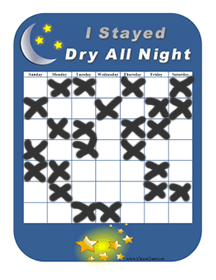 Beth didnt mean to be a pest, but she couldnt help herself. There was no one around but Mom and the baby. Her teenage brother Davey had walked into town to see his friends. When he was home hed play board games with her, and she didnt have to talk to Mom and get in trouble. She knew why Davey didnt like being around, because shed seen Dad beating him up in the hall. He came home after dinner one night, and everyone was in the living room. Dad went over to the hallway to punch Davey in the face before he could go downstairs to his room in the fruit cellar.
Beth didnt mean to be a pest, but she couldnt help herself. There was no one around but Mom and the baby. Her teenage brother Davey had walked into town to see his friends. When he was home hed play board games with her, and she didnt have to talk to Mom and get in trouble. She knew why Davey didnt like being around, because shed seen Dad beating him up in the hall. He came home after dinner one night, and everyone was in the living room. Dad went over to the hallway to punch Davey in the face before he could go downstairs to his room in the fruit cellar.
Mom told Beth that Davey was bad. He didnt believe in God or the prophet. Dont you grow up to be like him, Mom said. Beth didnt want to get a beating in the hall, so she hoped she believed. She tried praying to God, but she usually couldnt think of what to say. Thank the Lord you have loving parents to take care of you, said Mom. Thats what you pray. But Beth couldnt. She did ask God to help her stop wetting the bed. But that didnt work.
Dad bought an electric mattress cover for Beths bed. When she peed in her sleep the cover would set off an alarm that jolted her and everyone in the house awake. Mom kept a calendar on the wall that was marked with an x on every day shed wet the bed. The calendar was at eye level on the wall of the alcove her bed was in. She didnt have a bedroom with a door, but slept between her parents bedroom and the bathroom in a six foot wide open space off the hall.
At night she could hear the muffled yelling through the wall of Mom and Dads room. There were bumping noises that sounded like someone moving furniture. Beth knew that sound from the two recent moves the family had made. When Dad got fired, they had to move into Grandmas house for a while. Then they moved to the one bedroom house in the country. Davey didnt have any friends around, so he walked the two miles to town almost every day. One time he had a friend over, and he and his friend listened to records in his room. Beth could hear the pulsing bass coming up through her floor. It sounded like a heartbeat.
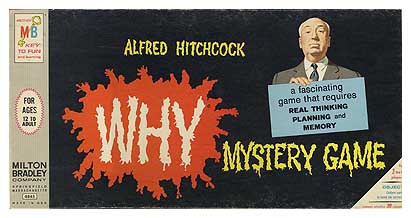 The best times were when Davey played board games with her. They played Parcheesi, Sorry, and a game with cards called Alfred
Hitchcocks Why. Whenever she asked Davey to play Why, he would tease her by saying, why? Why play why, why oh why. My oh my. Then she would giggle and set out the game board.
The best times were when Davey played board games with her. They played Parcheesi, Sorry, and a game with cards called Alfred
Hitchcocks Why. Whenever she asked Davey to play Why, he would tease her by saying, why? Why play why, why oh why. My oh my. Then she would giggle and set out the game board.
On Sundays the family went to church in town. Davey hated going so much that he would walk out of the chapel and disappear for hours. Sometimes he was home when the family got back, and sometimes he wasnt. Evil cant tolerate the presence of good, said Dad. He was always talking about the devil. He saw the devil on TV and in magazines and movies. Davey said he was nuts. Beth didnt know what any of it meant. Dad and Davey didnt like each other, was all she knew.
When Dad took Davey away, Mom said he was going to a boys ranch. Beth tried to imagine Davey with a cowboy hat on over his long hair. She wondered if he would ride horses at the ranch. Its not that kind of ranch, said Mom. Its a place for bad boys. Your brother is bad. Beth went to her chair in the dining room and sat in it. She backed her heels up against the chair legs and let her hands hang down on the sides.
Wed already had our heads shaved when they lined us up for uniform issue. We went single file into a long narrow building with a low roof. We were measured and sized for fatigues, boots and hats. Then we removed our civilian clothes and put on our uniforms under strict supervision. The lot of us were pussy queers who needed our mothers to dress us properly. They gave us dozens of rules for wearing Army fatigues. The line of buttons on the shirt had to meet with the top button on the fly, pockets had to always be buttoned, the cap had to be worn outdoors but never indoors, trousers (not pants, you stupid shit) had to be tucked into the boots (bloused, goddamit). Our civilian clothes were crammed into the duffel bags they issued us. My nerves were all jangly as we were marched to the clinic for shots.
They fed us through another hallway there, and we walked through a phalanx of medics who jabbed us in our exposed shoulders. I counted nine shots all told, and not a clue what they were for. Questioning was a punishable offense, Id learned. So I took my shots and joined the others outside. We had a hill to climb to the barracks with our duffel bags on our backs. The drills even called it going up the hill. We marched up a wide lane of asphalt until we stood sweating in the desert sun by the barracks. We were barked into ranks and lined up.
A fat drill with a voice like Yogi Bear yelled some nonsense at us, and I began to feel woozy. Suddenly the lights went out in my head, and I awoke lying on the pavement. A couple of grunts and a sergeant helped me to my feet, and I was good for about two minutes. Then I went down again, and when I regained consciousness, I was in a jeep speeding to the hospital. They wheeled me in on a gurney and parked me next to an old lady who was breathing in ragged gasps.
I saw a doctor who accused me of faking. "Why didnt you fall on your nose?"he asked, "when people really faint, they fall on their noses."I didnt know why the hell Id fallen one way or the other, and my eyes brimmed with tears of frustration. "I think you hyperventilated like that woman in the hall,"he said, "she breaks down like this every month. Its a nervous condition. Maybe youre not fit for the Army."By now I was sobbing. I had no where else to go. My father had thrown me out, and I was just nineteen without a nickel to my name. "Okay,"said the doctor, "calm down. Im giving you one nights bed rest and its back to the barracks. Can you do that?"I nodded and wiped at my eyes.
 When I was released from the hospital Cabbie helped me retrieve my duffel bag and clothes from the small office next to the
barracks. We had to see a short drill with a short temper there. Cabbie forgot to address him as drill sergeant, and the little
guy screamed at him. "Get down and knock out twenty five pushups, asshole!"Then he turned to me and asked what the hell was
I looking at? Get down and knock em out. Thats how theyd say it: knock em out. And you knew to do twenty five. There were thousands of offenses punishable by pushups. Nobody knew just how many.
When I was released from the hospital Cabbie helped me retrieve my duffel bag and clothes from the small office next to the
barracks. We had to see a short drill with a short temper there. Cabbie forgot to address him as drill sergeant, and the little
guy screamed at him. "Get down and knock out twenty five pushups, asshole!"Then he turned to me and asked what the hell was
I looking at? Get down and knock em out. Thats how theyd say it: knock em out. And you knew to do twenty five. There were thousands of offenses punishable by pushups. Nobody knew just how many.
Cabbie was a twenty-nine-year-old guy from Seattle, where hed driven a taxi for a living. He was the oldest trainee in my platoon, and some of the guys called him old man. He said that one day a fare had smashed him over the head with something and robbed him. When he came to in the hospital, hed decided it was time for a career change. He had a touch of pattern balding, but it was hard to see with his head shaved. It would become more noticeable in the weeks ahead. Some other things would be revealed in the coming weeks as well.
The barracks building was air conditioned, which was a relief after living in my fathers hot garage. And the food at the mess hall was better than Id had at home. The other guys looked at me funny as I tucked into my meals like there was a famine going on. This tall lanky black guy named Newkirk said, "You gonna eat yourself to death."I ignored him and kept shoveling down my mashed potatoes. "My Momma told me to set my fork down while I chew. You scooping up another bite before you done with the last one."He said he wanted to be a priest someday. I told him theyd already made me one of those at the Mormon church. "Was you called of God?"he asked, and I said I didnt know what he meant. "You gotta be called of God. What kind of religion is that anyway?"
My dog tag was marked LDS, and I was making one last shot at trying to please my father. Hed never liked me, and I didnt care for his church. But I had started attending services shortly before I left the garage he housed me in for basic training. Dad had me write a letter to him promising to be a good Mormon while I was in the Army and go on a mission when my tour of duty ended. It was my covenant with God, hed said, although it was his idea. I did have every intention of being a Mormon and attending services wherever I was stationed. The was no chapel on the base, and Id have to wait a few weeks before I could attend at the one in El Paso.
We were roused from our bunks at 0530 hours every morning by a short drill and a metal trash can. He banged at it with a baton and hollered. "Shit, shower, and shave, ladies."We filed into the latrine and did our business in a hurry. Then we had to make our beds, and the blankets had better be tight with no goddam wrinkles. If you didnt get it right, youd come back later to find your mattress and sheets tossed on the concrete floor. Sometimes your mattress would get tossed anyway, because you were a dumbass trainee. After making our beds and putting on our uniforms, we had to run outside and stand in neat lines on the asphalt. They called this formation, another word screamed at us while we scrambled to start our day.
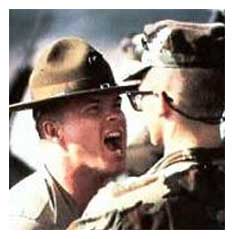 The fat sergeant with the Yogi Bear voice was our senior drill. He came out of the office burping and farting loudly. Then he walked back and forth in front of the ranks bellowing at us. "Yall trainees are whale shit. Thats on the bottom of the sea, and there aint nothing lower. Some of you will become soldiers. Some good, and some hippie damn soldiers, I know. A few of you will bolo out and be sent home to your mommies. I probably know which ones already, but I aint saying."
The fat sergeant with the Yogi Bear voice was our senior drill. He came out of the office burping and farting loudly. Then he walked back and forth in front of the ranks bellowing at us. "Yall trainees are whale shit. Thats on the bottom of the sea, and there aint nothing lower. Some of you will become soldiers. Some good, and some hippie damn soldiers, I know. A few of you will bolo out and be sent home to your mommies. I probably know which ones already, but I aint saying."
He marched us double time to the mess hall for chow and then double time to the PT field where we exercised. We had to keep our arms straight out while holding buckets of cement until we were told to put them down. No one lasted that long, because fairies are weak. We ran the mile on an oval track, and Newkirk took off at a sprint, laughing at all of us joggers. He made the first lap pretty well, passing us on the way around. On the second lap he had a pained look on his face, and he collapsed halfway into the third. I thought to myself he wasnt gonna make it through basic, but he did.
It was a guy they called Roundy who didnt make it. He was found by Cabbie in the latrine, puking his guts out after swallowing a whole bottle of cold pills. Roundy said he wanted to die, and they sent him home to keep him from doing it at Fort Bliss. There was a rumor that a trainee had killed a drill and stuffed the body in a dumpster. Death was in the air, but then it was the Army, and thats the business. Several guys from neighboring platoons went bolo as well. Until they were shipped out, they had to continue wearing their uniforms, each of which had been marked with a big black X. They were the bolo patrol, and they had their own temporary barracks. We envied and pitied them.
One of the drills was Mormon, and the other guys told me that he didnt swear. Hes like you, Bagley, they said, he just says damn and jackass and hell. Shit like that. The man had red hair and a ruddy complexion like mine. He was as friendly as a wolverine. When we were finally allowed to attend church in town, I saw him in sacrament meeting. He was the only person I knew there, and he refused to speak with me. No one else in the chapel would talk to me, either. I thought about whale shit. It was the last time I would ever walk into a Mormon church as a member. I didnt start cussing right away, but it came to me. The mission? Well, that didnt happen.
The band room was at the end of a long narrow hallway. The folding chairs, each with its own music stand, were arranged in a semicircle facing the teacher. I took the clarinet out of its case and held it to my lips for a moment. Mom had taught me some notes, and I figured I would learn some more. My nerves were on edge over the strangeness of the room and everyone in it. I didnt know any of the students, the teacher, or even the town, having just moved there. I missed New York City terribly, but twelve-year-olds dont have the option of living where they please. Dad had taken the job of assistant superintendent at the junior high school I was sitting in. I gently tapped the clarinets reed against my teeth, distracting myself with the soft clicking sound it made.
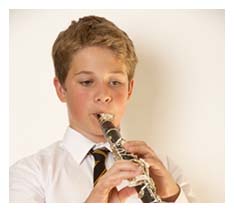 The teacher walked around and put sheet music on our stands, which disturbed me. Why would he do that? Okay, everybody, he said, lets start from the top. All the other students started playing their instruments while looking at the notations on the pages in front of them. I felt shaky, and my sheet music blurred. I was an imposter. I was an embarrassed imposter with eyes full of tears and trembling hands. I stood up and bolted out of the room, fleeing to the sanctuary of the long hallway. The teacher followed me out and asked what was wrong. I cant do it, I said through quivering lips. I dont know how to play like that. But your father told me in the faculty meeting that you were an expert musician.
The teacher walked around and put sheet music on our stands, which disturbed me. Why would he do that? Okay, everybody, he said, lets start from the top. All the other students started playing their instruments while looking at the notations on the pages in front of them. I felt shaky, and my sheet music blurred. I was an imposter. I was an embarrassed imposter with eyes full of tears and trembling hands. I stood up and bolted out of the room, fleeing to the sanctuary of the long hallway. The teacher followed me out and asked what was wrong. I cant do it, I said through quivering lips. I dont know how to play like that. But your father told me in the faculty meeting that you were an expert musician.
My humiliation lifted a little when I went to the office to have my schedule changed. I was given study hall for the period in place of the advanced music class. I took the clarinet home, and I gave it back to my mother. I never wanted to see the damn thing again.
The next fall my younger brother started junior high. Dad enrolled him in the same music class with the same clarinet and the same lie to the music teacher about his abilities. When it didnt work out, Dad blamed my brother and called him a disappointment. How could his sons ever handle their priesthood obligations if they couldnt rise to overcome simple challenges in their daily lives? They fired Dad later. He never did say why.
 The carnival would be in town for a limited time only. Jeff and I collected all the change we could get our hands on and walked from our house to the midway. Sunlight sparked a hundred globes of glass with goldfish darting within. Teddy bears the size of easy chairs dangled over a booth with a bean bag toss. There was one booth with a trough of running water and rubber duckies. If you plucked the right duckie from the water, thered be a prize number on the bottom of it. You could win a framed print of a unicorn. That was all kids stuff. I was twelve, and I went straight to the cigarette throw. If you threw a dime on one of the marked spots on a table, you got a pack of smokes.
The carnival would be in town for a limited time only. Jeff and I collected all the change we could get our hands on and walked from our house to the midway. Sunlight sparked a hundred globes of glass with goldfish darting within. Teddy bears the size of easy chairs dangled over a booth with a bean bag toss. There was one booth with a trough of running water and rubber duckies. If you plucked the right duckie from the water, thered be a prize number on the bottom of it. You could win a framed print of a unicorn. That was all kids stuff. I was twelve, and I went straight to the cigarette throw. If you threw a dime on one of the marked spots on a table, you got a pack of smokes.
The cigarette carny had a hundred millimeter Winston dangling from his sun burnt lips. "Dimell get you a pack,"he said, his cigarette bobbing as he barked. "Thin dime, fat pack, twenty smokes, try one, folks."
I threw a dime and it skidded off the end of the table. "Try again, friend,"the carny said. So I threw another, but gently so that it stayed on the table. It covered a marked spot, and the carny tossed me a cigarette pack--Fatimas, a brand I hadnt seen. Jeff and I won a couple more packs before running out of dimes.
We had a place in the woods by a crab apple tree where we could go to smoke. Mom and Dad were afraid of cigarettes, especially Dad. He said they were one of the tools the devil uses to get people, along with Coca Cola and coffee. The prophet Joseph Smith had received a revelation from God about tobacco and coffee, and how we werent supposed to use those things. Good Mormons wouldnt sneak out into the woods to smoke. But Mom didnt want us in the house anyway, and we had to go somewhere. When we didnt get lunch we ate crab apples.
Wed moved to Pottstown from New York City less than eighteen months earlier. Though wed gone from a cramped apartment to a large two storey house, it didnt feel like progress. Mom and Dad still had their yelling fights, and Sundays were worse than ever. We had to drive forty miles to the nearest Mormon chapel in Valley Forge, passing dozens of Christian churches along the way. Several sabbath services were held each week, so we spent a lot of time driving back and forth in a hot station wagon. Complaining led to scolding, and punishment could be as swift as a swinging forearm or as tedious as confinement to the bedroom over the garage.
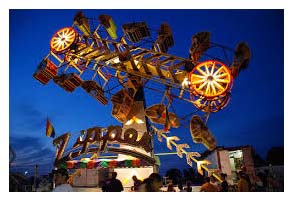 I dont know why I even tried the Zipper. It was a loud and grinding carnival ride that resembled the blade of a chain saw. Cages with seats rotated around the giant blade as it went up and down. Passengers were rocked, spun and jostled silly. There was far too much movement for me, and my breakfast of Cheerios came up. My stomach clenched painfully as I spewed vomit at the cage. The sun flashed through the enclosures metal mesh, and then trees, and then the dry ground. I tried to call out to the carny to stop the ride, but I only made croaking sounds between heaves. Afterwards, Jeff said he saw the carny operator picking up change that had fallen from peoples pockets. Some of my puke dribbled onto the man, and he looked skyward with one hand out as if checking for rain.
I dont know why I even tried the Zipper. It was a loud and grinding carnival ride that resembled the blade of a chain saw. Cages with seats rotated around the giant blade as it went up and down. Passengers were rocked, spun and jostled silly. There was far too much movement for me, and my breakfast of Cheerios came up. My stomach clenched painfully as I spewed vomit at the cage. The sun flashed through the enclosures metal mesh, and then trees, and then the dry ground. I tried to call out to the carny to stop the ride, but I only made croaking sounds between heaves. Afterwards, Jeff said he saw the carny operator picking up change that had fallen from peoples pockets. Some of my puke dribbled onto the man, and he looked skyward with one hand out as if checking for rain.
The carnival pulled up stakes and left town. Jeff and I continued to be bored at school and church, taking smoke breaks by the crab apple tree until we ran out of Fatimas. One day we stepped off the school bus and saw a For Sale sign on our front yard. Mom said to tell people we were moving to the country. Pulling up stakes, as it were.
After the two hour drive from Boise, Susan walked into her fathers house in La Grande to find Roger Funles tearing up the carpet. When she confronted him, he shrugged. The house will have more value with new carpet, he told her. Itll be easier to sell. Her father had just died the night before, and already her brother-in-law was remodeling?
 "The only thing I want,"she said, "is my fathers silver plaque for marksmanship. Have you seen it?"
"The only thing I want,"she said, "is my fathers silver plaque for marksmanship. Have you seen it?"
"Im sorry I cant help you,"said Roger. He doubled over to roll up a corner of carpet.
Susans step-sister Trisha was in the kitchen, rifling through drawers. Susan asked her how long she and Roger had been there, and Trisha said theyd left Provo a little after midnight. Roger had insisted they get an early start. And no, she hadnt seen the silver plaque.
There was nothing but a pale rectangle on the wall of her fathers room where the plaque had been. The last time Susan had seen it there was after her mothers funeral. Mom had suffered through a long battle with cancer, and Dad had sold his rifles to offset some of the medical bills. The one thing Susan knew hed never sell was his award for marksmanship. Hed placed first in the Pacific northwest after shooting for over three decades.
She checked his empty gun room downstairs. There was no reason for him to bring the plaque down there, but she couldnt imagine what else he might have done with it.
Roger and Trisha went out to their car before Susan came back upstairs. Roger said they needed to get going; hed finish the carpet later. He glanced back at the rear seat before driving off to make sure the blanket was still in place.
When I turned eight and was baptized, my father bought the only bicycle he would ever give me. It was a gold framed Stingray with a banana seat and butterfly handlebars. It didnt have the gear shift that the expensive ones had, but it was the best thing Id ever owned. I rode it to school with pride.
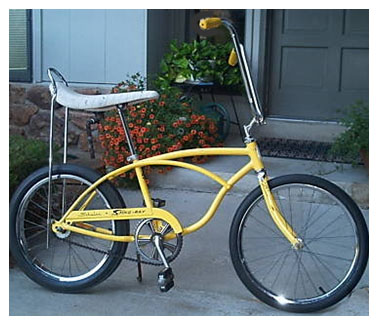 The lock Id been given was too short for securing the bike to the rack at school, so I fastened it to the chain near the pedals. Another kid showed me how to do it. When classes ended I came out to find the bike missing. But no one could have ridden off with it, because the pedals wouldnt turn. The kid told me he saw Freddy on it in the parking lot, so I walked over there. Freddy was the tallest kid in school. They said hed been held back two years and had no father. I didnt know how you couldnt have a father.
The lock Id been given was too short for securing the bike to the rack at school, so I fastened it to the chain near the pedals. Another kid showed me how to do it. When classes ended I came out to find the bike missing. But no one could have ridden off with it, because the pedals wouldnt turn. The kid told me he saw Freddy on it in the parking lot, so I walked over there. Freddy was the tallest kid in school. They said hed been held back two years and had no father. I didnt know how you couldnt have a father.
Freddy was kind of walking my bike around in the lot, using his feet on the ground to propel it. I didnt get near him. After a few minutes, he dropped the bike and walked away. I retrieved it to find that the lock had jammed up tight against the chain guard and couldnt be worked free. I had to wheel the bike home and wait for Dad to come home from work.
My father wasnt happy with what happened to his pricey gift and told me I needed to take better care of it. I stopped taking it to school. He managed to pry the lock loose with his tools.
We didnt have a bicycle pump so I had to take the bike to a Shell station about a half mile away when the tires were low. Dad said hed had to walk twice as far when he was a boy, and it would do me some good. One day I found that the bikes tires had suddenly gone flat while the bike was just sitting in the garage. When I went to use the compressed air at Shell to fill the tires, I found they would no longer hold pressure. The air I put in just whooshed back out of the valves. The attendant approached me, which rattled my nerves. He was large and hairy with a beard. None of the men at church wore beards, and even mustaches were rare. This man had hair coming out of his cheeks. "They aint holding the air in,"he said. "You need some new inner tubes."I was too scared to face him and pushed the bike home with my eyes averted.
When I told Dad about the problem with the tires, he asked me why I couldnt figure it out myself. Then he went out to the garage and looked the bike over for a minute. "Someone unscrewed your valve cores while you werent paying attention,"he said. He had a little valve core wrench in his pocket that was about the size and shape of a candy cigarette. He used it to tighten the valves so the tubes would hold air again. "I wish you would take better care of your things,"he said, "This is why I dont like buying things for you."I never did find out who had loosened the valves, and the bike was stolen from our front lawn a few weeks later. Dad said it was my own fault, and hed never get me a bike again.
My sister had a girls beach cruiser with fat tires. I started riding that. Not to school, though, because I didnt want to be seen on a girls bike with a step through frame. The bike was bulky and hard to handle, so I just rode it up and down the street to get some wind in my hair. After a while the tires got low, and my sister told me I had to fill them up myself, because she wasnt my mother.
 I stood across the street from the Shell station, watching the bearded attendant. A car pulled into the repair garage and he went in to speak with the driver. I thought that would keep him for a while, and I could air up the tires without risking an encounter. I kept watching the garage as I filled the tires. My sisters bike was the last thing on my mind. I kept imagining the bearded man turning the corner of the shop and approaching me. The tires were really extra fat when I at last thought to check them. I rode home in a hurry, as if pursued.
I stood across the street from the Shell station, watching the bearded attendant. A car pulled into the repair garage and he went in to speak with the driver. I thought that would keep him for a while, and I could air up the tires without risking an encounter. I kept watching the garage as I filled the tires. My sisters bike was the last thing on my mind. I kept imagining the bearded man turning the corner of the shop and approaching me. The tires were really extra fat when I at last thought to check them. I rode home in a hurry, as if pursued.
I was getting a cup of Kool-Aid in the kitchen when I heard a loud bang like a gunshot outside. It sounded like it came from the front lawn, where Id left my sisters bike. I ran out and found that the rear tire was flat and had a piece of inner tube protruding from one side. When Dad got home I showed it to him, because Mom was staying in her room again and couldnt be bothered. "You put too much air in,"said Dad, "it blew out the tube. Whats the matter with you and bicycles? When you were baptized and received the Holy Ghost, you were expected to be responsible for your actions. Youre acting like a baby."
I went to the bedroom I shared with my brothers and sat on my bed. I left the light off, and I sat there looking at my hands. Why did everything I touched go bad? I might as well not have any hands. Then I reclined on the mattress with my hands behind my head. If I didnt touch anything, I couldnt mess it up. I wished I was somebody else.
When I emerged for dinner, Dad asked me how I felt. I said I felt bad, and he said that was good. It was good because the Holy Ghost was doing it to me to teach me how to avoid doing wrong. I would remember the bad feeling next time I was about to commit a sin and stop myself from doing so. I didnt say anything, but I wondered about the Holy Ghost. Did he have a father? I was thinking he didnt, and that was maybe why he went around stealing your happiness.
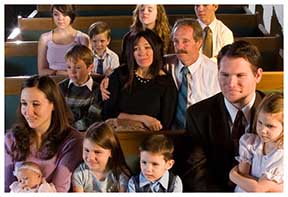 For the first time ever, Brother Job took a seat on the dais with the bishop and second councilor. The
congregation looked different from up here, a lake of anxious faces topping the low backed pews. Hed
been in those pews for six years, his longest in any ward ever. Two bishops and four counselors
preceded him. The competition for leadership was fierce in a predominantly white enclave like
Roseville. The town was full of professionals and inheritors, and Brother Job was both.
For the first time ever, Brother Job took a seat on the dais with the bishop and second councilor. The
congregation looked different from up here, a lake of anxious faces topping the low backed pews. Hed
been in those pews for six years, his longest in any ward ever. Two bishops and four counselors
preceded him. The competition for leadership was fierce in a predominantly white enclave like
Roseville. The town was full of professionals and inheritors, and Brother Job was both.
Despite the efforts of his wife and children to bring him to ruin, he had worked his way through college to earn his Ed.D. Beginning with the disputed inheritance from his mother (his siblings had whined about it) and finishing with government grants, hed gotten it done. The degree had given him the opportunity to take a position in public school administration in nearby Sacramento. Hed been fired from school districts in Oregon and Pennsylvania, with a forced resignation or two in California as well. Most of the parents and members of the various local school boards had misunderstood him. It was frustrating that so many had refused to take the time to listen to him. He suspected that anti Mormonism was the reason. He had always gotten the attention of the adversary, which was probably a result of his faith and priesthood standing.
The worst of his trials had begun in Pottstown, Pennsylvania, where hed taken his first administrative job after completing his degree. His twelve-year-old son Ronald developed an unhealthy obsession with science fiction books there. The boy would skip classes to read books in the school library. When confronted, Ronald claimed he was avoiding the bullies in the classrooms. Brother Job had been disappointed with his sons fabrications and punished him accordingly. But the boy rebelled even more, going so far as to proclaim himself an agnostic. Members of the Pottstown branch were understandably offended by Ronalds remarks. As the only deacon in the small congregation, Ronald was a role model for the Primary children. His comments about the prophet and fraud were intolerable, and his privileges were withheld to no avail. When grounded he sulked in his room and refused to pray as hed been told.
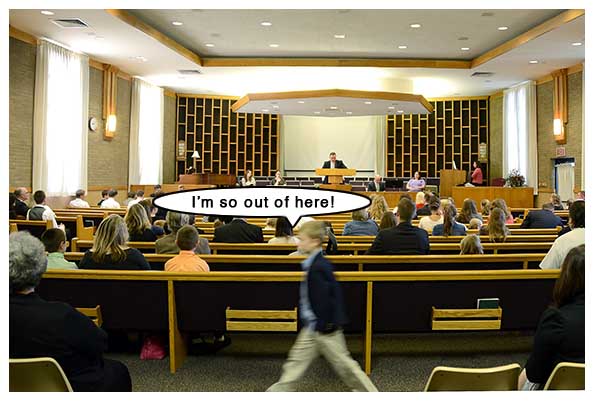
Ronalds older sister Jezebel turned sixteen there, and she openly flirted with the married men in the branch. Her clothing had to be constantly monitored for modesty--she was always trying to show more flesh. Eventually one of the men confessed to having inappropriate relations with her and was excommunicated. Brother Job was humiliated, and it was almost a relief when he was fired from his job amid accusations of siphoning off contractor fees from the district. His faith was sorely tested when he had to move his family across country to live in his mother-in-laws house in La Grande, Oregon.
Down, but not defeated, hed taken a position in the laboratory of a local fiberboard plant there. He converted a one bedroom house to three bedrooms for his family by splitting the garage into two living spaces. Were they grateful? No, Ronald got into more trouble and Jennifer had more boyfriends. His wife had two more children there, and he found a job with the school district, though not as administrator. Fifteen-year-old Ronald eventually became too much for his poor mother to bear, and Brother Job had to place him in a boys ranch for six months. Before the boy was released, the family relocated to Elmira, a small town in the western part of the state. Brother Job had been given an opportunity to serve as school superintendent there. The Holy Ghost inspired him to accept the offer.
In Elmira a mob of locals rose up against him, and his sons Ronald and Jimminy were both involved in scuffles and scrapes at the high school. They blamed him for their schoolyard fights, claiming that others hated him enough to target his sons. He ignored their protestations, having seen enough teenage angst in the previous two towns. Jezibel went to BYU, where she failed a series of courses and spent his money. The smaller children were demanding attention and resources, and his wife was constantly complaining about the late night death threats on the phone. Now he knew how Lehi felt with all that family contention in the Book of Mormon.
When the Elmira school district fired him, an old friend of Brother Jobs helped him find the administrative job in Sacramento. He bought a small three bedroom house in Roseville and put the boys in the garage. They complained bitterly about the heat in their sleeping quarters, and he wondered why hed mollycoddled them so much that they couldnt take a little discomfort like the young men they were supposed to be. Jennifer moved in, having dropped out of BYU, which added to his expenses. It became necessary to put a lock on the food cupboard until the older children moved out. Jezibel drifted back to Utah, and Ronald and Jimminy joined the Army. He made very good money and upped his tithing game, which no doubt triggered his promotion to the enviable rank of first counselor.
It had been a protracted struggle that led him to the seat by the bishop. He imagined that the congregants before him had no idea.
 At the entrance of a cracked and worn dead end street sits the white house, a small three bedroom shake-sided house with an attached one bedroom apartment. We
lived on the large side, and a bachelor rented the single side. The bedroom I shared with my two brothers faced Antelope street, a busy crosstown boulevard. At
night I watched headlights sweep across the ceiling until I slept fitfully, dreaming of monsters and evil men. One night I had a nightmare about a small
spider. It crawled into my ear, and I woke up with an itching in the ear canal. Convinced I had a parasite, I ran into the living room where my parents
were still up and watching the black and white. My dad looked in my ear for me and pronounced it clear of arachnids.
Can we put a sign on my door? I asked
him, no girls allowed. My sister had pissed me off by constantly teasing me, and I wanted to make a statement, I said. But
I really just wanted to forestall going back to bed. Tomorrow, said Dad, well talk about it.
At the entrance of a cracked and worn dead end street sits the white house, a small three bedroom shake-sided house with an attached one bedroom apartment. We
lived on the large side, and a bachelor rented the single side. The bedroom I shared with my two brothers faced Antelope street, a busy crosstown boulevard. At
night I watched headlights sweep across the ceiling until I slept fitfully, dreaming of monsters and evil men. One night I had a nightmare about a small
spider. It crawled into my ear, and I woke up with an itching in the ear canal. Convinced I had a parasite, I ran into the living room where my parents
were still up and watching the black and white. My dad looked in my ear for me and pronounced it clear of arachnids.
Can we put a sign on my door? I asked
him, no girls allowed. My sister had pissed me off by constantly teasing me, and I wanted to make a statement, I said. But
I really just wanted to forestall going back to bed. Tomorrow, said Dad, well talk about it.
Dad was standing in the small kitchen when I walked in. He asked me if I wanted a peach, and I said yes. He picked up two peaches that hed already put out on the formica counter. He looked at them and handed me one. It had a worm hole in it, I said. Are you really that silly? asked Dad. Thats only in cartoons. That hole is just a puncture. You can trust me, number one son. Im a priesthood holder. I have discernment. So I took a bite, and I saw it writhing in flesh of the peach. It was as pale as something youd find under a rock, and it was moving. Aggh! I threw threw the peach in the kitchen trash. My fathers eyes smiled as he ate his perfect peach.
 By the age of fifty, I had become estranged from the old man. A half century of abuse and lies is about as much as anyone can bear. I bought my own little place in North California and settled in with my wife and son. Its a cosy two bed home with a wood burning fireplace and a garage. Sometime before I became estranged with her, my sister knocked on my door one winters eve about three days after Christmas. When I opened the door, she started shoving an outdoor fire pit on wheels into my house. It was huge and ugly. Wait, I said. Then she told me that it was my Christmas present, and she had spent quite some time shopping for it. But it was out of the box and fully assembled, as if someone had already gifted it to her. There was no owners manual.
By the age of fifty, I had become estranged from the old man. A half century of abuse and lies is about as much as anyone can bear. I bought my own little place in North California and settled in with my wife and son. Its a cosy two bed home with a wood burning fireplace and a garage. Sometime before I became estranged with her, my sister knocked on my door one winters eve about three days after Christmas. When I opened the door, she started shoving an outdoor fire pit on wheels into my house. It was huge and ugly. Wait, I said. Then she told me that it was my Christmas present, and she had spent quite some time shopping for it. But it was out of the box and fully assembled, as if someone had already gifted it to her. There was no owners manual.
I never made use of the hideous rolling fire pit. It sat in my backyard rusting and filling up with rainwater. Mosquito larvae squirmed in the stale water, and I had to periodically empty it. After a couple of years, I made a run to the county dump and took the damned thing with me. I throw things out if useless or spoilt. I imagine my gift is deep in the landfill by now, worms turning within and without it.
The address was a brownstone on west 80th street, about halfway up Central Park. It was written on the back of a Chase business card with the instructions: come now. Zak had called the number on the legit side of the card and found the original owner deceased. That left the handwritten side. At the moment, Zak was standing in front of the brownstones stoop. He had the feeling he was being watched. Most likely by camera, because he had looked around and seen no one. He hadnt been followed from the subway station, so anybody aware of his presence would have to be lying in wait. Hed see them soon enough..
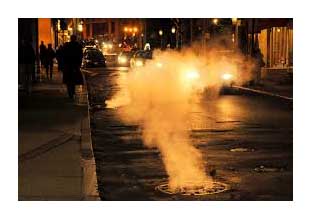 Nothing moved under the streetlights. Headlights clashed on West Park Drive in the night mists of manhole steam. Car horns bleated. Zak climbed the stone steps to knock at the
door. He was greeted by a bearded white guy in a black t-shirt and black jeans. Even the guys boots were black.. Come in, the guy said, and look around. Zak wanted to know who
he was. His name was Virgil, and hed been hired by a temp agency to greet Zak, he said. He gave the agencys name; he didnt know any more. Zak looked for cameras and saw
none. "The place is all yours,"said Virgil, "Im leaving."Zak said, "what the hell is going--"but Virgil had scuttled out the front door.
Nothing moved under the streetlights. Headlights clashed on West Park Drive in the night mists of manhole steam. Car horns bleated. Zak climbed the stone steps to knock at the
door. He was greeted by a bearded white guy in a black t-shirt and black jeans. Even the guys boots were black.. Come in, the guy said, and look around. Zak wanted to know who
he was. His name was Virgil, and hed been hired by a temp agency to greet Zak, he said. He gave the agencys name; he didnt know any more. Zak looked for cameras and saw
none. "The place is all yours,"said Virgil, "Im leaving."Zak said, "what the hell is going--"but Virgil had scuttled out the front door.
Earlier that day, Zak had taken lunch at a small diner on Amsterdam. He was recovering from a coma following a near fatal motorcycle accident and decided to treat himself. The place was called The Narrows, and it looked its name. The sidewalk front was no more than a door and a single window. Inside two small tables huddled by the window, and the rest of the seating was barstools at the long counter. The wall opposite featured a mural of the Verrazano Narrows Bridge, which connected Staten Island with Brooklyn and was once the longest single span crossing in the world. Several people were seated at the tables, so Zak took a barstool and waited to order. The service was slow, so he went to the restroom. When he came back to his seat he found the card. A couple of customers had left; the cook had nothing to say.
For a moment Zak wondered if LeAnn had left the note. Theyd been broken up for several months after shed refused to convert. "I wont settle for anything less than a temple marriage, because I want the Celestial Kingdom."he told her. "I cant pretend to believe,"she said. "Cant or wont?"he replied, and she turned her back on him. Just like his father, who had stopped talking to him a year earlier. Zak had offered the old man an early buy in for a start up company. Twenty thousand dollars. After a year the start up tanked, and there was nothing left. Dad wanted his money back. As if Zak hadnt lost a year of his life that was certainly worth more than twenty grand. Could the old geezer have left the note? Somebody wanted Zak to go to the address, and Zak wanted to know why.
The brownstones entry way was a cramped and poorly lit hall. Zak could touch both side walls without leaning sideways. A cracked yellow light fixture on the ceiling appeared to be lit with a forty watt bulb. There was a staircase straight ahead and a doorway on the left. Before he did anything else, Zak wanted to confirm that he wasnt a prisoner. He turned and opened the front door. He stepped out onto the porch in the dark. Then he re-entered the house. He passed through the internal doorway and entered the living room. There was a bricked over fireplace, a couch, and a loveseat in matching satin fabric. The room was gloomy and lit only by leakage from the hall light. A regulator clock ticked on the wall, its pendulum swaying in and out of shadow.
Zak heard something small run up the stairs--maybe a nervous cat. He followed the noise up to the second storey. Floor boards creaked underfoot. Weak city light penetrated the heavily draped windows, allowing him to navigate the upstairs. There was a door ajar at the end of the hall. The room beyond was near black and the doorway was like a maw. He was afraid to enter, and yet he felt compelled somehow.
Some kind of a nut in a dragon costume with a long tail stood in the deep shadows of the room.
"I am Minos,"said the dragon man, "choose your circle."
Zak turned around, but the doorway was gone. There was nothing but darkness behind him. Overhead there was a rugged, ruddy glow like lava light on stalactites, and in the background the barely audible cries of men and women, muffled with distance.
Trisha recalled the first time shed seen Roger. He was at his locker in a high school hall, being accosted by three large boys. "Hey, Funless,"the tallest one said, "watcha doin Friday? You goin to the cricket stomper dance at the Mormon church?"Roger reddened, which somehow intrigued Trisha. She had dated a bully once, and hed tried to force her to do things that were nasty. "My last name is pronounced Funnels,"said Roger, "though its spelled Funles."The bully tapped his forefinger at Rogers sternum. "Like I said, Funless."Then the boys walked away laughing. Trisha made sure to sit next to Roger in Social Studies.
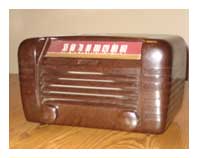 Trishas mom had married a lawyer, one of the richest men in North Falls. Her real father had run off long ago. "You better be glad for everything that Harley provides
you with,"her mom reminded her daily and then some. Meat was for dinner only, so Trisha made a ketchup sandwich and smuggled it past her brother Donalds upstairs
room. The house was a Tudor on a street with more trees than lawns. Trisha had a small RCA table radio, and she listened to the top of the charts in the evenings. When
she looked in the mirror, she didnt see a model, but she was good with the way she looked. She wore her hair pixie and had a turned up nose. She knew that boys
liked her, because they asked her out. But they always tried to put their hands all over her. The thought of sex frightened her, though shed been raised in an agnostic
house. It wasnt morality, just that the act seemed repugnant. From what shed heard, it sounded like wet violence.
Trishas mom had married a lawyer, one of the richest men in North Falls. Her real father had run off long ago. "You better be glad for everything that Harley provides
you with,"her mom reminded her daily and then some. Meat was for dinner only, so Trisha made a ketchup sandwich and smuggled it past her brother Donalds upstairs
room. The house was a Tudor on a street with more trees than lawns. Trisha had a small RCA table radio, and she listened to the top of the charts in the evenings. When
she looked in the mirror, she didnt see a model, but she was good with the way she looked. She wore her hair pixie and had a turned up nose. She knew that boys
liked her, because they asked her out. But they always tried to put their hands all over her. The thought of sex frightened her, though shed been raised in an agnostic
house. It wasnt morality, just that the act seemed repugnant. From what shed heard, it sounded like wet violence.
Over dinner Trisha told her parents that she had a date for Friday with Roger Funles. "Isnt he that odd Mormon boy who lives in a shack with his mother off Spivey Alley?"Harley asked. Harley knew everyone in town. "Hes a nice boy,"said Trisha. "he doesnt push people around."Harley chuckled. "Kinda hard to push someone around with their boot on your forehead,"he said. Trisha looked down at her meatloaf. I hate you, she thought. I hate you Harley for taking over my life and criticizing it. "Does this Roger have a car?"Mom asked. "Hes borrowing his older brothers Ford for the evening. Were going to a church dance."said Trisha. She looked at Harley. Make fun of that, she thought, you atheist smartass. Harley tried. "The Mormons dance?"he asked. "And here I thought they were a funless bunch."Trisha stood up and threw down her fork. "Im not hungry anymore,"she said. "Thinking of Mormons ruins my appetite too,"Harley called after her as she left the room.
She was face down on her pillow when Mom entered her room. She didnt want hear what would certainly be said. "Trisha,"said Mom, "I know that things are hard for you."Trisha turned her head to face her mother. "You dont know anything,"she said, "my life is ruined, and you did it. Its your fault."Her mother touched her hair. "I hate Harley,"said Trisha, "I wish he was dead."With a sudden move, Mom grabbed a lock of Trishas hair and pulled her face back down into the pillow. "Listen, you little shit,"said Mom, "Harley is all that you and Donald and I have. You will respect him, if you want to continue living under his roof. Do you agree?"Trisha cried out; the hair pulling hurt. "Do you agree?"Trisha nodded weakly. "Good."Her mother left the room followed by Trishas darts of hate.
Roger was seated on the floral couch watching the television. Boxing was on. "You dont get to see this at home, do you, young Mr. Funles?"said Harley, who sat in his favorite chair with the flared arms. "You got my name right,"said Roger, "most people call me funless."Harley pushed a pinch of tobacco into his pipe. "I dont doubt it, son,"he replied, "I dont doubt it at all."Trisha entered the room with a tray of lemonade and glasses. Mom had wanted tea, but she had to be reminded it was taboo for Mormons. "Then you serve the damn lemonade,"she said before retreating to the den for a smoke. "What dont you doubt?"Trisha asked Harley. He struck a match and lit his pipe. One bushy eyebrow threatened to rise like a quivering caterpillar. "I doubt most things,"he said, "but I dont doubt that Roger here knows how to avoid a good time."One glass of lemonade, Trisha thought, then we leave for the dance.
 Roger opened the Fords door for Trisha, and she bunched up her long poodle skirt to get in. Roger was wearing a nice plaid shirt and slacks with a crease that could
cut through granite. His hair was slicked up into a pompadour. He made a good looking date. "Im going to be a radio engineer,"he said, as he steered through the
dark streets. "You know what they make?"Trisha shook her head no. "Well,"said Roger, "it aint peanuts. A good engineer could take care of a wife, and any number of
children."Trisha didnt know about the children, but she liked the taken care of wife part. She imagined Roger coming home after a day of engineering. "Whats for
ner, my love?"he would ask. And shed have something from Betty Crocker baked for him. The kitchen would smell like corn muffins and melted butter. She pictured love
as a kind of gentle touching in the steam of a busy kitchen.
Roger opened the Fords door for Trisha, and she bunched up her long poodle skirt to get in. Roger was wearing a nice plaid shirt and slacks with a crease that could
cut through granite. His hair was slicked up into a pompadour. He made a good looking date. "Im going to be a radio engineer,"he said, as he steered through the
dark streets. "You know what they make?"Trisha shook her head no. "Well,"said Roger, "it aint peanuts. A good engineer could take care of a wife, and any number of
children."Trisha didnt know about the children, but she liked the taken care of wife part. She imagined Roger coming home after a day of engineering. "Whats for
ner, my love?"he would ask. And shed have something from Betty Crocker baked for him. The kitchen would smell like corn muffins and melted butter. She pictured love
as a kind of gentle touching in the steam of a busy kitchen.
The music at the dance wasnt even too loud, and Roger could foxtrot. They had punch and chatted by the exit door. "Where do you see yourself in ten years?"Roger asked. Trisha didnt know. She hadnt thought about anything except escaping the judgment of her parents. "How about married to an engineer?"Roger asked. Trisha was beginning to wonder if maybe the word engineer had no meaning, the way it was being bandied about by a non-engineer. But Roger was too polite to let go of. Whatever his occupation would be, he was gentle with her, and that was what she needed most. He told her she was beautiful and delicate, and he wanted nothing more than to take care of her. In a weak moment she said, "My stepfather is rich."Roger nodded. "Im aware of that,"he said, "everyone in town knows him."Trisha wanted to say, and he knows you, but she thought better of it.
When Roger presented her with the ring, Trisha said yes. She had to be baptized into the Mormon church so that they could be married in the temple for all time and eternity. Roger told Trisha that people who marry for life are fools. Only a mormon marriage could last beyond death and forever past that. "Non Mormon marriages have divorce built in," Roger said with a knowing chuckle. "They die and their marriage ends." Trisha wasnt sure, but it seemed to make sense. And whenever she doubted Roger, she would remind herself of Harley saying, "Why did you stop dating Buff Henderson? Hes going Ivy League."Maybe because Buff wants a hand job, Trisha felt like yelling into his face. You old goat; why dont you die?
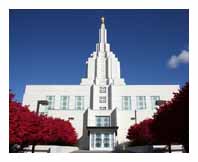 Trisha and Roger were scheduled to be married in the Idaho Falls temple. "Why cant I attend your wedding?"Trishas mom wanted to know. Trisha tried to explain temple
worthiness, but it just angered Mom all the more. "I cant go to my own daughters wedding? Harley!"Trishas stepfather entered the room. "What the hell is it now?"he
asked. "We cant attend Trishas marriage, because were not worthy."said Mom. "You lost me,"said Harley, "what?"Mom faced him and spoke slowly as if talking to a
pet, "The Mormons wont let us see Trisha get married, because were not Mormons"Harley shrugged and turned away. "Who thinks I want to see my stepdaughter marry a
goon from Spivey Alley anyway?"Trisha yelled first. Then Mom. Then Trisha again.
Trisha and Roger were scheduled to be married in the Idaho Falls temple. "Why cant I attend your wedding?"Trishas mom wanted to know. Trisha tried to explain temple
worthiness, but it just angered Mom all the more. "I cant go to my own daughters wedding? Harley!"Trishas stepfather entered the room. "What the hell is it now?"he
asked. "We cant attend Trishas marriage, because were not worthy."said Mom. "You lost me,"said Harley, "what?"Mom faced him and spoke slowly as if talking to a
pet, "The Mormons wont let us see Trisha get married, because were not Mormons"Harley shrugged and turned away. "Who thinks I want to see my stepdaughter marry a
goon from Spivey Alley anyway?"Trisha yelled first. Then Mom. Then Trisha again.
The temple marriage was a triumph for Trisha. Even though she had to strip naked and be ministered to by strange women, she felt that she was moving forward into adulthood. Her hateful parents would have no more say in how she lived her life. She would cling to Roger now. The ceremony had made it clear that she would be loyal to him forever. There would be no turning back, never.
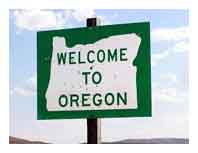 Though her wedding clothing was stuffed in around her in the car, Trisha tried to make the best of the drive back to Oregon. Roger had gotten a hold of an old sedan
and was whistling tunelessly as he drove westward. Trisha watched carefully tilled fields roll by as the wind tossed her short curly hair. She looked at Roger and
noticed a bead of sweat dripping from the right side of his pompadour over his forehead and into his right eye, which winced in response. "Do you like cats?"she
asked Roger. He ignored her and stared at the road. "Because I just realized that I never asked. I like cats. I wish I had one. I dont know what I would name
it. I like the name fuzzy. Or cuddles. How about cuddles?"Rogers jaw clenched, and his hands tightened on the steering wheel. "Shut up,"he said, "shut your damn
mouth."
Though her wedding clothing was stuffed in around her in the car, Trisha tried to make the best of the drive back to Oregon. Roger had gotten a hold of an old sedan
and was whistling tunelessly as he drove westward. Trisha watched carefully tilled fields roll by as the wind tossed her short curly hair. She looked at Roger and
noticed a bead of sweat dripping from the right side of his pompadour over his forehead and into his right eye, which winced in response. "Do you like cats?"she
asked Roger. He ignored her and stared at the road. "Because I just realized that I never asked. I like cats. I wish I had one. I dont know what I would name
it. I like the name fuzzy. Or cuddles. How about cuddles?"Rogers jaw clenched, and his hands tightened on the steering wheel. "Shut up,"he said, "shut your damn
mouth."
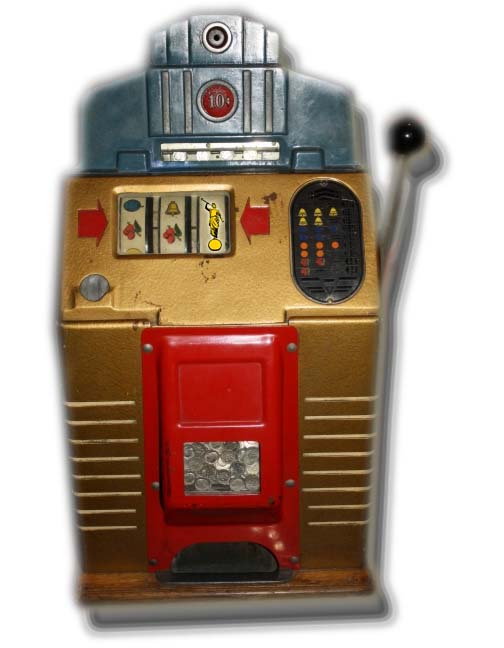 My thoughts loop like the spinning cylinders in an old slot machine. I have to pick out a cherry on one blurry wheel and try to match another one on the next
reel, until I can visualize a trio of cherries and turn that into a coherent idea. If I can hold it long enough that idea becomes malleable, and I can mold it into a
narrative of some kind. Im not tossing sleeplessly in my bed at night. Im on the couch, and theres a morning glare on my east living room window. My narrative is
negative as hell, but thats all Ive got. I dont have to get up and take a leak yet. I have no desire for uprightness. I want to stay in flatland. Two dimensions
are more than enough when Im suspended between sleep and consciousness. My blind hand reaches for the remote control and activates the TV.
My thoughts loop like the spinning cylinders in an old slot machine. I have to pick out a cherry on one blurry wheel and try to match another one on the next
reel, until I can visualize a trio of cherries and turn that into a coherent idea. If I can hold it long enough that idea becomes malleable, and I can mold it into a
narrative of some kind. Im not tossing sleeplessly in my bed at night. Im on the couch, and theres a morning glare on my east living room window. My narrative is
negative as hell, but thats all Ive got. I dont have to get up and take a leak yet. I have no desire for uprightness. I want to stay in flatland. Two dimensions
are more than enough when Im suspended between sleep and consciousness. My blind hand reaches for the remote control and activates the TV.
... the temple marriage is singular among all such ceremonies on Earth. Vows and covenants are delivered up unto the Lord that He might sanctify the unity of a man and woman for the purpose of procreation. Our children are given to us that we should raise them stalwart in the gospel. As with the stripling warriors of old, our youth shall venture out into the world with tidings of the truth of the church. Many prospects will refuse their offer of salvation, but some will soften their hearts. These are they whose ramparts are broken, and whose families have strayed. If alienated enough, they will surely join us in our resistance to the adversary, even he who plants the seeds of doubt in our Spring gardens. We have been promised that careful observance of doctrine will assure our salvation as well as the longevity of our marriages.
I will arise eventually, but for now I want to keep my eyes closed and watch the dim flicker of moving pictures behind my lids. Suburban landscapes roll by in weak sepia. I see the fronts of the bungalows of California set back from the streets with stately elms shading mowed yards. The sidewalks are separated from the gutters by miniature lawns. The curbs are marked with public works initials from the thirties: WPA, and the concrete buckles where tree roots have forced it upward. A set of car tires swooshes behind the hedges, the sibilance of their friction hissing through the window. As the morning brightens, it gets harder to hold my eyelids down. Near the window a galaxy of tiny stars swirls in a shaft of sunlight. A quarter bottle of vodka glitters on the coffee table. Conference has been on almost an hour, and dont ask me why I have it on the flat screen.
Real freedom is found only in obedience. Those who follow the natural man will find their end in sorrow and captivity. The Lord has provided us with a road map for life, and we are expected to utilize it. Would you try to drive west from Los Angeles or east from Miami? Of course not, as you can read the symbols for highways and seas. The Liahona, powered as it was by faith and obedience, was a far more accurate locater than any GPS device of our time. Some folks have run right into mountainsides or rivers by following their GPS systems. Let the Lord be your guide. Pray before every trip with your family. If you pray with a contrite heart and mind, there shall be no obstacle to your journey. So it is with your life and the lives of your loved ones.
My wife told me she was leaving me for Joseph Smith. He died a ton of years ago, but people flock to him all the same. She told me that Im wicked, because I dont believe. I cant live with an atheist, she said. I was thinking it wasnt that easy to live with a Mormon harpy either, if you ask me. She hated every book I read, every album I listened to, and every beer buddy I ever had. I was what they call a vaginal conversion. I joined the church to marry her. But I had to marry that damned church as well. They want all your time and spare money, I discovered. And they want to assign your friends after pressuring you to dump lifetime associates. Why cant you be friends with the Swensens, she asked me. I said that Phil Swensen was an asshole of the first water. Hes second counselor, she shot back, and my therapist, you cant say that. I said I didnt care what he counseled, or whether he was win, place or show, he was still an ass. She stormed out of the house and drove away.
We find happiness in accordance with following the gospel. The Lord has created in his plan all the keys to happiness. None of these keys will be found in science or society. Lean on your faith if you desire happiness. Let the most faithful in your homes be the most influential to the others. I promise you, by the witness that I have of the Lords name, even Jesus Christ, that you will find your joy in the lines of scripture and earnest prayer. Pay no attention to the disaffected and the bitter. Would you expect them to wish for your happiness in the gospel? The very gospel of the Lord that they daily scorn? It is best you dont associate with the nitpickers and the victimized types. Let the gospel guide you in all things ...
It turned out she was having a fling with her therapist, who was married and had kids. My mind couldnt wrap itself around the gritty reality of that, so I tumbled into the bottle. I drank to forget and failed. I drank my way through a grocery aisle of vodka. I mixed it with tropical juices and fruit puree and iced tea beverages. It was the same every which way. I got drunk at night and felt all shiny and happy until the late morning. Then I awoke slowly and retched over the bathroom sink. I continued trying to work until I was fired. Sorry to have to let you go, they said. First my wife and then my employer. The house sold and I got a few thousand bucks. Despite my exs ambitions to move up among priesthood holders, Brother Swensen was not about to leave his wife and kids for her. That would jeopardize his church standing. He found it necessary to impeach her credibility with accusations of hysteria and have her committed to a brick institution with a big lawn. So now Im in a rental on a dead end street looking at an image of a temple on my TV. The nights are long, and, somehow, the mornings are even longer.
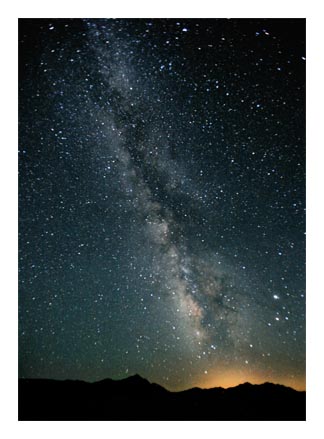 Of all creatures, only the hawk could attach itself to the sky and hang effortlessly there. Chatan shielded his eyes from the sun as he watched the bird hover. While
looking up he felt his moccasins slip on the loose earth and had to catch his balance. He was on a hillside facing red and mauve hills to the north--the badlands. He
had no intention of walking that way, as it would be a death sentence. Hed already been wandering for a day and had only two left. He was fasting--no food, no
water. And he was foregoing sleep. Hed been up all night as the stars wheeled overhead and the milky way pivoted like a compass needle. His plan was to turn
back, at an angle, and return the long way, so that three days would wrap up his hembleciya or "crying for a dream"in the tongue of the Lakota Sioux.
Of all creatures, only the hawk could attach itself to the sky and hang effortlessly there. Chatan shielded his eyes from the sun as he watched the bird hover. While
looking up he felt his moccasins slip on the loose earth and had to catch his balance. He was on a hillside facing red and mauve hills to the north--the badlands. He
had no intention of walking that way, as it would be a death sentence. Hed already been wandering for a day and had only two left. He was fasting--no food, no
water. And he was foregoing sleep. Hed been up all night as the stars wheeled overhead and the milky way pivoted like a compass needle. His plan was to turn
back, at an angle, and return the long way, so that three days would wrap up his hembleciya or "crying for a dream"in the tongue of the Lakota Sioux.
Hed studied his peoples culture in the reservation school, along with other subjects. Ever since he was little, hed wanted to experience the walking quest. Through fasting and wandering, young Sioux men experienced visions that were helpful to them and the tribal group. He was certain that his own vision would be important. Enahwee had teased him when he bragged about how great his journey would be. "Will you become a mighty leader and save the people?"she asked. "If needed,"he said. She told him that a great man would need a good wife. "You?"he asked, and she nodded. "You are too scrawny,"he said, though his eyes favored her. "I need a woman who can work hard for me."She touched his cheek. "A good wife does her best work at night,"she said. Chatan turned away; she was distracting him with seduction, and when had girls become so forward anyway? It used to be that their marriages were arranged by their fathers. But Enahwees father was in prison, along with Chatans.
The two men had taken off in a pickup one day, headed to Rapid City for work, they said. The cities had taken many men. Some returned, drunk and ruined, others simply vanished. Some of the returned could be healed in sweat lodges--some couldnt, and some of those chose suicide, the death of shame. Chatans and Enahwees fathers chose crime. They were caught robbing a bank. For twenty-five years they would sit in prison among hostile men of all tribes. Chatan believed that they had lost their way. The blind pursuit of money was even worse than the habit of drink. There were no sweat lodges for curing jail sentences. That was when he began to wear traditional clothing. No more cowboy boots or jeans. He put on his buckskin shirt and his breechcloth and his leather leggings. The boots were tossed for moccasins, which were a hell of a lot more comfortable. He realized that his peoples clothing had evolved to suit the environment, not a city dandys sense of fashion.
Thunderheads were gathering over the badlands hills. A summer storm was coming from the north, and it would bring lightning and cool rain. Chatan had put a dry river pebble in his mouth and was rolling it around on his tongue. It made the thirst tolerable. He hoped he wasnt breaking any rules. Thered be no vision if he didnt follow the law. Would he be able to resist the temptation to open his mouth to the cool raindrops that were sure to come? Hed never felt so much doubt. He saw a snake sidewinding on the dirt and thought of Satan, the Christian demon. There had to be some better sign than a storm and a serpent. He found a faint deer trail and followed it. If he could meet with a gentle creature, he might find a better sign. The trail led into an arroyo, and he figured he could find a new river pebble there. The old one was galling him and failing to trick his thirst. It felt hot and dry.
Wahkan, the wise one, had told Chatan about his quest in the sweat lodge. He had poured water over the heated rocks to create steam. The coarse scent of tobacco blended with the cedar and sage that had been sprinkled on the rocks. What Chatan heard through the smoke was that he would have an essential vision, because he was pure of heart. Wahkan was revered for his medicine, though many young men mocked him and called him witch doctor. "You will walk north to the edge of the badlands,"said Wahkan. "What you do there is your choice. Your walk will last for three days. Upon your return, you will report to me in this lodge."
 Chatan was in the arroyo, looking for smooth pebbles, when he heard the motor noise. It echoed around the dry hills like an angry insect. The noise grew louder, and
then the Jeep appeared. It turned and rolled straight up to him, stopping about a stones toss away. Two FLDS boys from Pringle got out and walked over to him. One
had blond hair and was holding a can of beer. The other was a redhead wearing sunglasses. "What do we have here?"the blond one asked, "A Lamanite boy lost all by
himself?"He held out his beer. "Wanna drink?"he taunted.
Chatan was in the arroyo, looking for smooth pebbles, when he heard the motor noise. It echoed around the dry hills like an angry insect. The noise grew louder, and
then the Jeep appeared. It turned and rolled straight up to him, stopping about a stones toss away. Two FLDS boys from Pringle got out and walked over to him. One
had blond hair and was holding a can of beer. The other was a redhead wearing sunglasses. "What do we have here?"the blond one asked, "A Lamanite boy lost all by
himself?"He held out his beer. "Wanna drink?"he taunted.
"I dont drink alcohol,"said Chatan. The blond was standing too close for his comfort, but he held his ground. He didnt fear an intoxicated boy. The can was shoved in his face, and he swatted it away, knocking it out of the blondes hand. The redhead went back to the Jeep and retrieved a hunting rifle. He aimed it at Chatans chest and told the blond to get the Lamanite another beer. The blond brought another can to Chatan and shook it hard. He opened it, and it hissed and spurted. He turned it toward Chatan, spraying the smelly liquid over his face and buckskin shirt. Some of the foam got into Chatans mouth and he had to spit it out. "Doesnt like beer?"said the redhead. "Maybe I can shoot at his feet and make him do a rain dance."The blond waved him off. "No. If you shoot him, were in deep crap with the brethren. Were not even supposed to be out here."The Pringle boys retreated to their Jeep and sped away with a ruddy fan of dirt and pebbles announcing their departure.
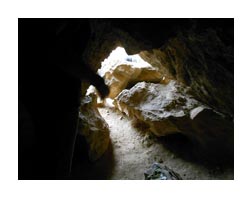 Chatan stood alone, stinking of beer and, in his mind, humiliation. There was no place for alcohol on a spiritual quest. He had been defeated by outsiders. The rumble
of thunder carried a promise of oncoming rain. At least he could shower off the smell of liquor, if not shame. He found a small cave and sat in there, waiting for the
storm. He wondered how he could face Wahkan and Enahwee. He felt that he had let them down, and he regretted all his bragging and grandstanding over his quest. What
should he have expected? The son of a bank robber, born to lose. His eyes brimmed, and he clenched his fists. He would not weep like a child. Win or lose, he was
becoming a man and would act like one. After many hours the rain came, and he left the cave late at night. He wandered in the wet darkness until daylight. The
clouds broke mid-morning, and he used the position of the sun to guide him home.
Chatan stood alone, stinking of beer and, in his mind, humiliation. There was no place for alcohol on a spiritual quest. He had been defeated by outsiders. The rumble
of thunder carried a promise of oncoming rain. At least he could shower off the smell of liquor, if not shame. He found a small cave and sat in there, waiting for the
storm. He wondered how he could face Wahkan and Enahwee. He felt that he had let them down, and he regretted all his bragging and grandstanding over his quest. What
should he have expected? The son of a bank robber, born to lose. His eyes brimmed, and he clenched his fists. He would not weep like a child. Win or lose, he was
becoming a man and would act like one. After many hours the rain came, and he left the cave late at night. He wandered in the wet darkness until daylight. The
clouds broke mid-morning, and he used the position of the sun to guide him home.
It was early in the evening of the third day when he met with Wahkan, who gave him water. "We must speak in the lodge,"said the old man. "There is little to tell,"said Chatan, but Wahkan insisted. The rocks and steam were prepared and they entered the sweat lodge. "Now tell me of your vision,"said Wahkan. Chatan told him that there was no vision. He described his encounter with the Jeep boys and his shame and wandering in the rain. Wahkan paused for a moment. "Your vision is the strongest I have heard,"he said. "I didnt have one,"Chatan protested. The old man chuckled. "You resisted temptation and faced down a weapon. Most of our young men lack the courage to even wear traditional dress. They fear judgment and ridicule from city folk. You are a warrior."Chatan was stunned. "But I didnt defeat my adversaries,"he said. "There is no defeating them,"said Wahkan. "There is only resistance and bravery. These are the qualities of a leader--qualities you possess."Chatans thoughts were racing to catch up with the words in his ears. Suddenly he felt a strong desire to sit with Enahwee. He had many things to say to her.
 Bobbie hated her name. She was named after her father, Bob Bradley, and not a single one of her four brothers had to carry that burden. Jared, Luke, Matthew and
John, they all had their own identity. Every Saturday, they went out four wheeling with Dad near Moab, and Bobbie stayed home to help Mom with
housework. Her brothers underwear was disgusting. Bobbie had to plug her nose sometimes while doing cycles of their laundry. There was always a pile of dirty
clothing shoved into the laundry room by someone who didnt have to take care of it. Someone with a penis.
Bobbie hated her name. She was named after her father, Bob Bradley, and not a single one of her four brothers had to carry that burden. Jared, Luke, Matthew and
John, they all had their own identity. Every Saturday, they went out four wheeling with Dad near Moab, and Bobbie stayed home to help Mom with
housework. Her brothers underwear was disgusting. Bobbie had to plug her nose sometimes while doing cycles of their laundry. There was always a pile of dirty
clothing shoved into the laundry room by someone who didnt have to take care of it. Someone with a penis.
Shed lost the few friends shed had when the family moved from California to Utah. Mom and Dad both told her that she was lucky, because she was sixteen and the boys would soon swarm over her. She hadnt even kissed a boy. She wanted to sometimes, but the whole issue seemed unnecessary. There was no threat that she could discern. In fact, her mother had told her, "Youre not a pretty girl. Youll have to be very spiritual to catch a husband."She felt like she was receiving mixed signals from an incompetent source.
Sometimes Bobbie tortured herself by looking at her naked body in the mirror. She saw that she was a thousand imperfections short of beauty. She was a little overweight. She had a little acne. Her hair was a little too dry. Some moles speckled her torso. Her thighs were a bit fat. Her butt wasnt round enough. She had that one crooked tooth. Was that a double chin starting? Her brothers had it easy. They just threw on their t-shirts and ran out to do the things she couldnt do. They hunted and played football on campouts. They went out with the scouts on weekends. They played sports at school and dated cheerleaders. They bragged about going on their missions.
Bobbie was a Laurel girl at the local ward. When she turned sixteen she interviewed with the bishop, and he asked her if she was a lesbian. Though she didnt know what that meant, she sensed it was bad and denied it. The bishop approved her Laurel status. In the summer she would join the other Laurel girls at a camp called Cocoanofree. But she couldnt imagine spending time with Heather Johnson, who had told her, "dont stand close to me when Im talking to a boy. Thats totally lez." Or Sarah Adamson, whod said, "you know, there are breath refreshers available."Beth Holly said, "Bobbie, you are as welcome as any fifth wheel."Valerie Kroft said, "Remember that you are spiritual, when all else fails you."
"Welcome to Camp Cocoanofree", read the woodburned sign Bobbie spied through the dirty bus window. She sat in the back. The other girls were in the middle of the bus, chattering like grackles around a discarded sandwich. There was so much they were going to do, and the camp would be so spiritual. Certainly they would flower into LDS women. Bobbie turned and watched out the back window as the bus kicked up dust on the desert road to nowhere. Eventually they pulled up to a large split log lodge. The girls disembarked and lined up outside with their carry ons. Sister Hinkel, the Young Ladies president stood on the lodge porch and bellowed her demands. "Ladies, we have arrived at camp. While we are here we will observe the word of wisdom and the law of chastity. We have been blessed by the priesthood men who made this camp possible. If not for the benevolence of the brethren, this event would not be funded."
At this point, Bobbie was beginning to tune out the speech. It sounded like: Men give and women are needy. It sounded like men should be worshipped and fawned over like her brothers. Was there anything in the faith that wasnt pulled right out of a mans ass? Women were given over to auxiliary status. The Relief Society for women was only for women and was funded by the men. A woman could only lead other women. A twelve year old deacon boy outranked any woman, including his own mother. Sister Hinkel droned on, "You young ladies will dress modestly while you are here. If you wear a bathing suit, you must have modest shorts and a t-shirt on top of your swimwear. Nude thighs and shoulders are forbidden. Movie nights will include G rated movies only. There will be no swearing or contention about gospel teachings. You will attend all services and prayer gatherings. You may not call home unless there is an emergency, which will be decided upon by a priesthood holder onsite. Girls who choose to violate policy will have their privileges suspended, and may be confined to their bunks."
After packing their gear in the lodge bunkhouse the girls were told to dress for the lake, which meant bras, t-shirts, underwear and shorts and flip flops. They walked single file down a dusty trail through waist high sage to the lake, a man made reservoir. There was a small pier there with a ski boat docked to it. Sister Hinkel and her counselors Sister Johnson and Sister Adamson were aboard the boat and wearing life jackets faded to the color of old mustard stains.They said they had room for two girls, so Heather and Sarah went first, coincidentally with their mothers. The boat veered off into the lake with a loud burble. Bobbie was sweating in the afternoon heat and she took off her stained life jacket. "Put that back on,"said Beth, "you have to wear it in the water."Bobbie looked at Beths scowling face. "I dont have to do anything you say, Beth."Beths lips tightened. "Ill tell,"she said. Bobbie put the life jacket back on. The boat came back and picked up only two girls--Beth and Valerie, because all three grown women stayed aboard for another ride.
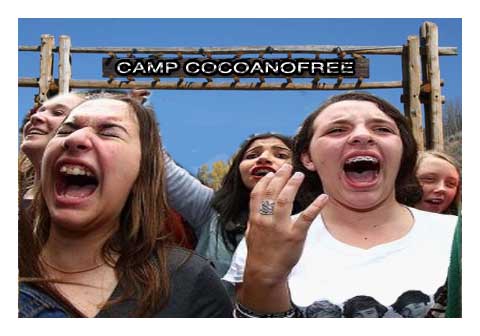 When the boat returned Sister Hinkel announced they were almost out of gas, and the rest of the girls would have to wait until the bishop approved the purchase of
more fuel. It was getting too late for swimming, said Sister Johnson, and the girls ought to get ready for dinner. Sister Adamson walked the dry and thirsty
Laurels back to their bunks in the lodge. Bobbie took off her life jacket, and no one said anything. For her, the boat trip was just one more thing a poor Mormon
girl couldnt do. Like seeing R rated movies. She saw one once with an inactive girlfriend. It was called Halloween. It was scary without being threatening. It had a
scene where the killer ran down a single staircase for what seemed like several minutes. The movie didnt seem to have any relationship to a testimony either way.
When the boat returned Sister Hinkel announced they were almost out of gas, and the rest of the girls would have to wait until the bishop approved the purchase of
more fuel. It was getting too late for swimming, said Sister Johnson, and the girls ought to get ready for dinner. Sister Adamson walked the dry and thirsty
Laurels back to their bunks in the lodge. Bobbie took off her life jacket, and no one said anything. For her, the boat trip was just one more thing a poor Mormon
girl couldnt do. Like seeing R rated movies. She saw one once with an inactive girlfriend. It was called Halloween. It was scary without being threatening. It had a
scene where the killer ran down a single staircase for what seemed like several minutes. The movie didnt seem to have any relationship to a testimony either way.
The last thing the girls had to do before dinner was assembly. The Beehives formed lines on the left and the Mia Maids gathered on the right so that the Laurels were featured in the center. Sister Hinkel stood before them, facing into the sunset with a pinched expression. "Girls,"she said, "Sisters."There was a murmuring in the crowd. Something was about to be revealed. "The brethren, even our priesthood leaders, have directed me to instruct you on a matter of greatest import."At this point Bobbie was thinking of imports and exports, and she nearly snorted. Just a sniff. "There are many critics of the church,"Sister Hinkel went on, "who make outrageous claims against us. Lets show them how wrong they are. They say we all march in lockstep with no identity of our own. Are they right?"Bobbie was startled by the group scream: "No!"The whole crowd of girls was shouting in unison. "We are individuals!"Sister Hinkel yelled, raising a ring-studded fist. "Individuals!" With all the girls baring their incisors and crying out, Bobbie turned around in a blur unable to identify a single one among them.
My family of seven had moved to New York City when my father received a grant for Columbia University at work. He was teaching in a small town in north California, and apparently no one else wanted the grant, so it was tossed onto Dads desk. Our new home was a two bedroom apartment on the upper west side near the University. I slept in a small bedroom with two brothers and one little sister--four bunk beds. My older sister slept in the living room on the couch. Mom and Dad had their own room. The walls were cracked plaster and the bathroom had a claw footed tub. In some corners, pipes protruded from the walls near the ceiling. Each room had one small window. I remember they said quarters were tight, and I thought they meant it was hard to come by two bits. Because it was.
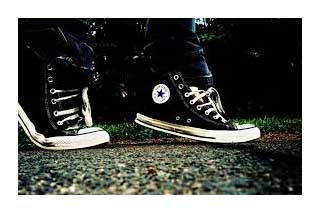 If you could put together a couple of pennies, you could run down 121st Street with your converse sneakers slapping at the sidewalk on your way to Blind Ladys. Blind lady was old and white. She had a son who helped her control the shoplifting. In New York, shoplifting was a given. Even an ignorant Mormon kid like myself couldnt help but see the Catholic kids from Corpus Christi stuffing their pockets with stolen Hershey Bars. Blind Ladys brother chased them off. Normally I had only enough coin to buy the penny Chinese candy. It tasted like the air from an elevator shaft. Sometimes I had a nickel and could get a pack of gumballs. The white ones had an undefined flavor that I thought of as Christmas Candy. Christmas is a luxury in New York City. The snow falls like sugar poured out over streets and sidewalks.
When the blizzards swept through the city, I watched out my tiny bedroom window. White flakes swirled at the glass. The sky was grainy and thick with snow.
If you could put together a couple of pennies, you could run down 121st Street with your converse sneakers slapping at the sidewalk on your way to Blind Ladys. Blind lady was old and white. She had a son who helped her control the shoplifting. In New York, shoplifting was a given. Even an ignorant Mormon kid like myself couldnt help but see the Catholic kids from Corpus Christi stuffing their pockets with stolen Hershey Bars. Blind Ladys brother chased them off. Normally I had only enough coin to buy the penny Chinese candy. It tasted like the air from an elevator shaft. Sometimes I had a nickel and could get a pack of gumballs. The white ones had an undefined flavor that I thought of as Christmas Candy. Christmas is a luxury in New York City. The snow falls like sugar poured out over streets and sidewalks.
When the blizzards swept through the city, I watched out my tiny bedroom window. White flakes swirled at the glass. The sky was grainy and thick with snow.
The playground, forty feet below, vanished under a white comforter. The basketball court and the swings and the monkey bars succumbed to the snowdrifts. Parked cars on the street became undefined humps. Traffic lights winked out. There were no honking horns, no sirens. Silence settled in the streets along with the snow. We would have two days without school.
Most of the snow had become slush by Sunday, so we had to go to church. The Mormon chapel was downtown. The building served two wards, one regular and one Spanish. Among eight million people there were two lousy wards, and we had to take a bus transfer and walk several blocks, stepping around unconscious frozen drunks, to get there. We went by bars with peep windows and tried to look in. Dad swatted at us, and we moved on, herded toward the church building. The air was cold and the sidewalk was slippery. Inside the warm chapel we heard hymns and talks by members. I had to give a talk myself, and my mother helped me repeat a piece from the Mormon magazine, Ensign, that was published monthly. My talk was about reverence, a typical top-down theme meant to quiet Mormon children during long meetings. The wooden pews were warmer than the sidewalks outside. Bums were outside, and dogshit and icy curbs.
 My little sister tried to jump out the window of our fourth floor apartment. Mom grabbed her ankle and yanked her back into the room. Mom wondered why did she try
to jump?. Because the playground looked better than the apartment, said Sis. I wanted to go there. She was just a toddler and couldnt know. Life to my mother
was, you get a husband and he slaps you around a bit. But he pays the rent and you have children who are bad and dont learn. He asks no quarter and he gives none.
Say you could get nickels and dimes by begging. We got the coin somehow. And we bought firecrackers and smoke bombs sold singly by a Puerto Rican kid. You wanna
hear a big bang you light off a firecracker in Grants Tomb in Riverside Park. Youll see some tourists hop. And we were before terrorists. We were terrible
kids, they told us. A few beatings shy of manners. At night we were laid out like cordwood in our tiny room. No air conditioning, and flip your pillow over for
the cool side every half hour. My brothers would snore, their sonorous honkings waking me periodically. If I pinched their noses, they would make snuffling noises
and stop snoring for a spell. I believe my mother taught me that.
My little sister tried to jump out the window of our fourth floor apartment. Mom grabbed her ankle and yanked her back into the room. Mom wondered why did she try
to jump?. Because the playground looked better than the apartment, said Sis. I wanted to go there. She was just a toddler and couldnt know. Life to my mother
was, you get a husband and he slaps you around a bit. But he pays the rent and you have children who are bad and dont learn. He asks no quarter and he gives none.
Say you could get nickels and dimes by begging. We got the coin somehow. And we bought firecrackers and smoke bombs sold singly by a Puerto Rican kid. You wanna
hear a big bang you light off a firecracker in Grants Tomb in Riverside Park. Youll see some tourists hop. And we were before terrorists. We were terrible
kids, they told us. A few beatings shy of manners. At night we were laid out like cordwood in our tiny room. No air conditioning, and flip your pillow over for
the cool side every half hour. My brothers would snore, their sonorous honkings waking me periodically. If I pinched their noses, they would make snuffling noises
and stop snoring for a spell. I believe my mother taught me that.
When Dad finished college we moved to Pennsylvania. He took a job as assistant superintendent at a school in Pottstown. After New York, Pottstown seemed tiny and dreary. I went to school with aggressive farm kids. It seemed the local crop was bullies. There was a lot of shoving and grappling in the halls. My only free time was after school before Dad got home. I would wander along the greenbelts that crowded the creeks and the dirty brown Schuykill River. My two younger brothers would follow me. I found empty beer bottles and threw them into the river. We were always famished, so we scavenged. There were edible wild onions and crab apples in the woods. It was best if we were still out when Dad got off work. He was usually in a bad mood and ready to strike someone for any offense. Our house was large enough, but quarters were as hard to come by as ever. One summer day, desperate for money, my brother Jeff and I mowed and weeded the half-acre yard. It took us a couple of hours and we worked hard at it. We hoped to convince the old man to pay us for our efforts. Jeff said that if he didnt get more than a quarter he was running away. I agreed. We both received one quarter each, with three cents taken out for church tithe. Dad said we had to round up for the Lord. I packed my backpack, and Jeff and I hit the road. We were walking toward Reading on the highway when the sun started getting low. We were tired and hungry, and we ran out of gumption. We walked back home. No one had noticed our absence.
We came in vans and GM Suburbans. We parked at a campsite near Harmony, Pennsylvania. Back packs, duffel bags, mess gear and bundled canvas tents were unloaded from the vehicles. I remember that I was wearing my Boy Scout shirt and jeans with workboots for my shoes. My trusty BSA hunting knife was sheathed at my hip. We threw out our tent canvasses in a circle around a fire pit. After we pitched the tents, we went out to gather firewood.
It was my first camp, as well as Kurts, so the two of us went together. They called us greenies, and they promised an unforgettable experience. Kurt found a big fat stick and kicked it in two against the trunk of a maple tree. "Two good pieces right there,"he said. "Your dad is the scoutmaster,"I said, "what is our initiation going to be like?"
Kurt grabbed his sticks and said, "I dont know; he never tells me nothing."I got that, because my father never told me anything that was real either. He talked about prophets and signs in the sky, but I knew nothing of his daily life. He was gone most of the time. I didnt want to be around him, and I was glad he had no involvement with the scout troop. I reached for a couple of sticks and something small and furry retreated through the underbrush, trundling along close to the ground. "What the Hell ..."I said, stepping back. Kurt laughed at me. "That was just a muskrat,"he said.
 Once wed gathered enough firewood, Kurts father, Brother Jump, lit the fire and said the opening prayer. We sat in a circle around the campfire, bowed our
heads and said amen as the prayer ended. The sun was moving, throwing slanted rays through the dense foliage of the maples and the poplars and the pines. "Not far
from here,"said Brother Jump, "the prophet Joseph Smith met with the resurrected apostles, Peter, James and John. In 1829, Joseph translated the Book of Mormon
and he and his wife had a house that we cant see now, because it burned down in 1919. Imagine the rich spiritual history in these woods. After dinner, well
have a surprise for our two new scouts, one of whom is my son."Everyone chuckled at that, and I didnt know why.
Once wed gathered enough firewood, Kurts father, Brother Jump, lit the fire and said the opening prayer. We sat in a circle around the campfire, bowed our
heads and said amen as the prayer ended. The sun was moving, throwing slanted rays through the dense foliage of the maples and the poplars and the pines. "Not far
from here,"said Brother Jump, "the prophet Joseph Smith met with the resurrected apostles, Peter, James and John. In 1829, Joseph translated the Book of Mormon
and he and his wife had a house that we cant see now, because it burned down in 1919. Imagine the rich spiritual history in these woods. After dinner, well
have a surprise for our two new scouts, one of whom is my son."Everyone chuckled at that, and I didnt know why.
I didnt really believe all that Joseph Smith crap. My father was always going on about it, and he was a jerk. Hed as soon strike me as talk to me. I was feeling independent of the jackass, having been put in charge of the beans, and I had about a gallon of them going in a huge pot on the fire. I cut up some strips of bacon with my knife and flash fried them in a pan. The smell was thick and meaty. I tossed the seared bacon into the bean pot. I borrowed a pepper grinder and ground pepper into the beans. My beans were going to be excellent. Brother Jump and the assistant scoutmaster were turning a butchered pig on a spit over a good sized fire. The pig had no head or feet and was hollowed out. It sizzled in its juices as it turned over the flames.
When Brother Jump started carving the pig, I began ladling beans into boys mess bowls. They lined up, bumping at each other in a friendly way. Kurt had two bowls, one for him and one for his father. After Id filled the bowls, he leaned over his fathers and let a long dollop of saliva drip into it. He looked up at me and said, "You dont know what he does to me."I watched Brother Jump eat his beans and caught Kurt giving me a sideways glance. He was grinning. I didnt want to know what Brother Jump had done to him.
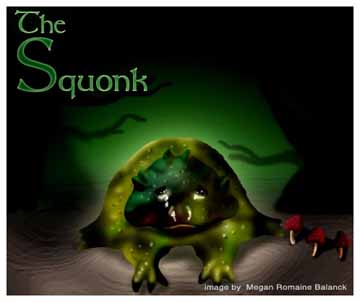 After eating we all gathered around the fire. The woods seemed to thicken in the darkness; there was the sense that the air had changed over from giving warmth
to taking it. The older boys put on their jackets and caps. Brother Jump stood before us, speaking towards the leaping flames. I thought he would tell us some
lousy story about Lamanites or Nephites. But it was something even wilder. Early loggers in the area, Brother Jump told us, had discovered a small mammal found
nowhere else on the continent. The creature, just the size of a rabbit, was called a squonk. It was the most nervous creature ever encountered by western man. When
cornered, it would weep and shudder. In extreme circumstances it would expire from fear and melt away in tears. Kurt and I were to hunt for the elusive animal in
the night forest. We were each given a potato sack and a pair of leather gloves for handling the catch. We left the campfire in opposite directions.
After eating we all gathered around the fire. The woods seemed to thicken in the darkness; there was the sense that the air had changed over from giving warmth
to taking it. The older boys put on their jackets and caps. Brother Jump stood before us, speaking towards the leaping flames. I thought he would tell us some
lousy story about Lamanites or Nephites. But it was something even wilder. Early loggers in the area, Brother Jump told us, had discovered a small mammal found
nowhere else on the continent. The creature, just the size of a rabbit, was called a squonk. It was the most nervous creature ever encountered by western man. When
cornered, it would weep and shudder. In extreme circumstances it would expire from fear and melt away in tears. Kurt and I were to hunt for the elusive animal in
the night forest. We were each given a potato sack and a pair of leather gloves for handling the catch. We left the campfire in opposite directions.
Flashlights would scare off the squonks, so we were told to hunt by moonlight. Squonk hunts were always scheduled for full moon nights. I paused and closed my eyes for a minute. When I opened them I could see a meadow in front of me. The grass was a darker black than the surrounding trees. Behind me, in the distance, I heard a hooting noise like an owl. I knew it was the older scouts trying to spook us. Whoever heard of a squonk anyway? I was getting hazed, crawling around in bushes for someones entertainment. May as well play along. I walked into a heavy thicket with thorns that jabbed and scraped at me. I was turning back when I heard the scuttling noise underfoot. I slipped on my gloves and reached around on the ground. It ran right into my hands.
I had a hell of a time maneuvering it into the potato sack. It rolled in my hands, and I held the sack up with my mouth. I didnt want to bring it up to my face so I let loose of the sack. Then I held the animal down with one gloved hand while the other hand worked the sack over it. I couldnt see a damned thing. It was all by feel. Once I got it into the sack, the creature hissed and sputtered. I was pretty sure it was a muskrat or a possum, and I thought it would be a hoot to take it back to camp. Heres your squonk, you followers of the prophet. The animal kept kicking and squalling in the sack, so I had to hold it out from me as I walked back to camp. Eventually I saw the weak glow of the campfire among the black tree trunks. As I approached I felt the sack kick up and flap like a flag in a hurricane. Then it was empty. I greeted Brother Jump with an empty bag.
"I had one,"I said, "I did."Brother Jump put his hand in the sack. "Its wet in there, Donny. You did have one, but you scared it too much, and it evaporated."I wanted to say wait, this isnt how it was supposed to go. I thought I thought of everything. Im not some chucklehead you can trick with cheap stunts. And then Kurt returned and everyones attention turned to him. Gosh no, he didnt find any squonks. His squonk hunt went better than mine. I watched Brother Jump putting away my potato sack with the chew marks at the bottom. He saw me noticing and shrugged. What are you gonna do?
Waking up blind is not optimal. And having ones hands and feet bound with rope adds nothing to the experience. Worse yet, Joshua was in the trunk of a moving car. He slid and bumped with every turn like loose groceries. He knew where they were taking him. It was said to be a long drive.
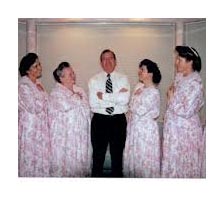 Amelia had long blond hair. It was braided like any other girls, but some strands broke free and uncoiled in rebellion. These caught the sun and glowed like corn
silk. One side of her mouth smiled, and the other kept cautious. Her eyes were green and penetrating. Joshua had been told to keep away from her, as shed been
promised to brother Jessop, who was sixty and already had four wives. But Amelia reminded him of an oldies radio song by Journey or Boston. She wrote him love
notes with directions for clandestine meetings. She didnt want to marry the old man; she wanted Joshua. They spoke of running away someday. They could hitch to Vegas, and see
what the streets had to offer.
Amelia had long blond hair. It was braided like any other girls, but some strands broke free and uncoiled in rebellion. These caught the sun and glowed like corn
silk. One side of her mouth smiled, and the other kept cautious. Her eyes were green and penetrating. Joshua had been told to keep away from her, as shed been
promised to brother Jessop, who was sixty and already had four wives. But Amelia reminded him of an oldies radio song by Journey or Boston. She wrote him love
notes with directions for clandestine meetings. She didnt want to marry the old man; she wanted Joshua. They spoke of running away someday. They could hitch to Vegas, and see
what the streets had to offer.
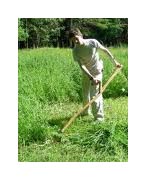 Joshua was scything weeds in a drainage ditch. Sweat from his eyelids stung his eyes. As he worked, he noticed that some of the brethren were gathering
around him. There was old Brother Jessop and Brother Swiss and Brother Jenssen. Brother Jessop told him what they all wanted to say. "Joshua, you have been weighed
in the balance and found wanting. Mene mene tekel. The finger of the Lord has written your fate. You are cast off like the right hand that offends."
Joshua was scything weeds in a drainage ditch. Sweat from his eyelids stung his eyes. As he worked, he noticed that some of the brethren were gathering
around him. There was old Brother Jessop and Brother Swiss and Brother Jenssen. Brother Jessop told him what they all wanted to say. "Joshua, you have been weighed
in the balance and found wanting. Mene mene tekel. The finger of the Lord has written your fate. You are cast off like the right hand that offends."
There was nothing to see in the violent dark. The car bounced and jolted with every pothole in the road. Joshua struggled and kicked at his bonds. After some time he managed to free his legs. He kicked with his left and right feet to regain autonomy over his lower extremities. He could walk now, he thought, if he had to. The rope had unraveled and coiled loosely around his unbound feet. He kicked at the trunk. The car stopped, and he tried to free his hands. The trunk popped open, and arid sunlight poured in, stinging his eyes.
"Alls you had to do was keep sweet,"said brother Jessop, sweating in the desert heat, "but you couldnt hold to the simplest commandment, could you, Joshua?" Joshua was pulled out of the trunk by a couple of brothers and forced into a wheelchair with built in restraints. They told him the chair was for his own protection, but he guessed that its real purpose was to keep him from running off before they could lock him up somewhere. His bound hands gripped the acrylic chair arms. His knuckles whitened. He wanted to strike the old bastard in the chops.
"Lust,"said brother Jessop, "that was what you felt, wasnt it?"
There was that day by the creek. People were unpacking their picnic baskets and Igloo containers. Joshua was with his family, and Amelias family was nearby. He met her by the trees behind the swings. They had a protocol. They would never be obvious, because too many people were predictably hostile. They would be discreet. Their religion was secretive, and that was what they knew. Their love would be secretive too. Their lips pressed, and they embraced and surrendered slowly under pine boughs. But they were espied by Brother Jessop, who had hid up in the undergrowth. "Harlot,"he called the girl. "Usurper"he called the boy. Amelia had cried, and Joshua bowed his head. They were apprehended by those who always won. Amelia was placed under house restriction. Joshua was delivered to the ranch for boys.
He wished they would release him from the chair. His wrists were going from painful to numb in the restraints. His head was held back to the chair with a neck brace that seemed to have been fashioned from a horses bridle. He gurgled and tried to catch his breath. He was being wheeled into a white adobe building. The corridors within had linoleum floors and acoustic paneled ceilings. He was rolled along through a series of hallways and taken to a spartan bunkroom. He hoped that everything would turn out for the best, and he would heal up in a bed with white sheets. Yet he was full of blues.
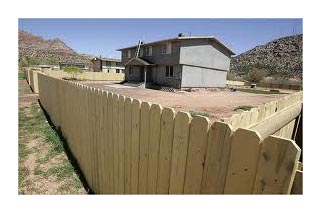 In his dreams Joshua heard the guitars. He heard the crunch of sorrow, the southern mans. He heard Missouri Slim punching a harmonica wail through all the noise
and clamor of Chicago. The delta blues had jumped at middle America like an uppercut to the solar plexus. Joshua"s soundtrack was that of sinful blacks, and he was a
bad white boy. In time he was allowed access to the recreation yard with its basketball courts. He had to keep his shit together. Any fuckup would cost him his
privileges.
In his dreams Joshua heard the guitars. He heard the crunch of sorrow, the southern mans. He heard Missouri Slim punching a harmonica wail through all the noise
and clamor of Chicago. The delta blues had jumped at middle America like an uppercut to the solar plexus. Joshua"s soundtrack was that of sinful blacks, and he was a
bad white boy. In time he was allowed access to the recreation yard with its basketball courts. He had to keep his shit together. Any fuckup would cost him his
privileges.
Amelia was sealed to brother Jessop in the Zion Temple. They had sex on the endowment bed. She was fourteen. Joshua heard about the marriage from the ranch. He had to work on the fence that day with an armed brother watching him. He drove the post hole digger into the ground with everything he had. Over and over. It took him an hour for each post. The four by fours went in with instant concrete mix and water. With slow but deliberate progress, the high wood fence tacked its way around the perimeter of the compound. When finished, it would meet itself at the gate that was always closed.
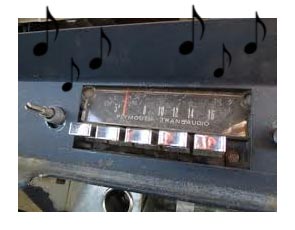 My youngest brother sang along with the Valiants radio, "Just give me some kind of sign girl."Only he sang, "Just give me that calistander*."And the music turned
to static as the tires screeched around a corner. And the car door opened all inertia-like, and my little brother stretched out, hanging face down out of the car and
scraping his chin on the asphalt. His head glanced over the street like a skipping stone on a black lake. I rocked back in my corner of tucked vinyl. The
car spun, and I was seeing a house and a tree and a fire station rotating past my view, calliope-like. When we stopped, fireman came to our rescue, though we
were no longer in any danger.
My youngest brother sang along with the Valiants radio, "Just give me some kind of sign girl."Only he sang, "Just give me that calistander*."And the music turned
to static as the tires screeched around a corner. And the car door opened all inertia-like, and my little brother stretched out, hanging face down out of the car and
scraping his chin on the asphalt. His head glanced over the street like a skipping stone on a black lake. I rocked back in my corner of tucked vinyl. The
car spun, and I was seeing a house and a tree and a fire station rotating past my view, calliope-like. When we stopped, fireman came to our rescue, though we
were no longer in any danger.
Sunlight poured down on us like lemonade, sweet and hot in the afternoon. When the firemen let us go, we went straight to the church. I assumed that the firemen would go there too, if they werent working. Duty first, and all. I had no idea that any given fireman might not have had a testimony of Joseph Smith. The man wore Hell resistant garments like firemen wear fire resistant suits.
Joseph Smith was, and is, prepared for the flames of tribulation. Some of you spend your days with collectible glass kittens or porcelain dolls. You admire your own purchases, and you suppose that you have discovered rare bargains. Youre the cotton candy of the adversary, spun into pink bouffants of sugar silk and tempting for some. You are wanted only by fellow sinners; non-members are gentiles, and, though lusted after, are unworthy as such.
My Primary teacher said thats what she would proclaim to outsiders. What I took away was, "Just give me that calistander". (* The word Calistander is a nonsense word that my youngest brother made as a spoonerism, or error in speech. I thought that appropriate for contrast with the nonsensical beliefs of Mormonism.)
If Zeus draped a multi-colored cloth over his Olympian dining table, so that the material hung to the floor, that would be Table Mountain. The great mesa, with all its hues and mass, ramped up into the sky behind my grandmothers house. I looked at it through a jaded window. My parents hated me. But there was a wonderfully violent swoop of hill behind the house. That hill went up the side of a truncated dirt, grass and rock pyramid. You can walk around the town of La Grande all day, turn your head, and behold flat-topped Table Mountain.
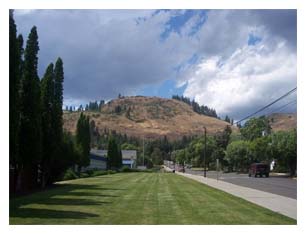 So Im thinking, maybe we oughta climb that thing. And by we, I mean me and my two younger brothers, because who gives a shit about a plan that isnt shared? Shirts and shoes, we were going up the mountain--three brothers, thirteen, eleven and ten years old. Why in the hell would we trudge up a mountain? You would know, if you were ever beaten by our father. The mountain was a blue sky alternative, a Babel-like thrust of earth heaped at heaven. And we did hike up that steep incline.
So Im thinking, maybe we oughta climb that thing. And by we, I mean me and my two younger brothers, because who gives a shit about a plan that isnt shared? Shirts and shoes, we were going up the mountain--three brothers, thirteen, eleven and ten years old. Why in the hell would we trudge up a mountain? You would know, if you were ever beaten by our father. The mountain was a blue sky alternative, a Babel-like thrust of earth heaped at heaven. And we did hike up that steep incline.
Yellow weeds pushed back at us as we lumbered uphill. Wed brought no water with us. I remember dry mouth, and then I had a sticky tongue. We pushed forward until our lips were cracked and hurting, then we ran downslope to our temporary home. We abandoned the taking of the mountain. The three of us retreated to Grandmas house, where our family lived, because Dad couldnt take care of us. We drank heartily from her lawn hose, leaning forward to intercept the fat ropes of cool water with chapped and parted lips. A pink head with puffy white side hair popped up over the neighbors fence. "Whatre you kids doing, drinking like niggers?"the head yelled at us. We fled around the corner of the house and sat in the narrow strip of the front garden.
Our family of seven had moved from Pennsylvania to Oregon, on account of Dad getting fired. People there hated him like they did in other places. But we were broke, because Mom and Dad had too many kids. So we had to live in Grandmas house in La Grande. There werent enough rooms. Grandma tried, but she couldnt fix something that wouldnt admit to being broken. In a back room downstairs one could find her odd collection of tiny doll house furniture--Lilliputian couches the length of your hand and wardrobes the size of cigarette packets. Sometimes I set up the toy furniture like a little cabin where I could live without adults.
Mom couldnt stand us in her mothers house, so we had to stay outside all day. We needed to find some kind of water container if we were going to make another run at the mountain. Asking Dad for help was like teasing an unknown dog. There was a chance you might get away with it, but the price of failure was too high. He was still feeling wounded by his latest debacle back in Pottstown. Hed been an assistant superintendent at a local school system. He had awarded himself a contract for football field clean up, and I think something went wrong, because they sacked him. My brothers and I had been forced to do his field maintenance on Saturdays for no pay, so we didnt mind moving across the country to Grandmas.
We three boys had to share a single bed in a small room with one window. Jeff would sleep on the floor because of the crowding. Mom was pregnant again. Too many of us and she was having another. The house backed up against the green hill as if defensively and had a garage underneath. Charlies gun room was down there as well. He was the only adult in the house who was sometimes nice to kids. We got a mason jar from him for carrying the water. It was like a holy grail of kindness, and it even had a lid. I pinched off a piece of his RedMan chewing tobacco while he wasnt looking. The prophet said that tobacco was evil, so I had to chew it in private. It was juicy and leafy--nothing like that canned Copenhagen crap that resembled mouse turds.
When I could sneak them, I found that cigarettes had a sweet taste if you sucked on one unlit. Whenever I lit one, I just puffed at it, unlike Grandma, who swallowed the smoke. It went down her throat and took a long time to come back out in a pale blue cloud. She liked cigarettes and Coors beer, evil things, according to Dad. He didnt have a single kind word for the old woman who let him move his outsized family into her home. Charlie was worse, said Dad. The old man drank whiskey and practiced law. A drunk liberal, was how Dad described him. But he didnt hesitate to move his herd into Charlies house. Richard Nixon was like Jesus to my father. Nixon would save us all from the godless socialists, one of whom was providing us with housing. What was I to make of all that philosophical gumbo? I wasnt even allowed in the house during daylight hours.
 One Sunday my father told me I was to meet privately with the bishop for a worthiness interview. "Do you abuse yourself?"the sweaty bishop with pattern baldness
inquired across his desk. These were the first words hed spoken to me, as wed just met. I thought abuse meant harm. "Why would I hurt myself?"I asked. The man waved
a meaty hand dismissively and said, "thats not what I mean. Your penis, do you pleasure yourself by manipulating it?"I felt the radiant heat of my face going
bloodshot in the throes of a hellish head rush. No one had ever warned me that something this evil could happen to me at church.
One Sunday my father told me I was to meet privately with the bishop for a worthiness interview. "Do you abuse yourself?"the sweaty bishop with pattern baldness
inquired across his desk. These were the first words hed spoken to me, as wed just met. I thought abuse meant harm. "Why would I hurt myself?"I asked. The man waved
a meaty hand dismissively and said, "thats not what I mean. Your penis, do you pleasure yourself by manipulating it?"I felt the radiant heat of my face going
bloodshot in the throes of a hellish head rush. No one had ever warned me that something this evil could happen to me at church.
Grandma loved Johnny Carson. She had a hearty laugh that was more like a cackle than a giggle. I was thirteen, and I was old enough to catch some of his shows, as she and her husband Charlie watched on their big 25"color TV. My father hated Carson and called him a liberal. Another night time comedy show called "Laugh In"was also popular at the time, and my father said it was subversive, because liberal. It seemed to me that anything that was the least bit interesting was a threat to my old man. Mom had her next baby, Katherine, while we were living at Grandmas, and the house felt like it was splitting at the seams. She was angry or depressed all the time, and Dad was somewhere else. We didnt see him during the day, and that was for the better. His moods ranged from sullen to violent. It was best to watch the Tonight Show after he went to bed. He was like a thirty-five year old baby who got cranky just before falling asleep.
The next day, the three of us boys prepared for another assault on the mountain. We filled our mason jar with drinking water from the hose, quietly, so as not to disturb the pink-pated neighbor. Then we trudged up the side of the great hill. As the sun rose, so did the temperature. We took sips from the jar to stay hydrated. Near the summit there was a rock outcropping with a ragged fissure in it that was known as porcupine cave. I remember seeing what I thought was an Indian petroglyph on the side of the rock, but as we approached I could tell that it was just multi-colored lichen. While entering the small cave, Jeff banged his crown on the overhang and blood sluiced down over his forehead and into his eyes. I poured some water on the wound and we wrapped his head with his shirt like a turban. We ran most of the way back to Grandmas, even though we knew thered be the devil to pay.
The two boys with bad haircuts were shooting bbs at a cardboard cutout in the shape of a deers head. They hadnt bothered with the antlers, as a head made as good a target as any. They were waiting for their father to come home and take them on the hunt hed promised the day before. It was four oclock in the afternoon, and the mans whereabouts were unknown. Whenever their father had anything to do with them, he dragged his feet. They knew the odds were good he wouldnt be home much before dark. The younger brother had suggested they target practice while waiting. And they werent surprised when the man came home close to dinner time with no deer tag. "Were going after we eat,"he said. The boys knew better than to ask about the tag.
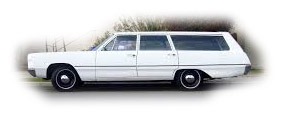 After a dinner of fish sticks and canned spinach prepared by their mother, the boys helped their father load the station wagon. They put in the tent and three
sleeping bags and the ice chest and the Winchester 30-30 with some ammo and a mess kit for camping. The older brother was more interested in the campout, and the
younger brother brought his .22 rifle. It was getting late, and they had to get started. The white Plymouth Fury II wagon went east out of Eugene, Oregon on
highway 126 toward the Three Sisters mountains. It was dark before they got to the foothills. The headlights swooped left and right in the pitch black
as they followed the road up the pass. Eventually their father pulled off onto a logging road. The going got lumpier as the road coarsened.
After a dinner of fish sticks and canned spinach prepared by their mother, the boys helped their father load the station wagon. They put in the tent and three
sleeping bags and the ice chest and the Winchester 30-30 with some ammo and a mess kit for camping. The older brother was more interested in the campout, and the
younger brother brought his .22 rifle. It was getting late, and they had to get started. The white Plymouth Fury II wagon went east out of Eugene, Oregon on
highway 126 toward the Three Sisters mountains. It was dark before they got to the foothills. The headlights swooped left and right in the pitch black
as they followed the road up the pass. Eventually their father pulled off onto a logging road. The going got lumpier as the road coarsened.
After ninety minutes of stoney silence and monotonous whistling, the father suddenly blurted, "Oliver Cowdery never lost his testimony of the Book of Mormon."The older son was startled by the outburst but managed to say, "Not again, Dad."The father turned toward the boy for a moment. "It would do you some good to listen to some gospel history,"he said, "the way you refuse to attend Sacrament meeting is disgusting. How do you think it makes me look? Your hard rock music and science fiction books will do you no good. Do you think those people care about you? Dont you understand that you make yourself a target of the adversary with that stuff?"The older son fell silent. Black swaths of evergreen needles swooshed along the side of the car.
Finally the car pulled off the logging road at the altitude where the trees were beginning to thin out. They stopped and set up camp using the cars headlights for illumination. Sitting around a fresh campfire, they sipped at tepid Kool-Aid and chewed on Hydrox cookies. The father stood up by the fire, brushing his hands at his pants. "Im going to turn in,"he said, "and if you boys are wise, you will too. Morning wont wait for the late. "He farted loudly, as he bent to unzip the tent door. The older son shook his head and quietly pulled a cigarette out of his jacket pocket. He made sure the pack didnt come out. The younger son watched the older one smoke.
 When the two boys awoke in their sleeping bags they discovered their father had left already. There was a handwritten note on the ice chest that read:
"You boys knew you had to get up early--yet you chose not to."
When the two boys awoke in their sleeping bags they discovered their father had left already. There was a handwritten note on the ice chest that read:
"You boys knew you had to get up early--yet you chose not to."
It was just past dawn. They didnt go looking for him, because they were relieved by his absence. He had taken the 30-30 with him, so they were left with the .22. That didnt bother them in the least, because they were happy to plink at cans, and for a while there was a continuous snap of .22 rounds. Later they got a canteen and went out. Maybe the younger brother would find a squirrel to shoot at. That or a skunk. They were certain there had to be something to shoot at, but the woods were pretty sparse, and they didnt see anything larger than a bird all day.
The father was walking along a ridge in the afternoon sun when he spotted a tiny movement in the distance. With one cold blue eye, he looked down the peep sight of his rifle at the light brown fluff of a bad haircut topping some far off bushes. His upper lip trembled.
His black tie was like a flipped exclamation point, shouting everyone down. The full length mirror, framed in enamel woodgrain plastic, reflected the countenance of an aged, but successful man, a blessed man. He was a grandfather now, with some grandchildren born in the covenant of the Lord Jesus Christ. He wasnt above spanking them if they needed it. The second generation children would learn to worship the Lord, with the exception of those who would stray. He knew that some would stray, as his oldest son had.
Dennis had early on professed a preference for science over faith. He repudiated everything in the Old Testament. He denied the witness of the spirit. What was Grandpa to do do? Should he tell his grandchildren that it was okay if their father taught them the ways of Lucifer? Scientists were aligned with the anti-Christ to create a godless universe. Communism was the glue that would hold it together. Grandpa knew all of this.
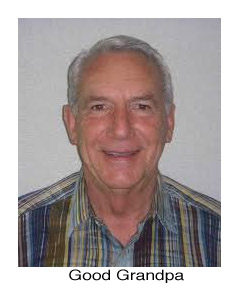 He would lead by example. He was fastidious in his grooming habits--no facial hair, no forehead bangs, no sideburns. He consumed neither alcohol nor cola beverage and didnt smoke. He wasnt tardy for meetings. He answered calls to service and had volunteered all three of his children for labor at the church farm. He sustained his leaders. He obeyed the Lords prophet. He paid an honest tithe. In time he would dwell in the higher places. Dennis was pissing him off.
He would lead by example. He was fastidious in his grooming habits--no facial hair, no forehead bangs, no sideburns. He consumed neither alcohol nor cola beverage and didnt smoke. He wasnt tardy for meetings. He answered calls to service and had volunteered all three of his children for labor at the church farm. He sustained his leaders. He obeyed the Lords prophet. He paid an honest tithe. In time he would dwell in the higher places. Dennis was pissing him off.
His son had three children being raised atheist. They didnt have a clear vision of Grandpas priesthood. How would they ever find salvation? The oldest of them, a boy named Josh, actually made fun of the Book of Mormon, calling it a doorstop. The boy was twelve, and should have been sustained a deacon, but Dennis didnt care if his own son fell away. He couldnt be bothered with gospel ordinances.
Grandpa thought of his good daughters, who were raising their children to be upright before the Lord. Carol had two boys in Primary, one named Darin or Darius, he couldnt remember which, and the other was little Chucky. He had to remind himself to give her that check for her rent. Her husband was unemployed, though a faithful member of the Elders quorum. Cheryl, his eldest daughter, had four children, LaShirl, Ammon, Nephi and LaVoy. Hed bought her a minivan to shuttle them between church and school. Her husband was job searching and they needed help.
But Dennis had his own money and was proud of his worldliness. His children preferred the company of his wifes father, Grandpa Hale, a drunk. Hale gave the kids gifts and took them fishing to bribe them. Of course he had the money, as he didnt tithe or contribute to church funds. And he had the time, because he didnt observe the sabbath. His skewed priorities were spoiling Denniss children, and it pained Grandpa to think of it. Three little souls whod never see the Celestial Kingdom.
He had tried to talk sense to his grandson, Josh, by bearing his testimony. But the boy had smirked at him. Dad told me about your religion, said Josh. The secret temples and the sex interviews. I know about the fake Egyptian translations and everything. There had been no reaching the boy. Grandpa knew that he would have to demonstrate his worthiness with his actions, if no one would listen to him. He wasnt going to engage in the foolish debate against the word of God. Better to be the better man.
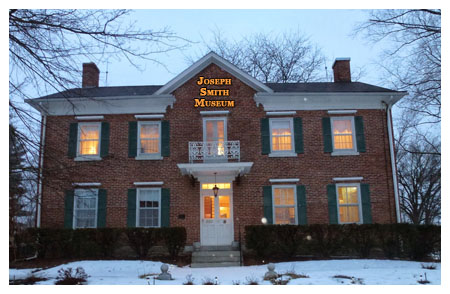 Having stamped up the snow-crusted marble stairs at the entrance, we stepped into the brick-fronted Federalist building that housed the
museum. Melodies of gently plucked cellos tickled our ears. The foyer consisted of a long hall with staircases to the left and right sweeping
upward like a conductors earnest arms. The air we inhaled moaned with the breathy sonority of a wood instrument, perhaps a bassoon or an oboe. Our every exhalation made a somber tone, and the winter forests without the great house fell silent in contrast.
Having stamped up the snow-crusted marble stairs at the entrance, we stepped into the brick-fronted Federalist building that housed the
museum. Melodies of gently plucked cellos tickled our ears. The foyer consisted of a long hall with staircases to the left and right sweeping
upward like a conductors earnest arms. The air we inhaled moaned with the breathy sonority of a wood instrument, perhaps a bassoon or an oboe. Our every exhalation made a somber tone, and the winter forests without the great house fell silent in contrast.
We stomped the snow off our shoes on hemp carpets. The walls around us were covered with likenesses of the giants of the nineteenth century. No, not Lincoln or Grant or Darwin or Karl Marx. Only the men of God were featured in oil portraits hung at eye level. There was Martin Harris, formal as a penguin and Brigham with his collar turned up defiantly. Sidney Rigdon looked aged with his white sideburns. And Oliver Cowdery was captured in mid-thought, his eyes focused on something in the distance.
The representations of the prophet varied from near handsome to beakish. His Celestial proboscis was sometimes troubling to portraiture artists. He was at his worst in profile--chinless and proud with a big nose. So they posted his quotes to flesh out his beauty. "Men are that such a thing may be. Our children have bound us to unrequited love. Who among us will dare defy the inevitable and so hate the word of the Lord? Pews are seldom occupied with the disagreeable. Our meetings fill out the idle hours like tides flooding a beach. Where much is given, so is some quite appreciated."
We were brought to tears with the wisdom of the partially attractive martyr. Smith the man was born in Sharon, Vermont in 1805. His nativity scene includes a rocking chair and a pine crib in a dirt floored cabin corner. A glass rattle has been carefully placed on his swaddling blankets. There is a small four-paned window holding back a snowflake blizzard. The flakes are really soap, and the swirling wind is provided by a hidden electric fan. A plastic Christmas tree stands in the corner near the gas hearth, and a King James Bible lies at the foot of the festive tree.
A half door under a staircase opens to the theocracy wing of the museum. It is listed in The Guinness Book of World Records as the smallest museum wing in the world. All relevant theocracy is stored on a single rewritable disc that is updated hourly. Anything that was doctrinal more than eighteen months ago has a 90% chance of deniability. The Lord will not be made obsolete.
The interior of the museum seems to defy the limits of the exterior. In both size and stature there is more within than without. Rooms open into other rooms, and some hallways lead to closets or dead ends. There is an internal courtyard with a checkerboard marble floor. Statuary stands poised like chess pieces there. We could make out Brigham Young and Sidney Rigdon among the life sized figures. The furrowed brows of great men bullied the decor like Rocky Mountain outcroppings. Their rounded foreheads resembled the half dome at Yosemite National Park. They were like a side portrait struck onto a nickel, or a carved stone likeness at Mt. Rushmore.
Joseph as a youth was represented by a short mannikin lying on a mattress in an upstairs bedroom. He was to undergo knee surgery and refused the whiskey anesthetic. Even before God descended a sunbeam to meet him, the prophet was concerned with temperance. He had the instincts of a superman. Who could question his Nietzsche-like focus at so young an age? Even the most cynical among us beamed with admiration. We noted that he quoted from the Bible to explain his visitations from God and angels alike. His presentation was seamless. He had talked to the Christ, face to face. Any denial of that fact by visitors was regarded as churlishness or jealousy at best.
It is often forgotten of Joseph Smith that he rose to the rank of general in the Mormon Militia, a battalion that rivaled the U.S. Army in size. The militia was capable of policing Illinois, but the adversary rose up against it. Many people said that Joseph had no right to assemble a defensive force. He was maliciously charged with treason. No one could be more patriotic than a prophet of the Lord. Joseph Smith was maligned in the press and the public opinion. He was driven to the point of personal sacrifice. He went like a lamb to the slaughter.
Josephs martyrdom was displayed tastefully in a diorama. He was shown entering the jail at Carthage with his arms full of Mormon doctrine. He proposed to study the holy scriptures while incarcerated. Another scene shows him beseeching his brother Hyrum to forgive the mob that clamors outside. When their cell was penetrated, Joseph faced the angry men and told them to desist in the name of the Lord. His words went unheeded, and he was made to breach the second floor window. The fall mortally wounded him, and he cried for mercy. No freeman so much as extended a hand. This was the most disturbing room.
The Nauvoo room was a glass-encased porch at the back of the building. Low clouds scudded at the gray sky outside. On a long table within there was a model of a hotel and temple anchoring an Illinois town that competed with Chicago for population at the time. Daguerreotypes of senators and journalists shaking hands with the prophet crowded the wainscotting. Most of the rooms upper walls were glass battered by the fluff of real snow. Overhead, waves of white flakes swept across the windowed ceiling. We had the shaky feeling of standing within a snow globe. That and the eerie sense of looking out from the inside of a goldfish bowl
At the exit, candy was offered. It was hard and unforgiving with a weedy aftertaste, and it brought to mind the dusty flavor of nineteenth century air in a tack barn, thick and rank. They called it horehound, and the terminal trash can was stuffed with wet pieces of it.
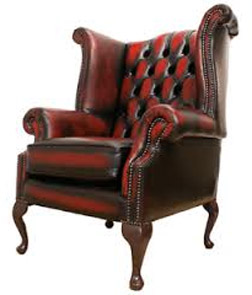 Are you comfortable, brother? The chair youre sitting in is real burgundy leather with hand tacked trim and claw feet--just like mine. And, like my desk, the wood is mahogany with a deep cherry stain. Its not the chair I use for worthiness interviews, just so you know. Youre new to this ward, but your reputation as a member in good standing precedes you. Thats why Ive called you to my office, you see? I have plans for you. Much to my dismay, I recently had to let my second councilor go. He lost his testimony to some petty vice and refused his duties. Pornography, I believe. I hope Im not being presumptuous when I say that youd make a good fit for his office. After all, weve only just met. But the Lord doesnt stand long on temporal social protocol. He requires us to reach quick decisions, doesnt He?
Are you comfortable, brother? The chair youre sitting in is real burgundy leather with hand tacked trim and claw feet--just like mine. And, like my desk, the wood is mahogany with a deep cherry stain. Its not the chair I use for worthiness interviews, just so you know. Youre new to this ward, but your reputation as a member in good standing precedes you. Thats why Ive called you to my office, you see? I have plans for you. Much to my dismay, I recently had to let my second councilor go. He lost his testimony to some petty vice and refused his duties. Pornography, I believe. I hope Im not being presumptuous when I say that youd make a good fit for his office. After all, weve only just met. But the Lord doesnt stand long on temporal social protocol. He requires us to reach quick decisions, doesnt He?
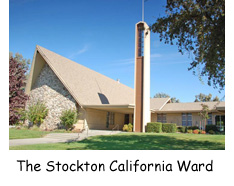 This ward isnt exactly what you might call "high end,"considering your resources. I know some folks back home may assume that California wards are wealthy, but this is not always true. Perhaps in the bay area. Stockton has a dearth of high wage work, and, with few exceptions, these are solid, middle class folk. For instance, Elder Andress, a member who was inactive for fifteen years. I suppose he was content with his handyman position at the foster childrens home. Until he retired a couple of years ago, we didnt see him at sacrament meetings, and now hes occupying a seat in the foyer every Sunday with a piece of hard candy for any little one wholl sit in his lap. The upshot of the deal is hell pay about a half tithe--$200 a month. And he loves Primary children; its a win win situation for the ward.
This ward isnt exactly what you might call "high end,"considering your resources. I know some folks back home may assume that California wards are wealthy, but this is not always true. Perhaps in the bay area. Stockton has a dearth of high wage work, and, with few exceptions, these are solid, middle class folk. For instance, Elder Andress, a member who was inactive for fifteen years. I suppose he was content with his handyman position at the foster childrens home. Until he retired a couple of years ago, we didnt see him at sacrament meetings, and now hes occupying a seat in the foyer every Sunday with a piece of hard candy for any little one wholl sit in his lap. The upshot of the deal is hell pay about a half tithe--$200 a month. And he loves Primary children; its a win win situation for the ward.
Sister Moss is our organist and perhaps most dedicated member. She has vibrant red hair, pink cheeks and is conscientious to a fault. Our ancestors might have called her sanguine in appearance, but there is an inner turmoil in her. Youll find shell call you frequently to report even the slightest violations of the Word of Wisdom or modest dress. Best to take her messages and sort through them once a week or so. She does pay full tithe from her deceased husbands pension. He was, unfortunately, found in his car in the garage with the motor running. Truly a shock to everyone. Hed had troubles with his faith, and she pushed hard to help him keep it. So I can overlook her occasional panicked call when she spies a member drinking a Dr. Pepper at 7Eleven.
I have to warn you about Brother Bass. He wears off the rack suits which bunch up in the back and give him the look of a traveler. Hes very needy. He wants to advance so badly, its almost palpable. He has a rebellious pot-smoking son and a promiscuous daughter. Not to mention five other children unlikely to amount to much. Even though they live in a ramshackle house on Blacklock Road, he donated an extra thousand dollars to the building fund. I asked him if he was sure he could afford it, and he said the Lord would replace and multiply it. What was I supposed to say to that? Hell approach you with an investment scheme, so heads up.
Then theres Brother Sawyer. A solid, if wooden, elder who pays full tithe. He has the conversational skills of a juniper bush--named his son Tom. Hes who you go to for folding chairs and getting the hall floors buffed. Blue collar and somewhat coarse is how Id describe him. But hes essential. His wife, on the other hand, is off the grid, so to speak. She wont take any calling and lives in her room with a doll house Brother Sawyer made her in the high school shop. Hes a phys ed coach there. Twenty odd years now, I believe. Solid.
Brother Garcia owns a local lawn care business. We have a deal that he pays a half tithe and maintains the chapel grounds. His wife is Catholic to the point of difficulty, so beware. She will try to shield her children from primary lessons and worthiness interviews. Though it makes my job harder, I appreciate Brother Garcias contributions to the ward. Having a man of Lamanite heritage with a good work ethic is a blessing.
Then theres John Reed. You might ask, why dont I call him Brother Reed? Because hes nothing like a brother. He will cheat you worse than Brother Bass, steal your wallet in a New York second. He allegedly ran a scam with a church-related audio recording facility. Thousands of dollars were said to have been siphoned off, though nothing was ever proved. He drives a van with folding chairs from our chapel storage for his family to sit on. They keep their laundry in the bathtub, and they take no showers. He does pay some tithe, though. You just have to squeeze him some. And tolerate his dirty family. The only alternative is disfellowshipping, and we cant afford the lost tithe, such as it is.
And Brother Henderson. "Stick"Henderson to his friends. He had an affair with Brother Basss daughter, Janice. His excommunication is underway, but hes still a member. His poor wife is crushed. Her family is distraught, and her disturbed daughter is flirting with Brother Basss son, David. Shes nine and hes fifteen. Stick has brought an illness to our ward that is not easily healed.
Ive told you about Sister Moss. our organist. Brother Bass has been observed leaving her residence at two am. I dont know how to approach him on the issue, do you? I mean, hes married with seven children, and shes a widow. The prophet could handle this, Im sure. But I dont have the chops.
David, the son of Brother Bass, is resistant to the gospel. He says that Jesus "sucks."He argued with me during our last worthiness interview. He is not yet sixteen and well on his way to damnation. The boy hates Joseph Smith and the Book of Mormon. He hates his heritage. Dont get caught up in his misery. He is a sad little fellow.
Brother Sawyer, whom Ive mentioned, has been accused of molesting boys at school. Frankly, Im surprised it wasnt Brother Andress. He makes the darn kids sit on his lap for candy, after all. I guess you never know. The Lord gives us a certain amount of information and no more. We have to learn for ourselves. We apologize to no one. Im not prepared to discipline him. Hes never failed a worthiness interview.
Sister Moss does not like Brother Sawyer, so dont meet with the two in the same room. I believe she dated him in high school, and it didnt end well. She once described him as an international man--with Roman hands and Russian fingers, ha ha. Seriously though, she hates the man.
And the Dengue family--I have to tell you about them. Sister Dengue is a sweet and compliant person, but her husband hates the gospel with a feverish anger. He once told me to go consummate myself. They have three children: Heather, a sixteen year old of excellent posture, and Adam, twelve and lively. Hell pass the sacrament and work hard in Boy Scouts too. The youngest, Lacey, is a shy but pretty ten year old. Their father, sadly, is anti-Mormon. I dont know if anyone is safe from the internet--he spends a lot of time there, I understand.
As for Brother Marcus, well, he may seem a bit flamboyant at first, what with his coordinated sweaters and Dockers, but hes a faithful tither and music director. Our road shows are the best in three stakes because of him. I know hes unmarried at forty, but hes as solid as Brother Sawyer, whod probably want to hang the man if he had a clue. Good things, Im telling you, can arrive in rainbow-colored wrappers.
Which reminds me of bright candies spilling forth from a pinata. The Gonzales family is our largest, and most celebratory, family. They love pinata parties, the flash and delighted screams of children swinging bats at cellophane puppets. They love barbeques and fireworks, and why not? They contribute the most children to the ward. Dont ask me their names--I mean, Pedro, Paco, Lisa, Marisa, Angelo, Rosa, Jorge, Churro--II cant tell one from the other. But they do know how to celebrate, and a little food from the storehouse is worth it, Id say. Wouldnt you? Now dont be alarmed when Brother Gonzales strikes at his offspring. Its his measure of discipline, and its his prerogative as family patriarch. And were all about family here.
I should not neglect to tell you of Brother Sorensen, my first councilor. He is a true man of God. There isnt a single chink in his armor, which is not to say there isnt one in the kitchen, if you know what I mean. He loves his Asian food. His Filipino wife is steadfast, though his children were of another mother. How they harry her. Its disgraceful, the way his sons and daughters carry on. Youd think he didnt provide them with the gospel. But he soldiers on, giving his all to the church. They seem to blame him after their mother died in the freeway accident when her brakes failed. I hope your family treats you better than his. Hes always been more than a tithe-payer--his contributions to the building fund are unmatched, even by Brother Bass.
Brother Jude, an avuncular heavyset man, is our scoutmaster. He likes to wrassle (his word) with the boys. Theyll grapple with him, rolling around on the floor, trying to get leverage, but he always dominates and tops them, rubbing his knuckles at their ribs. Its a good way for blowing off youthful steam. Unfortunately, he has a son named Noel who refuses to join the scouts. The boy has a tobacco habit and was caught trying to set the curtains on fire in his own bedroom. Watch out for this kid, as he seems to carry a grudge about something.
You might be surprised to find that we have a fairly recent convert presiding over the Relief Society. And a single woman at that. Her name is Annie Pewter, a self-confessed recovered addict, and shes quite a breath of fresh air. She charmed everyone when she once testified that Jesus was the son of Christ--yeah, I know. But shes been running womens pilates in the cultural hall for a year. Several of our sisters clamored for her calling to lead. Shes a looker, too--very charismatic. The rumor is that Brother Bass sent her a valentines card with three hundred dollars enclosed this last February. My only advice regarding her is to hold fast against immoral thoughts. Ha ha.
After all that Ive told you, will you accept my invitation to serve as my second councilor? So many of our members are hanging on hope. Please help us in our hour of need and stand with me and the Lord in this essential calling.
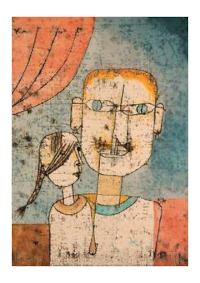
Banned from the garden
And no looking back
Her heart was hardened
His jaw gone slack
Into this world were thrown
The boy and the girl from his bone
The fruit was forbade them
The snake had advice
If Adam was bad, then
Eve was bad twice
His curse was living by sweat
Hers was of birth and regret
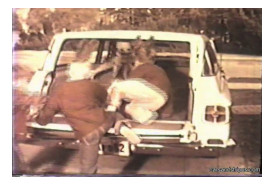 This burg’s too much to bear, he said
This burg’s too much to bear, he said
It’s why we set things down
And send our hopes like spies ahead
To see beyond this town
Perhaps the next will be the last
And there we’ll all be good
I do believe we’ll have a blast
In our new neighborhood
And yet my feet were draggin’
As I left every home
And crawled into the wagon
When called upon to roam
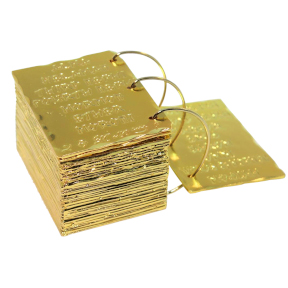 The power to charm, or even disarm
The power to charm, or even disarm
A foe in the throes of battle
The sight to recite from a language that might
Sound to some like a slow death rattle
These were given to Uncle Joe with the plates
Included was a Nephite sword
Forged in the valley of the Lamanite states
By the dark ones we abhorred
Uncle Joe’s Golden Bible
I heard him quoting from the gospel text
At a big tent revival
Somewhere near Palmyra, to the west
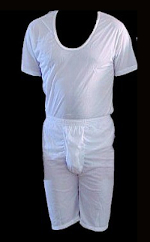 Who among us wants to be a knucklehead son
Who among us wants to be a knucklehead son
The butt of every joke your dad tells anyone?
My boy’s not too sharp, he’s a butter knife kid
It’s likely you’ll not see another like him
He thinks God is fake, and that Jesus is myth
Too dumb for our faith, and he hates Joseph Smith
I’m sure it’s his mother who passed on her weakness
The boy is so stupid, he’s keeping me sleepless
Then Dad wraps it up with another lame joke
The boy says my garments make me look like a ghost
Back when I was little
And the tales were always tall
They talked to me in riddles
They could not explain at all
Jesus, he loves us, seemed
Especially unfair
Because I looked around, and
I saw nothing in the air
Where the fuck is Jesus, then?
Is all I ever asked
A question that was answered with
A stripe across my ass
If your god is everywhere
That’s no real address
All that’s real exists somewhere
And devil take the rest

How many hands round the table?
Icy fingers on a milk bottle, cereal bowls
Upturned and juice mustaches all around
You have to say Jesus, or you don’t eat
And your father worked hard for you
To have nothing, and no respect from you
He gave yours to Jesus, because you
Were undeserving and without faith
In the gospel and the family plan

She’s going to get up
With the sun today
She’s scheduled for a shift
No one will see her
As she drives away
And she will not be missed
She wants to know will Heaven ever find her?
She wonders could it happen by mistake?
She has in mind a time that would be kinder
If Heaven ever gave an even break
She’s going to come home
With the sun today
Stop for take out on the way
No one will hear her
Open her front door
Her weary shadow on the floor
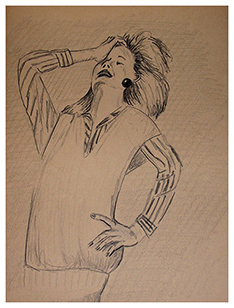
Remember I danced in your music box
Swung, a hanged man, from your tree
Dried like the frost on your window
Died a trapped fly in the double pane
How could I cradle the rain in my hands
Your tears were as bitter as hemlock
You blushed like a birch red with autumn
I snapped like a knot in a campfire
And who are these shades who displaced me
These faces that tilt up to watch
From these and the steam of your Christmas breath
I rise like a sigh toward Heaven
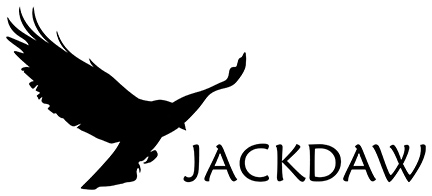
A jackdaw's cry
From a corner of sky
The willow switch
At a fevered pitch
A whipping post
For a hostile host
Was all that he had
Because he was bad
Nonetheless, we all need him
Can't have our Garden of Eden
Most certainly
Not serpent-free
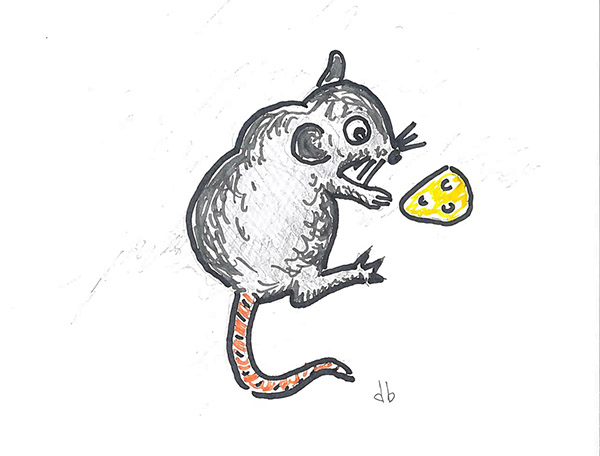
And the story tells one
Of Winslow the vole
A field-raised wild mouse
Who lives among the piles of dust
Beneath a house
And escapes with some discretion
When the kitchen light lays bare
The shade cast from
An oven and a toaster there
And dreams of mousy heaven
With its houses made of cheese
He lives in dreams
And dreams of things
He thinks in dreams
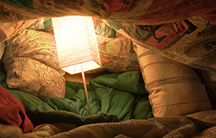
Wartime apartments housed us
On all fours, we five got underfoot
And were swatted into corners like
Dust bunnies or rug beetles
The end of the month raged
Over no money for bills
And we hid under our beds
So we wouldn't be found out

Its corrugated wheels
Rumbling and shuddering
In the throat of the plastic
Bin, a distant thunder
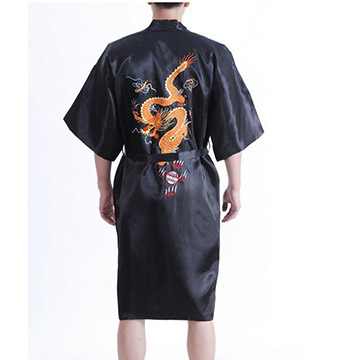
He's a caution to the wind
He's a boss and not a friend
Proper Robert has a lot to offer
If you have some to invest
Just commit to buying some of it
And he'll take care of the rest
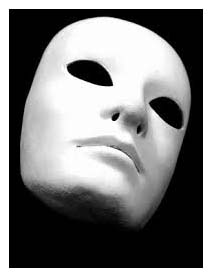
Heavy your pocketed hand
Fingers pinching a dime
And heavier still when
Meting out the hurt
The Holy Ghost in your head
The devil in your hands
The one lashing, and the
Other blessing with approbation

One small person in a church
Will learn to worship or to hurt
The prophets rage
In shallow graves
All covered up with dirt
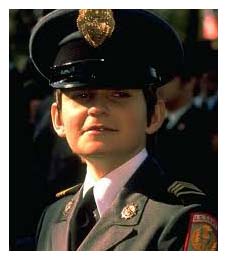
I can't be yours, for I'm no good
I've got a mutant gene
We both know it's understood
I hate your machine
"Come be a cog
Not cognitive
Come help us run the dunsel dream"
I could not heed your epithets
Your calling me astray
I nervously smoked cigarettes
And filled a large ashtray
And by then I was quit of you
I'd really had enough
You Pharisee, you phony Jew
You go to your dust
I'm your Devil's son

We found bottles, we found jars
Broken parts of broken cars
We found nothing worth a dime
Though we went back many times
If Joseph Smith found golden plates
Surely we could catch a break
But Citrus Heights ain't west New York
I found a rusty knife and fork
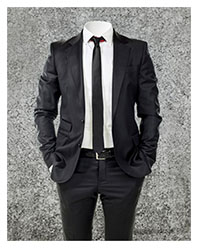
He has to give a talk next sacrament
Something on sin and the need to repent
He has a problem and doesn't know why
Someday he'll pray to God, "please let me die"
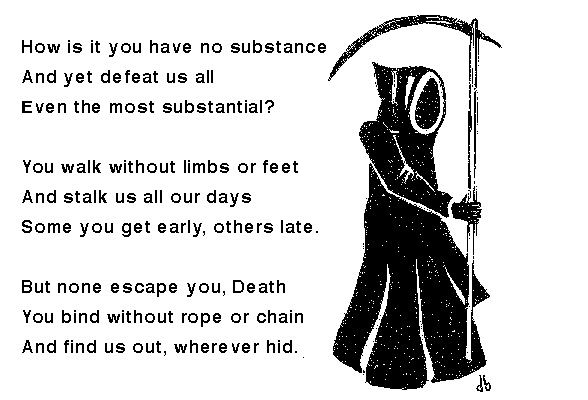

Don's Inspired Word(s) of Wisdom - updated 10/15/2015
The Scientology Channel = Cultovision
How do you handle Mormons who are thieves? Mormonism itself is theft. It attracts thieves. Money changing hands always gets the attention of schemers and scammers.
On Mormons and Speeding: My brothers and I were riding in Elder Jane's car. He liked telling elephant jokes. That was maybe his most redeeming quality. He was driving us up to the Sierra Mountains for some kind of Mormon youth retreat. "I don't like driving under eighty MPH," he said, '"the car wants to go faster." We white-knuckled it up the freeway at about ninety. "Why do elephants have red toenails?" he asked us. We didn't know. "From stomping on pygmies," he said, and he laughed and laughed.
What constitutes "healthy" alcohol consumption? Finishing upright.
Blind obedience is the ability most highly valued in Mormonism. Willful ignorance is a close second.
It appears I was raised by a madman. It makes sense, because I have crazy memories of church and childhood.
I have a King James Bible for reference. I also have an 1830 (just a copy) first edition Book of Mormon. Believe it or not, these inform me. Not in the way religious people would like, though.
What primary song did you like?
"Give, Said the Little Scream" always freaked me out. I understood that the stream would dissolve itself in the giving, and what was left would vanish in a river. It disturbed me, so I changed the title to scream. I learned early on that if I rewrote things it helped to take away some of the sting.
Should school teachers be armed?
Yes, every teacher should have arms. And legs, if possible. Guns? No.
It amuses me the way Mormons portray the pre-existence as a bunch of barefoot young adults in togas. All they need is beer and John Belushi to make it Animal House.
Scientology opens "ideal org" in Salt Lake City: Utah's number one crop is dupes, so why not?
Hell is a place where your savior and your tormentor are one and the same. You don't have to die to get there, you only need to be born.
The Mormons will lose this war against nature. Masturbation will beat them off.
How about one on the Mormon Godhood? The Fodder, The Sum and The Holy Trust.
She appears to be presenting herself as a Christian Jew. Light on the oxy and heavy on the moron?
The secret is that Laban's sword, also known as Excultiber, is stuck in a large seer stone. Only a real prophet can remove it, and the sword's grip is covered with the fingerprints of pretenders.
My great grandfather had three wives and thirty-five children. What he raised up was righteously seedy.
According to Mormon lore, the Devil was the one who proposed coercing folks to participate in the faith. I guess he's faculty now.
When Nephi came back after sneaking into town and killing Laban, everyone said he had brass balls. Lehi said, "let the record show that he returned with brass plates."
A rock in the hat for Joseph was a pebble in the shoe for me.
Jowelderize--shake droopy cheek flesh while blathering about the Book of Mormon
The Beatles and Elvis had more golden records than Joe and his angel.
Other than the serpent in the Garden of Eden, the only animal in the Bible who could speak was an ass.
The best religion to raise children with would be the one that interfered the least. I didnt know which one that would be, so I went with none of the above.
I may have believed in reincarnation in a previous life, but not in this one.
How can an endless succession of people be "sealed"to one another? What are they, a caterpillar? Its nonsense.
I wonder if Joseph Smith really said, "men are that they might have Joyce,"and it was edited like everything else.
Masturbation is Mormon foreplay for a guiltgasm.
On married Mormons sexually transmitted disease rates in Utah skyrocketing: At least theyre not masturbating.
The Mormons dont need to believe in original sin. They just select a natural behavior and call that a sin. The secret of Mormonism is that every Mormon is secretly a sinner.
LDS, Inc. now owns 2% of Florida: And I thought fantasyland was in Orlando.
My experiments with whiskey have shown that it induces unconsciousness. Therefore, I hypothesize that consciousness is induced by anti-whiskey, a substance yet to be isolated.
On Mormon baptism: I wonder if total submersion is a metaphor for total submission.
So, does President Monson have dementia, or not? At this point, he probably doesnt even have mentia.
On looking up the Family Tree: A rotting polygamous branch choked with the parasitic mistletoe of Mormonism is what I see.
On LDS birth control then and now: In the temples theyve always practiced mirth control.
Sex in temple garments makes sense. Ive always felt that my DNA was strained through something. A stain was all that was left of my self esteem.
On Cuba being dedicated for missionary work by Jeffrey Holland: They send us Havana smokes, and we send them a scammy hoax.
How will history remember Daniel Peterson, the Mormon apologist? I hope that history treats him the same way that he treated history.
On Joseph Smiths self-testimony: Who would believe that a magician thinks himself magic?
If Joseph were on trial today, and you were the jury: I would have to recuse myself due to conflict of hatred.
Joseph Smith as U. S. President: If he had, the soiled dress scandal might have happened long before Clinton.
On Gordon B Hinckleys sense of humour: Gordy was such a kidder. When he gave tithing money to Mark Hoffman in a failed attempt to suppress embarrassing information about the church, he was joshing. Of course the information was false, as theres nothing embarrassing about a religion based on God visiting a Yankee farm boy, is there? Ah Gordy, you so funny.
On Mormonism as a one way ticket: I feel for anyone stuck at the destination.
Upcoming Weekend Worldwide Devotional: Getting your Testimony back! Get my testiphony back? I never had one to lose.
On "Parliament of the Worlds Religions"to convene in Salt Lake Cityi: Why not? Even squirrels like to put all their nuts in one place.
Mormons struggle with everything from reading their lousy scriptures to wearing their bizarre underwear. Their lives are full of contention and the fear of coming up short. It seems like every last one of their customs has evolved into a commandment. Eighteen years of that opressive counterfeit lifestyle was more than enough to last me an eternity.
On the Los Angeles Mormon Temple lawn to go brown in California drought: Youd think the temple lawn would stay green, considering how much the ceremony has been watered down.
Fox Channel Blurs Out Breasts on Picasso Painting: Well, that news channel has blurred out a lot of other things as well. The boobs that they do show are their news anchors.
What previously taught doctrines has the Church abandoned or disavowed? The Hill Cumorah has seen more moves than a Uhaul truck. American aboriginies have been orphaned from their ancestory like foster kids. Pepsi went to rehab, and women won the right to pray subserviently. Bare shoulders were promoted to nudity. Garments were split in half while their ugliness remained whole. The very elect were elected to scrub like Cinderella in reverse.
On smartphone cemetery (Seminary) activity is for Mormon youth: They also get baptized for the dead and enjoy funeral potatoes. Maybe they should call their religion Morbidism.
On Boyd K Packers describing the taste of salt and knowing God analogy: It sounds obvious, but salt does have a distinct flavor. Boyd defeated a straw man with a straw argument. In fact, there are so many straws there that its a cinch to see what hes grasping at.
Lichen all scripture unto fungus.
From the Mormon point of view, what constitutes porn addiction? Turning your head to look at an unclothed manikin.
My father slavishly believed every word in the Journal of Discoursees until they told him to stop. Then he believed the next thing he was told to believe and continued paying for the privilege of having his beliefs managed for him. They never did tell him to stop being a dumbass.
How Many Generations Has The Mormon "Virus"Infected Your Family Tree? We go back to Nauvoo. That is, some of us do. I myself will never go back.
Im too old for jumping to conclusions. But I do recommend looking before leaping.
Regarding the new Mormon campaign - justserve.org: Helping Hams.
Faithful sisters should remember that there is no you in uterus: It does have us in it, though. Us men telling you what to do with it.
On use of the spelling "MORmON"on Recovery from Mormonism forum; And how FUn moCKing IT can be!
Quick! Hide the coffee! Wheres your breaking point in Mormon accommodation? Its better to put the beverages out and hide the Mormons.
The #1 strangest teaching is Kolob in the Pearl of Great Price: Joe didnt know shinehah from shinola. Asstronomy.
On gaining knowledge is sin:
Who knew that the odds In the garden werent even That knowledge was flawed When compared to believin? Eve couldnt have guessed Till she ate the banned fruit That she was undressed In her birthday suit Then Adam had seconds As hungry men do, and Thats when he reckoned That he was nude too Their landlord took note Of their lack of decorum And banished them both To the Recovert from Mormonism Forum.
There is no savior? Ill always have Popeye the savior man.
With Mormons, the thinking has already been dumb.
You have 90 seconds Ñ describe the Mormons: I would hold my breath that long to simulate their suffocating subculture.
What are some inherent strengths and weaknesses of typical Mormons?
Strength: Obliviousness
Weakness: Obliviousness
On a self righteous Mormon: He went all Moroni with his own horn there, didnt he?
On why the "witnesses"to the Book of Mormon are irrelevant: And you can tell that the statement of the eight witnesses was written by the same author as the BoM. It has the same curious workmanship.
A man above reproach is a tyrant. Continuous fear of punishment is traumatizing. Rejection of evidence for dogma is mind control. Dependence on the sacrifice of others is abuse. Useful lies are still lies.
The Twin Falls Mormon temple is being "deep cleaned and the members pockets are being deep cleaned as well.
Ive seen churches and zoos. Both hold captives. I dont care much for them.
Anyone ever attended the temple and had someone pass gas? I wonder if that odor could be coming from the gaslighting?
So what kind of a noise does the church make as it shrinks? Maybe the groaning of an abandoned house collapsing on itself.
Will heaven be weird? Ive heard it said that Heaven is in your mind, and I have a weird mind.
On the Joseph Smith "Tarred & Feathered"Story...As Told To Primary Children: History marred and fettered.
On why I hate Star Trek: Sure, they introduced the cell phone. But can you imagine Kirks roaming fees?
You Could be a Mormon if you demand forgiveness from those youve abused.
Regarding Home teachers "ruined our evening by calling to schedule at the last moment and then never showing up.": And its even worse when they show up
Ill buy that for a dollar... George is legal tender, Joes a weak pretender.
Off the record General Authority comments regarding Boyd K Packers death in July 2015: Russel M. Nelson: It was just a matter of time before that little factory was outsourced.
Regarding The City Creek Mall: "Our father, who art in Nordstrom, value be thy name. Thy shoppers come, and spend till numb, in malls as it is in temples."
Straws have never been so desperately grasped at, red herrings so violently waved, and conclusions leapt at with such abandon. Defenders of Mormonism have broken the bonds of gravity and float like gossamer on the breezes of their own exhalations.
The Holy Ghost is the loser god. He didnt get a body. Hes afraid of pornography. Hes guilty, sexless and has nothing to say. He works by feeling, like a banana slug. At his very best, hes a warm sensation in the chest area, the Vicks vapo-rub of Spooks. He flees when you need him and lingers when you dont. Hes like a room mate who cant be found at rent paying time. Hes a squatter and a low grade succubus. The Holy Ghost is an emotional parasite.
Nobody is the member of a cult. Just ask any cult member.
Mormonisms:
Swervice - the misdirected charity of unpaid corporate labor
Flaith - believing the flavor of the month doctrine
Pretendance - sitting in the pew with a smart phone
Wastening - meaningless prattle meant to bolster morale
Bishoprickles - nervous feelings around church leaders
Vacuument - boring meeting with empty ritual
Endourment - ceremony devoid of laughter or lightmindedness
The Never Ending Sacrament Meeting:
They have to implore one another to be less boring. Mormon meetings are droning exercises in bench endurance. A marathon of pinched pew-butt sensation and coughing, back rubbing, murmuring, sighing, infants crying, and small children slapped into obedient quietude.
Its a grand buffet of everything annoying all at once. It amazes me that anyone gets up early in the morning on purpose to be a part of that circus of tedium.
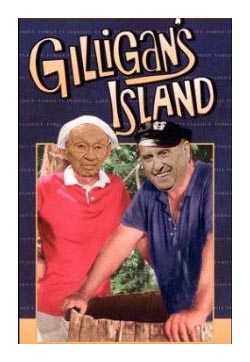 A Three Hour Tool, A Three Hour Tool
A Three Hour Tool, A Three Hour Tool
This is the twenty-first century. A three hour borefest is like a three hour tour on the SS Minnow in a storm. You can languish on a sandbar or a church pew. Either way, the dry air will suck itself out of your lungs.
You could be listening to seagulls squawking or a bishop admonishing, it matters little which. Dont be a three hour tool.
Gilligan Parody -- a three hour bore
Just pick a bench, and youll hear a talk
A talk by a boring drip
That starts off with a bishops cue
And doesnt end for sh!t
First counselors a wealthy man
The Bishop owns a store
The congregation sits and waits
For a three hour bore, a three hour bore
The meeting started getting rough
Some Cheerios were tossed
If not for the courage of the bishopric
The sacrament was lost, the sacrament was lost
The children ran irreverently and frolicked in the aisles
With deacon boys
And teachers too
Stake president and his wife
The beehive girls
And the rest
Here to stay quite a while
The difference between a priesthood blessing and a simple prayer:
A priesthood blessing is a myth.
A simple prayer is a near-myth.
Both are quite mythterious.
In the Mormon hierarchy justice is pronounced "just us."
One doesnt practice Mormonism. One succumbs to it.
Regarding The Law of Consecration: Its cotton candy communism. According to the law, everything members own belongs to the church and is subject to redistribution. In practice though, wealthy members keep their wealth and poor members go hungry. The so called law of consecration is spun sugar, nothing more. The church is quite satisfied with ten-plus percent.
We can tell Mormons were pretty far down the list of religions when they had to settle for a prophet named Joe Smith. Their cheesy temples reflect that too. And their scripture, produced by means of a magic rock, is third rate at best.
Boyd Packer: We have discovered that the threesome is more desirable than the couple. Three young men, or women, can spoon on a king size bed. After all, our history in polygamy has shown us that the bed thats occupied by two is of the devils crew. But the bed slept in by three is the mattress of polygamy. Its a delight in our Lords sight.
One of my TBM (True Believing Mormon) siblings actually said, "I just sat through a three hour meeting, and my heart is full."A three hour fill up? Mormon hearts get poor mileage, I suppose, if it takes that long to fuel up.
Being born Mormon is a kind of psychic birth defect that can only be healed with time, distance and therapeutic activity.
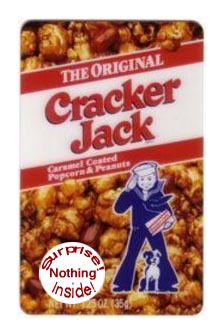 Mormons dont bear crosses, they bear testimony.
Mormons dont bear crosses, they bear testimony.
The Best TBM (True Believing Mormon) Slogan of ALL Time: "Are churchs tru."
Re: Predicted surpises, expectations, letdowns:
Mormonism is like that fake Cracker Jack box in Mad Magazine. The label on the box reads: Surprise! Nothing Inside!
Mormon temples are emptier than Sarah Palins head. Their charity trickles out slower than Obamacare. They hold up Glenn beck as a great thinker. Bednar has pickle dysfunction. Boyd fears intersections, and Tommys into drive-by prophecy with gangsta rims.
BTO (Bachman Turner Overdrive) wrote a theme song for the Mormon church called, "Gimme Your Money Please."Yes, its about robbery.
A New Statement From the LDS Authorities:
Some of our bolder critics have accused us of stating that homosexuality is a choice. We have never said such a thing. What we did say was that homosexuality was choice. Indeed, choice above all others. If you havent seen Tommy in a teddy, you may as well watch R rated Cinemax movies with bare breasts. We embrace our inner gay (but we do so as buddies, nothing more).
I once dated a girl who said, "every marriage not done in the temple has a built-in divorce."Her remarks contained a built-in jilting.
Re: Mormon Membership Shrinking
Bishop: I dont see people leaving in droves.
Perhaps he sees people leaving in throngs rather than droves.
Re: Mormon Chat - can be such fun.
The Three Nephites were rendered obsolete by the new "run flat"tires that can be driven on even after losing pressure.
Q: Who were the Three Nephites who helped stranded motorists?
A: Manny, Moe and Jack.
Fun fact: The Three Nephites once attempted to break into show biz with a vaudeville trio act, but they were upstaged by Larry Fine and the Howard brothers.
Is it possible that the Three Nephites are really the Three Wise Men? The two groups have never been featured in the same painting.
Some doubt the three men were able to escape the Book of Mormon, as its almost impossible to get past Second Nephi.
Re: If tithing is paid by faith more than money than why require it?
No one is immune to the necessity of a cash flow. Faith wont pay the bills. But obedient tithers will.
If you had ten obedient followers paying you tithing, youd have an average income without having to work for it. Imagine having millions paying--youd be forced into vast wealth.
Keep paying, suckers, and enjoy Tommys $900,000 Audi. Maybe hell wave a claw at you as he rides away.
Re: Easy test for Book of Mormon.
The law of conservation of momentum causes the Earth to continue rotating. This rotation cant be stopped short of a calamitous high mass impact, such as a collision with a planet-sized body.
The law of consecration of money causes circular Mormon thinking. This circularity cant be stopped short of a calamitous apostasy, such as one caused by a collision with facts.
Sealing is a form of spiritual branding. Even after death, Mormons expect to be treated like cattle. And they look forward to it.
I wouldnt want God to find my car keys.
Knowing his track record, I wouldnt trust him to drive my car.
Re: What did we do in the pre-mortal world before birth?
I know one thing. I didnt foresee what I would be born into, or I would have committed pre-suicide.
Re: Snow removal at the church buildings.
If they could remove the snow from their sidewalks the way they remove Lorenzo Snow from their history, there wouldnt be a flake left outside the chapels. All the flakes would be inside.
Very little doctrine remains. There is increasingly less, in fact. George Orwell wrote about the reduction of language being used to reduce thoughts. Ultimate mind control would be achieved when the entire language consisted of only one word. The Mormons have that word ready: Obey
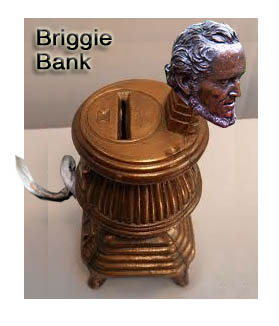 Re: The Morg (Lively knickname for Mormon Church) doesnt believe in Outer Darkness Anymore?
Re: The Morg (Lively knickname for Mormon Church) doesnt believe in Outer Darkness Anymore?
So outer darkness for apostate sons of perdition turns out to be a threat and not a place? Its a good thing bullsh!t is biodegradable, or Utah would be under a thousand feet of manure.
Re: Going after that Mormon money.
A Briggie Bank:
Every time authorities blame Brigham Young for hateful Mormon doctrine you put a dollar in the Briggie Bank. The bank is shaped like a pot bellied stove with the head of an a$$hole. It can hog a lot of cash. With each dollar you feed it, the head says, "not doctrinal."Makes a perfect gift for priesthoodies.
Instead of fishers of men, the Mormons have become fishers of excuses.
If there is a true church would you want to know?
It cant happen because truth and church are apples and oranges.
Re: Mormonspeak.
People who believe in ghosts and magic rocks find the Internet to be less than credible. I guess Mormons believe that "irony"is something you do to wrinkled clothes.
My Reluctant Sacrament - 04/16/2006 - by Don Bagley
Sweat burning in my eyelids
Blank faces turning to see
Curt stares, murmurings
My feet clubbed and shuffling
One nervous hand clutching the tray
Passing out bread and water today
Whyd I have to go and be twelve?
Men laid hands upon my head
Why not someone else instead?
Someone said, "A story should snap closed like a well-made box." This one does, and so does "North Falls."
I love how you end a story without elaboration or opinion. It's "Here's what happened. Period." They almost have a journalistic pace to them. There's no waste. - I love that about your stories, Don. :) - 3/7/2018 - Kathleen
I love your work, Don! Thanks for sharing! - 3/7/2018 - Aquarius123
And now I've read it, wow! Another great one, Don. I particularly loved "God is like the spirit of an old fart trapped in a foam cushion." - 3/7/2018 - Tom in Paris
Good. North Falls left me wanting more. - 3/7/2018 - Soft Machine
Oh wow I liked the metaphor in the second stanza.
And the third stanza as well, and I liked how the descriptive phrases were linked with symbolism. I liked the use of a concrete noun at the beginning of one line which happened to connote to sheets of rain ice in winter storm and sheets which are elemental and discomfort or challenge humanity physically, and the sheets of fabric which hold, comfort, and embrace us when referring to loves embrace.
I liked the use of a scene which livened it up or brought it to physical reality for me ; I live in dry drought dirt valley stubble of stalks without leaves far far below the snow. so the visual image the poem was superimposed on was helpful to me as a person connect to weather Symbolism seeing the cycle of life symbolism helped me tune in as a reader.
And most of all I love knowing a poet here, and the comfort of him letting us share in his journey. thank you for putting it out there and let us read it. - 02/12/2016 - PainringintheWIn
Thanks D.B. I look forward to reading... when Im not writing, or reading (something else), working, sleeping, eating, designing, cleaning up or recuperating.
Updated: that was great! Sin is pretty small, really! And hammers can fix nearly anything. - 07/08/2015 - moremany
Oh brother, how artful. - 07/08/2015 - jeffbagley
Im going to tell you what my son recently said to me when I told him that Im thinking about moving to NorCal because Im starting to feel kind of isolated here.
You love people. Despite it all, you love people, and people love you. You have every right to hate everyone, and I wouldnt blame you if you did. But you dont.
Part of me thinks that I should be writing this in an email, but I havent been keeping up with that email thing. So here it is.
Im glad youre writing, Don. Im glad youre putting it out there. Its good. - 07/08/2015 - Beth
Thanks Don, I enjoyed this.
If I may quote you:
"I went to their house the same way I went to the factory for shift work. I was used to it and assumed it had to be done. I didnt expect a good experience, and I didnt usually get one."
I was the exact same way. Maybe our parents were, like, doppelgangers?
"... and listened with all the politeness of a chastened employee."
You sure have a way with words, thats how I felt too. (shudder)
Thanks again for sharing more of your story. :)
Oh, and remember Dori from Nemo? ... careful with that hammer. - 07/08/2015 - torturednevermo
The fact that your non-"father"had that fancy, well decorated house out in Roseville, while he raised you & your siblings in poverty, back & forth across the country, that really makes me fucking angry. - 07/08/2015 - Tristan
I agree with Beth (Hi, Beth ;-)
This is another gem, Don - you started off very good and youre just getting better and better. - 07/08/2015 - Tom in Paris
Ditto. Very, very good, Don! - 07/08/2015 - moose
Thank-you for posting that link to Dons musings. He is entertaining and I was unaware of his writing other than when he posts here at RfM. I have bookmarked his blog and will visit more in the future. I enjoyed this piece and in my minds eye could see it all happening as described. - 07/08/2015 - michaelc1945
"It looked as if someone had tried to stab someone in the head and missed"
Don has such a way with words. *LOL* - 07/08/2015 - Dave the Atheist
Me too. new reader. enjoying it. - 07/08/2015 - iplayejoe
"What happens after death, she said shed read, is that sinners are doomed to pursue their sinful behavior forever." And Mormons are doomed to pursue their self-righteousness forever, wondering like ghosts judging all they see as beneath them, including the Light that bars them entry. - 07/08/2015 - Human
Ive always loved the genre of the short story. Theyre so economical with words, that each one, carefully chosen, does the work of three. Bravo! Youre a true master. - 07/08/2015 - Devoted Exmo
Too much Beatles and too little beatitudes. Thats good. - 06/23/2015 - rups
Thanks for a great piece of writing, Don. Much nodding and smiling over here. - 06/23/2015 - Tall Man, Short Hair
I love this, by Don
"If they could remove the snow from their sidewalks the way they remove Lorenzo Snow from their history, there wouldnt be a flake left outside the chapels. All the flakes would be inside."
so, so true. - 04/22/2015 - EssexExMo
Keep it coming! - 04/22/2015 - siohban
I ALWAYS read Dons stories when theyre hot off the press! Thanks, Don. Regarding the bike story, and you on your bed, tucking your hands in tight cause they cant do anything right:
Im hoping for a story evincing your awakening power and self-esteem. ...whenever YOU are ready To write it for us.
Am quite aware your prose highlights powerfully the damages You experienced in childhood. Somewhere along the line you Gained some strength, perfected your humor, decided your own Path, developed your literary talent, and became one Very Important Entity to people on this board. I would love to know How you got there. LoveYa, kid! - 04/22/2015 - Nancy
Dons writing style is humorous, pithy, sarcastic, emotional... Love it. :) - 04/22/2015 - ificouldhietokolob
You do know how to draw out the emotions, dontcha? I love your work, Don! Immensely. - 04/22/2015 - moose
Very good Don. The bicycle story made me pretty emotional.You write very well,and I know you have a lot to say. - 04/22/2015 - loveskids
This Don Bagley fellow. Hes pretty good. - 04/22/2015 - misterzelph
Don is a fine writer. Well done. - 01/15/2014 - by Human
I always get excited to see a Don post. They are always heart wrenching or funny or both. I suspect sometimes scars hold a lot of very funny wisdom. - 01/15/2014 - by blueorchid
Im so glad its being collected and archived. Hes an exmo version of a National Treasure! - 01/15/2014 - Devoted Exmo
Q: What life experience do Don Bagley and Mark Twain have in common? A: They both fell asleep reading The Book of Mormon and awoke with surgically incisive perspectives to share about that crede. - 01/12/2014 - cricket
Email your comments to: donbagley@salamandersociety.com